Похожие презентации:
Sentences and complex structures
1.
MODERN ENGLISHPart II
Sentences and Complex Structures
Author: Marcella Frank
Units: 4
Prepared by: Belghais
Rovshan
2.
Modern English Part II1. Sentences
2. Adverbial Clauses
3. Adjective Clauses
4. Noun Clauses
5. Participial Phrases
6. Gerund Phrases
7. Infinitive Phrases
8. Absolute Constructions
9. Abstract noun Phrases
10. Appositive Phrases
3.
ObjectivesThe objective of this course is to
help students learn English
grammatical points by means of
proper exercises.
4.
StatusThis course emphasizes on the
structure of English sentences and
provides the students with
information necessary for writing
and reading courses.
5.
1. Sentences6.
Types of Sentences1. Simple sentence
-
Contains one full subject and
predicate. Takes the form of:
a.
a statement
He lives in New York.
b.
a question
How old are you?
7.
Types of SentencesCont…
c.
a request
door.
Please close the
(The subject you
is understood.)
d.
an exclamation What a terrible
temper
she has!
8.
Types of SentencesCont…
2. Compound sentence
- Contains two or more sentences
joined into one by:
a.
Punctuation alone
The weather was
very bad; all classes
were cancelled.
9.
Types of SentencesCont…
b.
Punctuation and a
conjunctive adverb
c.
A coordinate
conjunction (and,
or, but, yet, so, for)
The weather was very
bad; therefore all
classes were
canceled.
The weather was very
bad, so all classes
were canceled.
10.
Types of SentencesCont…
When such sentences are joined
coordinately, they are each called
independent clauses.
3. Complex sentence
-
Contains one or more dependent
(or subordinate) clauses.
11.
Types of SentencesCont…
A dependent clause contains a full
subject and predicate beginning with
a word that attaches the clause to an
independent clause (called the main
clause).
12.
Types of SentencesCont…
a.
adverbial clause
All classes were
canceled because the
weather was bad.
b.
adjective clause
Children who are
under twelve years
must be accompanied
by their parents.
c.
noun clause
I can’t understand why
you did such a thing.
13.
Types of SentencesCont…
3. Compoundcomplex
sentence
- Contains two or
more independent
clauses and one or
more dependent
clauses.
Example:
All classes were
canceled because
the weather was
bad, and students
were told to listen to
the radio to find out
when…
14.
Coordination within sentences –WITH AND, or BUT
Words
He works quickly and efficiently.
Phrase Bored by the conversation, but not
s
wanting to leave, he walked out into the
garden.
15.
Subordination within sentences –Nominal, Adjectival, or Adverbial
Elements
Nominal
Function
Word Sports are
s
enjoyable.
Adjectival
Function
Adverbial
Function
She bought
He came
an expensive unwillingly
lamp.
.
16.
Subordination within sentences –Nominal, Adjectival, or Adverbial
Elements
Nominal
Function
Adjectival
Function
Cont…
Adverbial
Function
Phrase gerundprepositional preposition
s
Swimming in – The lamp al – He
the lake is fun. on the table came
is expensive. against his
will.
17.
Subordination within sentences –Nominal, Adjectival, or Adverbial
Elements
Nominal
Function
Phrase Infinitives
To swim in
the lake is
fun.
Adjectival
Function
participial –
The lamp
standing
on the
table is
expensive.
Cont…
Adverbial
Function
18.
Subordination within sentences –Nominal, Adjectival, or Adverbial
Elements
Nominal
Function
Clause That he
s
should enjoy
sports is
understandabl
e.
Adjectival
Function
The lamp
which is
standing
on the
table is
expensive.
Cont…
Adverbial
Function
He came
although
he was
unwilling.
19.
Types of SentencesCont…
A phrase consists of a group of words
performing a single function. A phrase
that begin with a preposition (e.g. on
the table) is called a prepositional
phrase.
20.
Types of SentencesCont…
A phrase that begins with a form from
a verb (either a participle or an
infinitive) is called verbal phrase.
21.
1.1 Requests and Commands(Imperative Mood)
The simple form of the verb is used
for requests, commands, or
instructions.
Second person, singular and plural:
Open the door.
Don’t open the door.
22.
1.1 Requests and Commands(Imperative Mood)
Cont…
First and second person together:
Let’s open the door.
Let’s not open the door.
(Here the request takes the form of a
suggestion.)
23.
1.1 Requests and Commands(Imperative Mood)
Cont…
An adverb may precede the
imperative verb:
Always open that door slowly.
Don’t ever open that door.
Formulas of politeness such as please,
will you please often accompany
requests.
24.
1.1 Requests and Commands(Imperative Mood)
Cont…
Changing sentences to imperative
form.
Example:
a) You must cook the meat very
slowly.
Cook the meat very slowly.
25.
1.1 Requests and Commands(Imperative Mood)
Cont…
b) You shouldn’t do your homework
when you’re tired.
Don’t do your homework when you’re
tired.
c) We should take a break soon.
Let’s take a break soon.
26.
1.1 Requests and Commands(Imperative Mood)
Cont…
Other examples:
a) You will first go to the post office
and then to the bank.
First go to the post office and then to
the bank.
27.
1.1 Requests and Commands(Imperative Mood)
Cont…
b) To get the right color, you must mix
equal parts of red and blue.
To get the right color, mix equal parts of
red and blue.
28.
1.1 Requests and Commands(Imperative Mood)
Cont…
c) You and I should take care of this
right away. We shouldn’t wait any
longer.
Let’s take care of this right away. Let’s
not wait any longer.
29.
1.2 Exclamatory SentencesExclamations may begin with what or
how.
What – a noun ends the exclamatory
phrase
What delicious fruit this is!
What delicious pineapples these are!
30.
1.2 Exclamatory SentencesCont…
How – an adjective or adverb ends the
exclamatory phrase
How graceful she is!
How graceful she dances!
31.
1.2 Exclamatory SentencesCont…
The subject and the verb in an
exclamatory sentence retain normal
word
order except in poetic or literary style
–
How green was my valley!
32.
1.2 Exclamatory SentencesCont…
Changing some statements to
exclamations.
Example:
a) She has a pleasant personality
What a pleasant personality she has!
b) These are expensive towels.
What expensive towels these are!
33.
1.2 Exclamatory SentencesCont…
Other examples:
a) She has long eyelashes.
What long eyelashes she has!
b) The store was crowded yesterday.
How crowded the store was yesterday.
34.
1.2 Exclamatory SentencesCont…
Notes:
1) Use how with much, many.
How many books this author has
written!
2) A preposition that is part of the
exclamatory phrase usually appears in
final position. What terrible trouble he is
in?
35.
1.3 Joining SentencesCoordinately
(Compound Sentences)
Sentences or clauses may be joined
coordinately by punctuation alone, by
coordinate conjunctions, or by
conjunctive adverbs.
36.
1.3 Joining SentencesCoordinately
(Compound Sentences)
1) Joined by
punctuation alone
2) Joined by a
coordinate
conjunction
Cont…
John was sick; he
didn’t come to
school.
John was sick, so he
didn’t come to
school.
37.
1.3 Joining SentencesCoordinately
(Compound Sentences)
3) Joined by a
conjunctive adverb
Cont…
John was sick;
therefore, he didn’t
come to school.
Note that a semicolon replaces the period of the
first sentence except when a coordinate
conjunction joins the clauses.
38.
1.3 Joining SentencesCoordinately
(Compound Sentences)
Cont…
If both clauses are short, the comma
may be omitted before and. If one or
both clauses are long, the conjunctive
adverb may actually start a new
sentence.
39.
1.3 Joining SentencesCoordinately
(Compound Sentences)
Cont…
Combining sentences in the three ways by punctuation alone, by coordinate
conjunctions, and by conjunctive adverbs.
Example:
John was sick. He came to school
anyhow.
John was sick; he came to school anyhow.
40.
1.3 Joining SentencesCoordinately
(Compound Sentences)
Cont…
John was sick, but he came to school.
(Anyhow is replaced by but.)
John was sick; however, he came to
school.
(Anyhow is replaced by however.)
41.
1.4 Joining Sentences withConjunctive Adverbs (Compound
Sentences)
Conjunctive Adverbs
Addition
Condition
Concession
Result
moreover, in addition, besides
otherwise
however, still, nevertheless
therefore, consequently, accordingly
42.
1.4 Joining Sentences withConjunctive Adverbs (Compound
Sentences)
Cont…
A. Combining sentences with the conjunctive
adverbs.
Moreover, In Addition, Besides
Example:
John is a very lazy student.
Also, he always comes late to class.
John is a very lazy student;
moreover
in addition
besides
, he always comes late.
43.
1.4 Joining Sentences withConjunctive Adverbs (Compound
Sentences)
Cont…
Otherwise
Example:
We must all eat the proper food.
If we don’t, we’ll get sick. (omit if we don’t)
We must all eat the proper food; otherwise, we’ll get
sick.
44.
1.4 Joining Sentences withConjunctive Adverbs (Compound
Sentences)
Cont…
B. Joining sentences by the coordinate
conjunctions and, or, but, so or for.
Example:
a) and (addition)
45.
1.4 Joining Sentences withConjunctive Adverbs (Compound
Sentences)
Cont…
Mr. Smith is an intelligent and stimulating
teacher, and he takes an interest in the
personal well-being of all his students.
b) or (condition)
We must all eat the proper food, or we’ll get
sick.
46.
1.4 Joining Sentences withConjunctive Adverbs (Compound
Sentences)
Cont…
c) but (concession)
There are many people who like to buy on the
installment plan, but I prefer to buy for cash.
d) so (result), for (cause)
There is no demand in the United States for the
type of car you sell, so I cannot give you an
order for this car.
47.
1.4 Joining Sentences withConjunctive Adverbs (Compound
Sentences)
Cont…
or
I cannot give you an order for this car, for
there is no demand….
48.
1.4 Joining Sentences withConjunctive Adverbs (Compound
Sentences)
Cont…
C. Joining sentences by the subordinate
conjunctions if, although, because.
Example:
a) if (condition)
If we don’t all eat the proper food, we’ll get sick.
49.
1.4 Joining Sentences withConjunctive Adverbs (Compound
Sentences)
Cont…
b) although (concession)
Although there are many people who like to buy
on the installment plan, I prefer to buy for cash.
50.
1.4 Joining Sentences withConjunctive Adverbs (Compound
Sentences)
Cont…
c) because (cause)
Because there is no demand in the United
States for the type of car you sell, I cannot give
you an order for this car.
51.
1.5 Abridgements in Clauses ofShort Agreement
Clauses may be abridged by
substituting an auxiliary for an entire
predicate.
52.
1.5 Abridgements in Clauses ofShort Agreement
Cont…
Such abridgement is especially common in
clauses of short agreement or disagreement.
John likes the movie.
, and his wife does too.
or
, and so does his wife.
53.
1.5 Abridgements in Clauses ofShort Agreement
Cont…
, and his wife doesn’t either.
John doesn’t like the moviesor
, and neither does his wife.
54.
1.5 Abridgements in Clauses ofShort Agreement
Cont…
John likes the movies
John doesn’t like the
movies
, but his wife
doesn’t.
, but his wife does.
Note the reversal of subject and auxiliary after so,
neither.
55.
1.6 Parallel ConstructionWord, phrases, or clauses joined by the
coordinate conjunctions and, or, but have
the same grammatical form.
56.
1.6 Parallel ConstructionCont…
Her long illness and slow recovery made her
very despondent.
She doesn’t like to get up in the morning or to
go to bed at night.
He told us that his wife had been in an accident
but that luckily she had not been hurt.
57.
1.6 Parallel ConstructionParallel forms are also required with the
paired coordinate conjunctions
(correlatives) – both…and,
(n)either…(n)or, not only…but also.
They are either at their country home or at the
beach.
58.
1.6 Parallel ConstructionCont…
Elements contrasted with not are likewise
put in parallel form.
He always does what he wants to do, not
what he should do.
59.
1.6 Parallel ConstructionCont…
Exercise:
Correct the item in parentheses so that
they are grammatically parallel to the items
that precede and, or, but or not.
60.
1.6 Parallel ConstructionCont…
Example:
I like the painting but not (how it is framed).
I like the painting but not the way it is framed.
61.
1.6 Parallel ConstructionCont…
1. He spends his summer weekends either
playing tennis or (at the beach).
He spends his summer weekends either
playing tennis or sunbathing at the beach.
62.
1.6 Parallel ConstructionCont…
2. Wanting to accomplish something and
(if you actually accomplish it) may not be
the same thing.
Wanting to accomplish something and
actually accomplishing it may not be the
same thing.
63.
1.7 “Dangling” ConstructionsMany introductory structures that do not
contain their own “subjects” within them
depend on the subject of the main clause
for their agents.
64.
1.7 “Dangling” ConstructionsCont…
Preparing breakfast in too much of a
hurry, she burned the toast.
After eating dinner, she cleared the
table.
65.
1.7 “Dangling” ConstructionsCont…
Such introductory elements usually
correspond to the predicate parts of simple
sentences. If the subjects that follow
cannot serve as their agents, the
introductory structures are considered as
“dangling”.
66.
1.7 “Dangling” ConstructionsCont…
Examples:
Preparing breakfast in too much of a hurry,
the toast was burned.
After eating dinner, the table was cleared.
67.
2. Adverbial Clauses68.
2. Adverbial ClausesCont…
Subordinate
Conjunction
Type of
Clause
Beginning the
Clause
Time
When as soon
as
Sentences
I can see you when I
finish my work.
69.
2. Adverbial ClausesCont…
Type of
Clause
Subordinate
Conjunction
Beginning the
Clause
Sentences
Place
Where
We live where the road crosses
the river.
Cause
because
He could not come because (or
since, as) he was ill.
Condition
unless
We won’t have the picnic
unless the weather is good.
70.
Cont…2. Adverbial Clauses
Type of
Clause
Subordinate
Conjunction
Beginning
the Clause
Sentences
Contrast:
Concessive
Although
Although (or Though) I felt very
tired, I tried to finish the work.
adversative
while
Some people spend their spare time
reading, while others watch
television.
71.
Cont…2. Adverbial Clauses
Type of
Clause
Result
Subordinate
Conjunction
Beginning the
Clause
Sentences
so + adj. or adv.+ that She is so pretty (adj.) that she
attracts a lot of attention.
such (a) + noun + that She sang so beautifully (adv.)
that everyone applauded her
performance.
72.
Cont…2. Adverbial Clauses
Type of
Clause
Subordinate
Conjunction
Beginning the Clause
as
Comparison
+ adj. or adv. + as
(not)
Sentences
She works just as hard as
her sister works.
so
She doesn’t work so (or as)
hard as her sister works.
73.
2. Adverbial ClausesType of
Clause
Subordinate
Conjunction
Beginning
the Clause
Cont…
Sentences
as if
He looks as if he needs (or needed)
more sleep.
as though
He left the room as though angry.
Manner
74.
2.1 Types of Adverbial ClausesAn adverbial clause consists of a
subject and predicate introduced by a
subordinate conjunction like when,
although, because, if.
75.
2.1 Types of Adverbial ClausesCont…
Examples:
I was in south America last year.
During this time I learned to speak
Spanish.
76.
2.1 Types of Adverbial ClausesCont…
While (or When) I was in South America
last year, I learned to speak Spanish.
I learned to speak Spanish while (or when)
I was in South America last year.
77.
2.2Verbs in Time Clauses: Future Time
The present tense is used in clauses
expressing future time.
He will go straight home after he closes the
store.
78.
2.2Verbs in Time Clauses: Future Time
Cont…
The present perfect tense may occur
in future time clauses, especially with
after or until.
He will go straight home after he has closed the
store.
79.
2.3Verbs in Time Clauses: Past Time
A past when clause may be used either
with a past continuous action that is
interrupted or with an action that has just
been completed.
80.
2.3Verbs in Time Clauses: Past Time
Main Clause
Time Clause
Past Progressive
I was shopping downtown
when I met an old
friend.
(The continuous action is not
completed.)
81.
2.3Verbs in Time Clauses: Past Time
Main Clause
Time Clause
Past Perfect
He had just (or already, no
sooner) gone to bed
(The action has just been
completed.)
when the phone
rang.
82.
2.4Conditional Clauses with Unless
In may sentences, unless is the
equivalent of if…not.
83.
2.4Conditional Clauses with Unless
Cont…
If you don’t get off my property, I’ll call the
police.
or
Unless you get off my property, I’ll call the
police.
84.
2.5Real Conditions (1) Future Time
Real conditions are conditions that
are possible to be realized. They
often refer to one event in the future.
85.
2.5Real Conditions (1) Future Time
Cont…
1) With future main verb –
If the weather is good, I’ll go to the beach.
2) With imperative main verb –
If he calls, tell him to come here at once.
Usually the present tense is used in the
conditional clause.
86.
2.6Real Conditions (2): General Time
Real conditions may be used in
general statements about repeated
events.
87.
2.6Real Conditions (2): General Time
Cont…
General (Generally) If
Time
(or when,
(timeless whenever)
)
the weather
is good,
I go to
the
beach.
Past
Time
the weather
was good,
I went to
the
beach.
(Last year) If
(or when,
whenever)
88.
2.6Real Conditions (2): General Time
Cont…
Note that for general time, the present
tense is used for both clauses; for past
time, the past tense is used for both
clauses. Note further that in each sentence
if may be replaced by when or whenever.
89.
2.7Unreal Conditions (Contrary to Fact)
Cont…
Such conditions are either impossible to
realize or are not likely to be realized in
the near future.
90.
2.7Unreal Conditions (Contrary to
Fact)
Cont…
Present
Time
If the weather were
good now,
I would go to
the beach.
Past
Time
If the weather had
been good
yesterday,
I would have
gone to the
beach.
91.
2.8 Conditional Clauses Beginningwith Were, Had, Should
In unreal conditions, and in real
conditions with should, it is possible to
omit if and reverse the order of the
subject and the auxiliary.
92.
2.8 Conditional Clauses Beginningwith Were, Had, Should
Cont…
If we had known about this sooner,
or
Had we known about this sooner,
we could have
helped you.
93.
2.8 Conditional Clauses Beginningwith Were, Had, Should
Cont…
If you should need more money,
or
Should you need more money,
I’ll be glad to
lend you some.
94.
2.9Mixed Time In Unreal Conditions
A conditional clause containing a past
unreal form may be combined with a
main clause containing a present unreal
form.
95.
2.9Mixed Time In Unreal Conditions
Cont…
If the boy had listened to his parents last year,
he wouldn’t be in trouble now.
He would be studying at the university now if
his father hadn’t lost all his money.
96.
2.9Mixed Time In Unreal Conditions
Cont…
More Examples:
1) I would be angry if you had not called me
as soon as you arrived in town.
2) If he had not been so stubborn, he would
now be our new chairman.
97.
2.10 Unreal Conditions in Sentenceswith But, Or, Otherwise
Unreal conditions may be put in a form
that is grammatically coordinate with the
main clause, But, or, otherwise join
such clauses.
98.
2.10 Unreal Conditions in Sentenceswith But, Or, Otherwise
Cont…
1) Present unreal condition –
If I knew his address, I would write him.
I would write him, but I didn’t know his address.
99.
2.10 Unreal Conditions in Sentenceswith But, Or, Otherwise
Cont…
I don’t know his address, or I would write him.
I don’t know his address; otherwise I would
write him.
100.
2.10 Unreal Conditions in Sentenceswith But, Or, Otherwise
Cont…
2) Past unreal condition –
If I had known his address, I would have
written him, but I didn’t know his address.
101.
2.10 Unreal Conditions in Sentenceswith But, Or, Otherwise
Cont…
I didn’t know his address, or I would have
written him.
I didn’t know his address; otherwise I would
have written him.
102.
2.11 Adverbial Clauses of Result with So,Such, Such A
Cont…
so:
with adjectives
The bookkeeper is so efficient
that his figures never need to be
checked.
103.
2.11 Adverbial Clauses of Result with So,Such, Such A
Cont…
such (a) with nouns:
such a + singular countable
nouns
This is such an ugly chair that
I am going to give it away.
such + plural countable nouns
These are such an ugly
chairs that I am going to give
them away.
104.
2.11 Adverbial Clauses of Result with So,Such, Such A
Cont…
such + noncountable
nouns
This is such ugly
furniture that I am going
to give it away.
But: so much trouble, so many difficulties
105.
2.12Adverbial Clauses of Manner
The verbs in manner clauses beginning with
as if or as though are sometimes either in
the indicative or the subjunctive mood.
106.
2.12Adverbial Clauses of Manner
Cont…
The subjunctive forms indicate that the
speaker is more doubtful about his
statement.
107.
2.12Adverbial Clauses of Manner
Cont…
Indicative
He looks as if he needs sleep.
He looks as if he hasn’t slept for
a week.
Subjunctive
He looks as if he needed sleep.
He looks as if he hadn’t slept for
a week.
108.
2.12Adverbial Clauses of Manner
The past subjunctive refers to time that is
simultaneous with that of the main verb;
the past perfect indicated time that
precedes that of the main verb.
109.
2.12Adverbial Clauses of Manner
Exercise:
Replace this way in the first sentence with
a manner clause made from the second
sentence. Note whether the indicative or
the subjunctive form of the verb may be
used in the manner clause.
110.
2.12Adverbial Clauses of Manner
Cont…
Examples:
a. That executive acts this way.
He owns the company.
That executive acts as if he owns (or owned) the
company.
111.
2.12Adverbial Clauses of Manner
Cont…
b. He looks this way.
He hasn’t ever changed his clothes.
He looks as if he hasn’t (or hadn’t) ever changed
his clothes.
112.
2.12Adverbial Clauses of Manner
Cont…
c. He acted this way.
He had never seen me before.
He acted as if he had never seen me before.
113.
2.13 Phrasal Conjunctions inAdverbial Clauses
Cont…
Exercise:
Replace each phrasal conjunction by a
single-word conjunction.
114.
2.13 Phrasal Conjunctions inAdverbial Clauses
Cont…
Example:
In spite of the fact that
______Although_____ she was already a
grandmother she looked very young.
115.
2.13 Phrasal Conjunctions inAdverbial Clauses
Cont…
1. Everywhere that
wherever
went, he was warmly received.
he
2. During the time that
while
I
was going to college, I was also working as a
waitress on weekends.
116.
3. Adjective Clauses117.
Adjective ClausesCont…
Noun
Antecedent Introductor Illustrative Sentences
Meaning
y Word
1) a person
Relative
pronoun:
Introductory word
functioning as:
118.
Adjective ClausesCont…
Noun
Anteceden Introductor
t Meaning
Illustrative Sentences
y Word
who
(whom or
whose)
that
Subject – He paid the money
to the man who (or that) he
had done the work.
Object of the verb – He paid
the man whom he had
borrowed the money.
119.
Adjective ClausesCont…
Noun
Introductory
Antecedent
Word
Meaning
Illustrative Sentences
Object of the preposition –
He paid the man from whom he
had borrowed the money.
Possessive adjective –
This is the girl whose picture
you saw.
120.
Adjective ClausesCont…
Noun
Antecedent
Meaning
2) a thing
Introductory
Word
which
that
Illustrative Sentences
Subject – Here is a book
which (or that) describes
animals.
Object of the verb – The
chair which (or that) he
broke is being repaired.
121.
Adjective ClausesCont…
Noun
Anteceden
t Meaning
Introductory
Word
Illustrative Sentences
Object of preposition –
She was wearing the
coat for which she has
paid $2,000.
3) a time
relative adverb:
when
This is the year when
the Olympic Games are
held.
122.
Adjective ClausesCont…
Noun
Antecedent
Meaning
4) a place
Introductory
Word
where
5) a reason why
Illustrative Sentences
Here is the house
where I live.
Give me one good
reason why you did
that.
123.
Adjective ClausesAdjective clauses are also called relative
clauses.
Other words that may introduce adjective
clauses are:
124.
Adjective ClausesCont…
before or after
He became sick the day
before he was to leave for
his vacation.
as (after the
same)
She made the mistakes as
(=that) her sister did.
125.
3.1Recognition of Adjective Clauses
An adjective clause consists of a
subject and a predicate that modifies
a preceding noun or pronoun (its
antecedent).
126.
3.1Recognition of Adjective Clauses
Cont…
The introductory word who or that
refers to a person, which or that to a
thing, when to a time, where to a
place, why to a reason.
127.
3.2Punctuation of Adjective Clauses
Cont…
Use Commas
(nonrestrictive
clauses)
Do Not Use Commas
(restrictive clauses)
When the antecedent is When the antecedent is
restricted in itself:
restricted by the
adjective clause:
128.
3.2Punctuation of Adjective Clauses
Cont…
Antecedent a Many people
proper noun congratulated
William Faulkner,
who had just won
the Nobel Prize for
literature.
Many people
congratulated the
man who had just
won the Nobel
Prize for
literature.
129.
3.2Punctuation of Adjective Clauses
Cont…
When the antecedent
refers to all of a class:
When the antecedent is
limited by the adjective
clause to some of a
class:
The chairs, which were The chairs which were
in bad condition, were in bad condition were
sent out.
sent out.
130.
3.3 Case of Relative PronounsIntroducing Adjective Clauses
Cont…
Relative pronoun
as
Subject
Person
The doctor who (or
that) came to see the
sick woman gave her
some medicine.
Thing
The tree which (or
that) was planted
last year already has
blossoms.
131.
3.3 Case of Relative PronounsIntroducing Adjective Clauses
Cont…
Relative pronoun
as
Person
Object of the verb The doctor whom (or
that) they had called
was delayed because
of a traffic accident.
Object of the
preposition
The doctor to whom
she sent her friend is
a well known
specialist.
Thing
The tree which (or
that) his father planted
last year already has
blossoms.
The tree under which
is standing is a very old
one.
132.
3.3 Case of Relative PronounsIntroducing Adjective Clauses
Cont…
Relative pronoun
as
Possessive
Person
The doctor, whose
office was newly
decorated, started to
charge higher fees.
Thing
The tree, the
branches of which
are almost bare, is a
very old one.
133.
3.3 Case of Relative PronounsIntroducing Adjective Clauses
Cont…
That is used for persons and things in
restrictive clauses only.
The relative pronoun may be omitted only in
restrictive clauses.
134.
3.4 Relative Pronouns as Object ofPrepositions
Examples:
The company ________________ employs
many people.
She works for the company.
The company for which she works employs many people.
The company (which) she works for employs many
people.
135.
3.5 Relative Pronouns PatterningLike Some of Which
A relative pronoun may be in an of phrase
which is preceded by the word it refers to.
136.
3.5 Relative Pronouns PatterningLike Some of Which
The new students, some of whom came from
other countries, were required to take a
special orientation program.
137.
3.6 Number of the Verb after aPhrase Beginning with One of The
This is one of the best books that (or which)
have ever been written.
(Antecedent is the plural books.)
138.
3.6 Number of the Verb after aPhrase Beginning with One of The
This is the only one of our books that (or
which) has been written by an African author.
(Antecedent is the singular the only one.)
139.
3.8 Adjective Clauses Used inDefinition
A word is usually defined by first placing it in a
class and then stating what makes it different
from the other members of its class
(differentiae).
140.
3.8 Adjective Clauses Used inDefinition
Cont…
Example:
Geography – A science (class) that deals with
the earth and its life. (differentiae)
141.
4. Noun Clauses142.
Noun ClausesCont…
Noun
Clause
Derived
From:
1) a
statement
Coffee
grows in
Brazil.
Introductor
y
Function
Conjunctio
of
n
Clause
that
subject
Examples
That coffee grows in
Brazil is well known to all.
143.
Noun ClausesCont…
Noun Clause Derived
From:
Introductory
Conjunction
Function of
Clause
whether
(or not)
subject
Examples
2) a question
a) expecting
yes or no answer
Will he get
the money?
Whether (or not) he
gets the money
doesn’t concern me.
144.
Noun ClausesCont…
Noun Clause
Derived From:
b) Interrogative word
question
How will he get
the money?
Introductory
Conjunction
Function of
Clause
Subject
how
Subjective
compliment
Examples
How he gets the money is his
own affair.
The question is how he will get
the money.
145.
Noun ClausesCont…
Noun Clause
Derived From:
3) a request
Write the
letter soon.
Introductory
Conjunction
Function of
Clause
that
object of verb
Examples
He suggested that I write
the letter soon.
146.
Noun ClausesCont…
Noun Clause
Derived From:
Introductory
Conjunction
Function of
Clause
4) an exclamation
What a pretty
girl she is!
what
how
object of verb
Examples
I hadn’t realize what a
pretty girl she was.
147.
4.1 Sequence of Tenses in NounClauses (1)
A noun clause consists of a subject and
predicate that functions as a noun.
148.
4.1 Sequence of Tenses in NounClauses (1)
One of its most common functions is as
the object of a verb, especially of a verb of
asserting or mental activity.
149.
4.1 Sequence of Tenses in NounClauses (1)
Cont…
If such a verb in the past tense, the verb in
the noun clause object takes past form also.
A. Indirect Speech – Noun Clauses from
Statements
150.
4.1 Sequence of Tenses in NounClauses (1)
Cont…
Present Main Verb
(No Sequence of Tenses)
He says (that):
The train always arrives
late.
Past Main Verb
(Sequence of Tenses)
He said (that):
The train always arrived
late.
151.
4.1 Sequence of Tenses in NounClauses (1)
Cont…
B. Indirect Speech – Noun Clauses from
Questions
Example:
He asked me, “Does the train always arrive late?”
He asked me whether (or informal if) the train always
arrived late.
152.
4.2 Sequence of Tenses in NounClauses (2)
Cont…
Example:
He denies that he took the money.
He denied that he had taken the money.
153.
4.3 Noun Clauses Objects FromStatements, Questions, Exclamations
Example:
a) The package has arrived.
He said
(that) the package had arrived.
154.
4.3 Noun Clauses Objects FromStatements, Questions, Exclamations
Example:
b) Can they afford to buy a house?
They wondered
whether they could afford
to
buy a house.
c) What time is it?
I don’t know
what time it is.
155.
4.3 Noun Clauses Objects FromStatements, Questions, Exclamations
Cont…
Example:
d) What a terrible cold she has!
Did you notice
what a terrible cold she had?
e) Who is playing the piano?
She asked
who was playing the piano.
156.
4.4 Noun Clauses After Wish (1)Referring to Present Time
After the verb wish, a that noun clause may
refer to present or past time. The introductory
that is often omitted.
157.
4.4 Noun Clauses After Wish (1)Referring to Present Time
Cont…
Wishes referring to present time are often
contrary to fact. The past subjunctive form of
the verb is used for such wishes.
Example:
I’m home now. I wish (be at the beach).
I wish I were at the beach.
(Only the form were is used for the verb be)
158.
Wishes with WOULDCont…
Wishes with would often represent presentto-future time. Would is used for a wish that
is possible to realize.
Example:
I wish (that) it would stop raining.
vs.
I wish (that) it weren’t raining now.
159.
4.5 Noun Clauses After Wish (2)Referring To Past Time
Cont…
Wishes referring to past time are not
realized. Past perfect forms are used in such
wishes.
160.
4.5 Noun Clauses After Wish (2)Referring To Past Time
Cont…
Example:
1) She lives in the city now. She wishes (never
leave
the country).
She wishes she had never left the country.
2) This house is too small. I wish (not buy it).
I wish I had not bought it.
161.
4.6 Noun Clauses With InfinitiveAbridgement
Abridgement with infinitives occurs
most often with noun clause objects
that are derived from questions.
162.
4.6 Noun Clauses With InfinitiveAbridgement
The agent in an abridged noun clause
object is either:
1) the subject of the main verb
I don’t know when to go (= when I should
go).
163.
4.6 Noun Clauses With InfinitiveAbridgement
2) the object of the main verb
He told me when to go (= when I should go).
164.
4.7 That Clauses After Verbs ofUrgency
That clauses after verbs like suggest,
request, require, urge, demand require the
simple form of the verb.
165.
4.7 That Clauses After Verbs ofUrgency
Cont…
This simple form is used regardless of the
tense of the main verb.
The committee
suggests
had suggested
will suggest
that
we hold more meetings.
everything be prepared in advance.
he not give the report.
166.
4.8 That Clauses After Adjectives ofUrgency
The simple form of the verb is used in
that clauses after adjectives of urgency
like important, necessary, essential,
urgent.
167.
4.8 That Clauses After Adjectives ofUrgency
Cont…
It is important that each student fill out a
registration form.
The auxiliary should may be contained
within the that clause after an adjective of
urgency.
168.
4.9 Changing Famous Statements ToIndirect Speech
Cont…
Exercise:
Changing statements into indirect
speech by making each one the object
of said.
169.
4.9 Changing Famous Statements ToIndirect Speech
Cont…
Example:
1) Fools rush in where angels fear to
tread. (Alexander Pope)
Alexander Pope said that fools rushed in
where angels feared to tread.
170.
4.10 Changing Famous Statements ToIndirect Speech
Cont…
Example:
2) God helps those that help themselves.
(Benjamin Franklin)
Benjamin Franklin said that God helps those
that help themselves.
171.
4.10 Changing Famous Statements ToIndirect Speech
Cont…
Example:
3) Poverty is the parent of revolution and
crime. (Aristotle)
Aristotle said that poverty was the parent of
revolution and crime.
172.
5. Participial Phrases173.
Participial PhrasesCont…
Participial
Phrase
Modifying a
Noun or
Pronoun
Restrictive
Nonrestrictive
Phrase
Phrase
(narrows
(does not narrow
down the
down the
reference of a
reference of a
noun or
noun or
pronoun)
pronoun)
174.
Participial PhrasesCont…
Position of Participle:
After the noun being modified
a) noun as
subject
The girl talking The new President,
to the teacher supported by all
is very
the people, felt
intelligent.
confident about the
future.
175.
Participial PhrasesCont…
b) noun as
complement of
verb
The person to
see is that girl
talking to the
teacher.
This is good
government,
supported by all
the people.
176.
Participial PhrasesCont…
c) noun as
object of verb
Bob knows the They now have a
girl talking to good government,
the teacher.
supported by all
the people.
177.
Participial PhrasesCont…
d) noun as
object of
preposition
Bob is
interested in the
girl talking to
the teacher.
They long for a
good government,
supported by all
the people.
178.
Participial PhrasesCont…
At the beginning
of the sentence
(modifying the
subject)
Supported by
all the people,
the new
President felt
confident
about the
future.
179.
Participial PhrasesCont…
At the end
of the
sentence
(modifying
the subject)
The new President
felt confident
about the future,
knowing that he
had the support
of all the people.
180.
Participial PhrasesCont…
Participial Phrase
as Part of the
Object of a verb
I heard him talking to the
teacher.
181.
5.1 Forms of Participles (1)Active Voice
Passive Voice
Progressive
General
Form
Progressive
Offering
Offered
(present participle)
offered
(past participle)
being
182.
5.1 Forms of Participles (1)Active Voice
Passive Voice
Progressive
Perfect
Form
having
offered
having
been
offering
Progressive
having
been
offered
183.
5.1 Forms of Participles (1)Participles are made negative by placing not
before them – not offering, not having
offered.
184.
5.1 Forms of Participles (1)Cont…
Present Participle (example, offering)
The time of the main verb determines the
time of the participle.
185.
5.1 Forms of Participles (1)Cont…
Example:
The woman who is washing the dishes
is our new cook.
The woman washing the dishes is our new
cook.
(The participle is derived from a progressive verb.)
186.
5.1 Forms of Participles (1)Cont…
Past Participle (example, offered)
The time of the main verb determines the
time of the participle.
187.
5.1 Forms of Participles (1)Cont…
Example:
Doctors often recommend rabies shots
for anyone who is bitten by a strange
dog.
Doctors often recommend rabies shots for
anyone bitten by a strange dog.
188.
5.1 Forms of Participles (1)Cont…
Progressive Passive Participle
(example, being offered)
This participle expresses present action.
Example:
Those houses which are now being torn down
were built fifty years ago.
Those houses being torn down now were built
fifty years ago.
189.
5.1 Forms of Participles (1)Cont…
Perfect Participial Forms (examples,
having offered, having been offering,
having been offered)
The perfect forms indicate time that
corresponds to the present perfect or the past
perfect tense.
190.
5.1 Forms of Participles (1)Cont…
Example:
Anyone who has talked to him once will be
convinced of his innocence.
Anyone having talked to him once will be
convinced of his innocence.
191.
5.2 Forms of Participles (2)Exercise:
Change the adjective clauses to participial
phrases, using one of the participial forms
given in 5-1.
192.
5.2 Forms of Participles (2)1) The girl who is making the most
noise is my daughter.
The girl making the most noise is my
daughter.
193.
5.2 Forms of Participles (2)Cont…
2) The general, who had been warned
of the enemy’s approaching attack, had
all his men ready.
The general having been warned of the
enemy’s approaching attack, had all his men
ready.
194.
5.3 Punctuation And PositionOf Participial Phrases
Participial phrases that appear after the
nouns they modify are punctuated in the
same way as adjective clauses,
195.
5.3 Punctuation And PositionOf Participial Phrases
depending on whether the phrase is
restrictive (narrows down the reference) or
nonrestrictive (does not narrow the
reference).
196.
5.3 Punctuation And PositionOf Participial Phrases
Cont…
1)
Restrictive – A student hoping to
finish college in three years must
work very hard. (No commas are
used.)
2)
Nonrestrictive – Robert, hoping to
finish college in three years, worked
very hard. (Commas are used.)
197.
5.4 Participial PhrasesIn Two-part Objects of Verbs
Some verbs are followed by two-part
objects, the second of which is participial
phrase.
CATCH, KEEP, LEAVE, SEND, FIND
198.
5.4 Participial PhrasesIn Two-part Objects of Verbs
Cont…
The police caught the young boy stealing a
car.
They found the horse tied to a tree.
These verbs may be passive –
Their rowboat was found drifting in the lake.
199.
5.4 Participial PhrasesIn Two-part Objects of Verbs
Cont…
Verbs of Perception
BEHOLD, FEEL, HEAR, LISTEN TO,
NOTICE, OBSERVE, PERCEIVE, SEE,
WATCH, WITNESS
We heard the children crying.
I saw them running across the street.
200.
5.5 Participial PhrasesTo Express Means of Manner
Participial phrases used in final position
may express means or manner with
respect to the subject.
She caught cold sitting on the wet
grass.
201.
5.5 Participial PhrasesTo Express Means of Manner
Cont…
By sometimes precedes the participle.
Such participial phrases are
especially
common after sit, stand, lie.
He sat there staring at the wall.
202.
5.5 Participial PhrasesTo Express Means of Manner
Cont…
Exercise:
Use the words in parentheses to form a
participial phrase of means or manner.
1) He earns a living (drive, truck).
He earns a living by driving truck.
203.
5.5 Participial PhrasesTo Express Means of Manner
Cont…
Exercise:
2) The men amused themselves (tell,
stories, the biggest fish they had ever
caught).
The men amused themselves by telling stories
about the biggest fish they had ever caught.
204.
5.6 Participial Phrases AsAlternatives
For Adverbial Clauses
Like adverbial clauses, participial phrases
may indicate time or cause. Such
participial phrases are more likely to occur
in initial position than in final position.
205.
5.6 Participial Phrases AsAlternatives
For Adverbial Clauses
Time
Cont…
Cause
1. After
Having finished all
Having worked hard
her housework, she sat all his life, he decided
down to watch television. to take a long vacation.
206.
5.6 Participial Phrases AsAlternatives
For Adverbial Clauses
Time
2. While or when
Walking along the
street, I met a friend
whom I had not seen for
a long time.
Cont…
Cause
207.
5.6 Participial Phrases AsAlternatives
For Adverbial Clauses
Cont…
After and because may be implied
simultaneously in a participial phrase –
Having eaten too much, be became
sleepy.
208.
5.6 Participial Phrases AsAlternatives
For Adverbial Clauses
Cont…
The time word may also be placed before
the participial phrase - after having
finished all her housework; while
walking along the street.
209.
5.6 Participial Phrases AsAlternatives
For Adverbial Clauses
Cont…
Exercise:
A) Expand the participial phrases to adverbial
clauses. Note which participial phrases may
also have a time word placed before them.
210.
5.6 Participial Phrases AsAlternatives
For Adverbial Clauses
Cont…
Example:
a) Having shopped all day, she was glad to
get home and rest.
After she had shopped all day, she was glad to get
home and rest.
(also After shopping all day… or After having shopped all
day…)
211.
5.6 Participial Phrases AsAlternatives
For Adverbial Clauses
Cont…
Example:
b) Playing golf in the afternoon heat, he
suffered a sunstroke.
While he was playing golf in the afternoon heat,
he suffered a sunstroke.
(also While playing golf in the afternoon heat…)
212.
5.6 Participial Phrases AsAlternatives
For Adverbial Clauses
Cont…
Exercise:
B) Change the adverbial clauses of time or
cause to participial phrases. Note which
participles may be preceded by time words.
213.
5.6 Participial Phrases AsAlternatives
For Adverbial Clauses
Cont…
Example:
a) Because they were impressed by the
young man’s qualifications, they offered him
a good job with their firm.
Impressed by the young man’s qualifications, they
offered him a good job with their firm.
214.
5.6 Participial Phrases AsAlternatives
For Adverbial Clauses
Cont…
Example:
b) While he was walking in the park, he
suddenly had a heart attack.
Walking in the park, he suddenly had a heart
attack.
(also While walking in the park….)
215.
5.7 InstructionsWith HAVE + PAST
PARTICIPLE
Active
I had the painter paint my
house last year.
He had the tailor alter his
suit.
We had the store deliver
the packages.
Passive – with Past
Participle
I had my house painted last
year.
He had his suit altered.
We had the packages
delivered.
216.
6. Gerund Phrases217.
6. Gerund PhrasesGerund phrases may perform all the
functions that nouns do.
Cont…
Subject of verb Her cleaning the house
every day is not necessary.
Modern English - Part 6 / Gerund
Phrases
217
218.
6. Gerund PhrasesCont…
Object of verb Her husband appreciates her
cleaning the house every
day.
Modern English - Part 6 / Gerund
Phrases
218
219.
6. Gerund PhrasesCont…
Object of
preposition:
Her husband insists on her
In prepositional cleaning the house every
day.
object
In adverbial
phrase
By cleaning the house
every day she is pleasing
her husband.
220.
6. Gerund PhrasesCont…
Subjective
complement
(predicate noun)
What her husband insists
on is her cleaning the
house every day.
221.
6. Gerund PhrasesCont…
Her husband insists on one
Appositive
thing – her cleaning the
house every day.
222.
6.1 Forms of GerundsGerunds are participial forms used in
noun function. All forms of the
participle may be used except the part
participle.
223.
6.1 Forms of GerundsLike the participle, the gerund may be
made negative by placing not before
it.
224.
6.1 Forms of GerundsCont…
General Forms
Present participle – offering
Passive progressive - being offered
These forms express present, past or
future time, depending on the time of the
main verb.
225.
6.1 Forms of GerundsCont…
Exercise:
Supply the active or the passive
gerund form of the verb in
parentheses.
226.
6.1 Forms of GerundsCont…
Examples:
a) (Be)
being
honest at all
times is not always easy.
b) The boy was fired for (not come)
not coming
time.
to work on
227.
6.1 Forms of GerundsCont…
1) (Tell)
Telling
a little white lie
is sometimes preferable to (tell)
telling
the absolute truth.
2) Special forms are required for (record)
recording
that information.
228.
6.1 Forms of GerundsCont…
3) (Not do)
Not doing
one’s
work properly may be worse than (not
do)
not doing
it at all.
229.
6.1 Forms of GerundsCont…
Perfect forms
Active--- having offered, having been offering
Passive--- having been offered
These forms emphasize the completion of one
event before another. In most cases, the
general forms are also possible.
230.
6.1 Forms of GerundsCont…
Supplying the perfect active or passive
form of the verb in parentheses.
Example:
a) I seem to remember (do) having done
this exercise before.
231.
6.1 Forms of GerundsCont…
Example:
b) After (clear)
having been cleared
through customs, he immediately look a
taxi to his hotel.
c) She reproached her husband for (not
tell)
not telling
business
her about his
232.
6.2 “Subjects” in Gerund PhrasesIn gerund phrases, original subjects
and objects in full sentences are often
changed in form.
233.
6.2 “Subjects” in Gerund PhrasesCont…
Thus the full sentence The hunter
shot the birds becomes the gerund
phrase the hunter’s shooting of the
birds.
234.
6.2 “Subjects” in Gerund PhrasesCont…
A form like the hunter’s, which
represents the original subject, will be
referred to in this following chapter as
the “subject”.
235.
6.2 “Subjects” in Gerund PhrasesCont…
A form like of the birds, which
represents the original object, will be
referred to as the “object”.
236.
6.2 “Subjects” in Gerund PhrasesCont…
A gerund phrase may be used without
its “subject” included in the phrase, or
it may contain a “subject” in inflected
’s form or in prepositional form.
237.
6.2 “Subjects” in Gerund PhrasesCont…
No “Subject” Included
In the Gerund Phrase
The agent for such a gerund phrase may be:
1) Understood as a generic person (anyone, a
person, people, etc.) -- Playing with guns is
dangerous.
238.
6.2 “Subjects” in Gerund PhrasesNo “Subject” Included in the Gerund Phrase…
Cont…
2) Understood from the general context –
He suggested eating dinner at the airport.
3) Provided in another part of the sentence –
On seeing the damage he had done, the child felt
ashamed. (The agent of seeing is child, the subject of
the main verb.)
239.
6.2 “Subjects” in Gerund PhrasesNo “Subject” Included in the Gerund Phrase…
Cont…
We thanked them for making such a
generous contribution.
(The agent of making is them, the object of
the main verb)
240.
6.2 “Subjects” in Gerund PhrasesNo “Subject” Included in the Gerund Phrase…
Cont…
Exercise:
Make a “subjectless” gerund phrase out of the
words in parentheses. Make whatever changes
or additions are necessary
Example:
(fish, this lake) is forbidden.
Fishing in this lake is forbidden.
241.
6.2 “Subjects” in Gerund PhrasesNo “Subject” Included in the Gerund Phrase…
Cont…
1) He doesn’t enjoy (drive, night).
He doesn’t enjoy driving at night.
2) (bring up, that subject) will only cause
trouble.
Bringing up that subject will only cause trouble.
242.
6.2 “Subjects” in Gerund PhrasesCont…
“Subject”
in Inflected Possessive Form
The girl resents her sister’s getting more
attention that she does.
The idea of Harold’s getting a job as a
traveling salesman doesn’t appeal to his wife.
243.
6.2 “Subjects” in Gerund Phrases“Subject” in Inflected Possessive Form…
Cont…
Exercise:
Make a gerund phrase out of the words in
parentheses, using the inflected
possessive form for the “subject” of the
gerund.
244.
6.2 “Subjects” in Gerund Phrases“Subject” in Inflected Possessive Form…
Cont…
Examples:
a) The doctor recommended (we, move,
dryer climate).
The doctor recommended our moving to a
dryer climate.
245.
6.2 “Subjects” in Gerund Phrases“Subject” in Inflected Possessive Form…
Cont…
b) (the general, slap, wounded soldier)
caused quite a scandal.
The general’s slapping a wounded soldier
caused
quite a scandal.
246.
6.2 “Subjects” in Gerund Phrases“Subject” in Inflected Possessive Form…
Cont…
1) (they, break-off, negotiations, so soon) was
quite unexpected.
Their breaking off the negotiations so soon was
quite unexpected.
247.
6.2 “Subjects” in Gerund Phrases“Subject” in Inflected Possessive Form…
Cont…
2) No one was aware of his presence because
of (he, enter, room, so quietly).
No one was aware of his presence because of his entering
the room so quietly.
248.
6.2 “Subjects” in Gerund PhrasesCont…
“Subject” an OF Phrase
A gerund phrase with an of phrase “subject” is
usually introduced by the. Such an of phrase
“subject” occurs mostly with intransitive verbs –
The shouting of the children disturbed his
sleep.
249.
6.2 “Subjects” in Gerund PhrasesCont…
“Subject” an OF Phrase
If the subject represents a live being, it
may be put in either an of phrase or in ’s
possessive form –
the shouting of the children
or
the children’s shouting.
250.
6.2 “Subjects” in Gerund Phrases“Subject” an OF Phrase
Cont…
However, only the inflected form is used if
the “subject” is a personal pronoun –
Their shouting disturbed his sleep;
251.
6.2 “Subjects” in Gerund Phrases“Subject” an OF Phrase
Cont…
and only the of phrase is used if the
“subject” is long –
The shouting of the men in the tavern
disturbed his sleep.
252.
6.2 “Subjects” in Gerund Phrases“Subject” an OF Phrase
Cont…
Exercise:
Make a gerund phrase out of the words in
parentheses, using an of phrase for the
“subject”. Note where the ’s possessive
form may also be used.
253.
6.2 “Subjects” in Gerund Phrases“Subject” an OF Phrase
Cont…
Examples:
a) He was awakened by (the dog, bark).
He was awakened by the barking of the dog.
(also He was awakened by the dog’s barking.)
254.
6.2 “Subjects” in Gerund Phrases“Subject” an OF Phrase
Cont…
b) (the pipes, burst) was caused by the
extreme cold.
The bursting of the pipes was caused by the
extreme cold.
255.
6.2 “Subjects” in Gerund Phrases“Subject” an OF Phrase
Cont…
Examples:
1) She was deeply touched by (the wounded
men, suffer).
She was deeply touched by the wounded men’s
suffering.
256.
6.2 “Subjects” in Gerund Phrases“Subject” an OF Phrase
Cont…
2) (lake, freeze over) occurred earlier than
usual this year.
The freezing over of the lake occurred earlier than usual
this year.
257.
6.3 THE + GERUND + OF PHRASE“OBJECT”
If the precedes the gerund, the “object” is
contained within an of phrase.
258.
6.3 THE + GERUND + OF PHRASE“OBJECT”
Cont…
The storing of the merchandise became a
problem after the warehouse burned down.
but
Storing the merchandise became a problem
after the warehouse burned down.
259.
6.3 THE + GERUND + OF PHRASE“OBJECT”
Cont…
Usually the phrase beginning with the has
stronger noun force. In some gerund phrases,
the of phrase “object” cannot be used –
Taking drugs is detrimental to the health.
260.
6.3 THE + GERUND + OF PHRASE“OBJECT”
Cont…
Exercise:
Make a gerund phrase out of the words in
parentheses, using an of phrase “object”.
Note where it is also possible to use an
“object” without of.
261.
6.3 THE + GERUND + OF PHRASE“OBJECT”
Cont…
Example:
The school administration is opposed
(shorten, school year).
The school administration is opposed to the
shortening of the school year.
also
The school administration is opposed to
shortening the school year.
262.
6.3 THE + GERUND + OF PHRASE“OBJECT”
Cont…
Example:
1) The office boy is responsible for (mail,
packages).
The office boy is responsible for the
mailing of the packages.
263.
6.3 THE + GERUND + OF PHRASE“OBJECT”
Cont…
2) (address, those letters) will take a long
time.
The addressing of those letters will take a
long time.
264.
6.4Gerund Phrase Objects of Verbs
Certain verbs may be followed by gerund
phrase objects.
265.
6.4Gerund Phrase Objects of Verbs
Cont…
The most common of these verbs are:
acknowledge, admit, anticipate, appreciate,
avoid, cannot help, delay, deny, enjoy,
finish, give up, justify, keep on, mention,
miss, postpone, practice, put off,
recommend…
266.
6.4Gerund Phrase Objects of Verbs
Cont…
…resent, resist, risk, stop, suggest,
understand.
The perfect gerund is often used after these
verbs to emphasize time that precedes that of
the main verb.
267.
6.4Gerund Phrase Objects of Verbs
Cont…
Exercise:
Make a gerund phrase out of the words in
parentheses. Note where perfect gerunds
may also be used.
268.
6.4Gerund Phrase Objects of Verbs
Cont…
Example:
I enjoy (play, piano).
I enjoy playing the piano.
(I is the “subject” of the gerund)
269.
6.4Gerund Phrase Objects of Verbs
Cont…
1) I anticipated (have, some trouble, with
them).
I anticipated having some trouble with them.
2) He denied (act, improperly, the matter).
He denied acting improperly regarding the
matter.
270.
6.5 Gerund Phrase Objects ofPrepositions
Gerund phrases may function as prepositional
objects (We plan on having a housewarming
party soon)
271.
6.5 Gerund Phrase Objects ofPrepositions
Cont…
or as objects in adverbial prepositional phrases
(After listening to the news, she started to
prepare dinner).
272.
6.5 Gerund Phrase Objects ofPrepositions
Cont…
Gerund Phrases
as Prepositional Objects
Exercise:
Supply the required preposition and the gerund
form of the verb in parenthesis.
273.
6.5 Gerund Phrase Objects ofPrepositions
Cont…
Gerund Phrases as Prepositional Objects
Examples:
He was accused (kill)
his neighbor.
of
1) I am looking forward (see)
killing
to
seeing
you again.
2) Nothing will deter him (continue)
continuing
his experiment.
from
274.
6.5 Gerund Phrase Objects ofPrepositions
Cont…
Gerund Phrases Objects
in Adverbial Prepositional Phrases
Exercise:
Make gerund phrases out of the words in
parenthesis.
275.
6.5 Gerund Phrase Objects ofPrepositions
Gerund Phrases Objects in Adverbial Prepositional Phrases
Cont…
Examples:
On (hear, bad news), she began to weep
uncontrollably.
On hearing the bad news, she began to weep
uncontrollably.
276.
6.5 Gerund Phrase Objects ofPrepositions
Gerund Phrases Objects in Adverbial Prepositional Phrases
Cont…
Examples:
1) You must cover the pan before (put, it,
oven).
You must cover the pan before putting it in the oven.
277.
6.5 Gerund Phrase Objects ofPrepositions
Gerund Phrases Objects in Adverbial Prepositional Phrases
Cont…
2) Because of (he, fail, to pay, his taxes), he
was given a prison term.
Because of his failing to pay his taxes, he was given a
prison term.
278.
6.6 Adjectives-From-Adverbsin Gerund Phrases
An adverb may remain unchanged when used
in initial or final position in a gerund phrase.
279.
6.6 Adjectives-From-Adverbsin Gerund Phrases
His wife was shocked at his recklessly
breaking the law.
His wife was shocked at his breaking the law
recklessly.
280.
6.6 Adjectives-From-Adverbsin Gerund Phrases
Cont…
Often, however, adverbs are transformed to
adjectives that precede the gerund.
His wife was shocked at his reckless breaking of the
law.
281.
6.6 Adjectives-From-Adverbsin Gerund Phrases
Cont…
This adjective form is required in the
the + gerund + of phrase construction –
The constant dripping of the water irritated
her.
282.
6.6 Adjectives-From-Adverbsin Gerund Phrases
Cont…
Exercise:
In each sentences, replace this with a gerund
phrase made from the first sentence. Change
the adverb in the first sentence to an adjective
preceding the gerund.
283.
6.6 Adjectives-From-Adverbsin Gerund Phrases
Cont…
Example:
a.
He handled the affair discreetly.
The company appreciated this.
The company appreciated his discreet
handling of the affair.
284.
6.6 Adjectives-From-Adverbsin Gerund Phrases
Cont…
1.
He coughed violently.
This kept him awake all night.
His violent coughing kept him awake all night.
285.
6.6 Adjectives-From-Adverbsin Gerund Phrases
Cont…
2.
All the prisoners were ruthlessly killed.
He was shocked at this.
He was shocked at the ruthless killing of all the
prisoners.
286.
8. Absolute ConstructionsModern English - Part 8 / Absolute
Constructions
286
287.
Absolute ConstructionsCont…
TYPES OF ABSOLUTE CONSTRUCTIONS
With verb (participle)
a) general form
(1) active
The train being late, we missed
our plane.
(2) passive
Their home ruined by the fire,
they had to ask their neighbors
for shelter.
288.
Absolute ConstructionsCont…
TYPES OF ABSOLUTE CONSTRUCTIONS
With verb (participle)
a) perfect form
(1) active
The play having ended, we went
backstage to congratulate the
actors.
(2) passive
Their crops having been
destroyed by the floods, the
farmers appealed to the
government for help.
289.
Absolute ConstructionsCont…
TYPES OF ABSOLUTE CONSTRUCTIONS
2. Without verb (form of be omitted)
Predicate of
absolute is:
a. a noun
His former palatial home now a
summer resort, he reflected on the
sad turn of events which had
brought this about.
Modern English - Part 8 / Infinitive
Phrases
289
290.
Absolute ConstructionsCont…
TYPES OF ABSOLUTE CONSTRUCTIONS
b. An adjective
The old mining town was utterly
deserted,
its streets gray and dead.
c. A prepositional She looked at the man curiously,
her head slightly to one side.
phrase
Modern English - Part 8 / Infinitive
Phrases
290
291.
Absolute ConstructionsCont…
TYPES OF ABSOLUTE CONSTRUCTIONS
d. An adverb
His terrible ordeal over, he did
nothing but sleep for several day.
3. Proceeded by with
Modern English - Part 8 / Infinitive
Phrases
291
292.
Absolute ConstructionsCont…
TYPES OF ABSOLUTE CONSTRUCTIONS
She stood before him hopefully,
a. With verb
with the letter of
recommendation
held tightly in her hand.
b. Without verb
She stood before him hopefully,
with
the letter of recommendation in
Modern English - Part 8 / Infinitive
292
Phrases
her hand.
293.
8.1With Absolute Constructions
The word with (or its negative without)
may initiate an absolute construction,
making the construction technically a
prepositional phrase and thereby relating it
grammatically to the rest of the sentence.
294.
8.1With Absolute Constructions
Cont…
Such with absolutes generally have the
same kind of predicates as absolutes
without with.
The ocean looks very beautiful with the
moonlight glimmering on its surface.
295.
8.1With Absolute Constructions
Cont…
With the police on all sides of them and
ready to shoot, the bank robbers finally
surrendered.
296.
8.2Position Of Absolute Constructions
As loose nonrestrictive elements, the
absolute constructions may occupy all
three adverbial positions.
297.
8.2Position Of Absolute Constructions
However, certain of absolutes are more
likely to appear in one position rather than
in another.
1. Initial position –
adverbial clause equivalents that express:
298.
8.2Position Of Absolute Constructions
Cont…
cause
The table not having been
constructed properly, one of
the legs became loose.
2. Mid position – The children, many of them
adjective clause only infants, were left with
equivalents
nothing to eat.
Modern English - Part 8 / Infinitive
Phrases
298
299.
8.2Position Of Absolute Constructions
Cont…
3. Final position –
coordinate clause
equivalents
She looks almost like her twin
sister, the only difference
being that she is a little taller.
Modern English - Part 8 / Infinitive
Phrases
299
300.
9. Abstract Noun Phrases301.
Abstract Noun PhrasesCont…
Abstract noun phrases may perform all
nominal function.
Subject of verb His rejection of that good offer
surprises me.
302.
Abstract Noun PhrasesCont…
Abstract noun phrases may perform all
nominal function.
Object of verb
Object of
preposition:
in prepositional
object
I can’t understand his
rejection of that good offer.
We talked about his rejection
of that good offer.
303.
Abstract Noun PhrasesCont…
Subjective
complement
(predicate
noun)
Appositive
What I can’t understand is his
rejection of that good offer.
I can’t understand one thing – his
rejection of that good offer.
304.
9.1Form Of Abstract Nouns
Nouns that are used as the grammatical
head of abstract noun phrases are derived
either from verbs or predicate adjectives.
(to answer, verb; an answer, noun).
305.
9.2 “SUBJECTS” INABSTRACT NOUN PHRASES
“Subjects” in abstract noun phrases are
used in the same way as “subjects” in
gerund phrases.
He is responsible for the management of
the office.
306.
9.3 “Objects” In Abstract NounPhrases (1)
In an abstract noun phrase, an original
direct object often takes of phrase form, or
less frequently, possessive form.
307.
9.3 “Objects” In Abstract NounPhrases (1)
The execution of the prisoners will cause much
public disapproval.
(compare with the gerund phrase – the executing of the prisoners)
or
The prisoners’ execution will cause much public
disapproval.
308.
9.4 “Objects” In Abstract NounPhrases (2)
Some original direct objects of finite verbs
require preposition other than of when they
follow the abstract noun derived from the
verb.
309.
9.4 “Objects” In Abstract NounPhrases (2)
for
to
on
in
after demand, desire, pity,
preference…
after address, answer, assistance…
after attack
after trust
310.
9.4 “Objects” In Abstract NounPhrases (2)
Cont…
Exercise:
Change the words in parentheses into an
abstract noun phrase. Use correct
preposition before the original direct
object.
311.
9.4 “Objects” In Abstract NounPhrases (2)
Cont…
Example:
a) (he, prefer, only daughter) is very
obvious.
His preference for his only daughter is very
obvious.
b) (he, resemble, father) is very striking.
His resemblance to his father is very striking.
312.
9.4 “Objects” In Abstract NounPhrases (2)
Cont…
Example:
1) (damage, flooded area) was so great
that the government is declaring it a
disaster area.
The damage to the flooded area was so
great that the government is declaring it a
disaster area.
313.
9.4 “Objects” In Abstract NounPhrases (2)
Cont…
2) (he, answer, questions) were not
entirely satisfactory to the grand jury.
His answers to questions were not entirely
satisfactory to the grand jury.
314.
9.5 SPECIAL “COMPLEMENTS” OF NOUNSIN ABSTRACT NOUN PHRASES
Prepositional phrases, infinitive phrases or
that noun clause that normally follow verbs
or adjectives may also follow the nouns
derived from such words.
315.
9.5 SPECIAL “COMPLEMENTS” OF NOUNSIN ABSTRACT NOUN PHRASES
Cont…
Prepositional
phrases
Infinitive
phrases
He atoned for his sins becomes
his atonement for his sins
He decided to take a trip becomes
his decision to take a trip
316.
9.5 SPECIAL “COMPLEMENTS” OF NOUNSIN ABSTRACT NOUN PHRASES
Cont…
That noun He suggested that we see a lawyer
clause
becomes his suggestion that we see a
lawyer
317.
9.6 ADJECTIVE – FROM – ADVERBS InAbstract Noun Phrases
-Ly adverbs are changed to adjectives in
abstract noun phrases. These –ly adverbs
appear originally as modifier of verbs or
predicate of adjectives.
318.
9.6 ADJECTIVE – FROM – ADVERBS InAbstract Noun Phrases
Cont…
They interrupted his speech continually
becomes
Their continual interruption of his speech.
319.
9.7 Abstract Noun Phrases AsAlternatives For Dependent Clause
The abstract noun phrase may be the
equivalent of a noun clause or an adverbial
clause.
320.
9.7 Abstract Noun Phrases AsAlternatives For Dependent Clause
That her husband failed to keep his word
disturbed her very much.
or
Her husband’s failure to keep his word
disturbed her very much.
321.
10. AppositivePhrases
322.
Appositive PhrasesCont…
An appositive phrase consists of a predicate
complement used alone without a subject or a
form of the verb be. It’s “subject” appears in
another part of the sentence.
323.
Appositive PhrasesCont…
COMPLEMENTS FORMING THE
GRAMMATICAL HEAD OF APPOSITIVE PHRASES
A predicate noun He had asked Mr. Wilson, a
prominent lawyer, to represent
him in court.
324.
Appositive PhrasesCont…
A predicate
adjective
The professor, unaware that
many of his student were
asleep, went right on lecturing.
An adverb
The gentleman over there by the
door is our accountant.
A prepositional
phrase
Mr. Harris, in a hurry to get
home, took a taxi from the
airport.
325.
10.1 Changing Adjective ClausesTo Appositive Phrases
Cont…
Adjective clauses containing a form of be
may be reduced to appositive phrases by
retaining only the complement after be
(noun, adjective…)
326.
10.1 Changing Adjective ClausesTo Appositive Phrases
Cont…
The young man, who is now a lawyer in
a large firm, has lost much of his old
ambition.
becomes
The young man, now a lawyer in a large
firm, has lost much of his old ambition.
327.
10.2 “Complements”Of Appositive Nouns And Adjectives
“Complements” of Appositive Nouns
Appositive nouns may be followed by the
same types of “complements” as predicate
nouns.
328.
10.2 “Complements”Of Appositive Nouns And Adjectives
Cont…
Adjective
New York, a city which has
clause
eight million people, has
always fascinated me.
329.
10.2 “Complements”Of Appositive Nouns And Adjectives
Cont…
Participial phrase New York, a city housing eight
million people, has always
fascinated me.
Prepositional
phrase
New York, a city of eight million
people, has always fascinated
me.
330.
10.2 “Complements”Of Appositive Nouns And Adjectives
Cont…
Exercise:
Form a appositive noun phrase out of the
words in parentheses. In some phrases
there maybe a choice of "complements".
331.
10.2 “Complements”Of Appositive Nouns And Adjectives
Cont…
Example:
Ten Main Street, the address (the
envelope), proved to be incorrect.
Ten Main Street, the address on the
envelope, proved to be incorrect.
332.
10.2 “Complements”Of Appositive Nouns And Adjectives
Cont…
1) The United States, a country (its
frontiers, once kept expanding,
westward) no longer has a western
frontier.
The United States, a country whose frontiers
once kept expanding westward no longer
has a western frontier.
333.
10.2 “Complements”Of Appositive Nouns And Adjectives
Cont…
2) Philadelphia, the city (Brotherly Love) is
actually no more friendly than any other
city.
Philadelphia, the city of Brotherly Love, is
actually no more friendly than any other city.
334.
10.3Position Of Appositive Phrases
The most common position for appositive
phrases is after the nouns they refer to.
His uncle, a proud and unbending man,
refused all help that was offered him.




















































































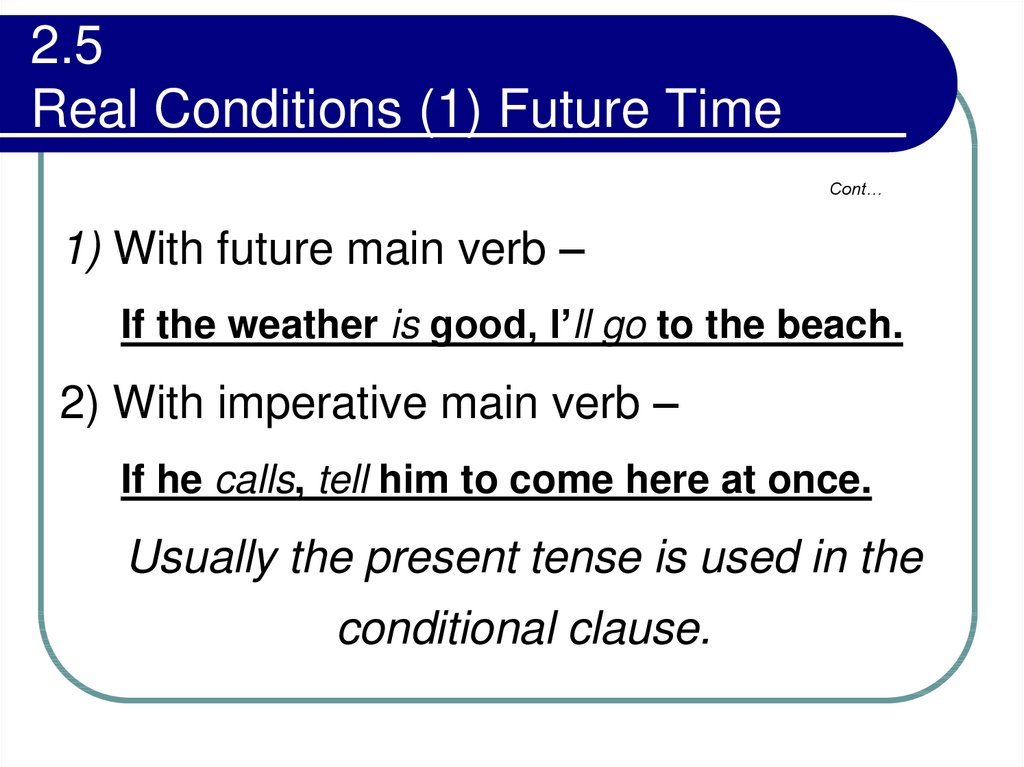

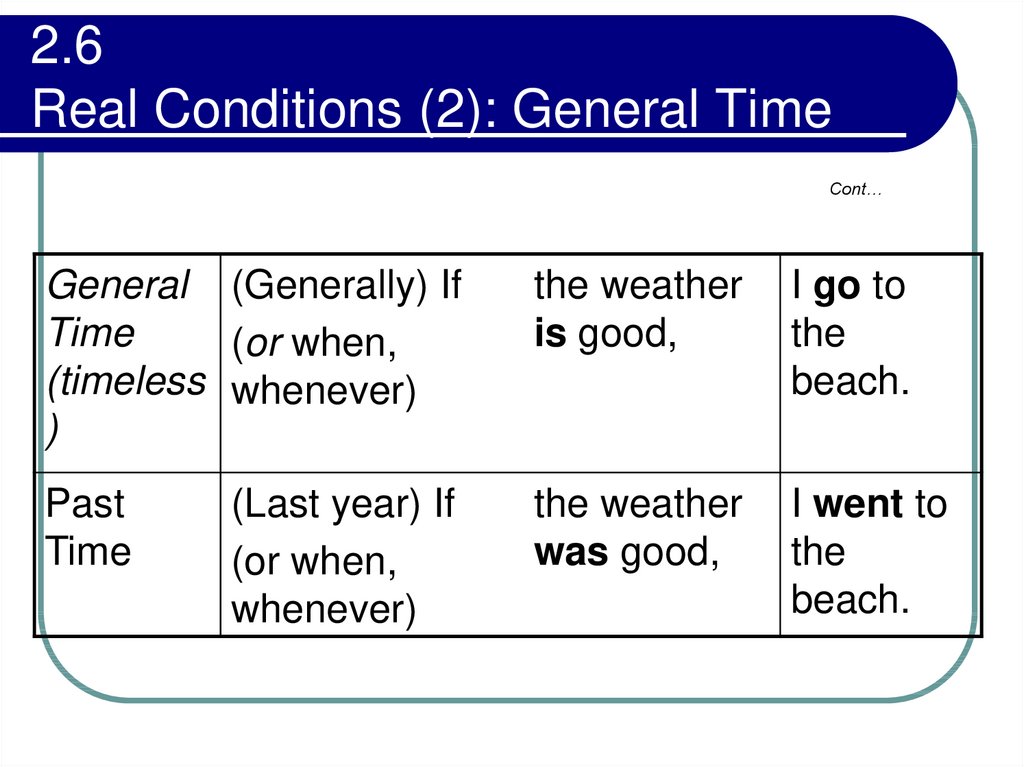
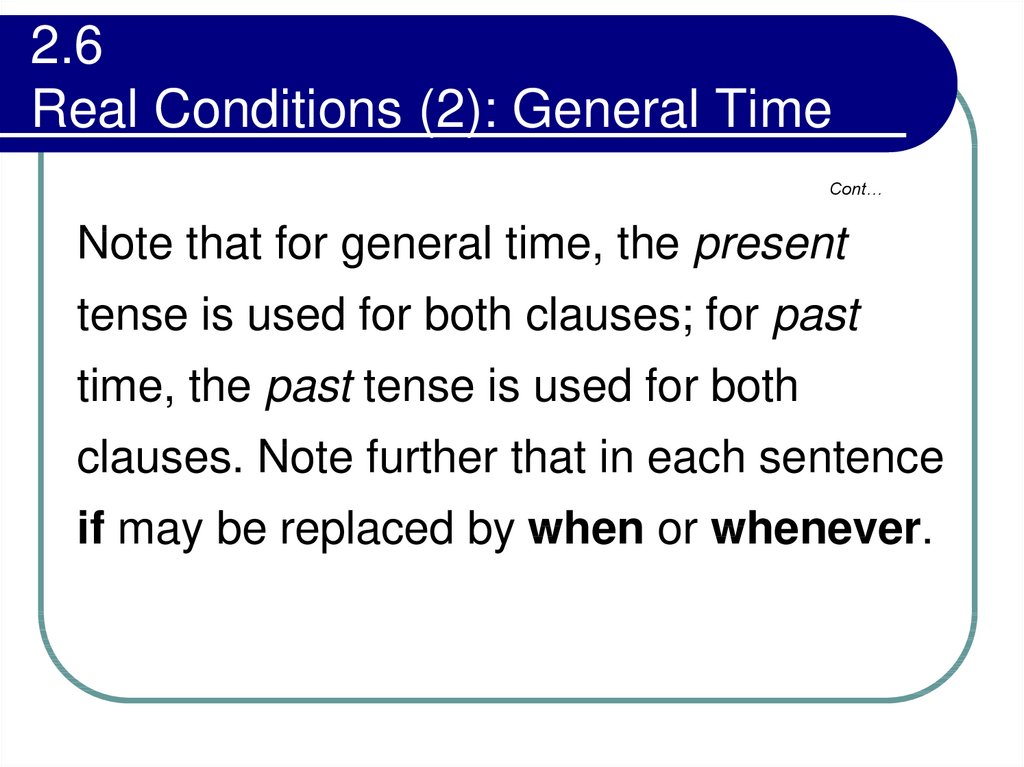

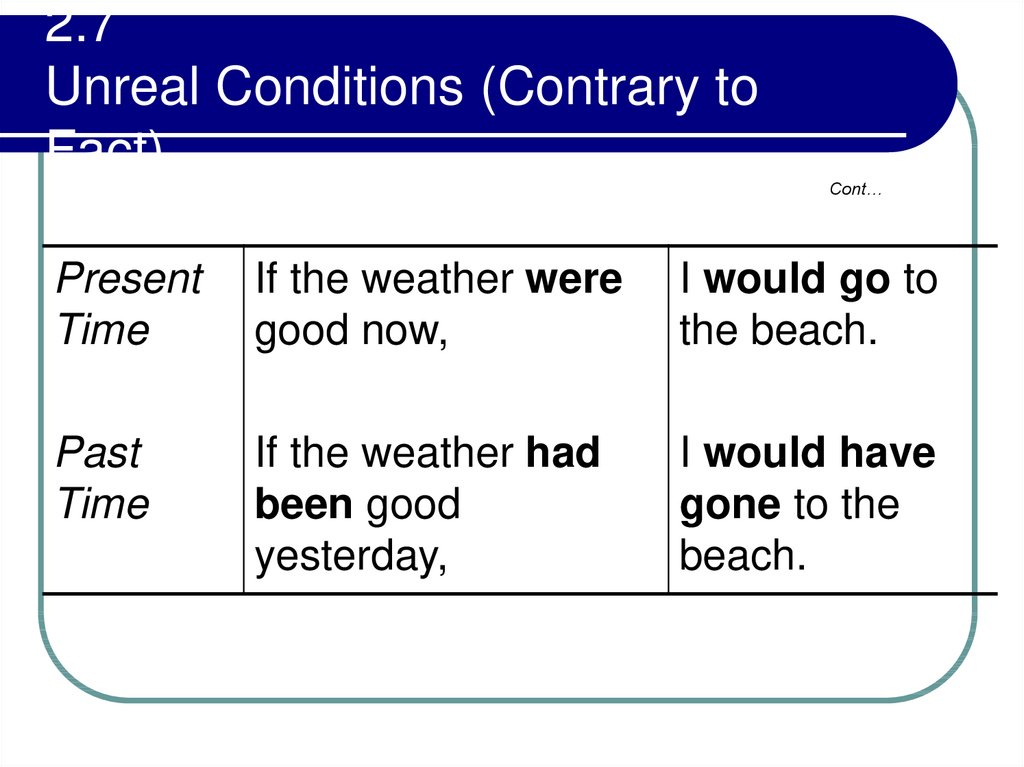
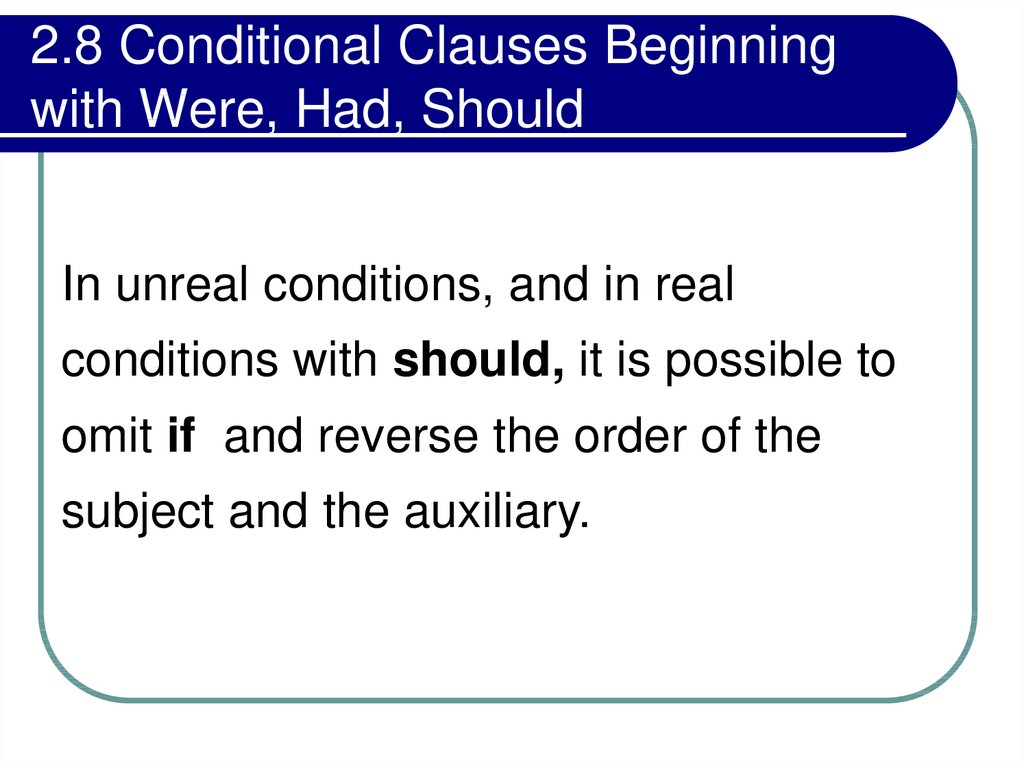
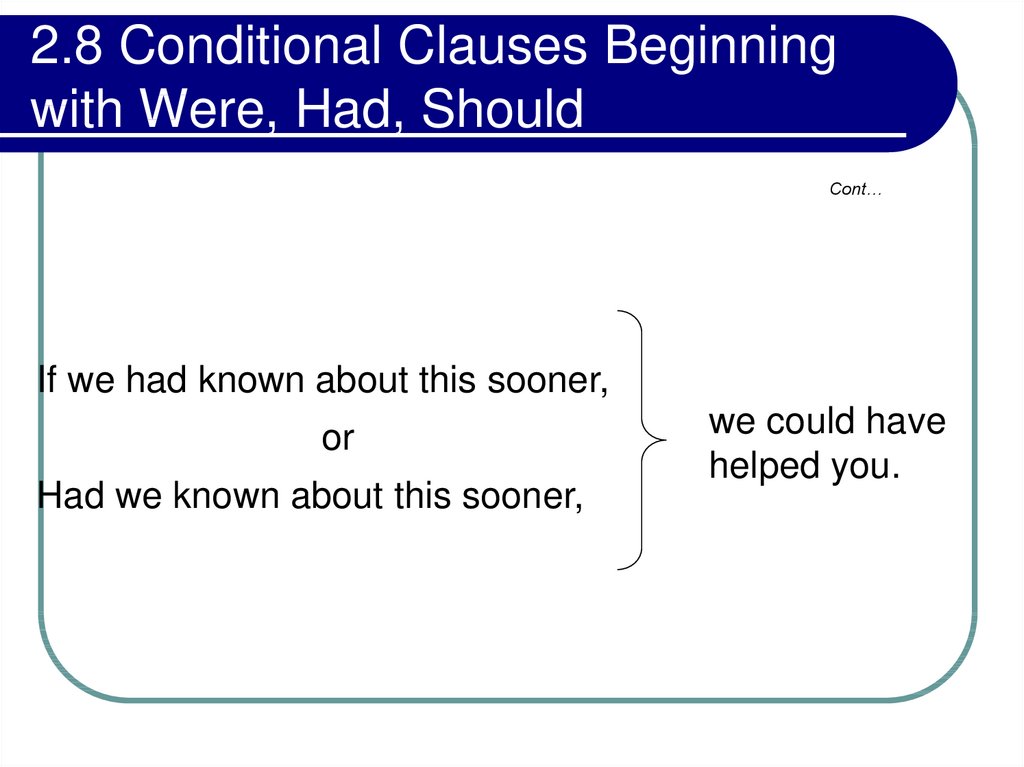

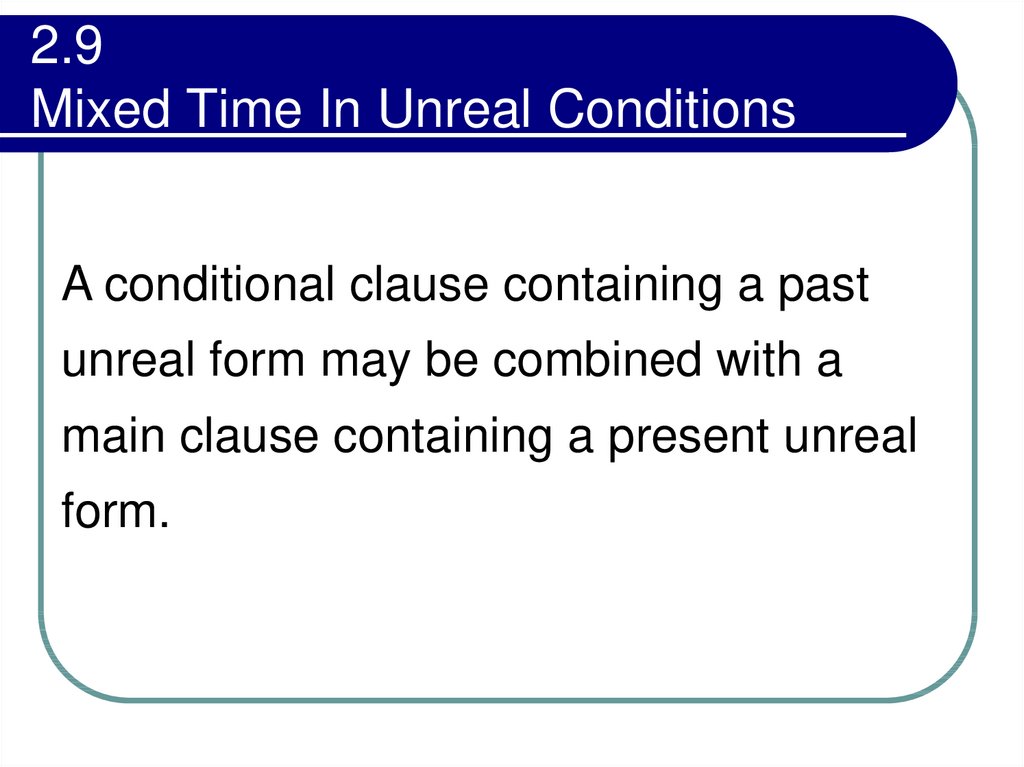



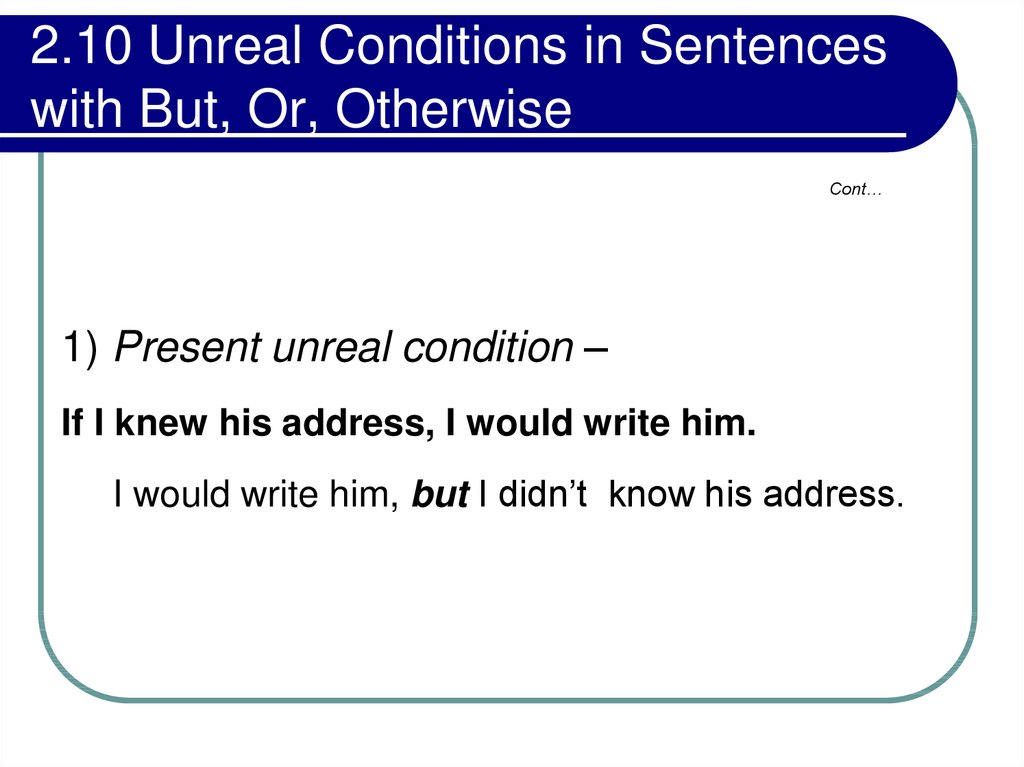
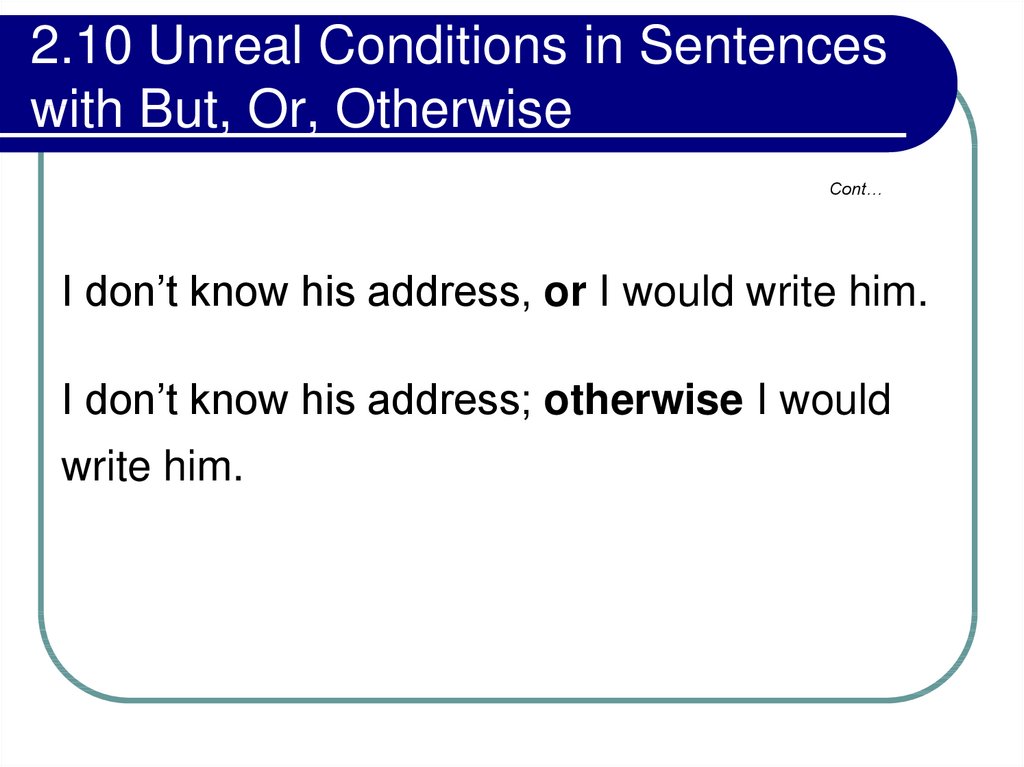
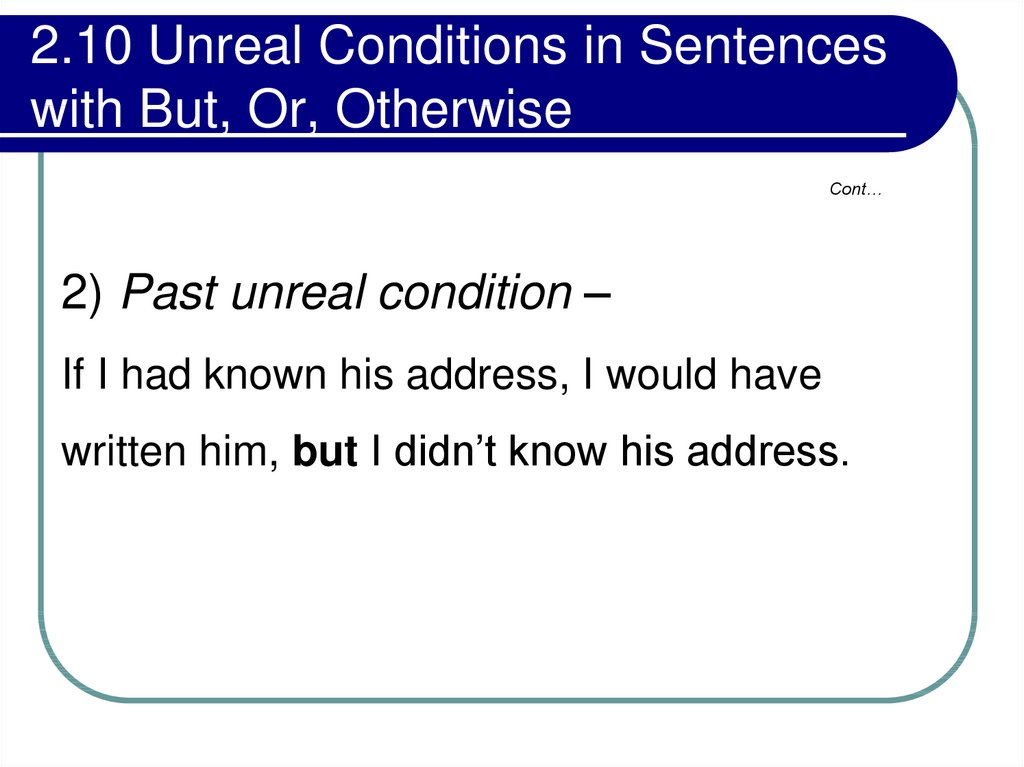
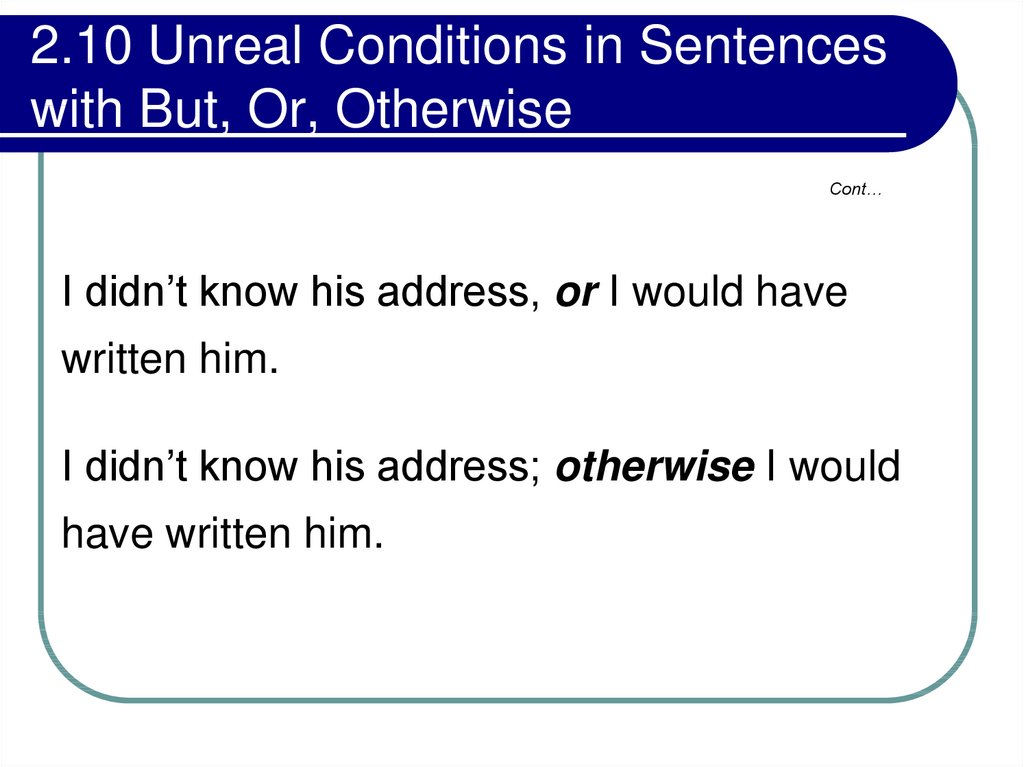
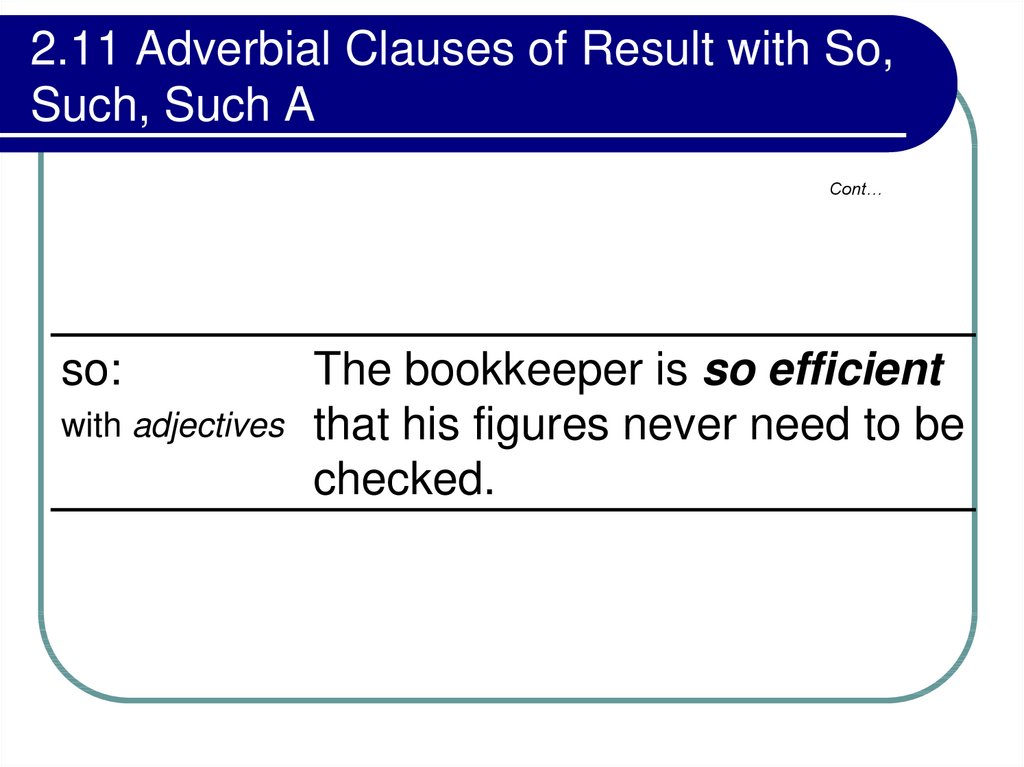
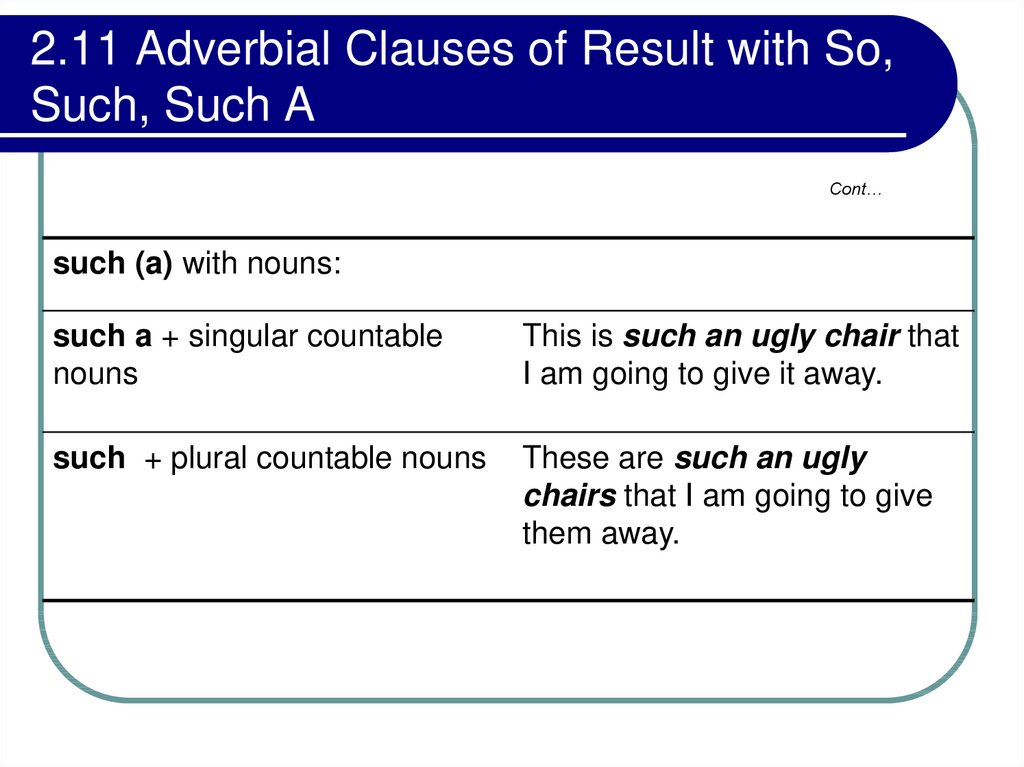
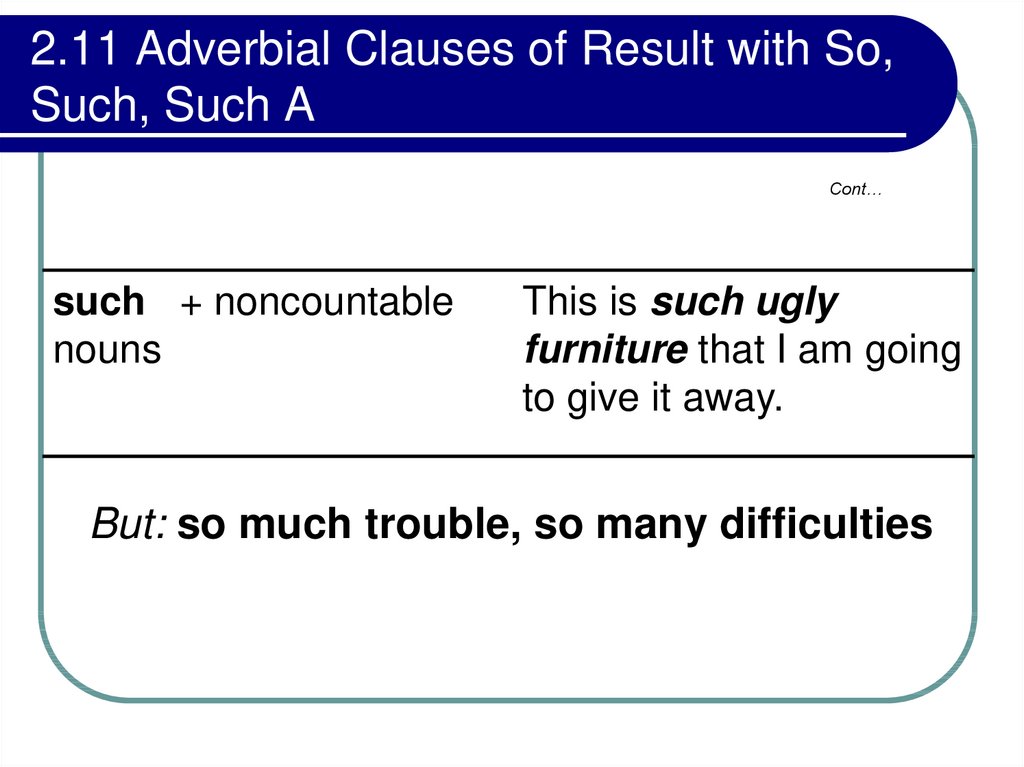
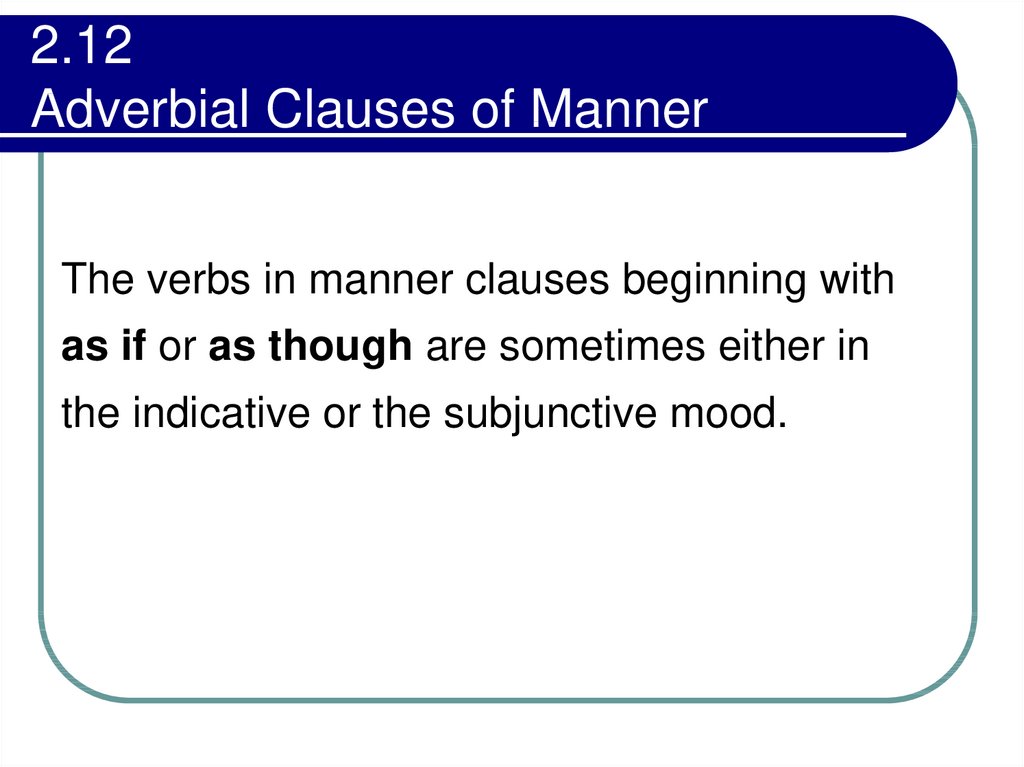
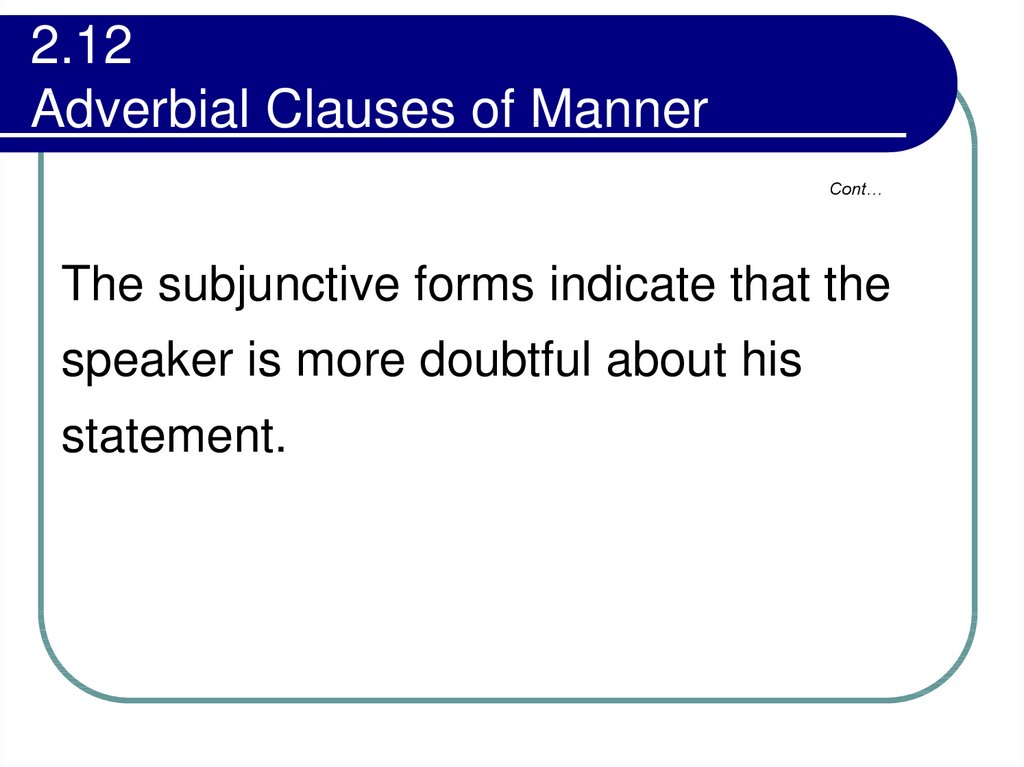
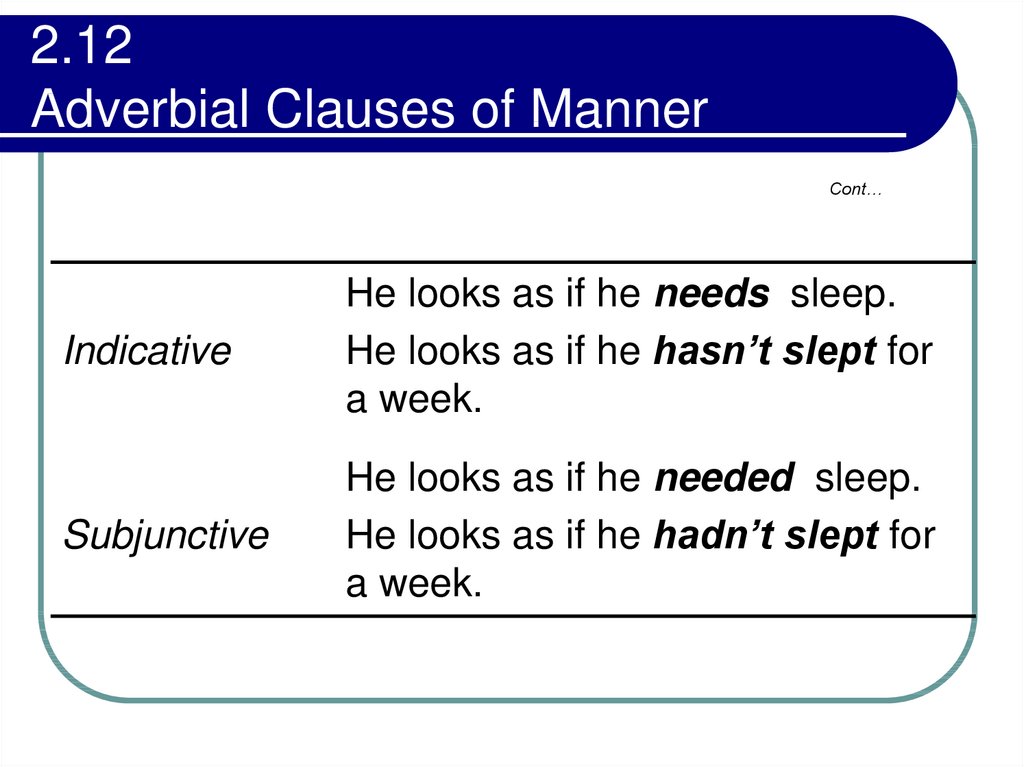
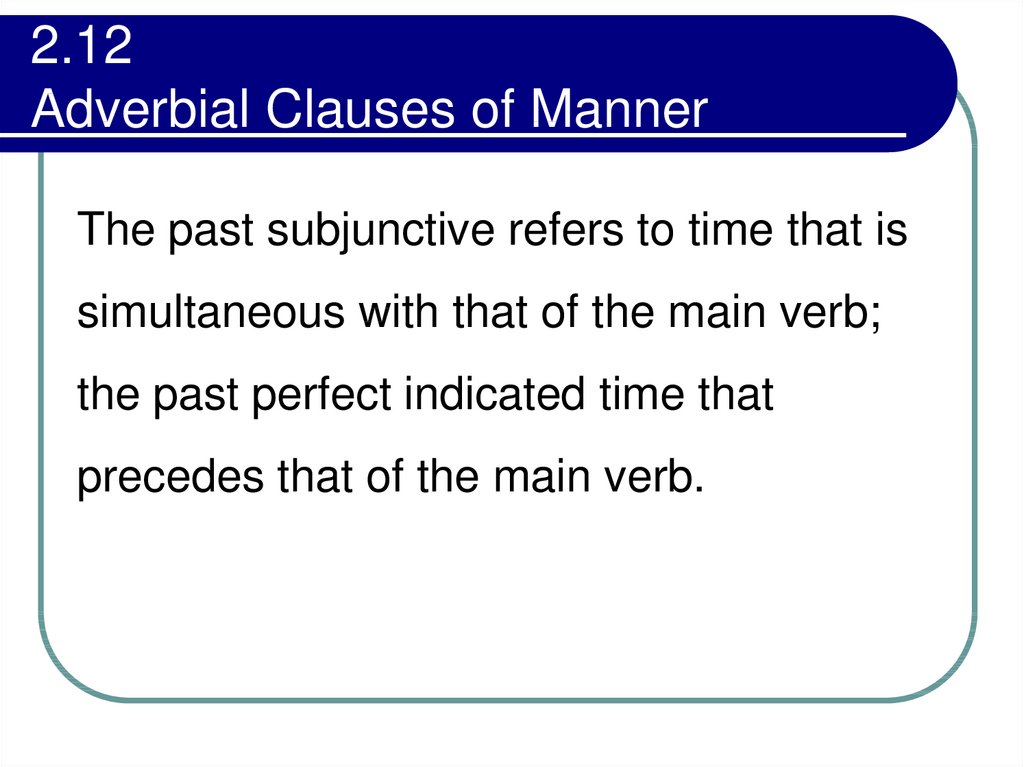
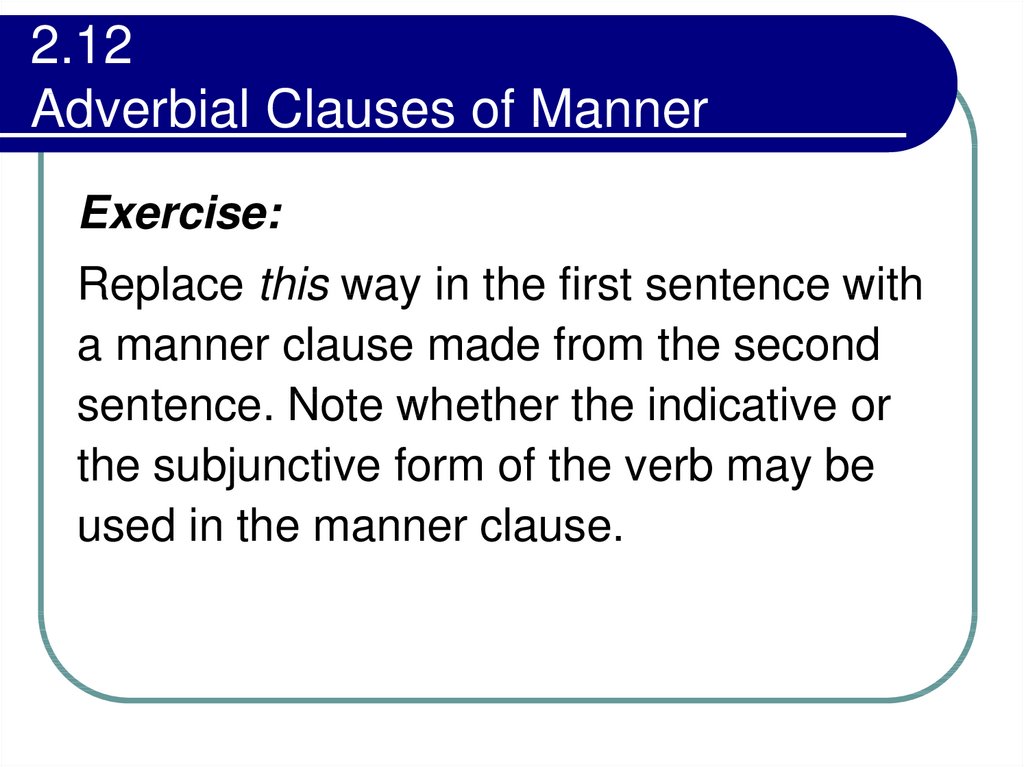
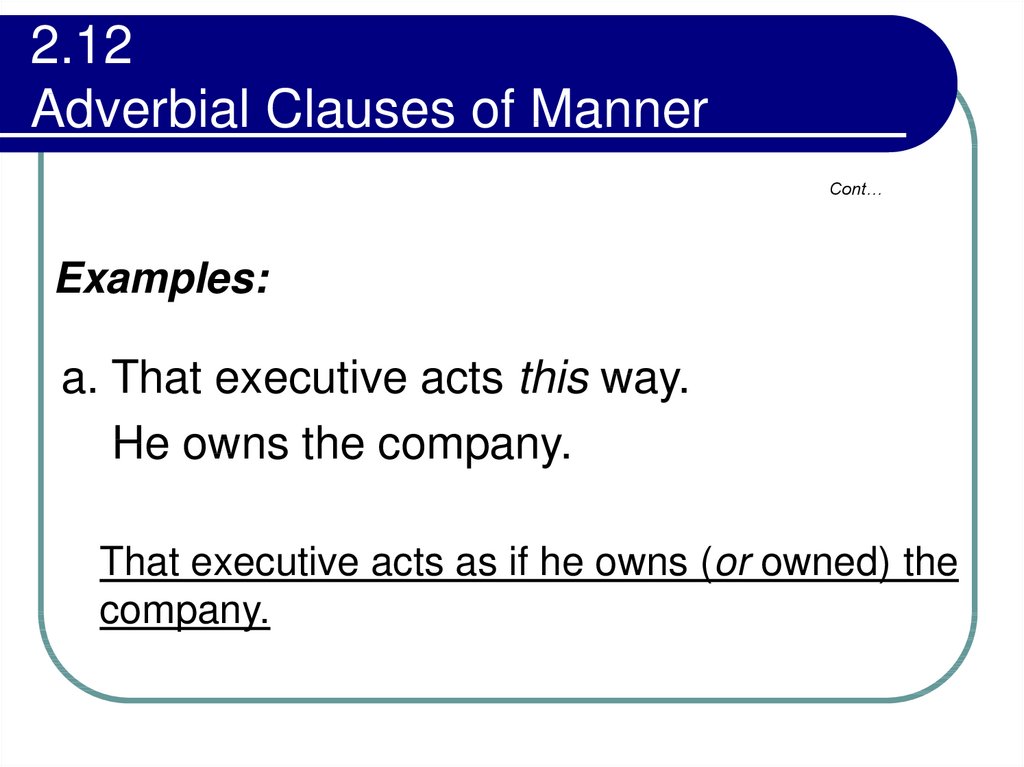
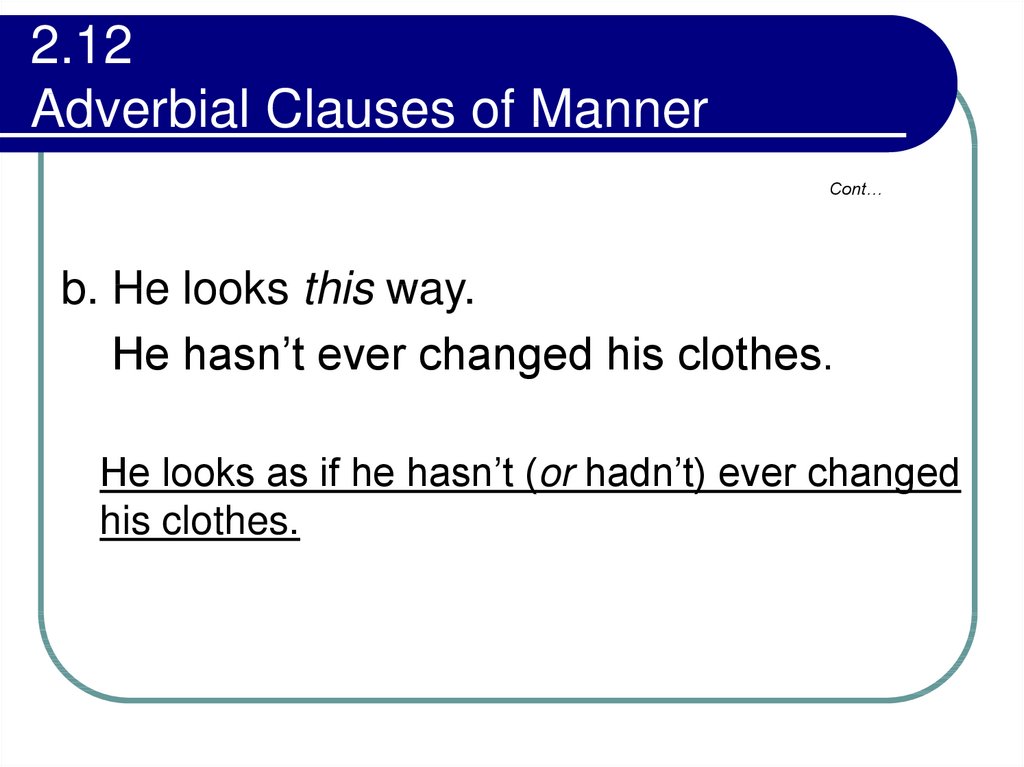
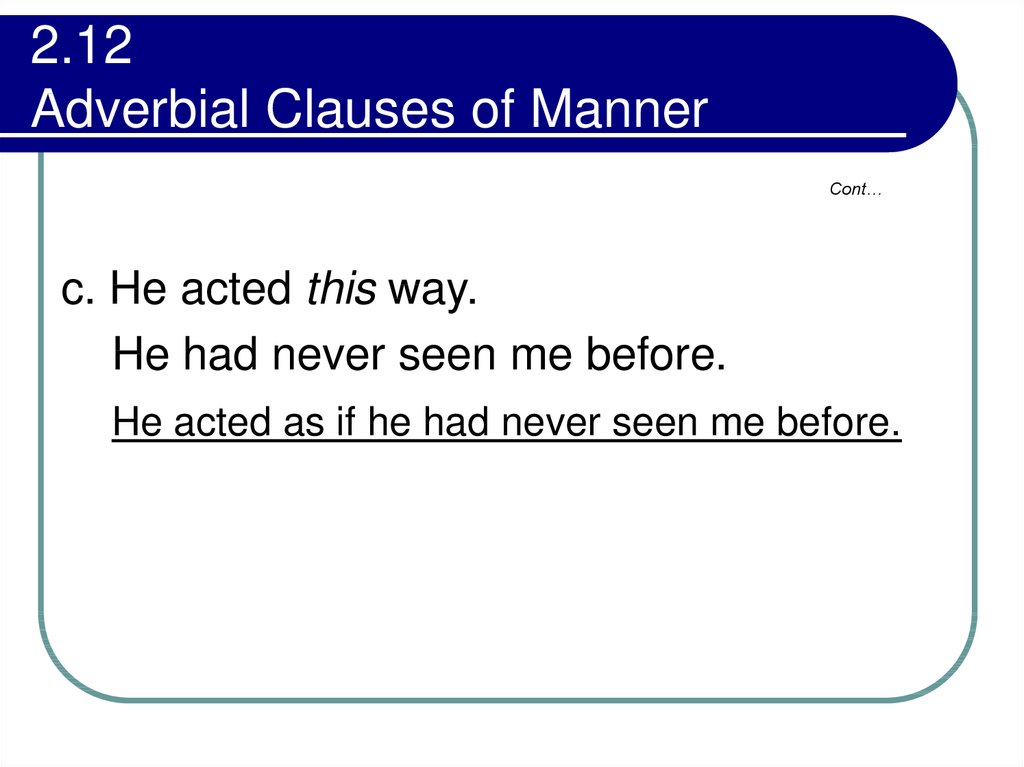
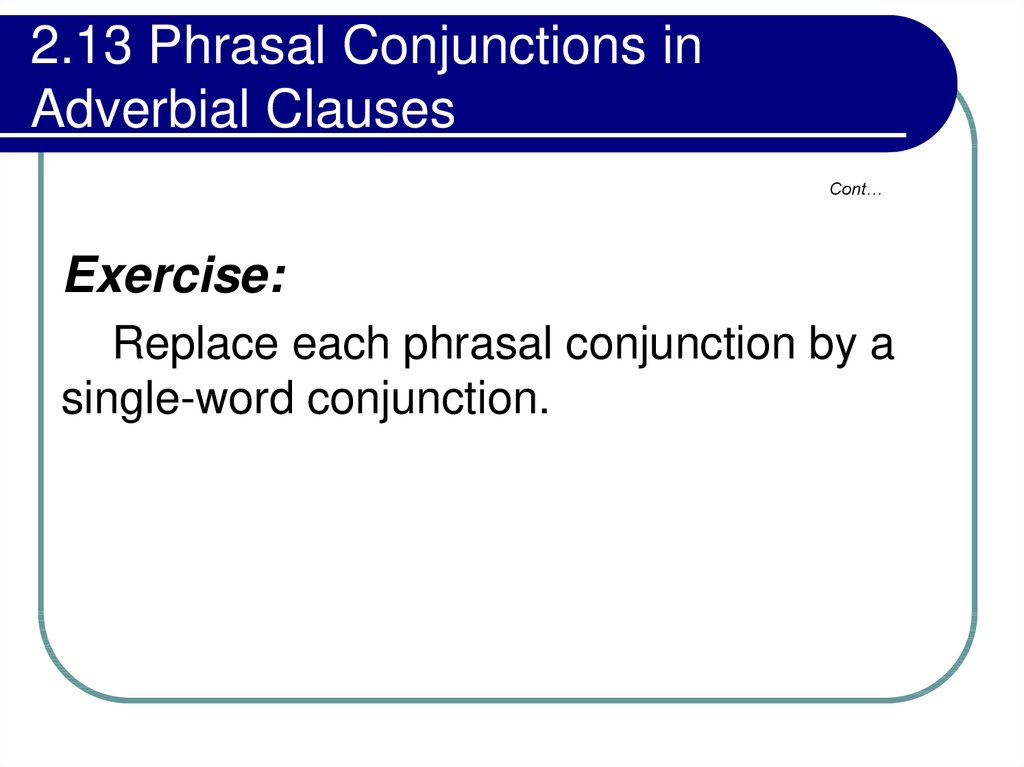
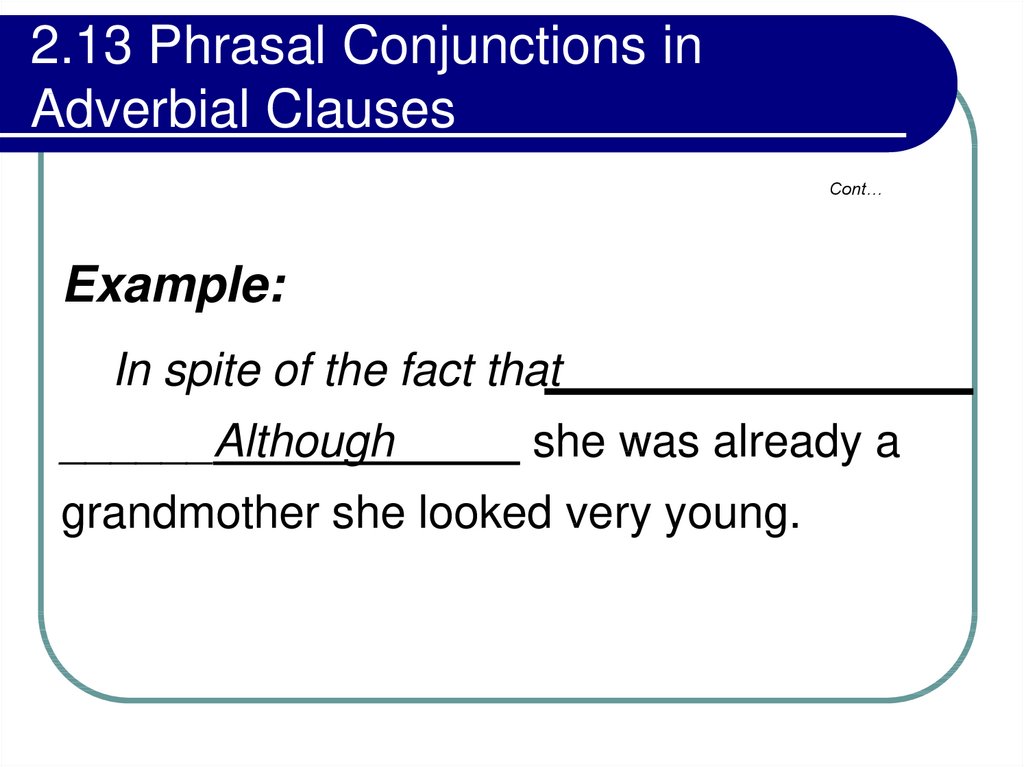
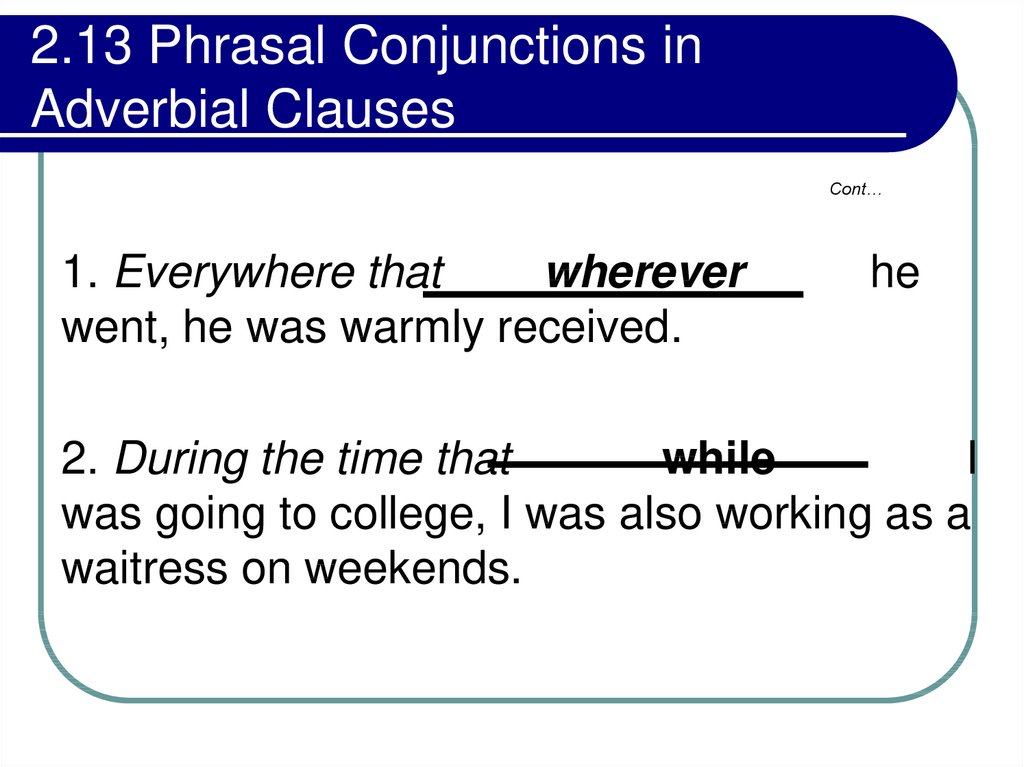
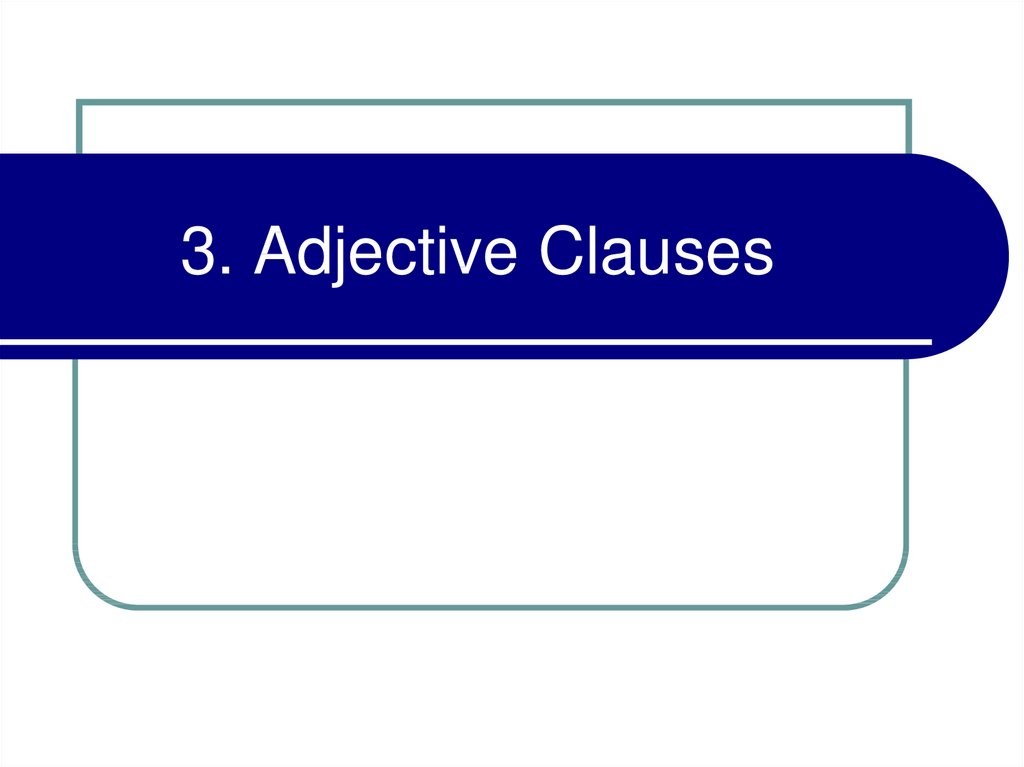
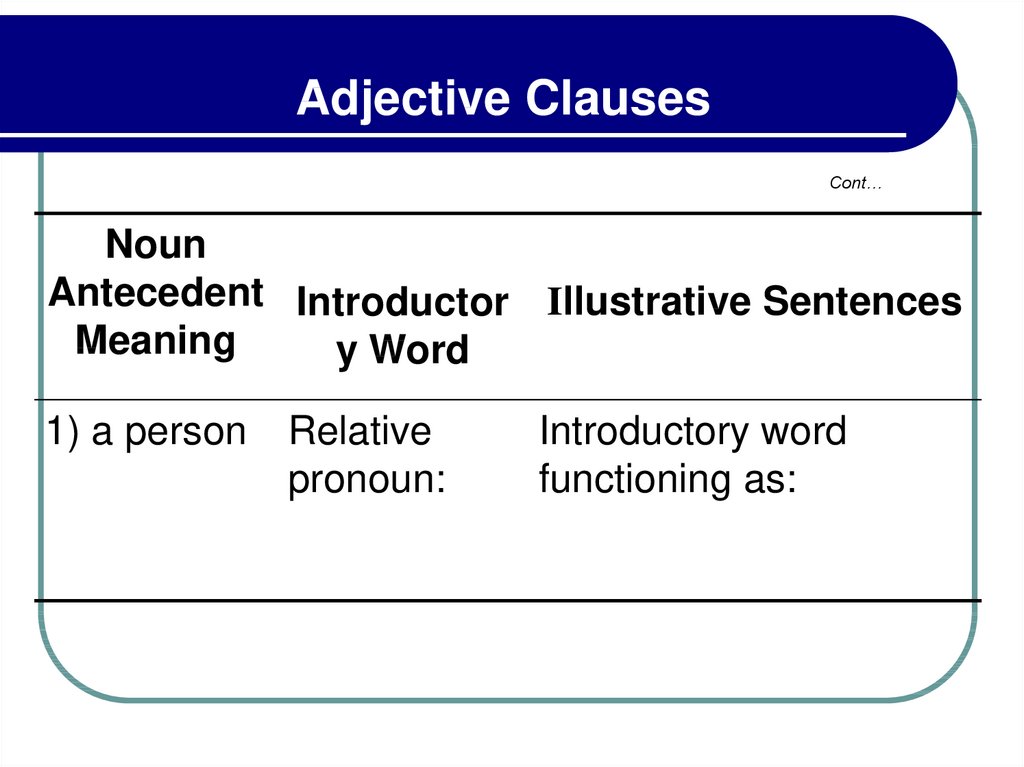

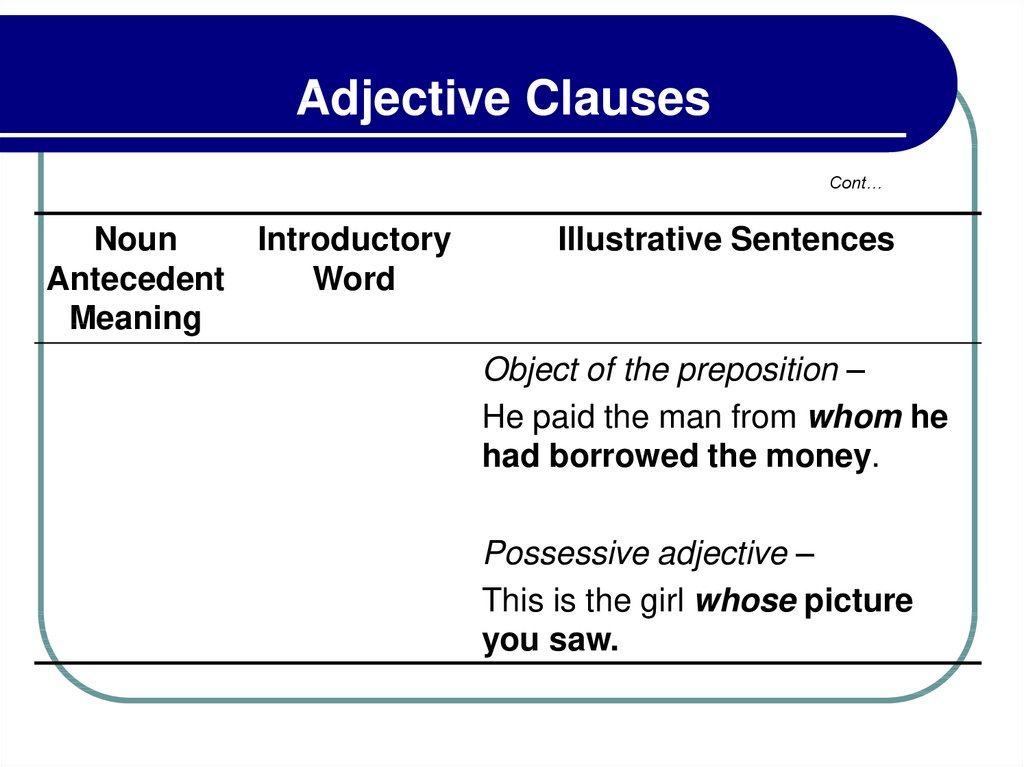
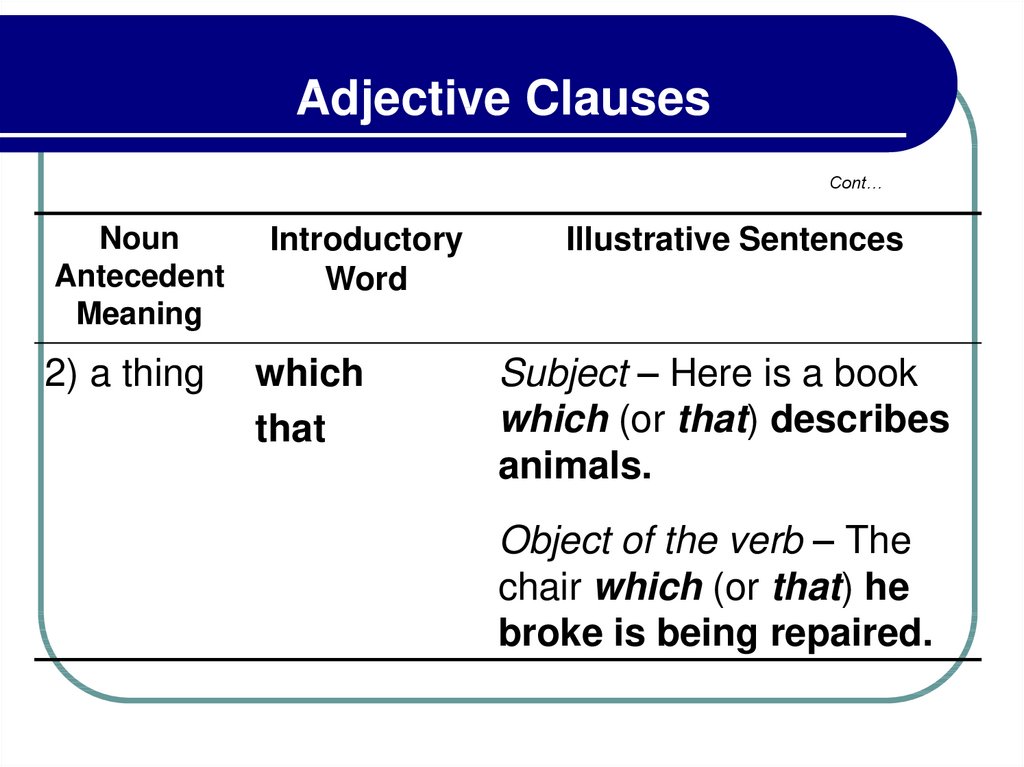
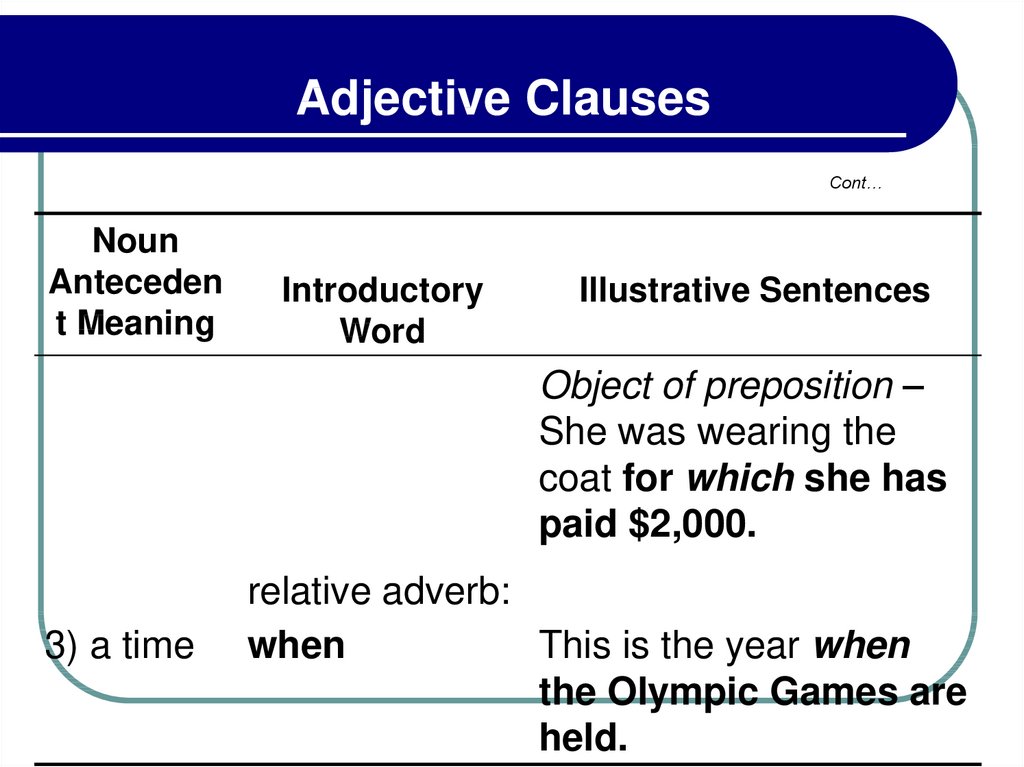
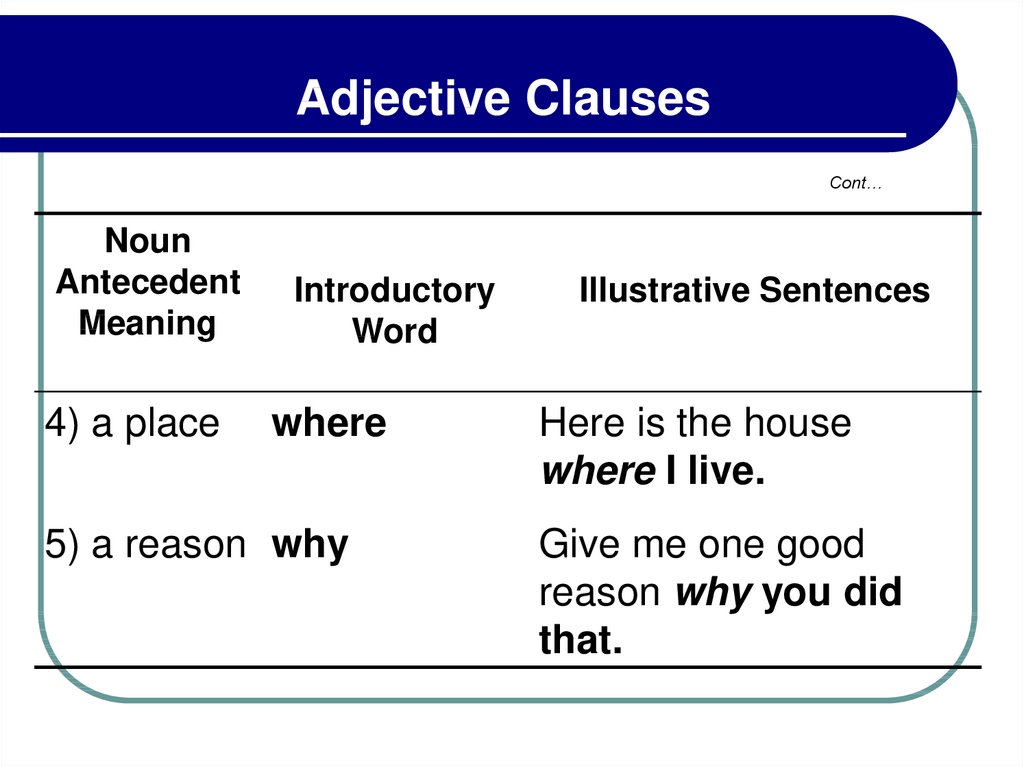
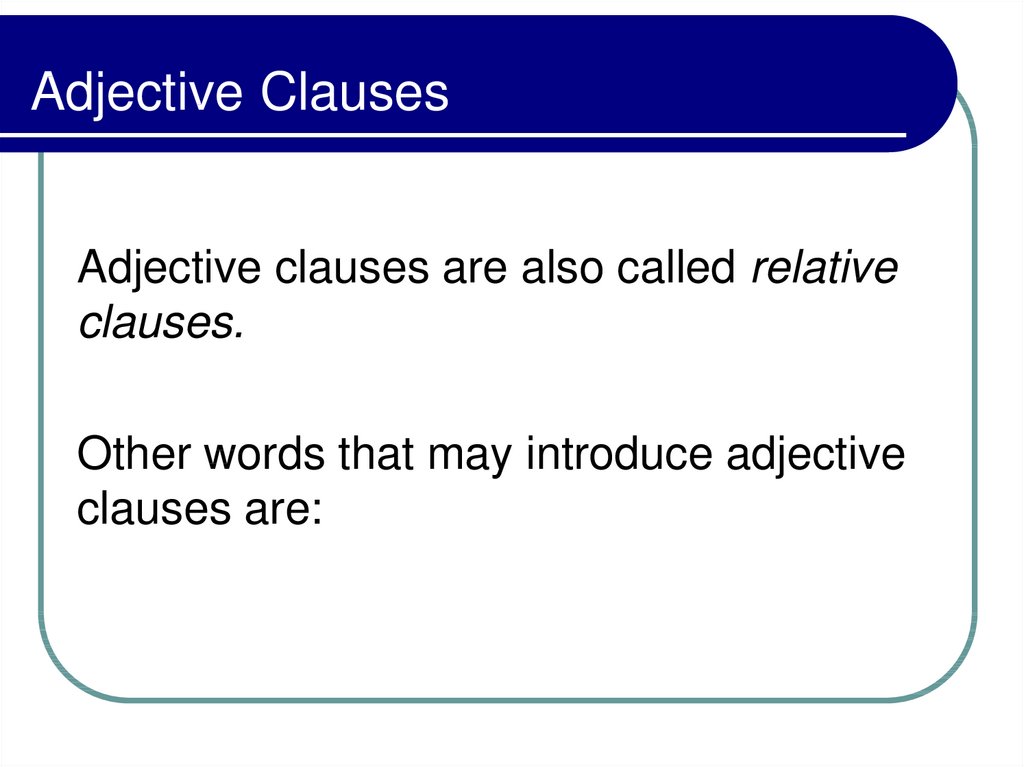
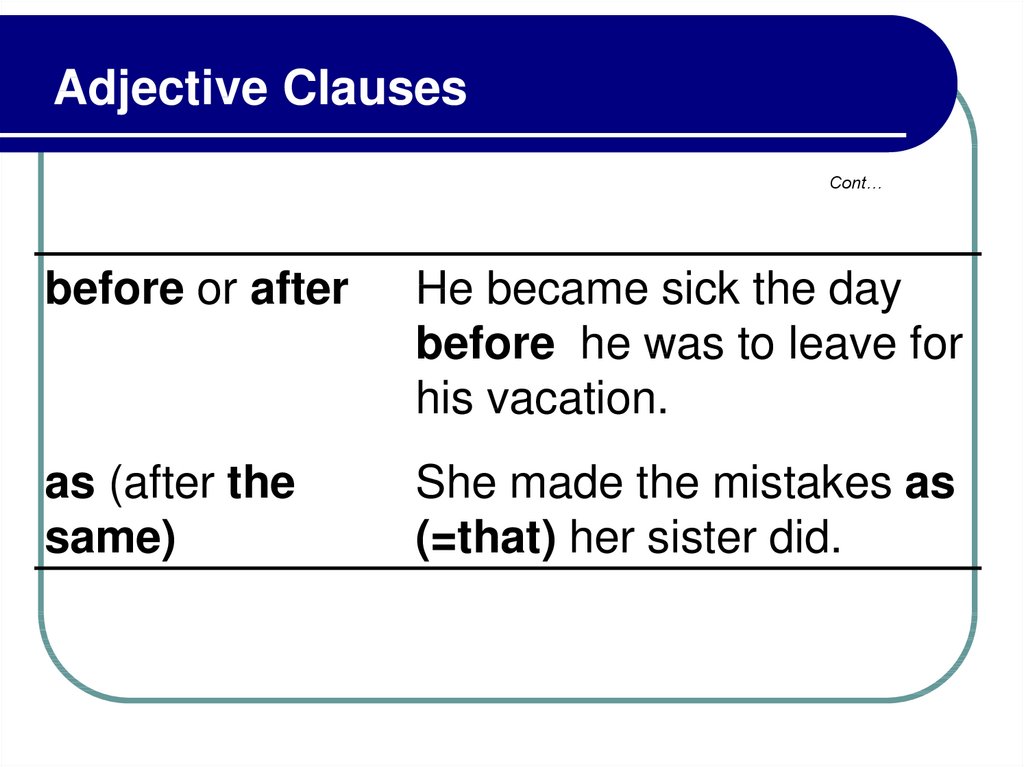
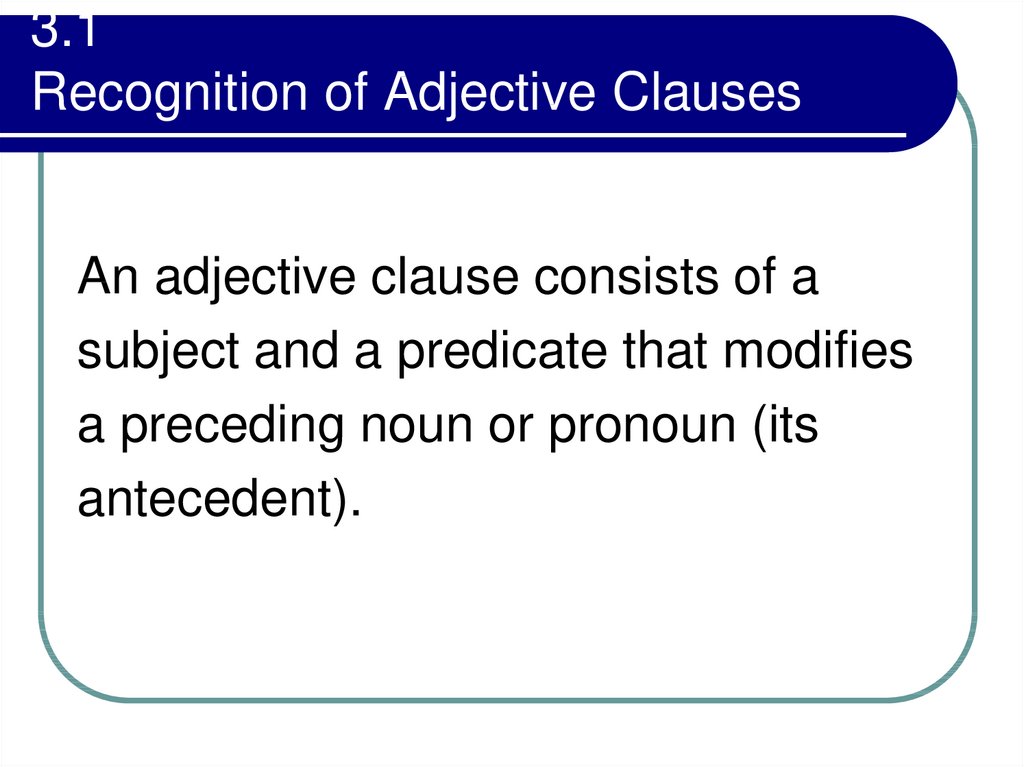
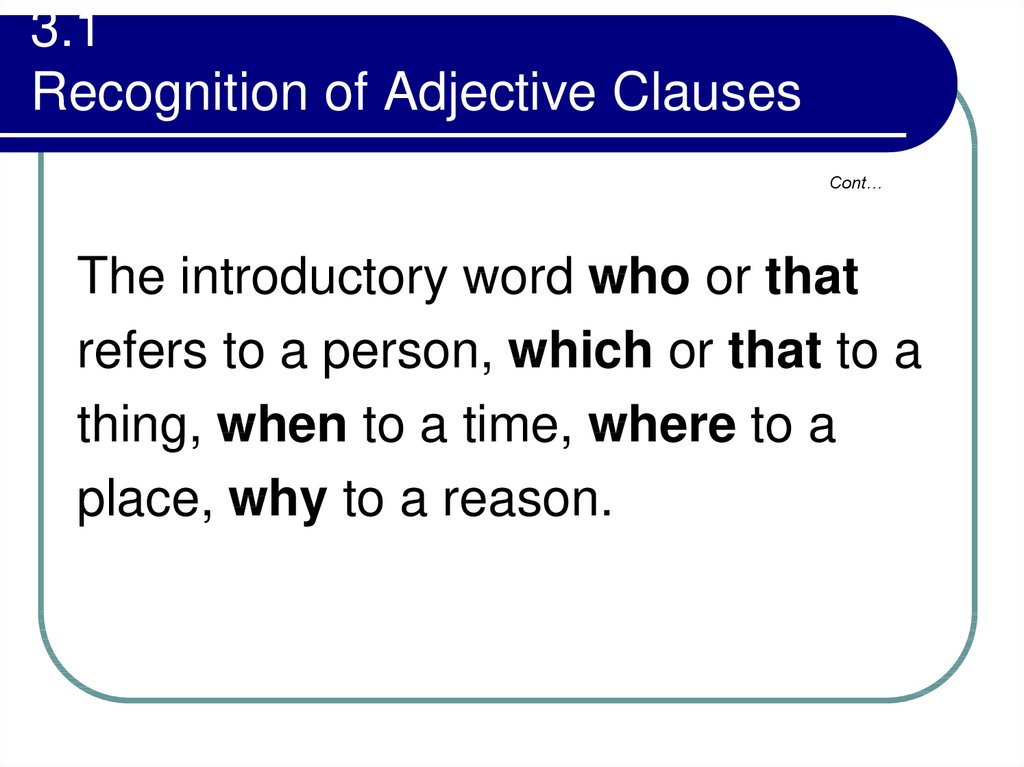
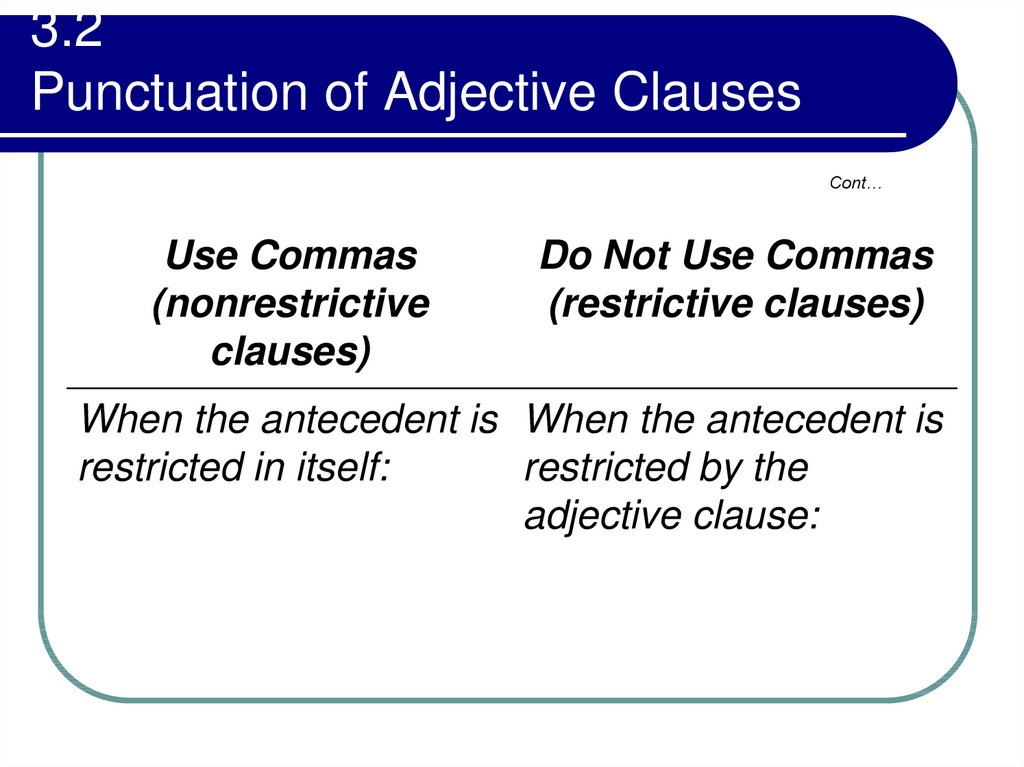
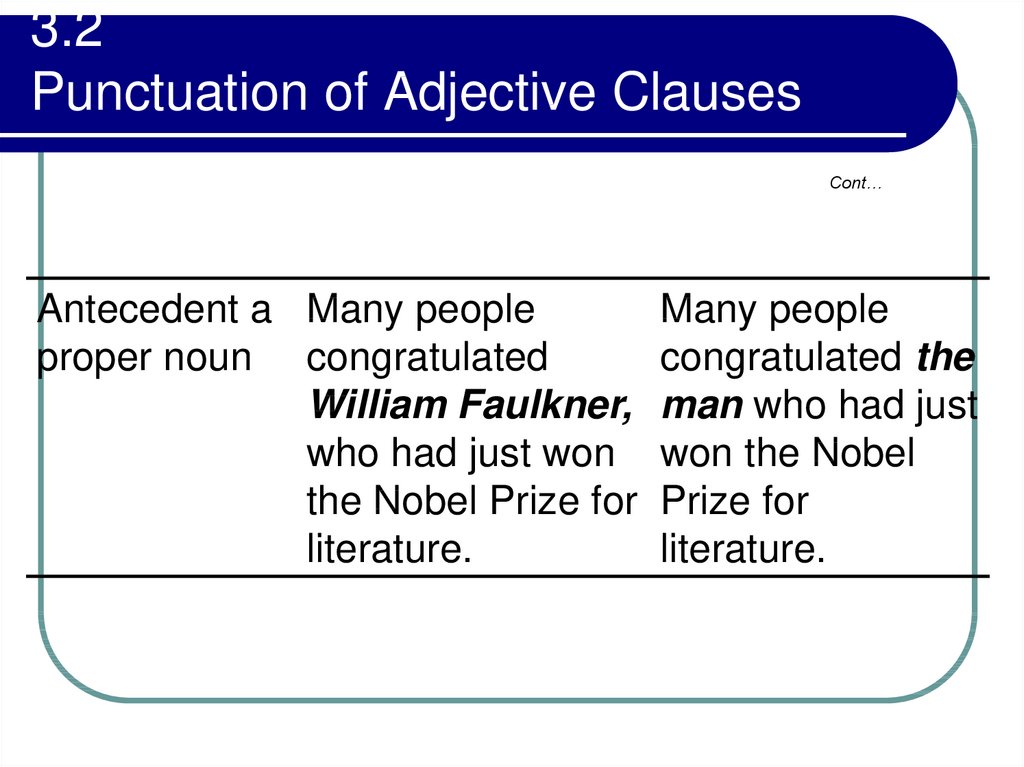
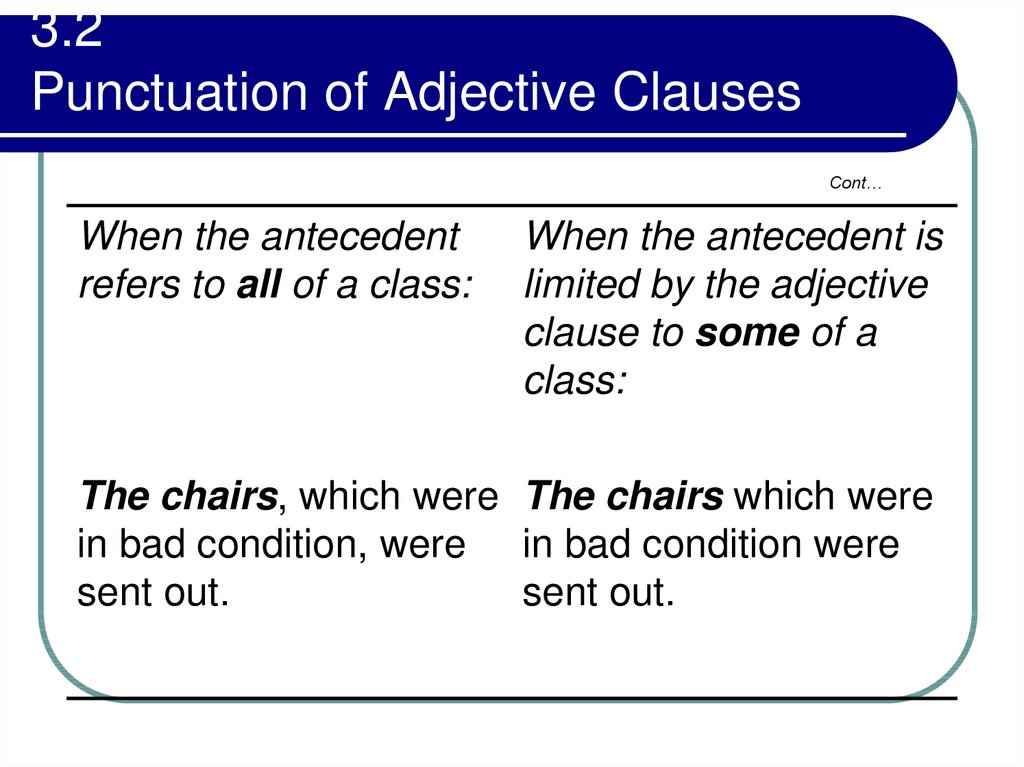
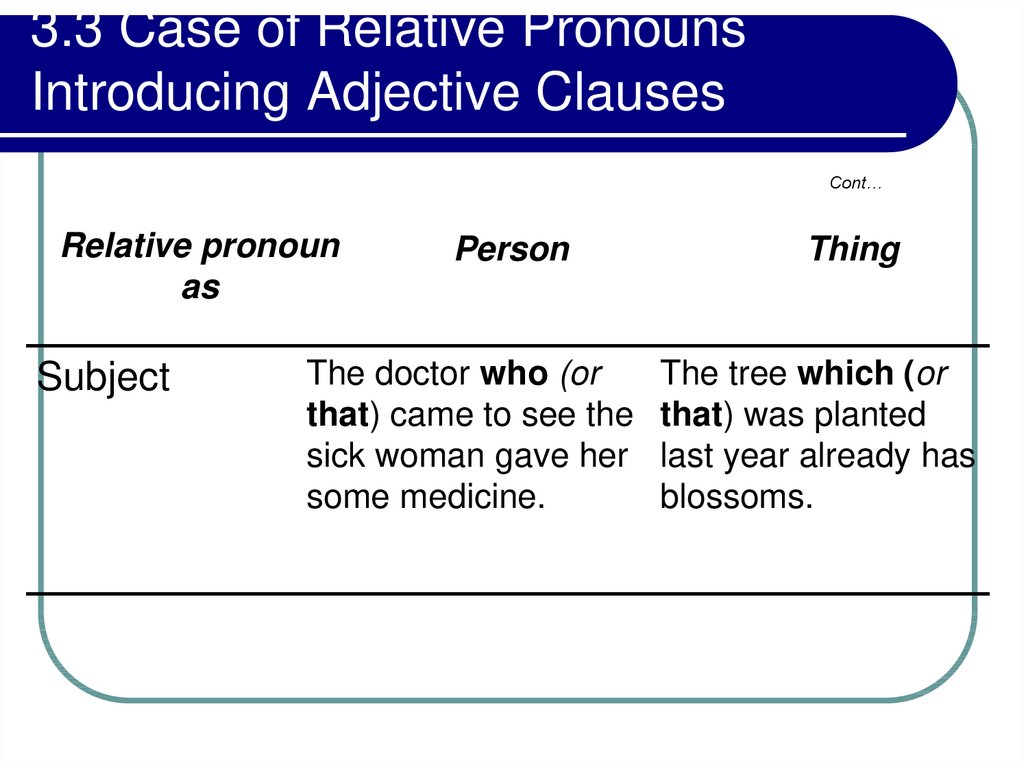
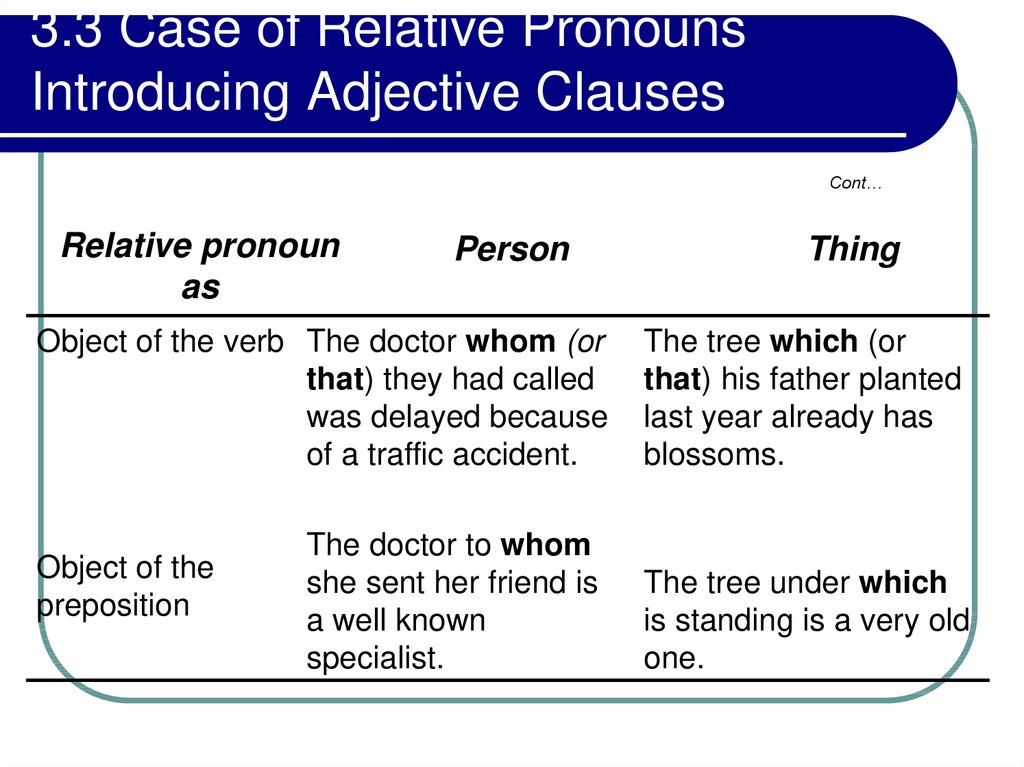
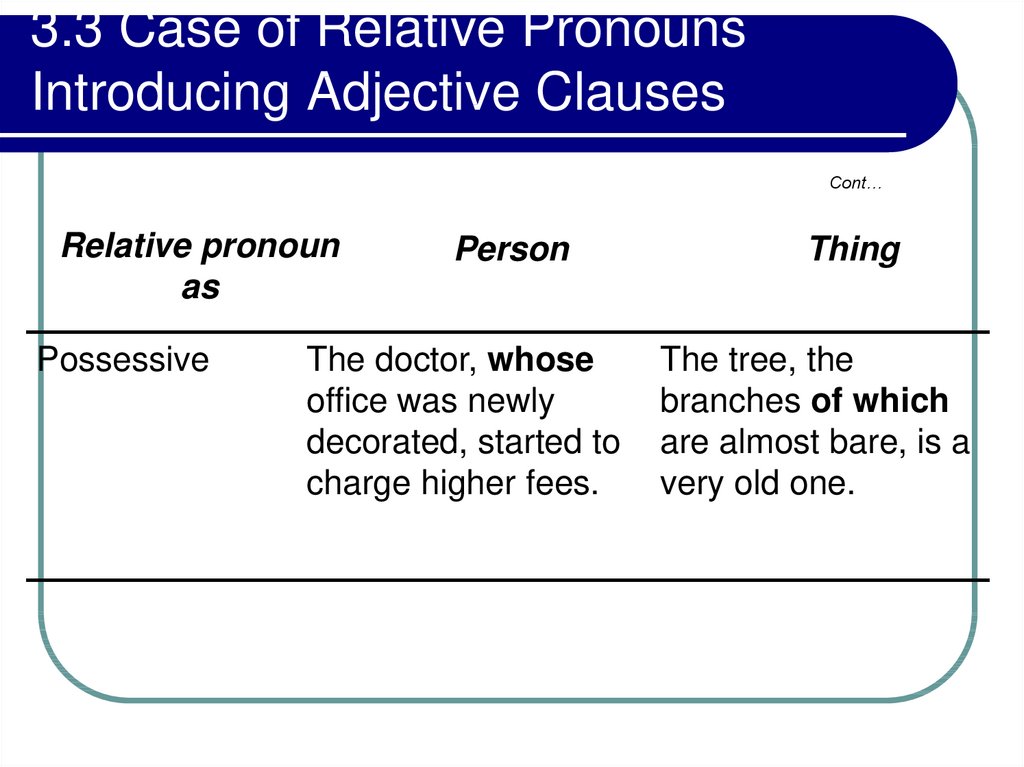
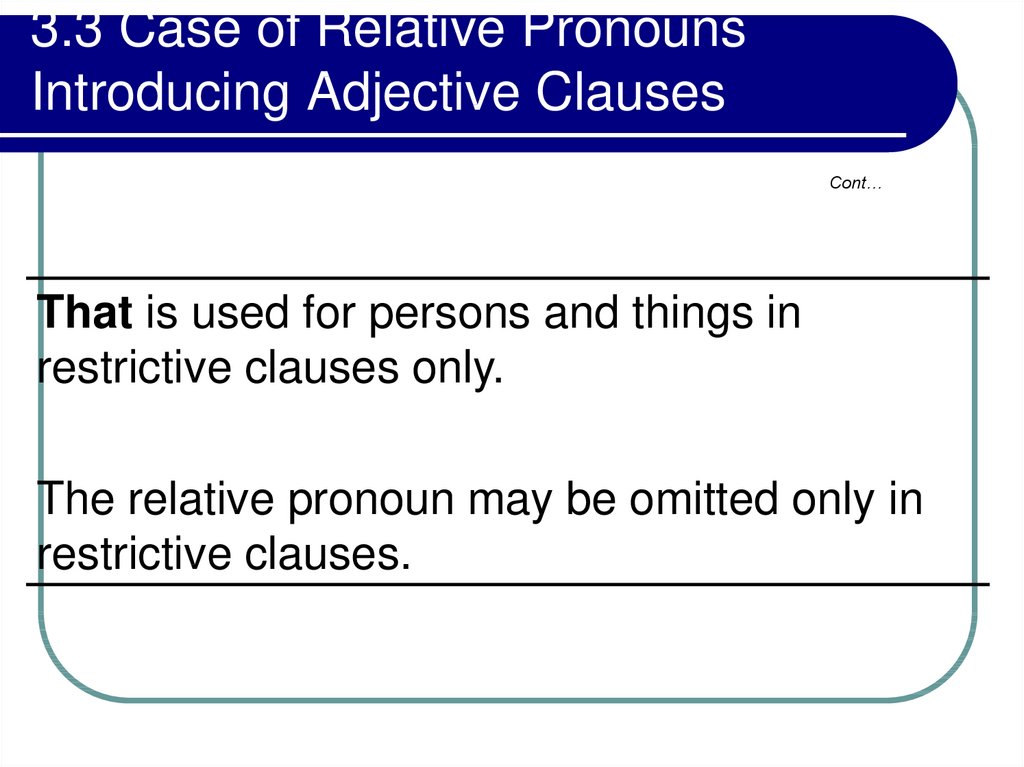
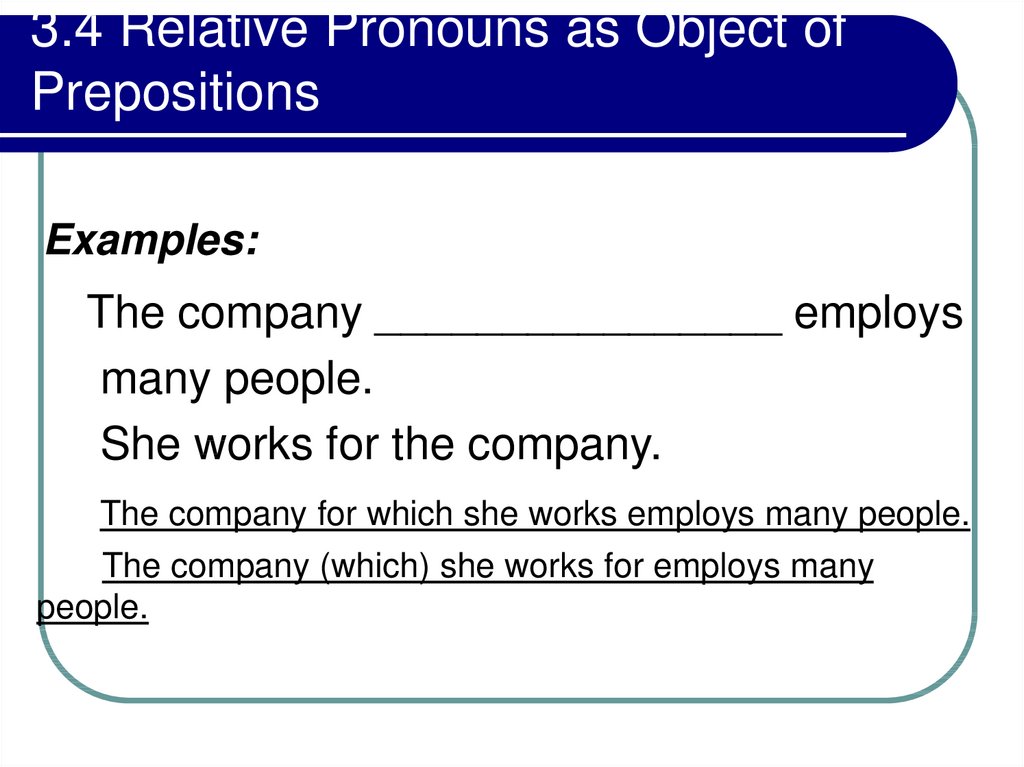
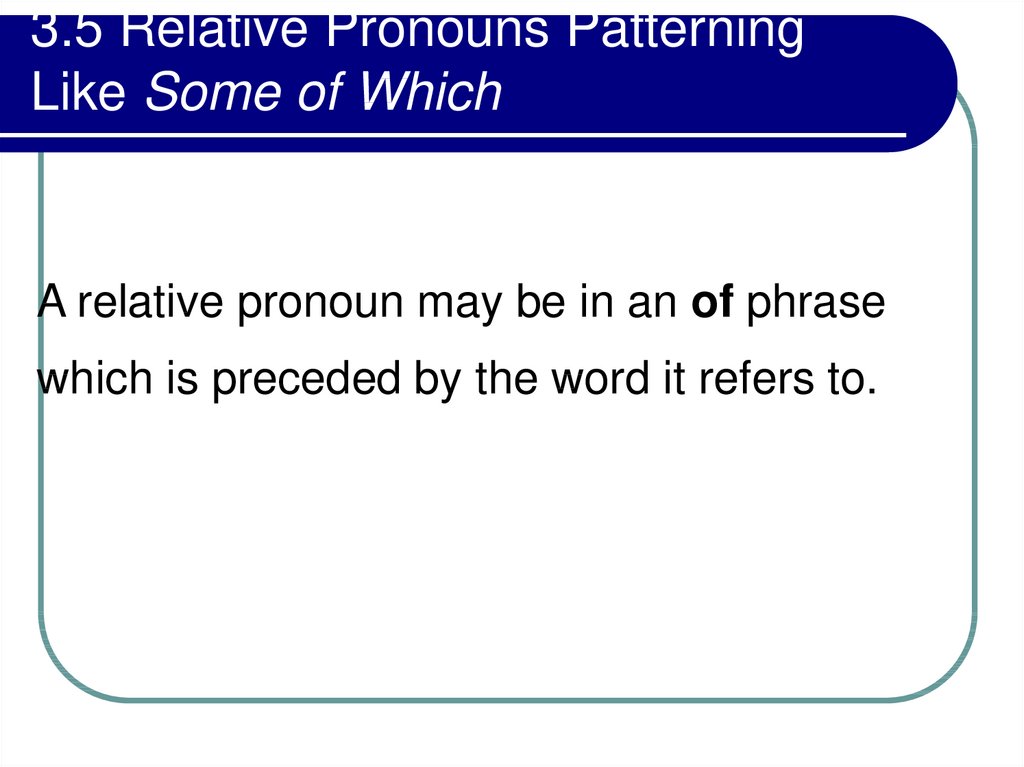
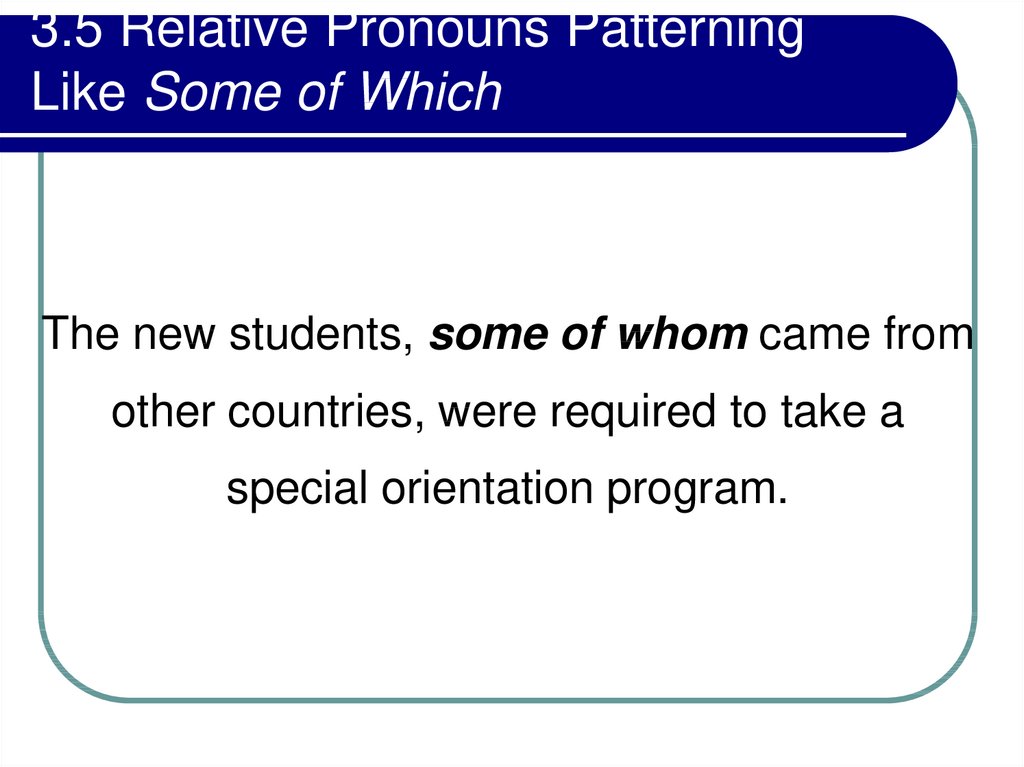
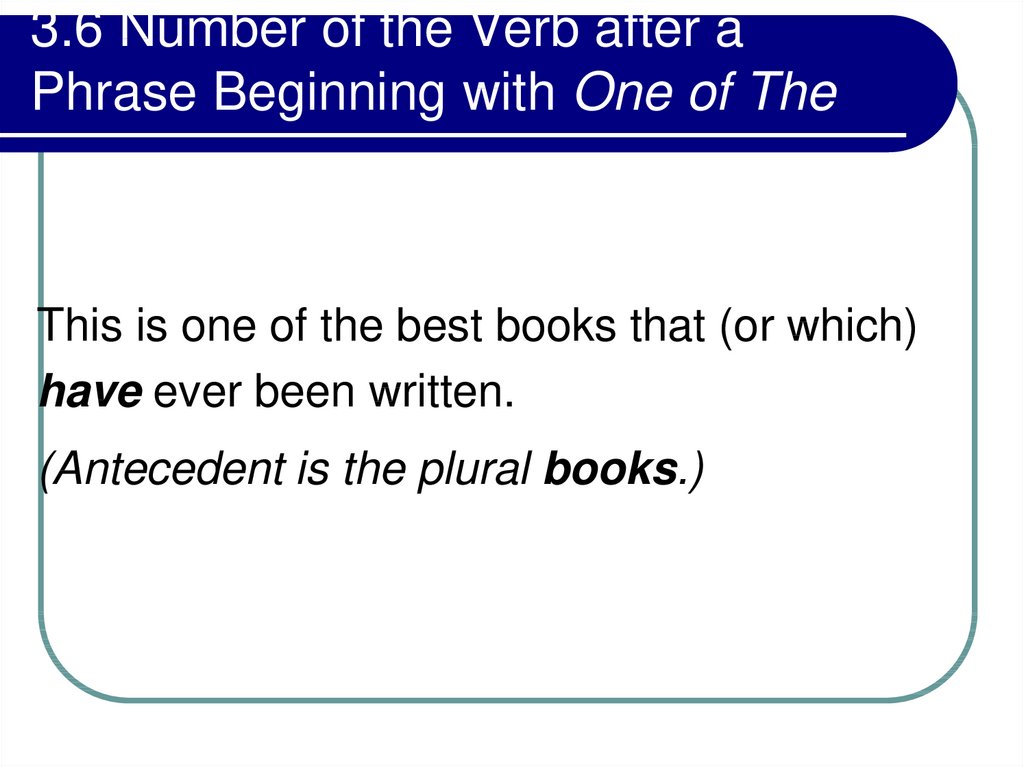
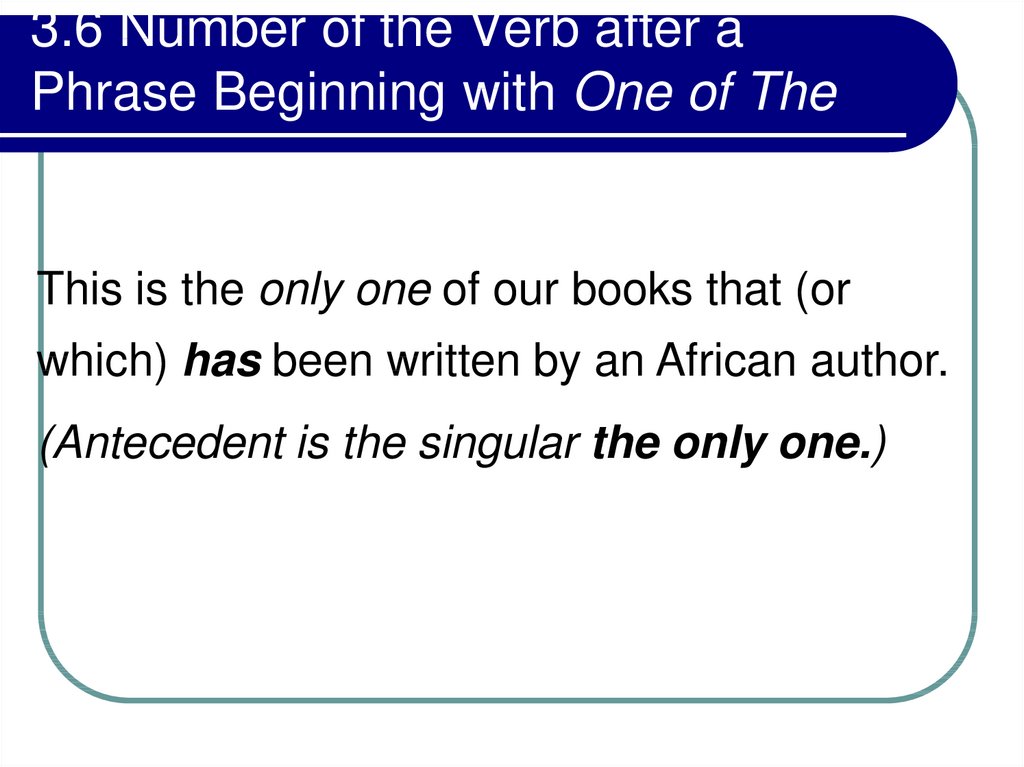
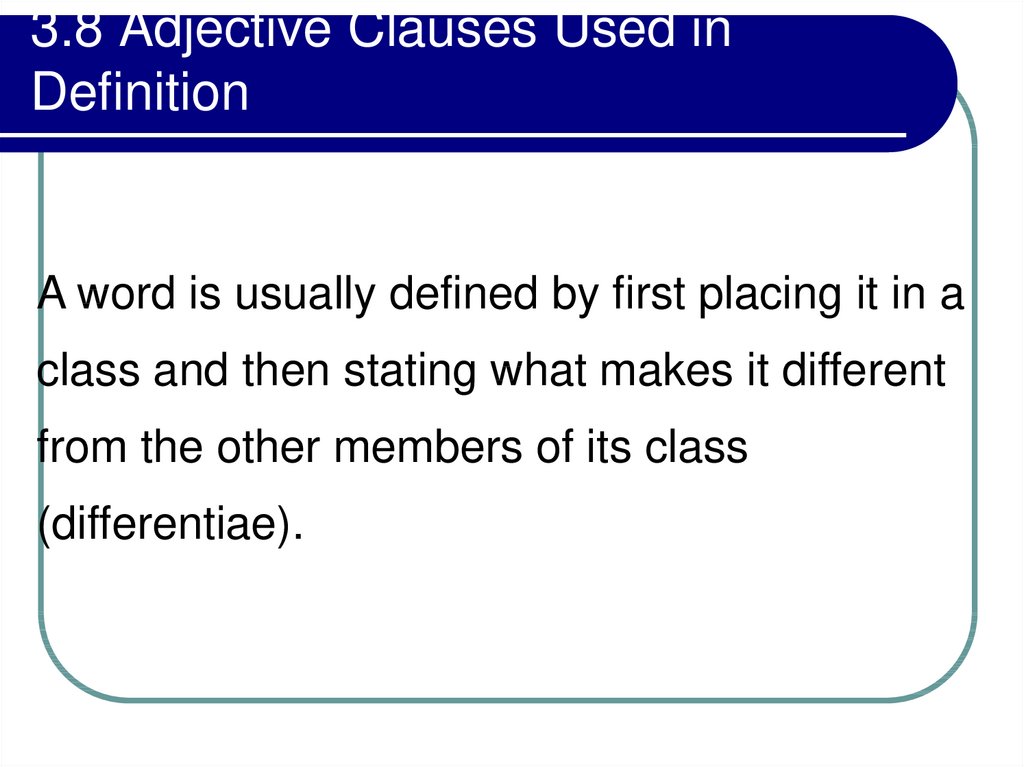
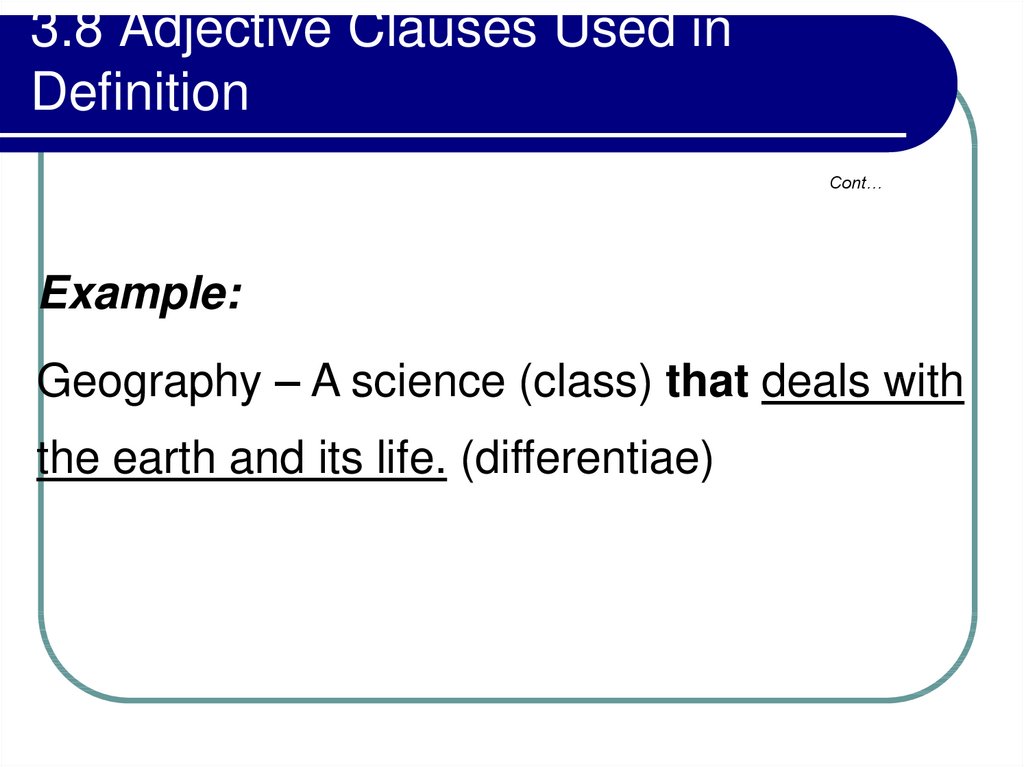
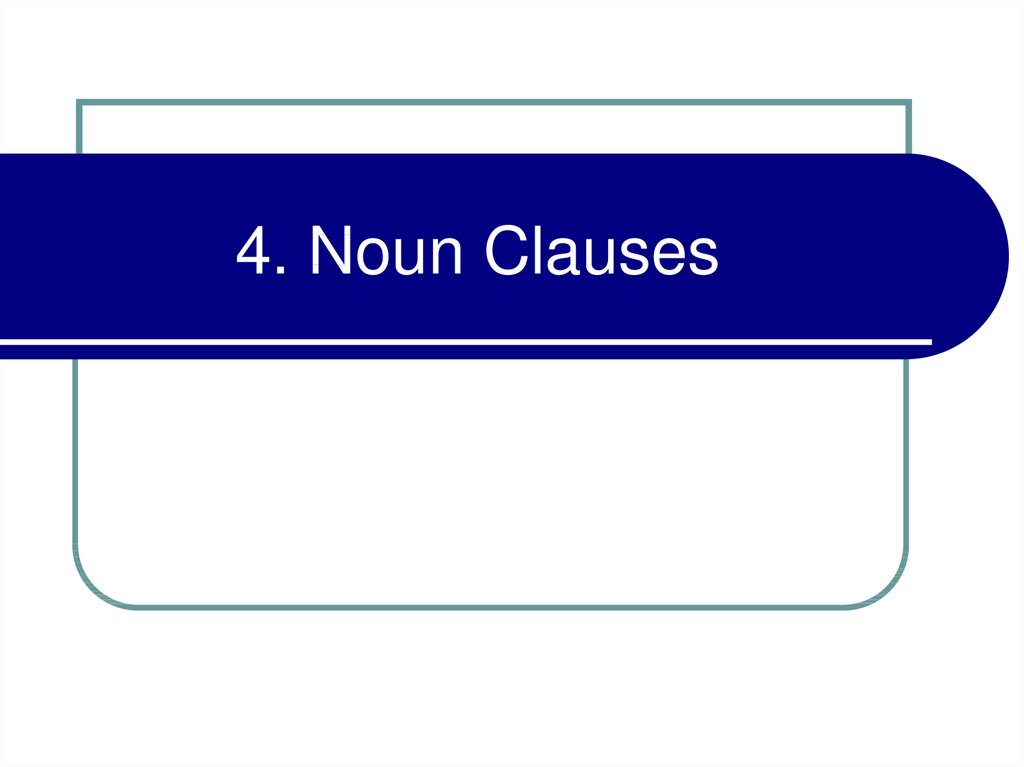
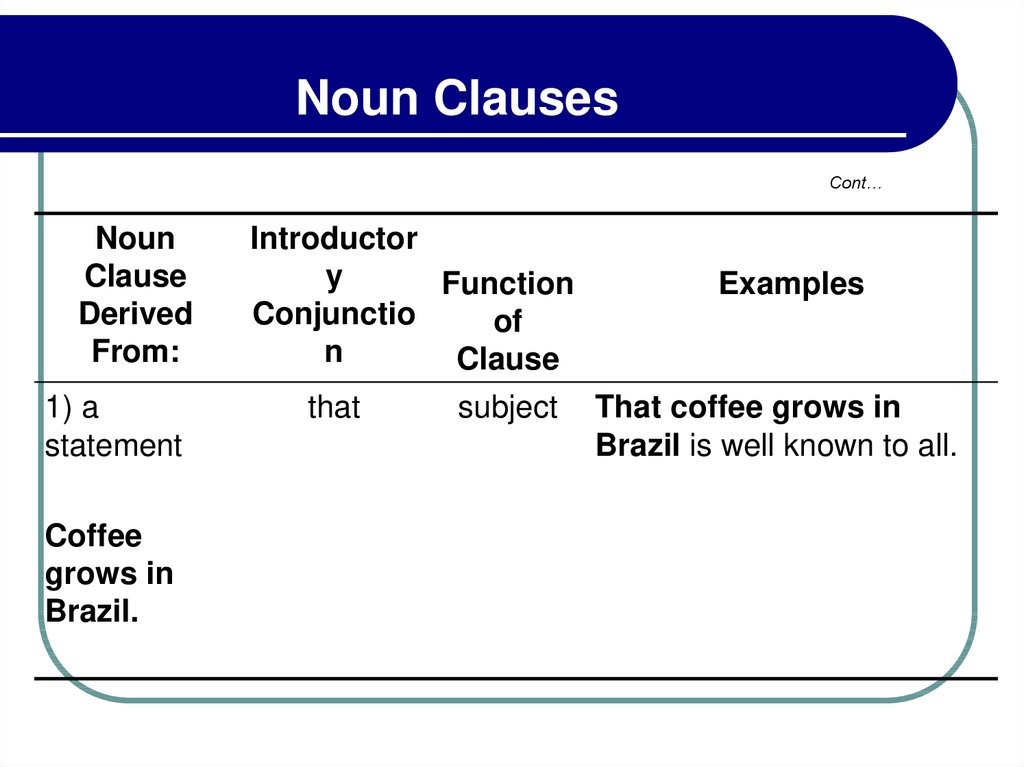
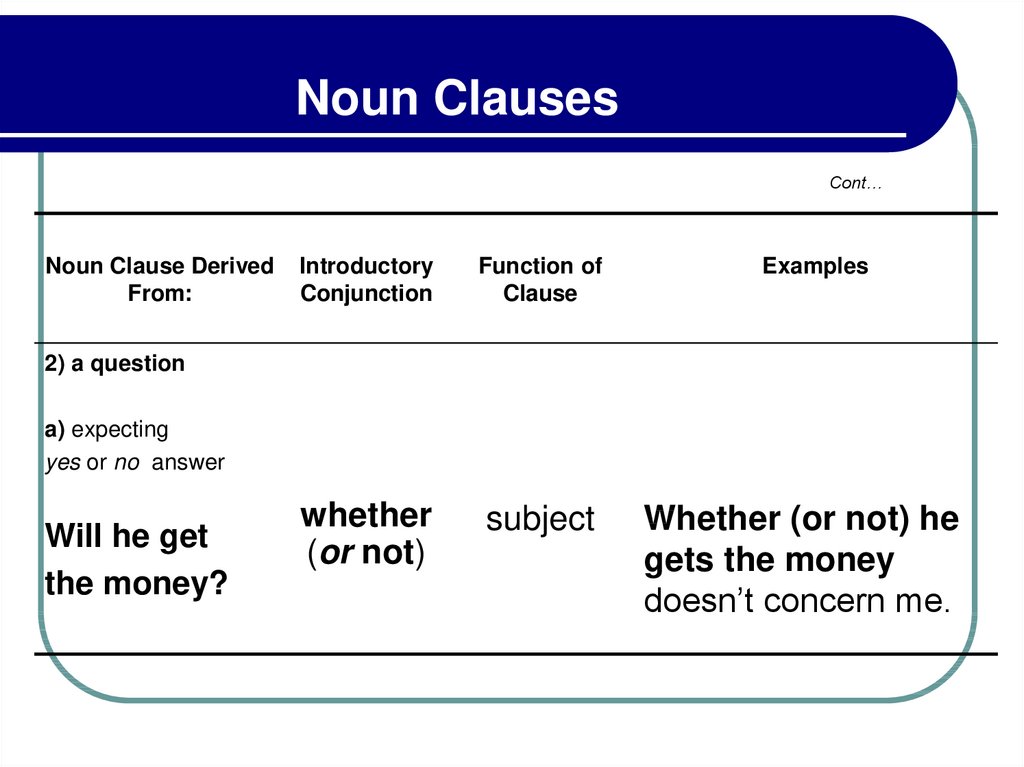
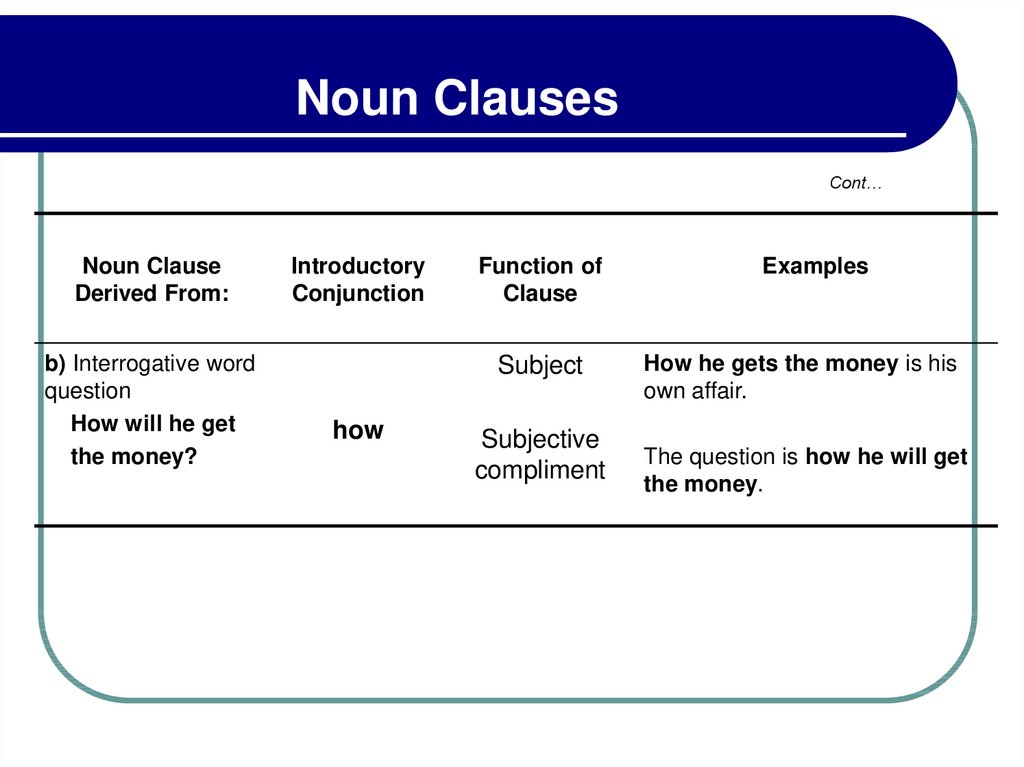
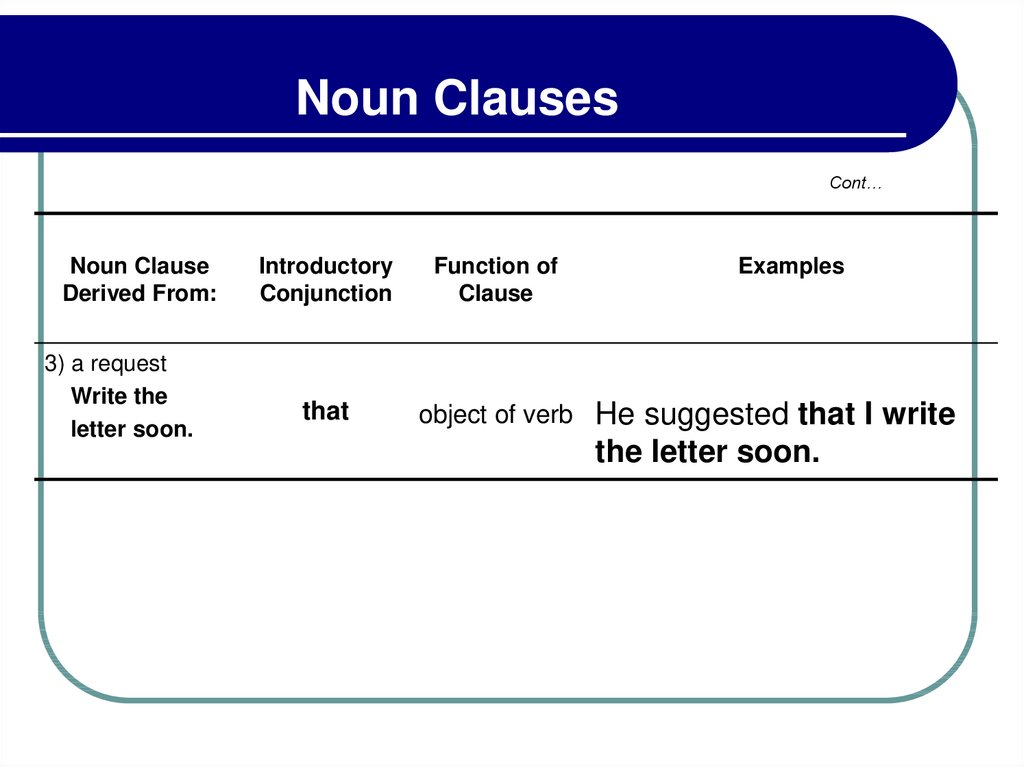
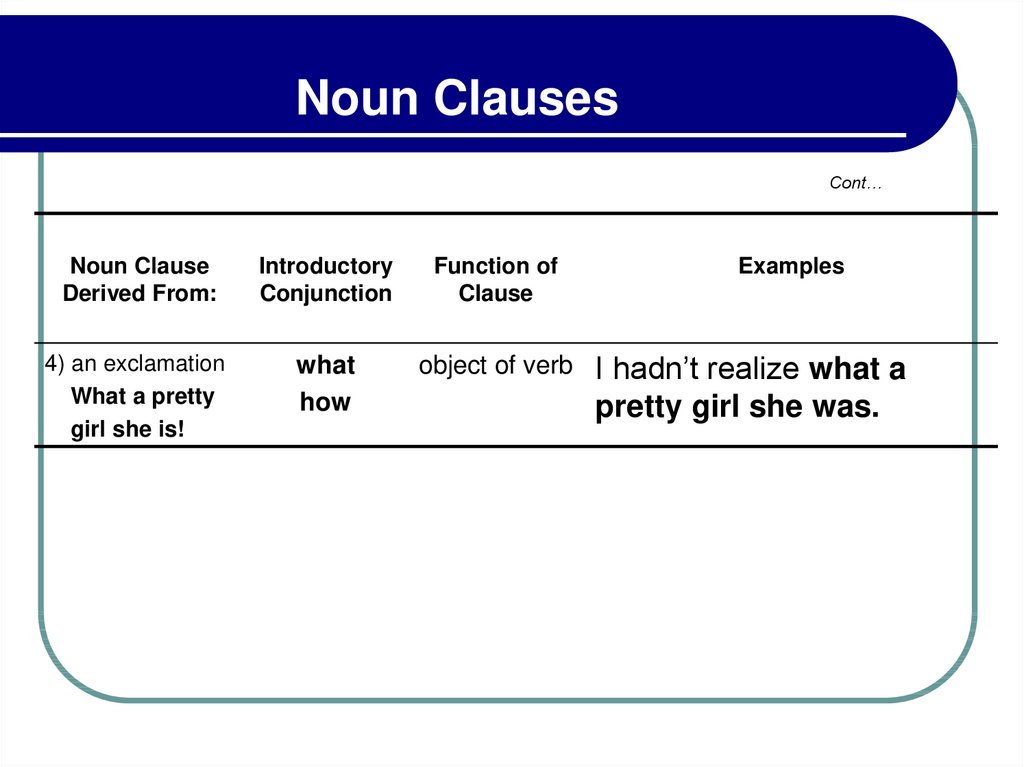
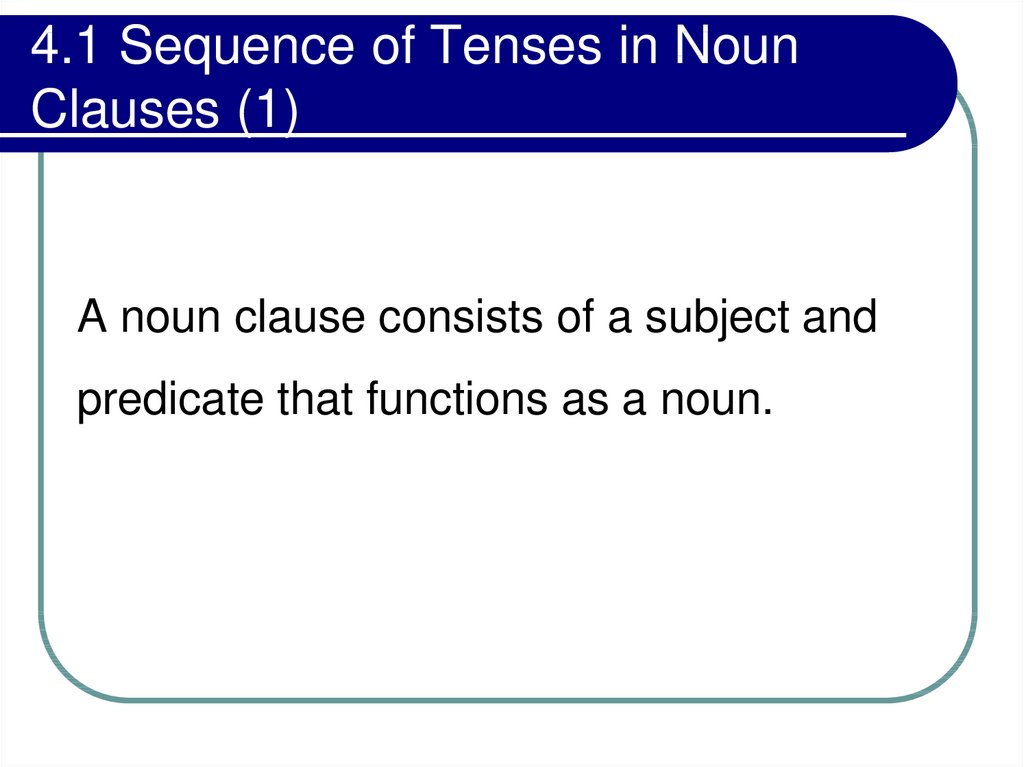
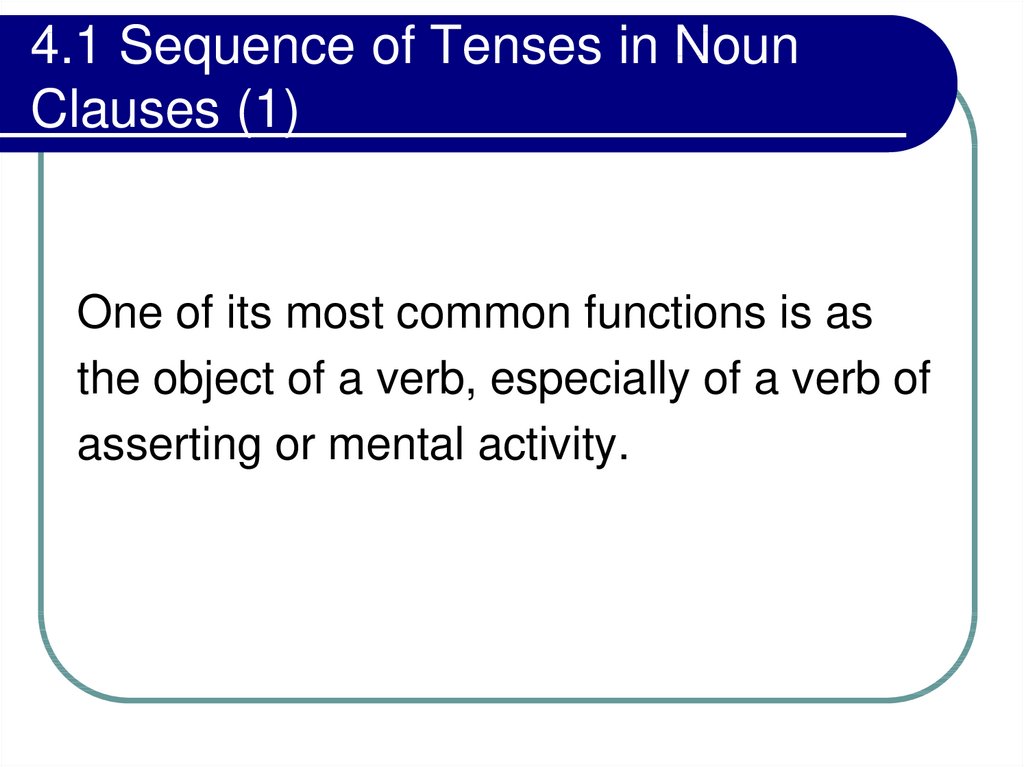

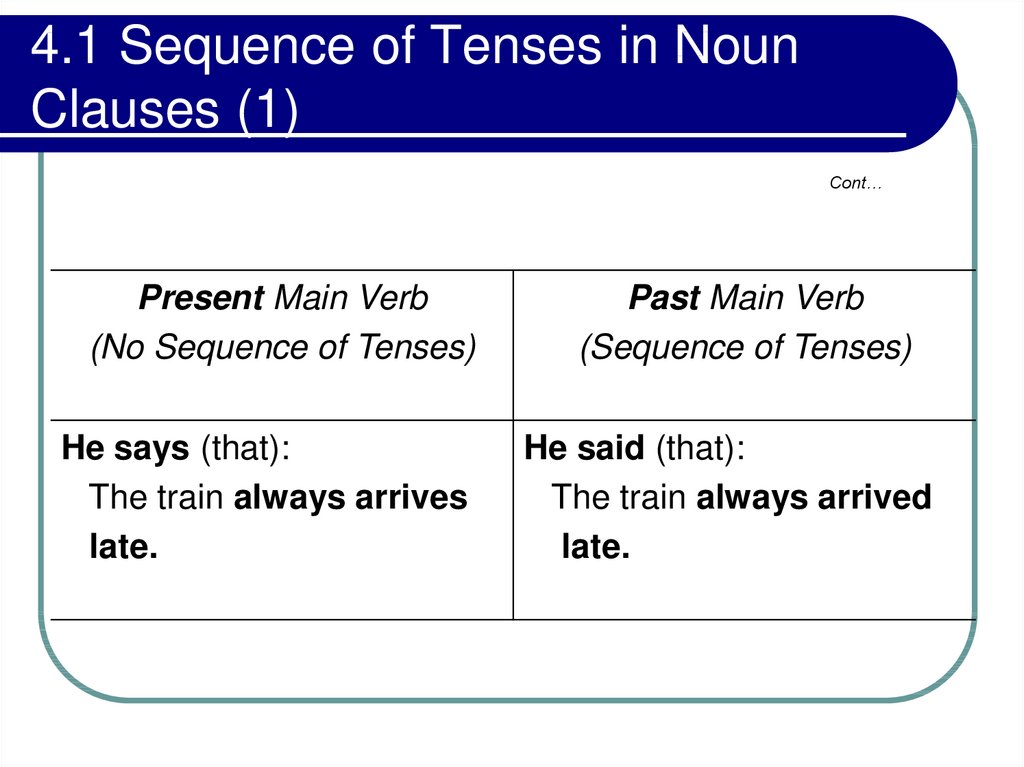
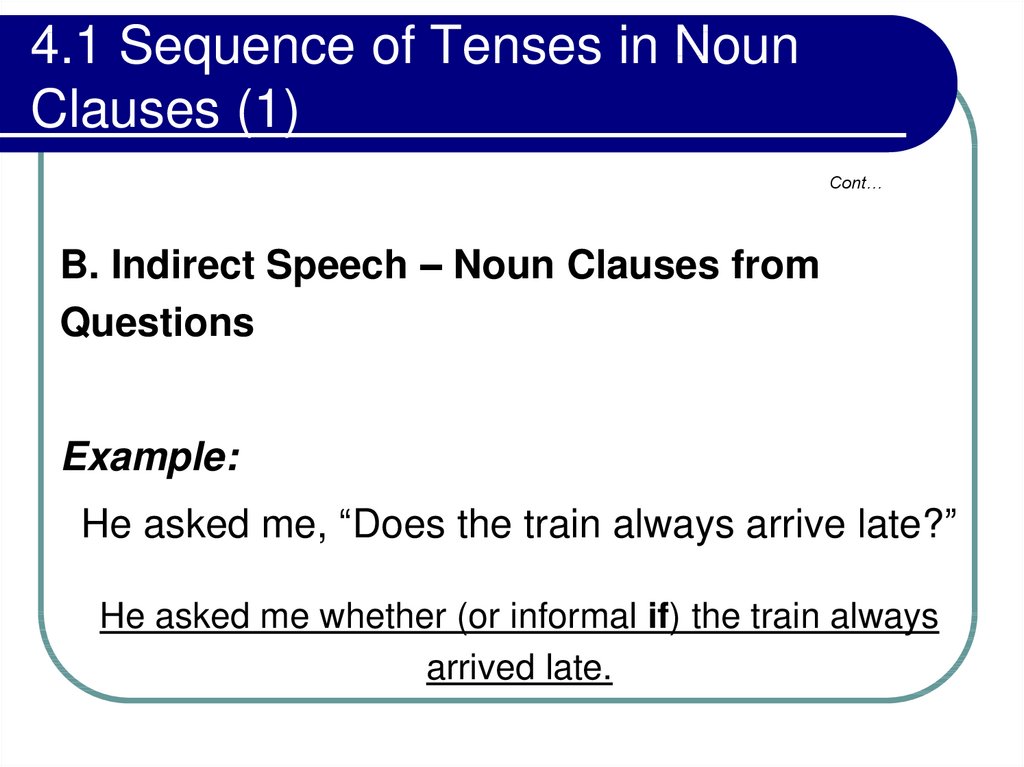
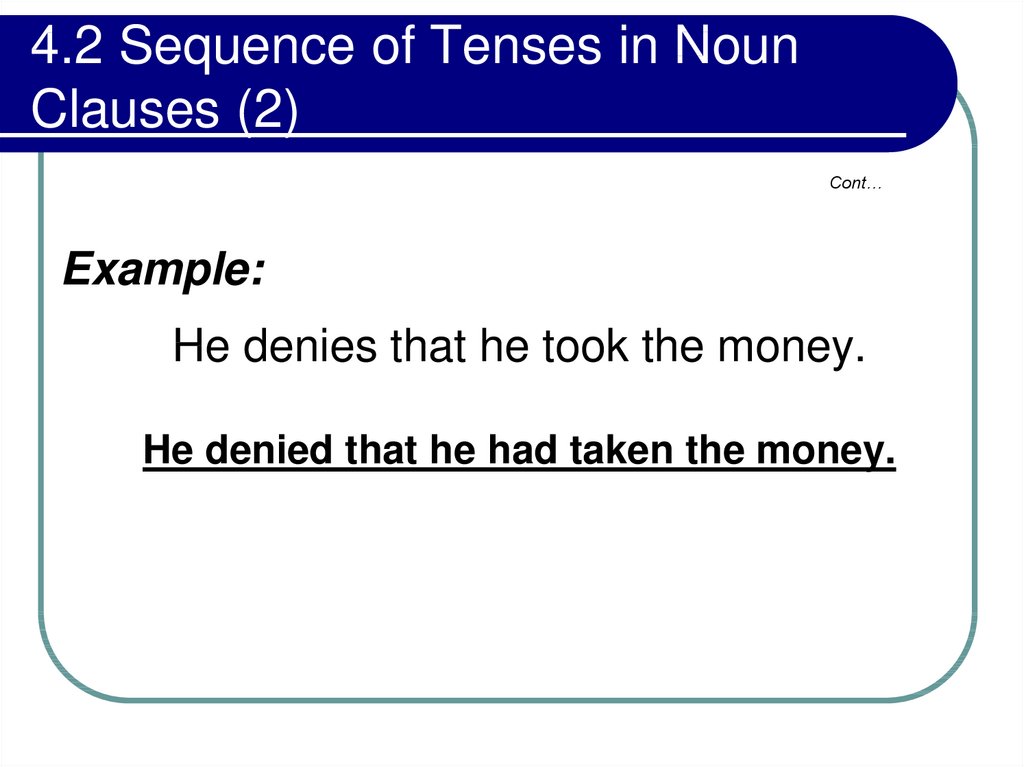
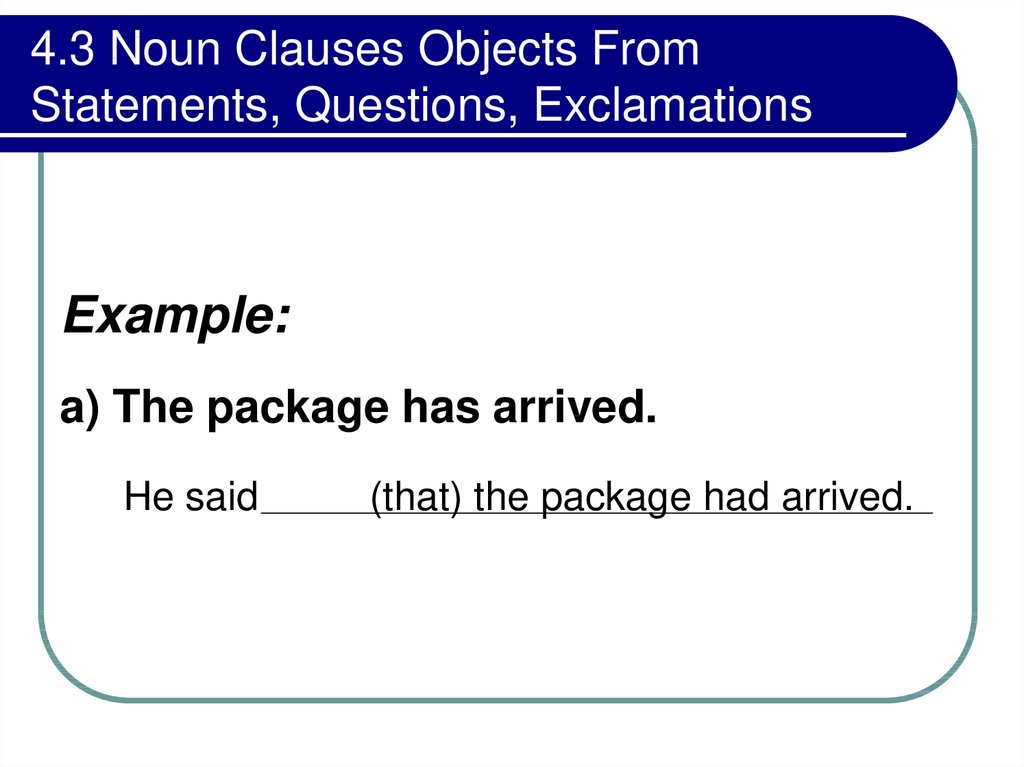
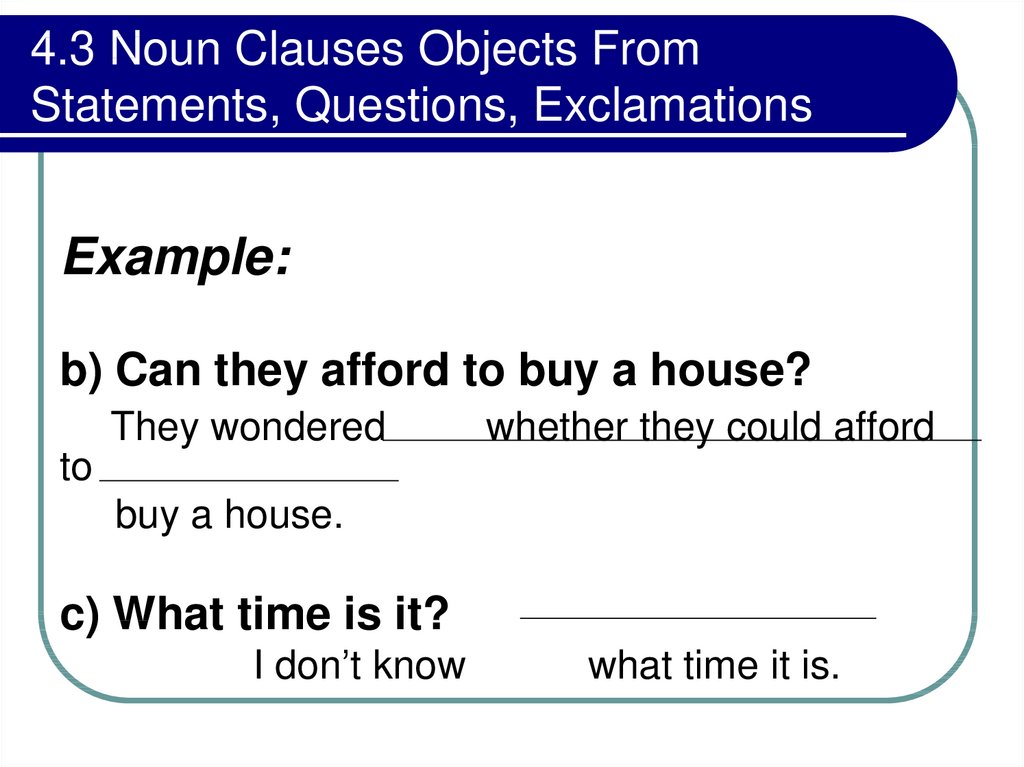
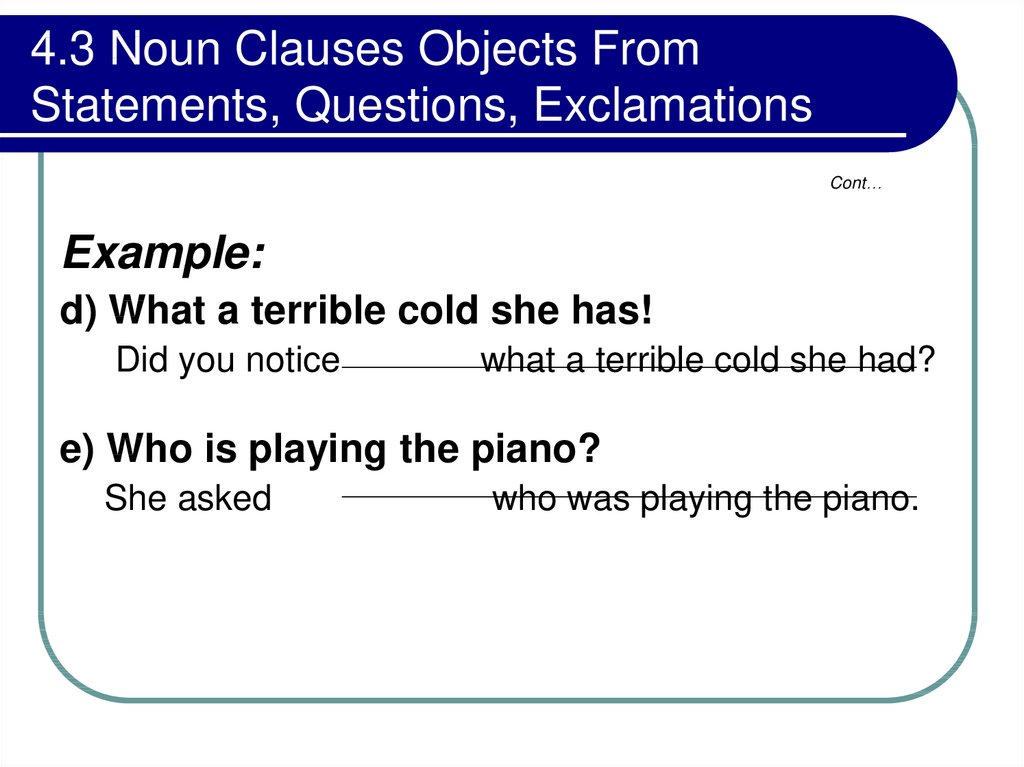
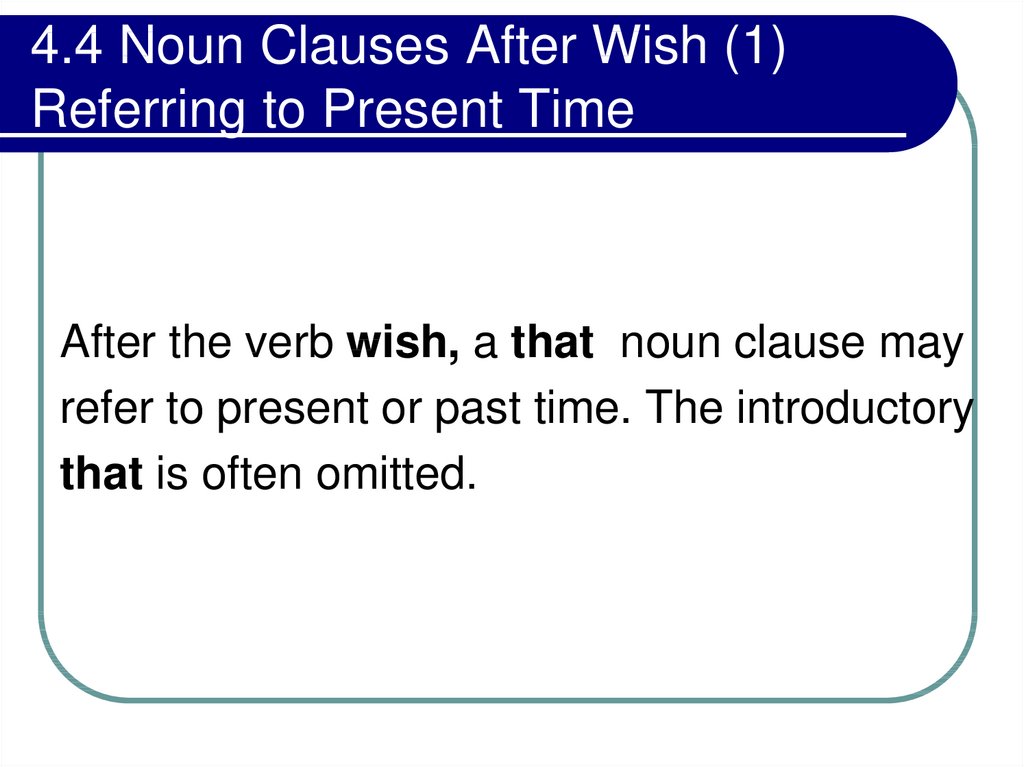
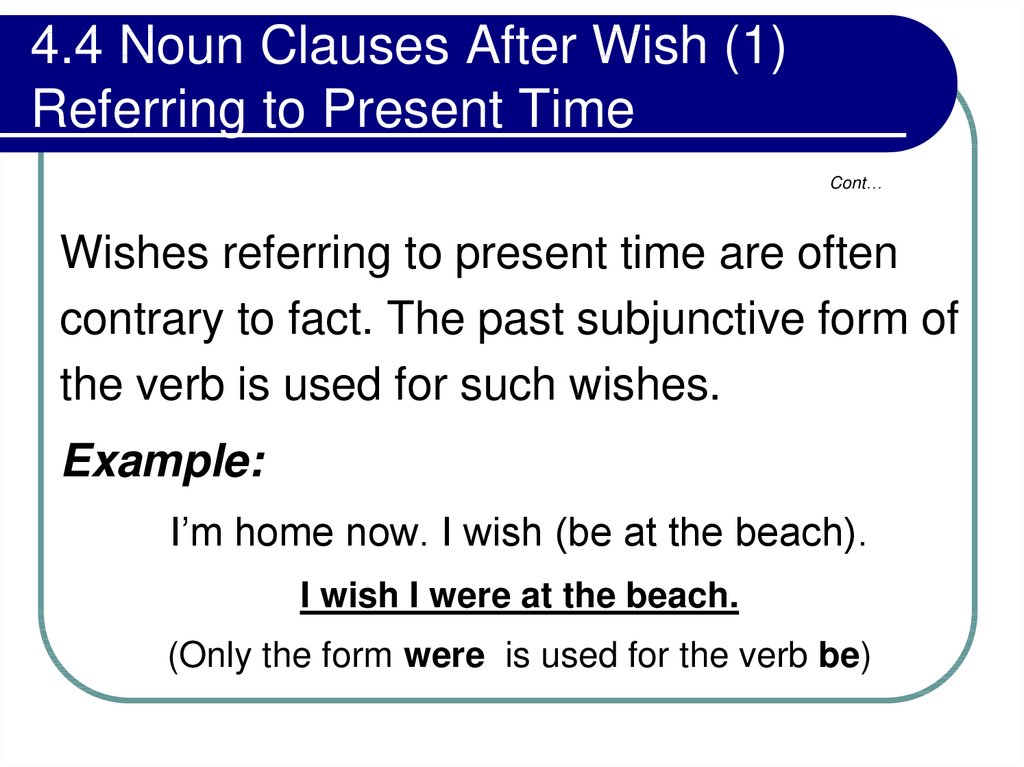

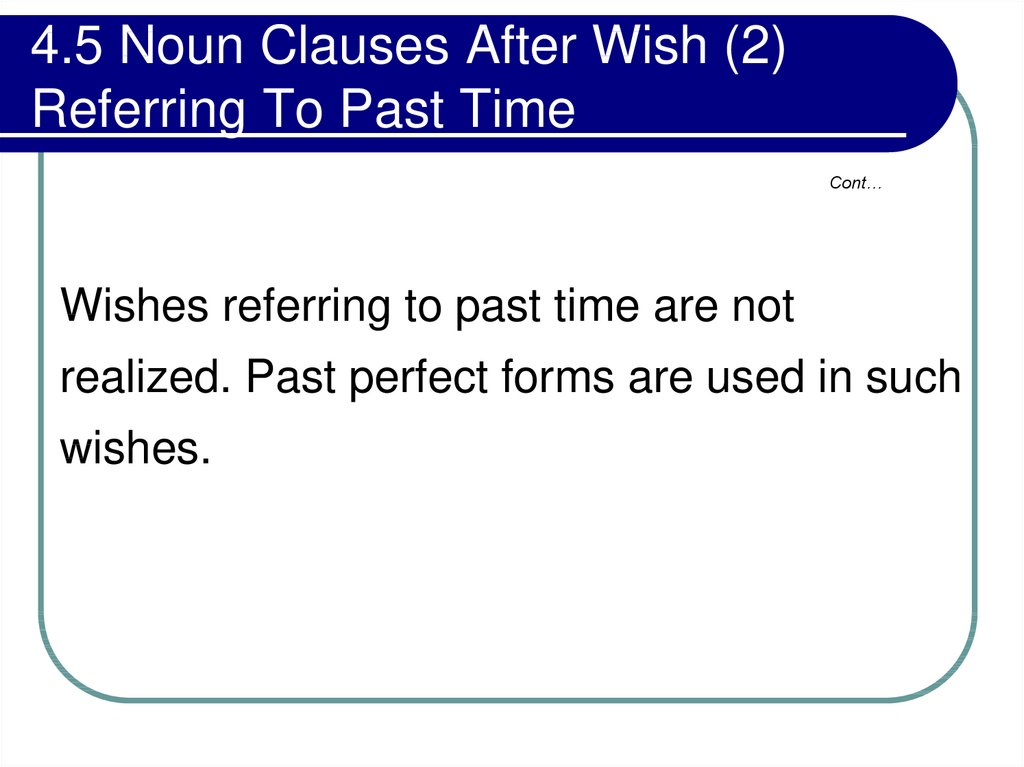
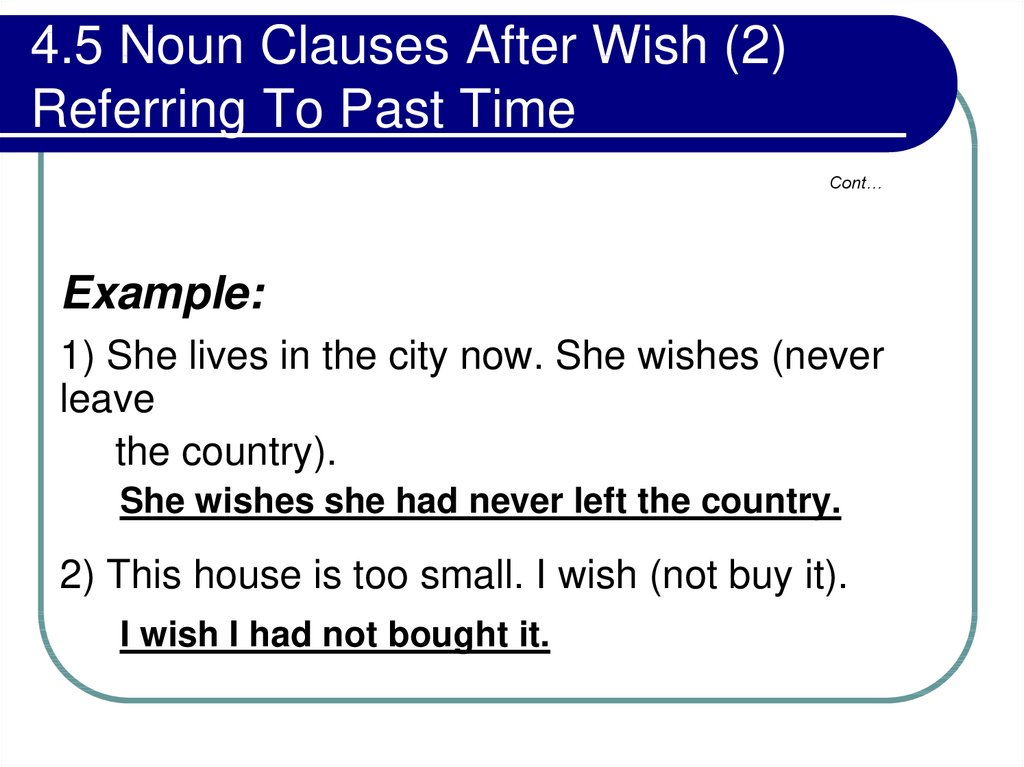
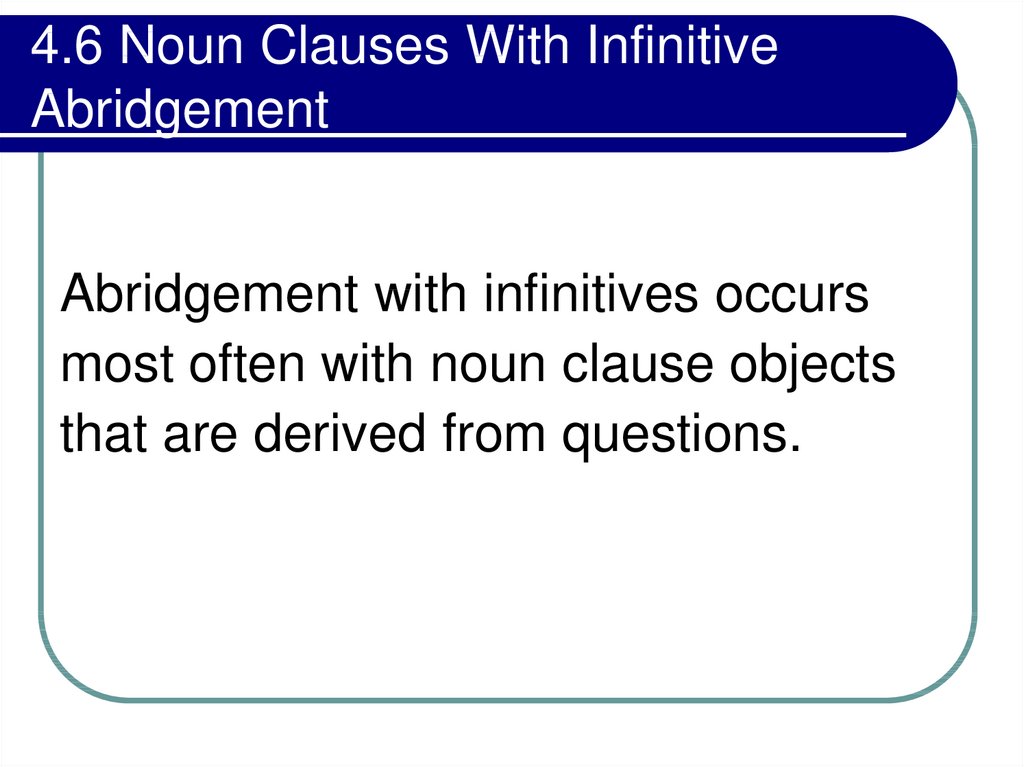



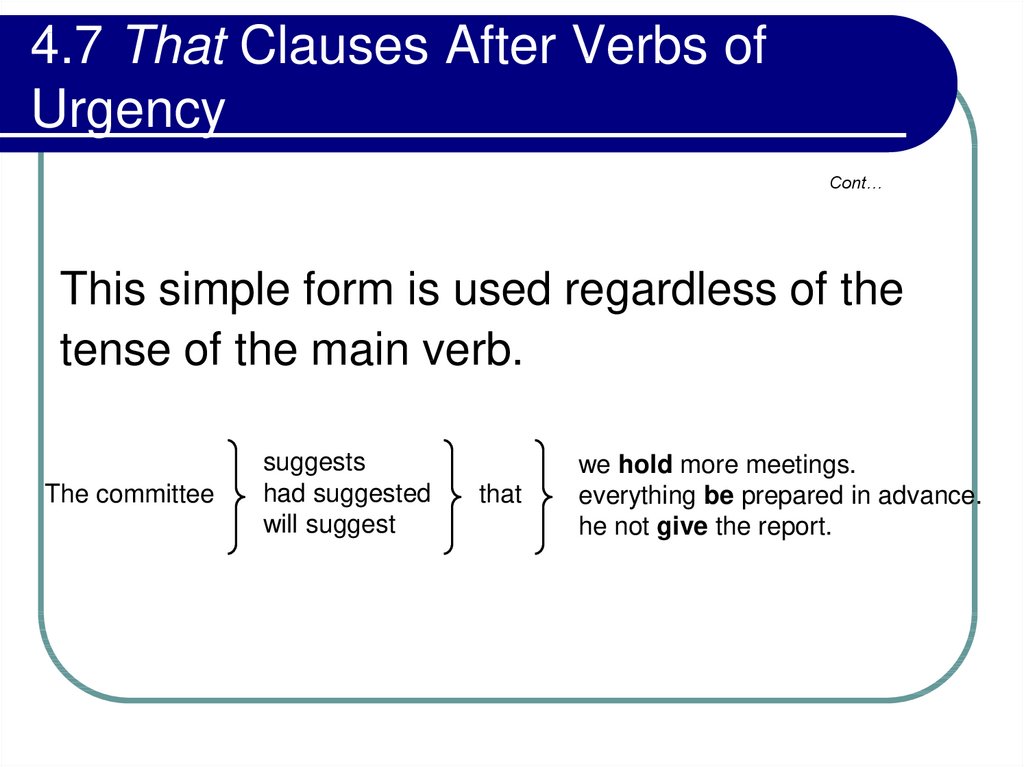
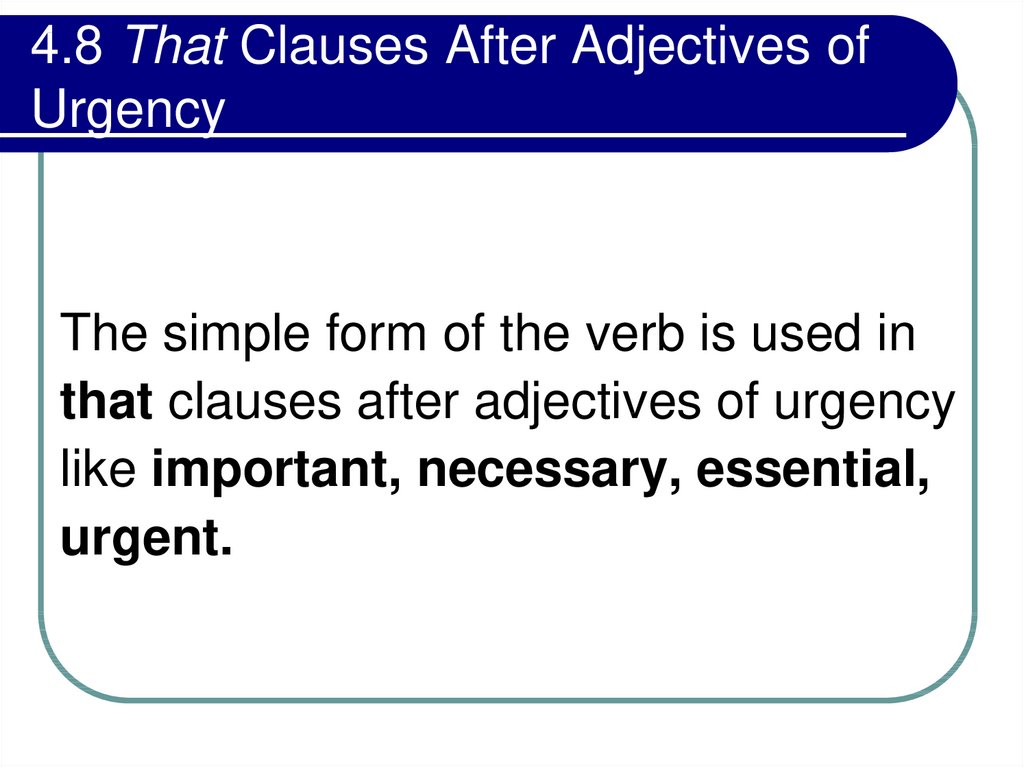
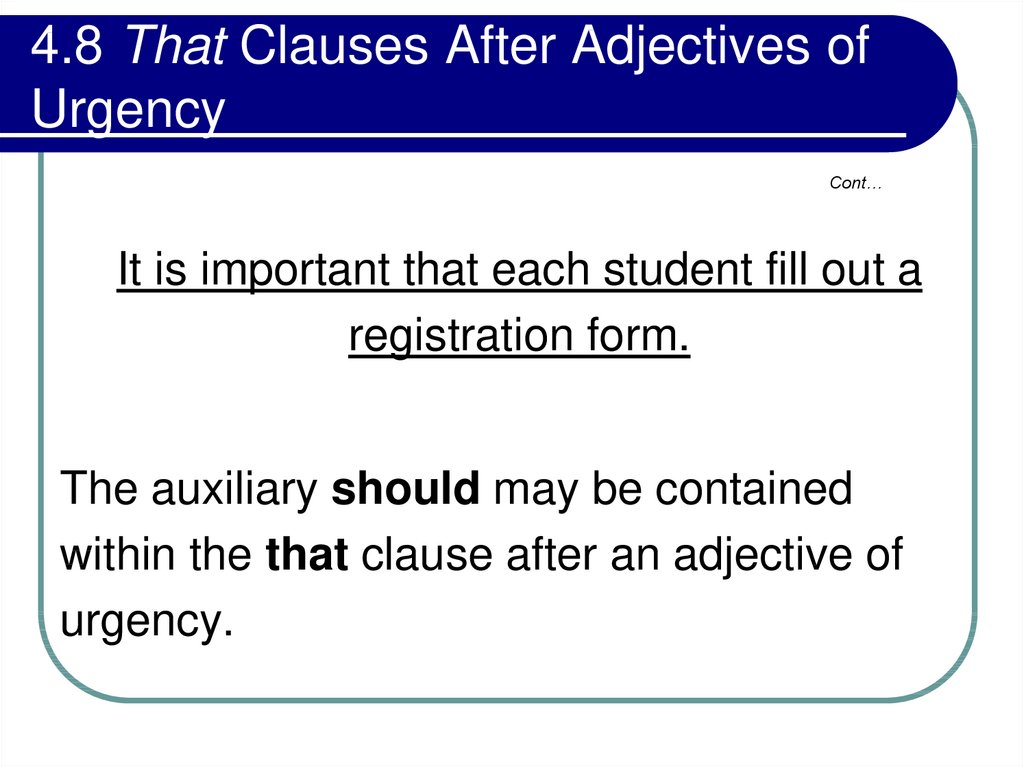
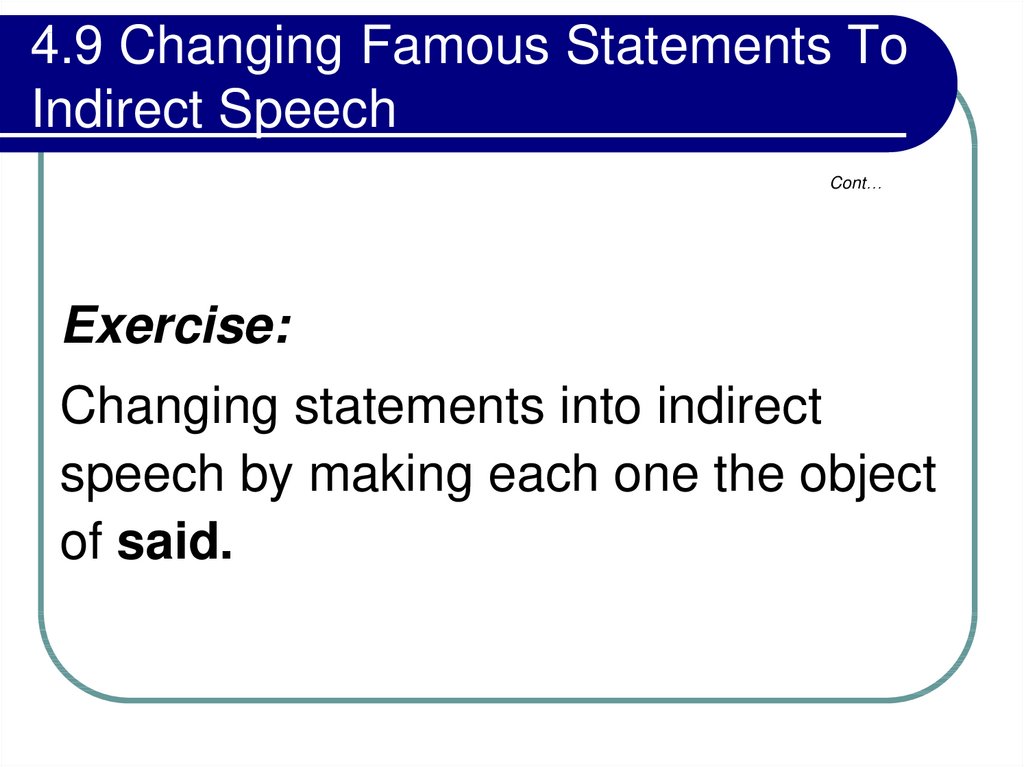
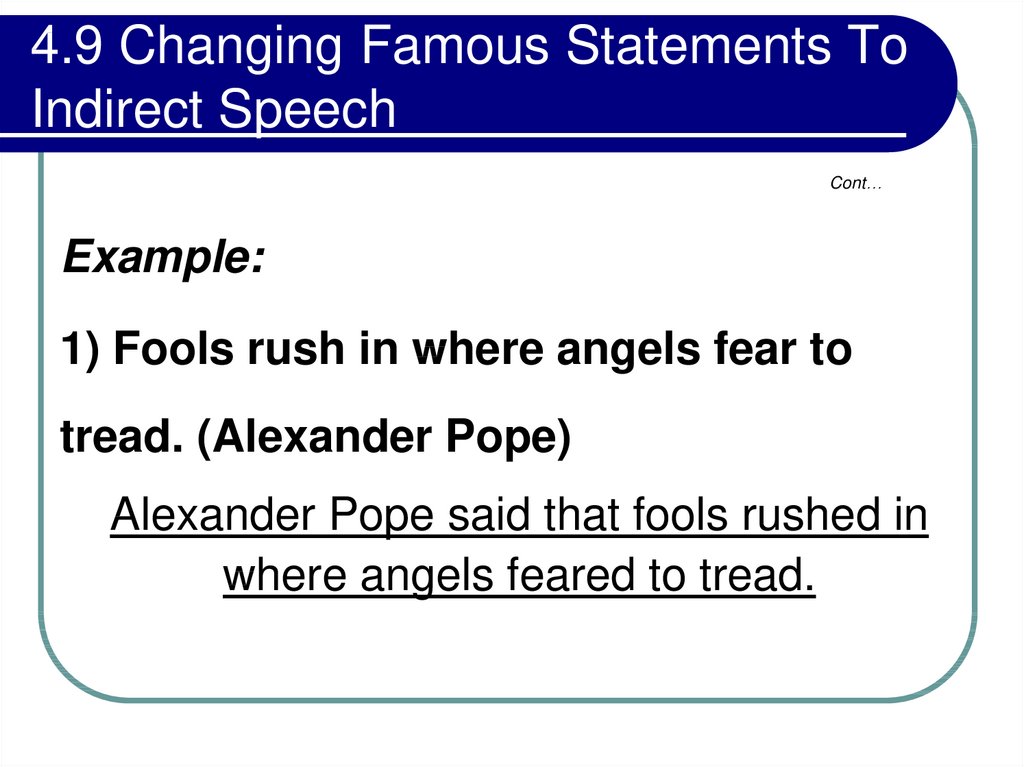
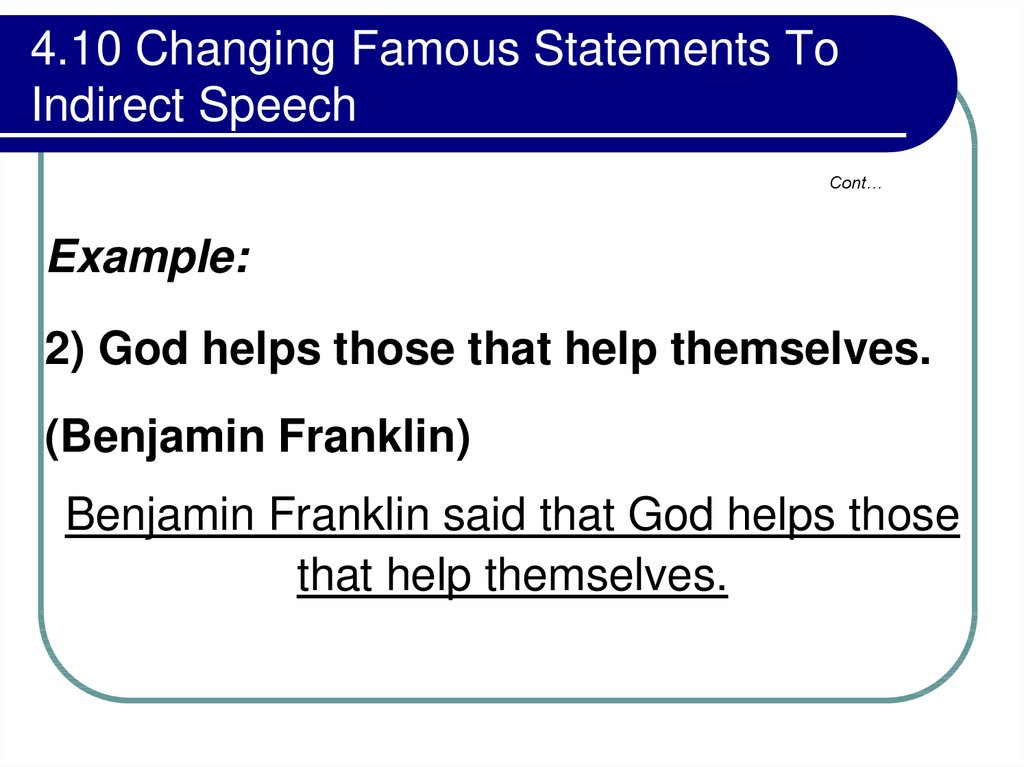
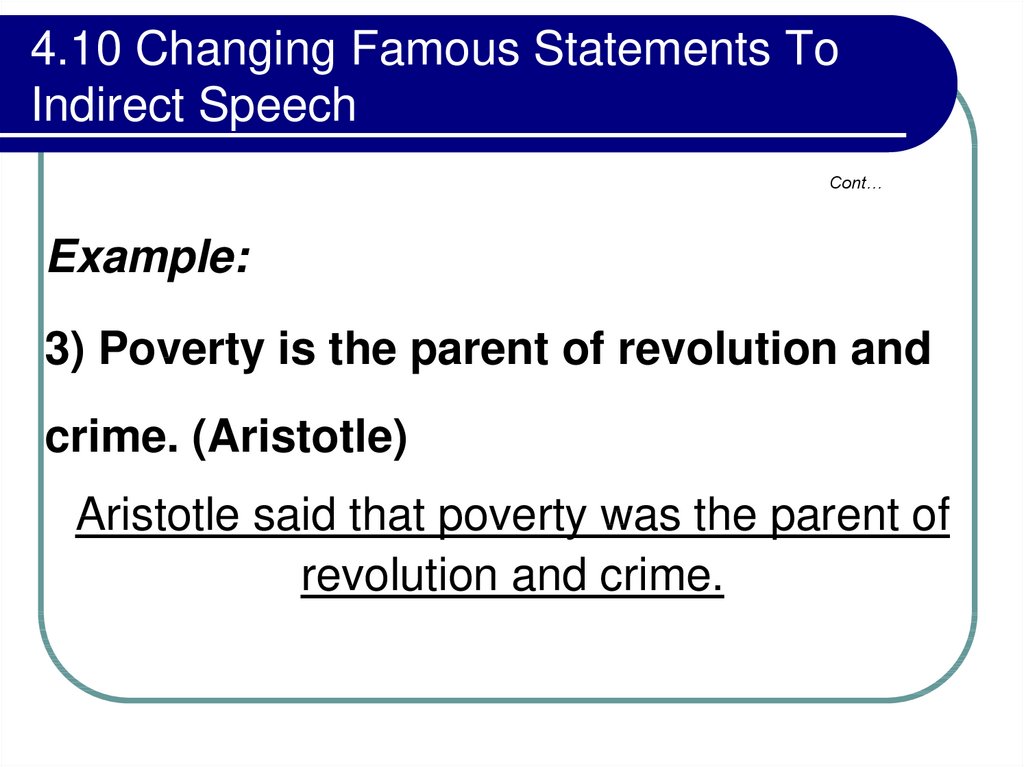
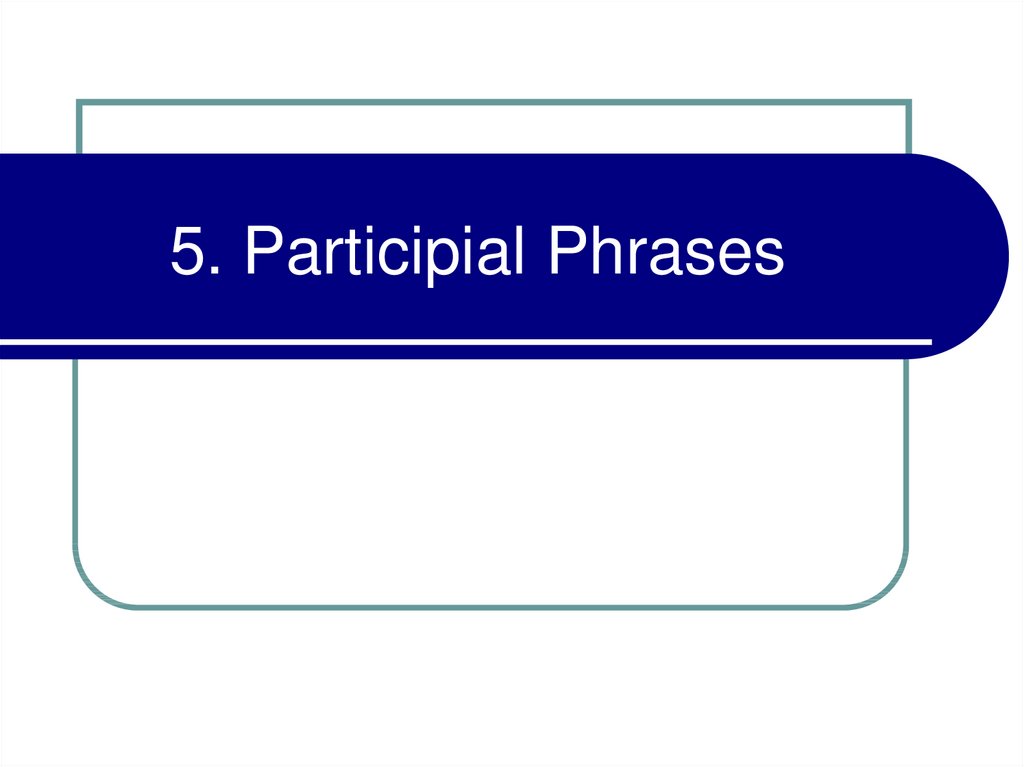
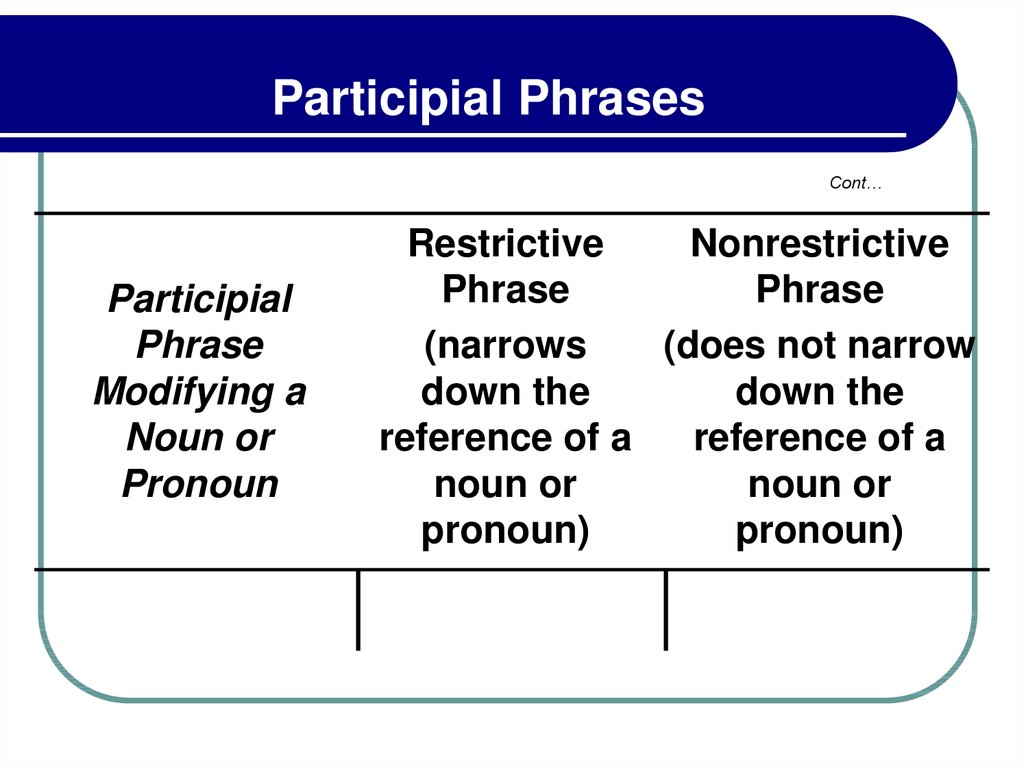
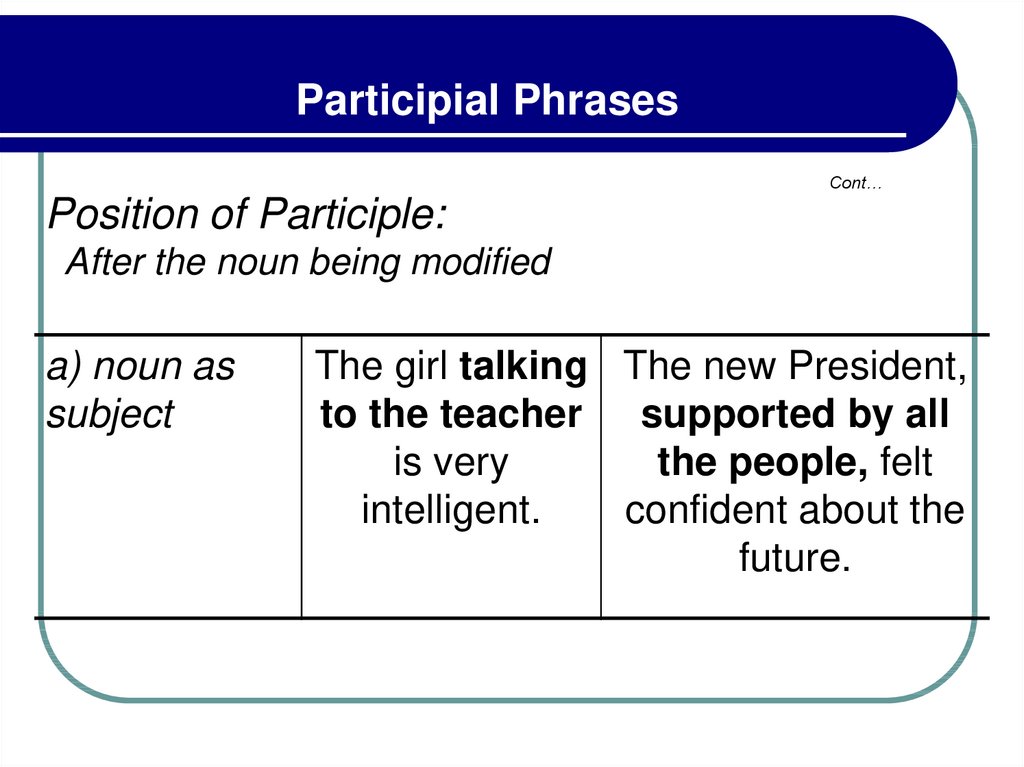
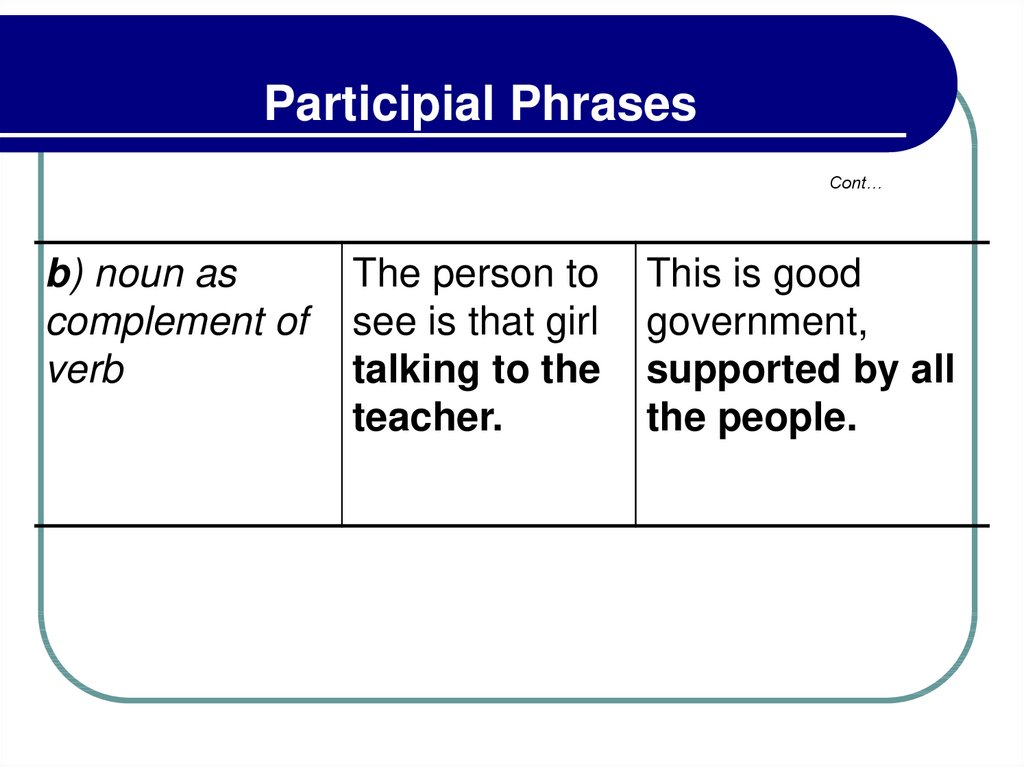
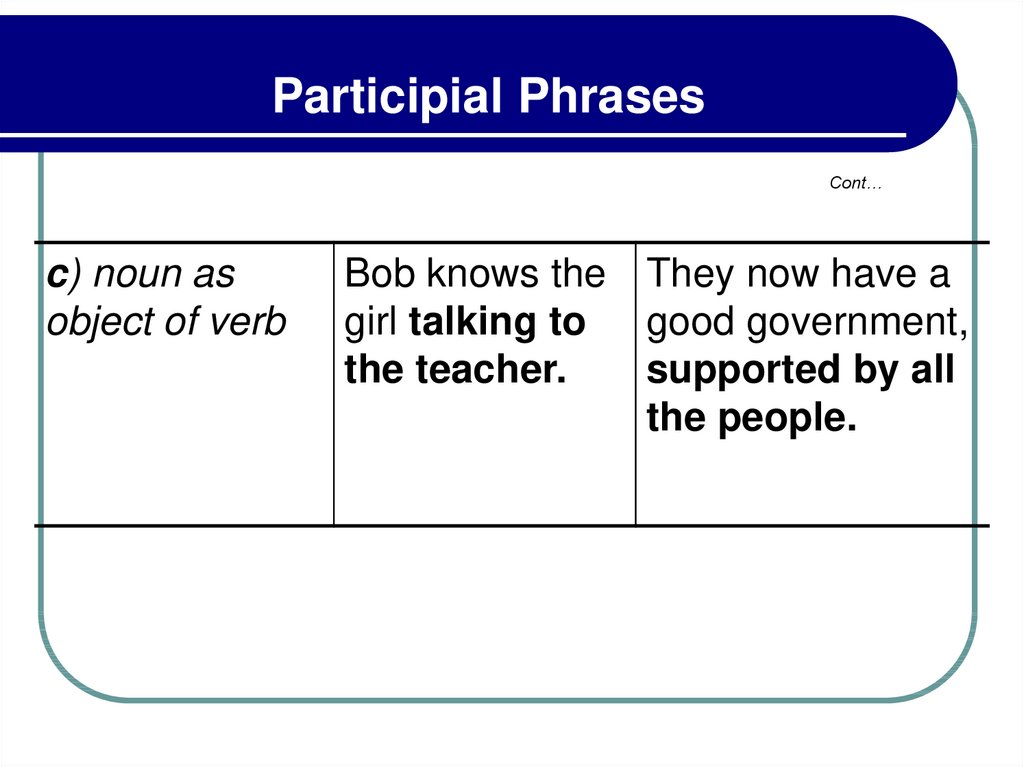
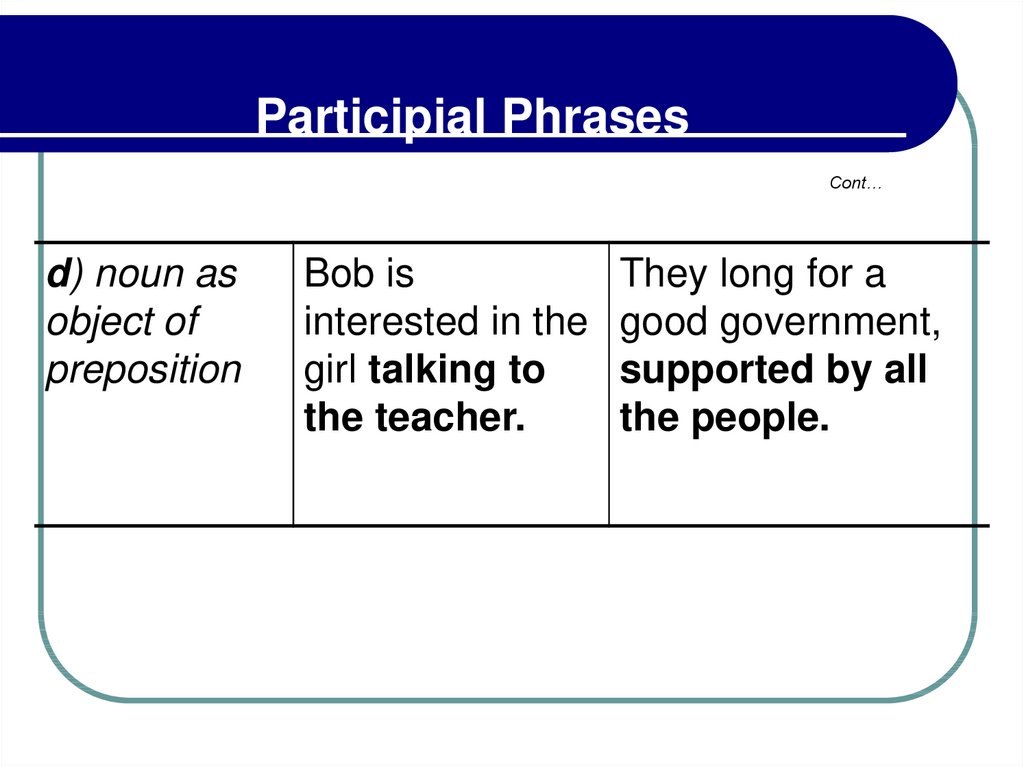
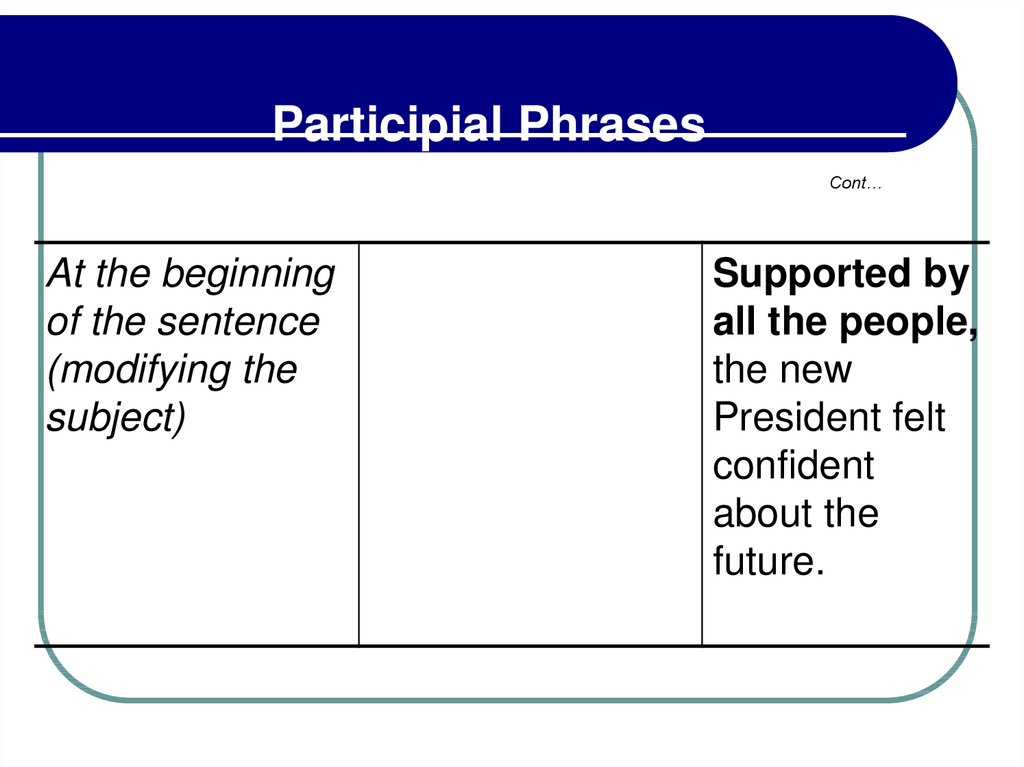
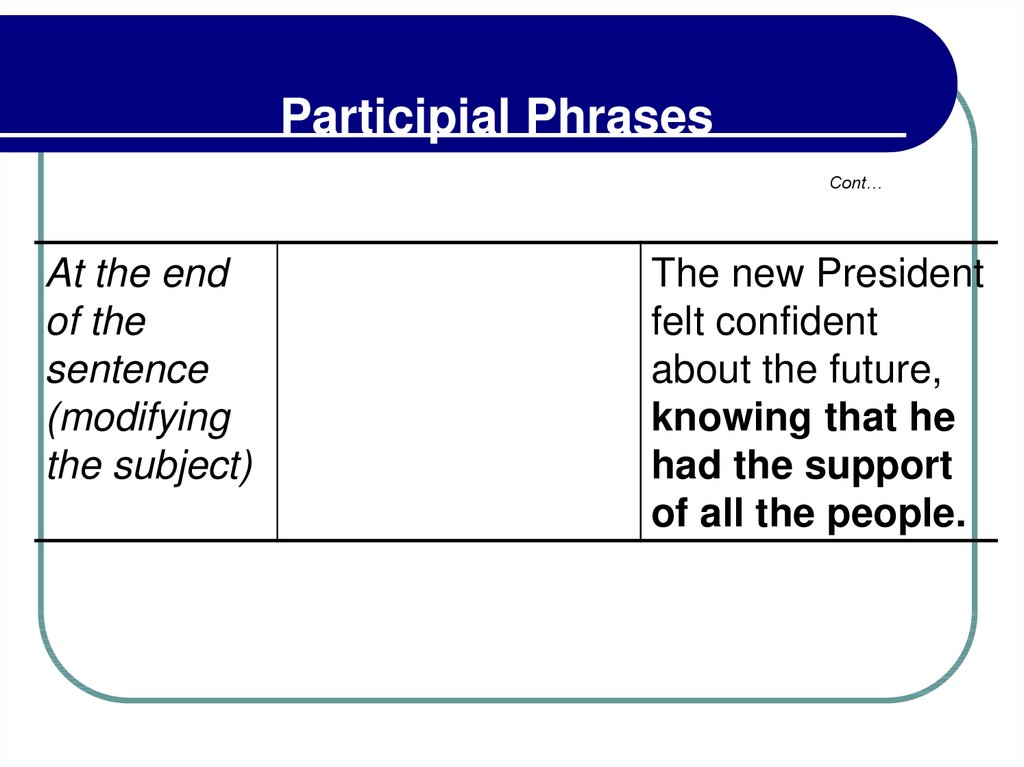

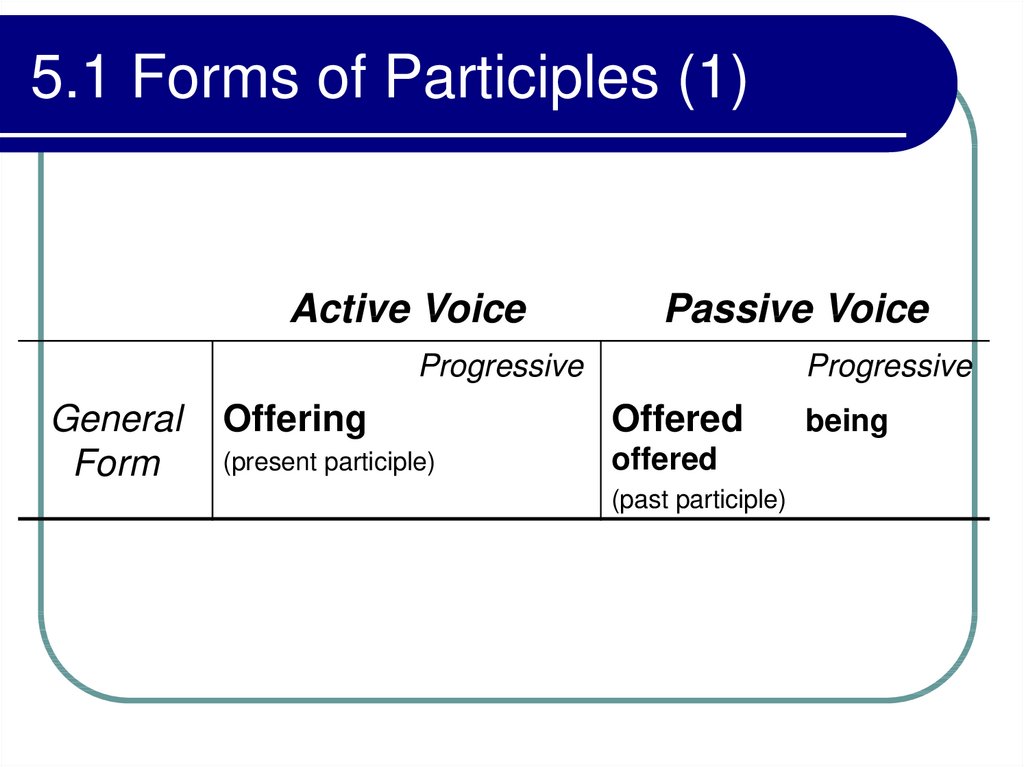
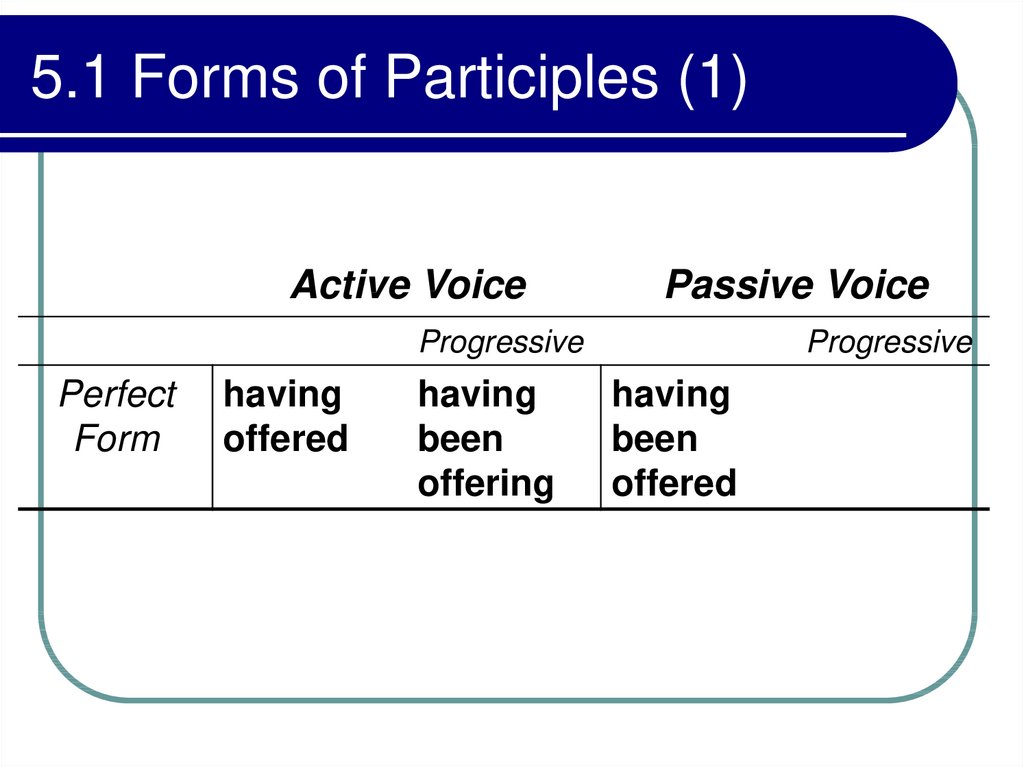
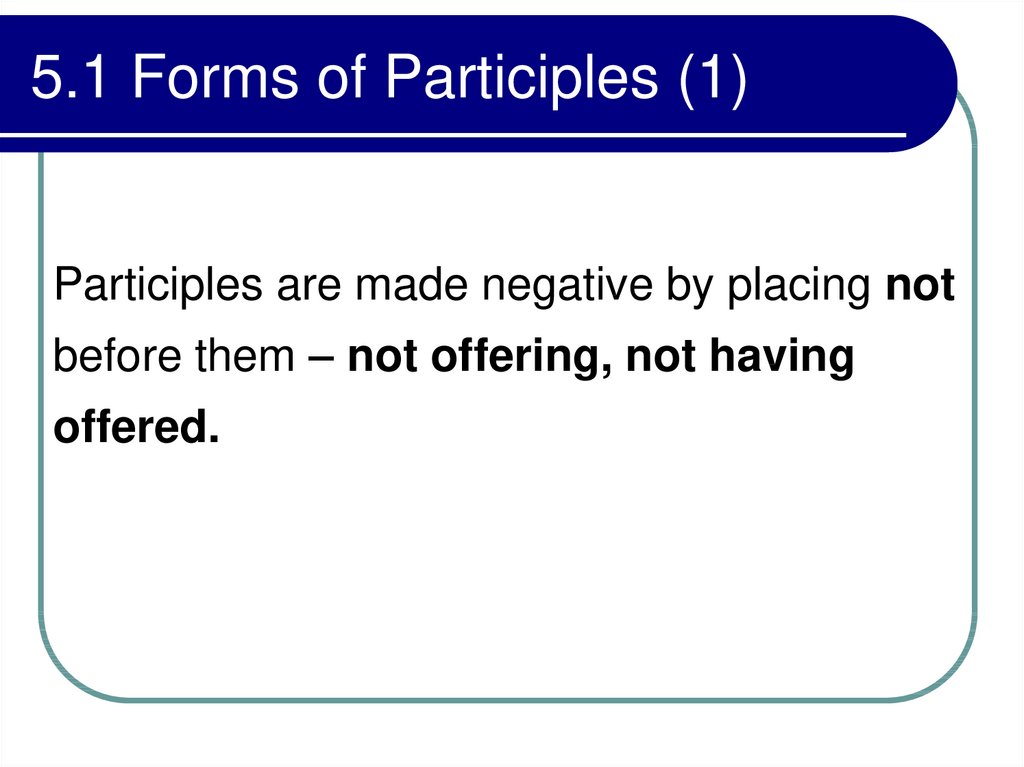
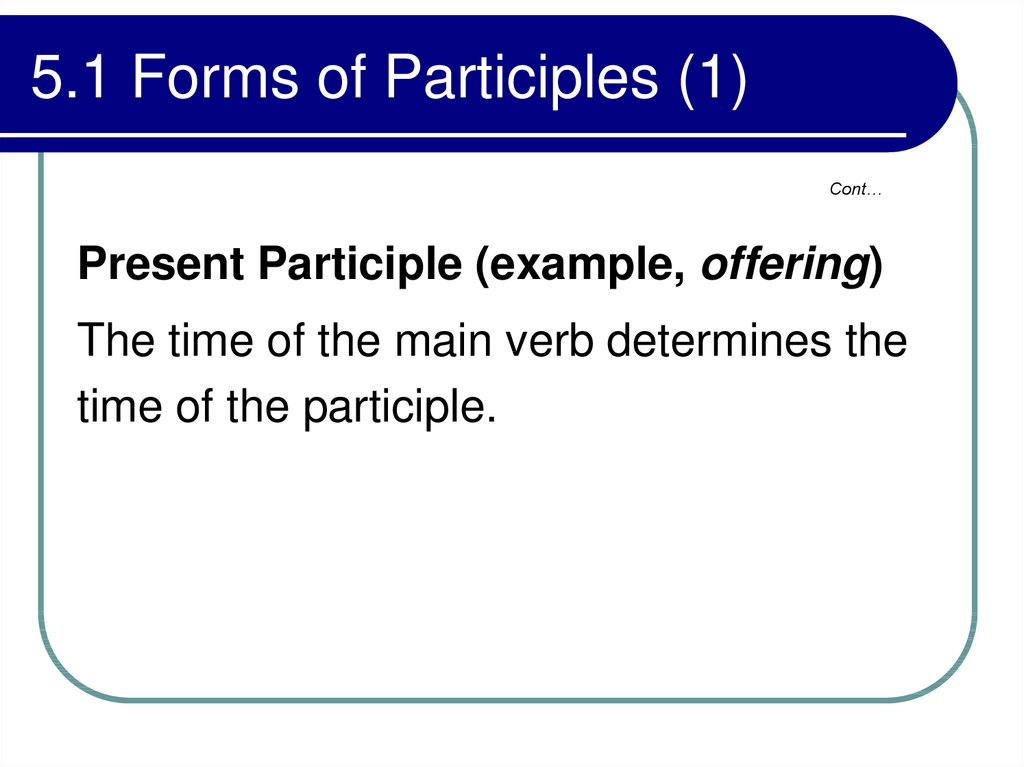
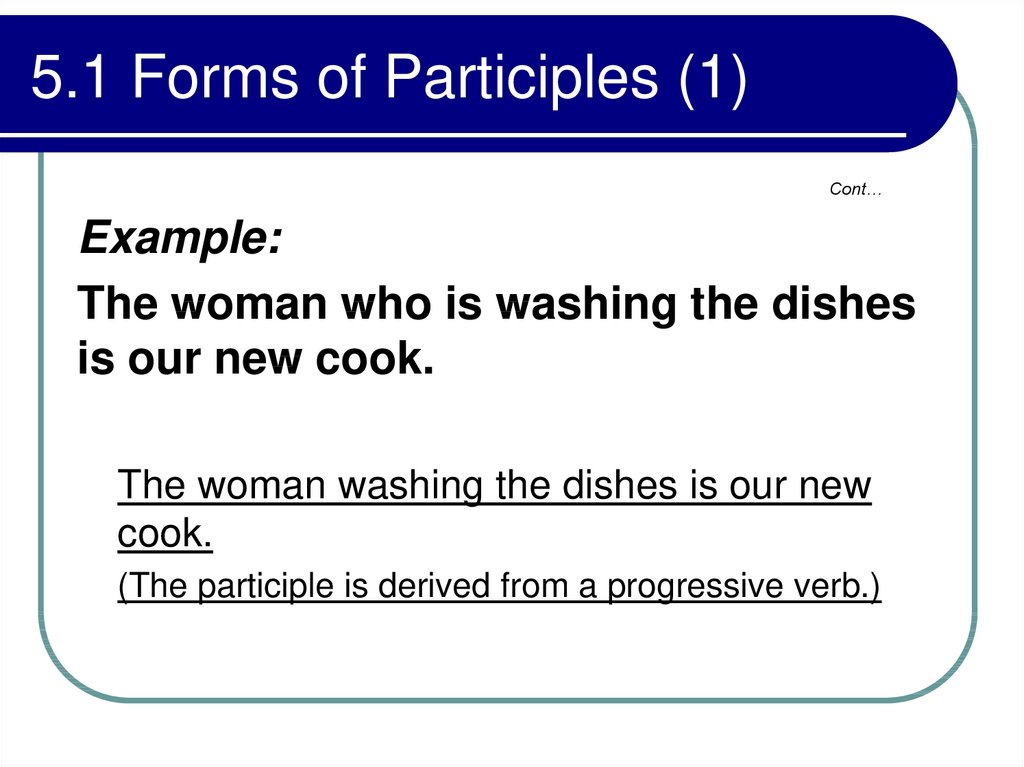
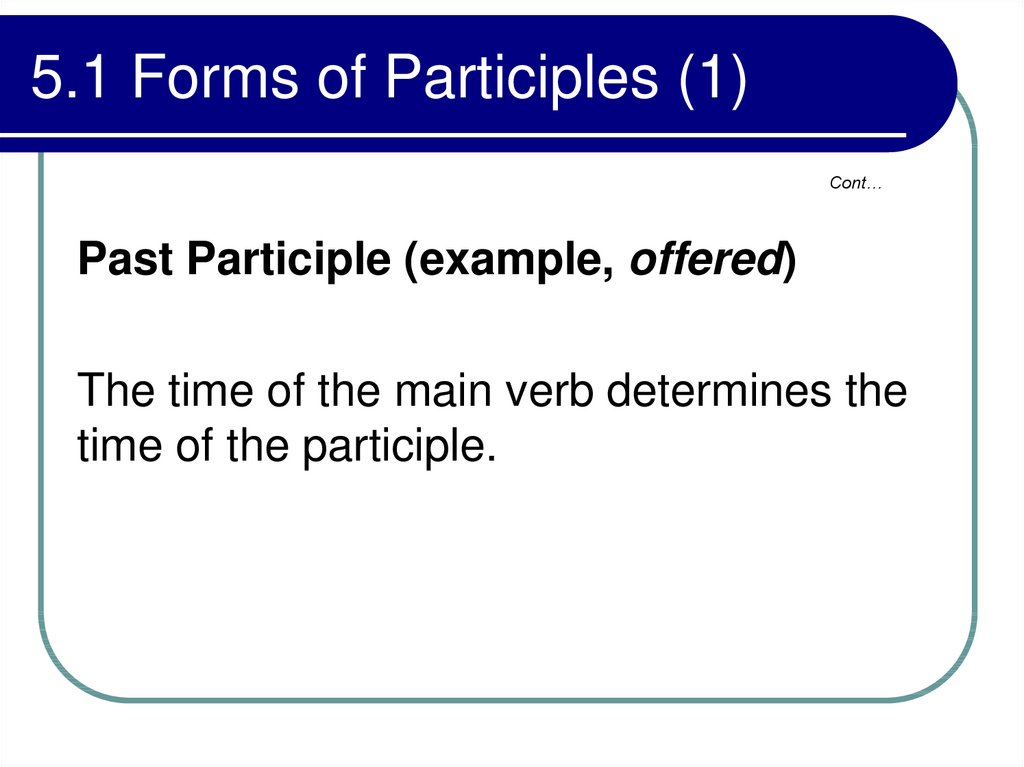
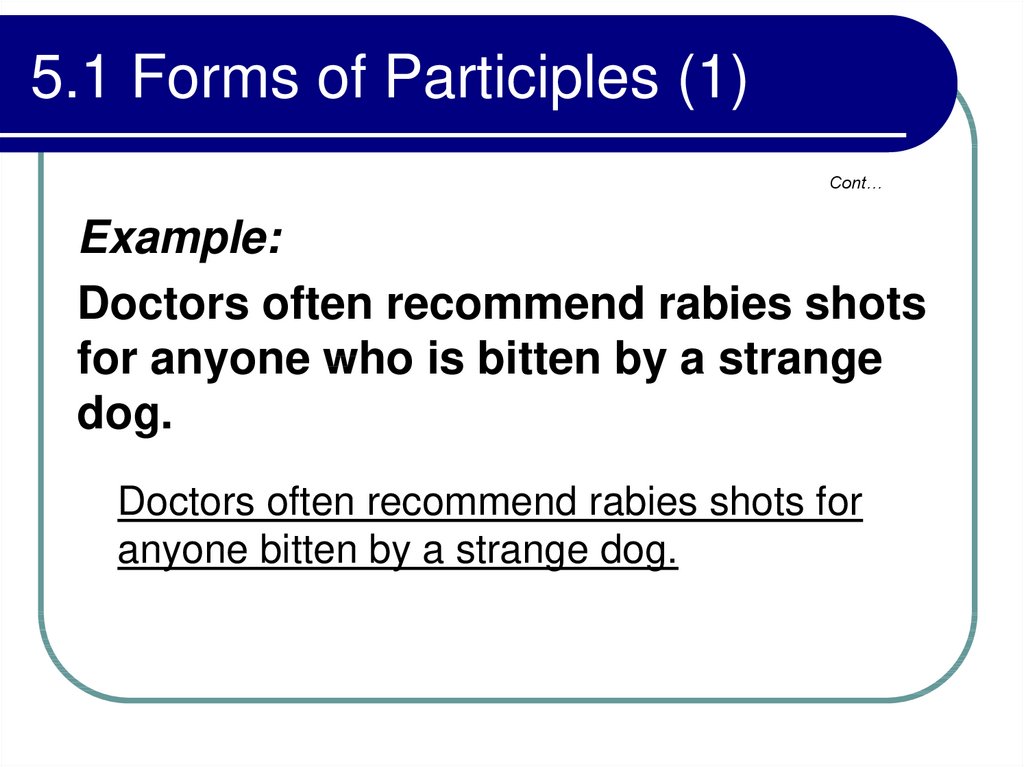

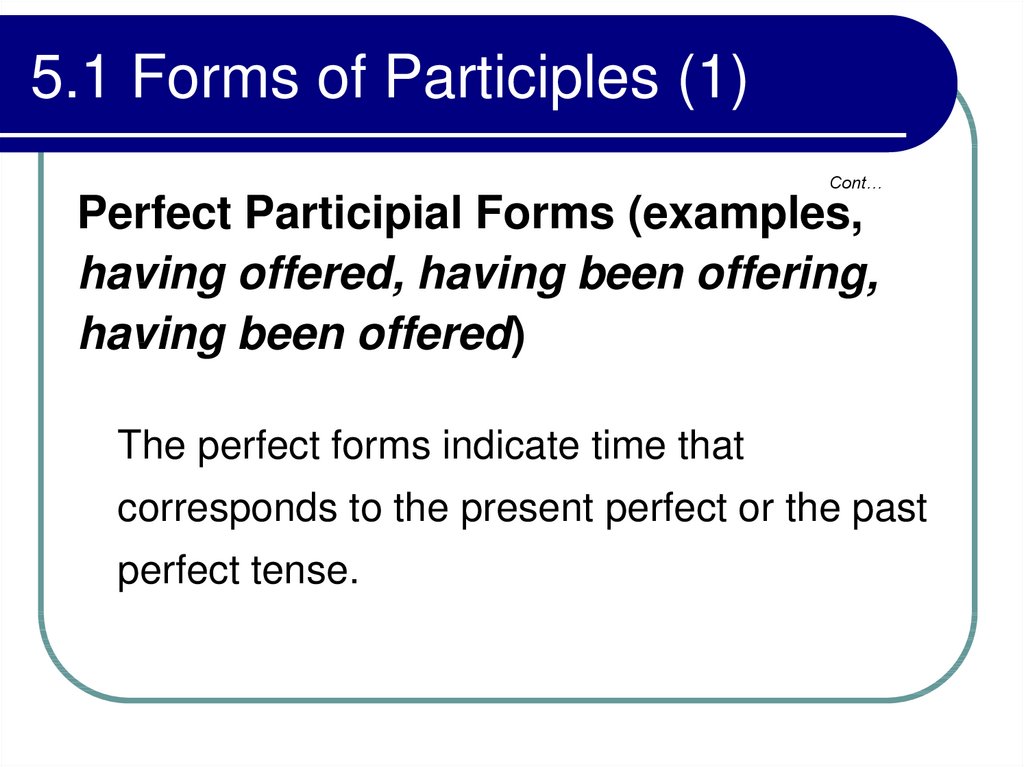
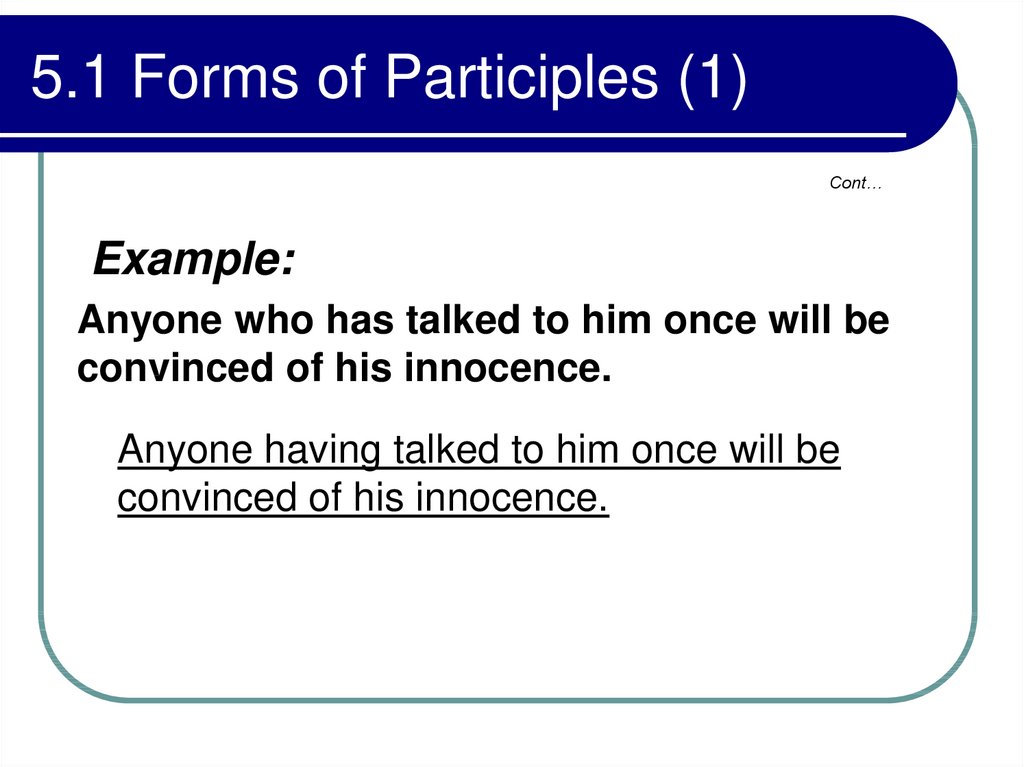

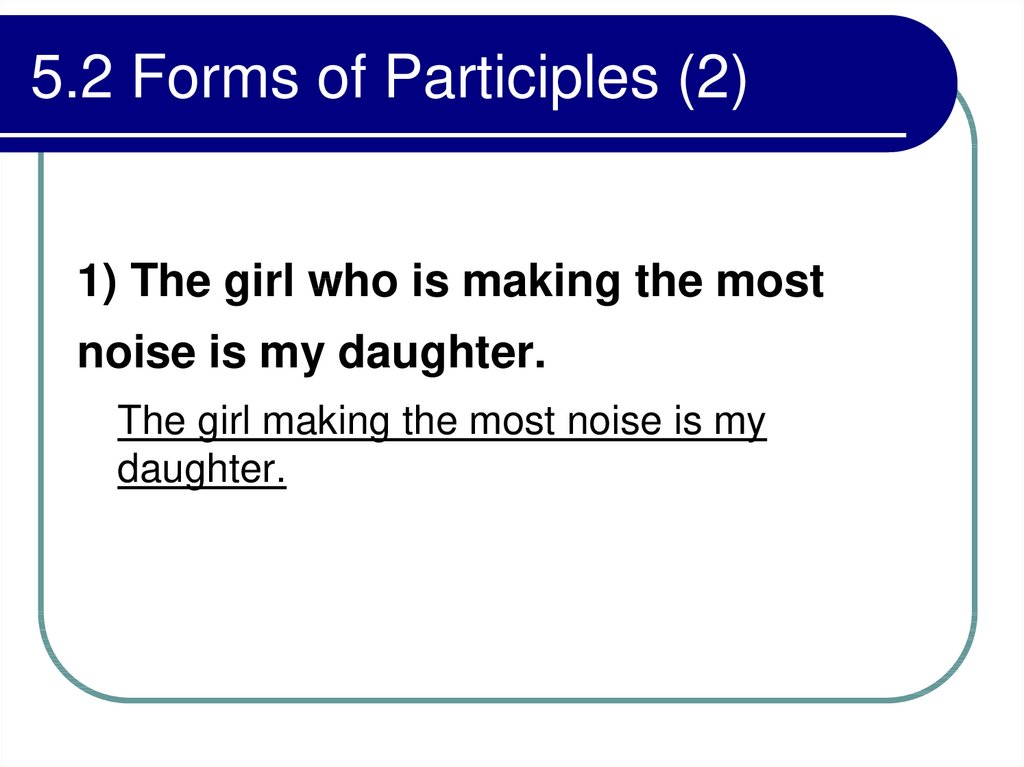

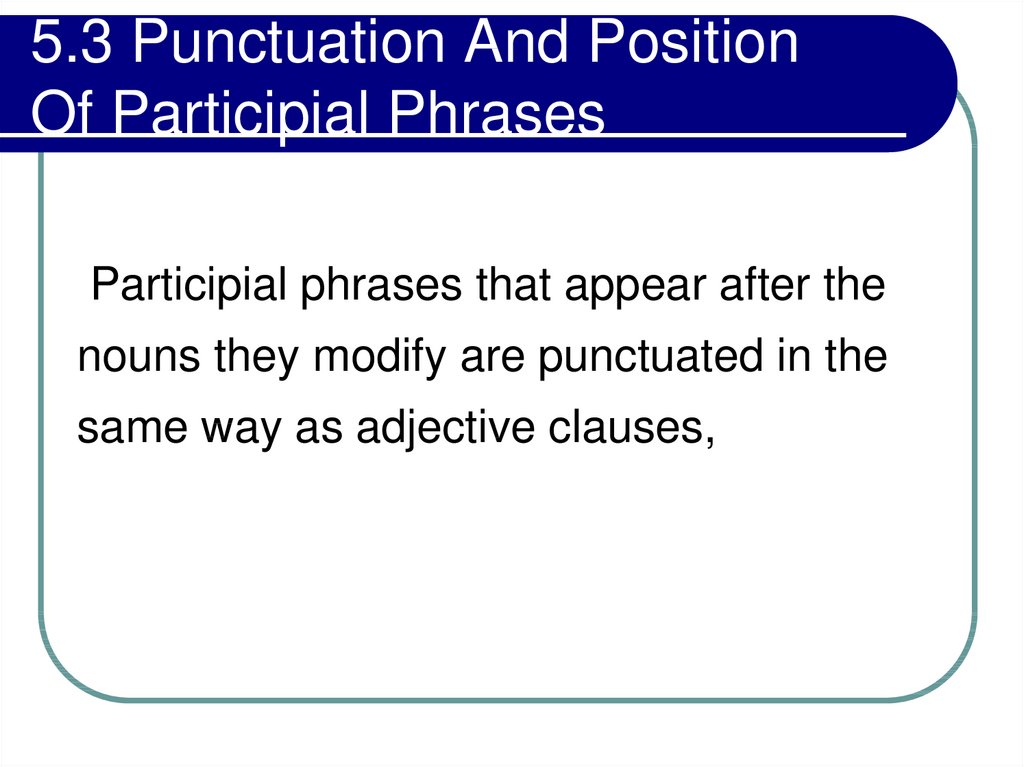
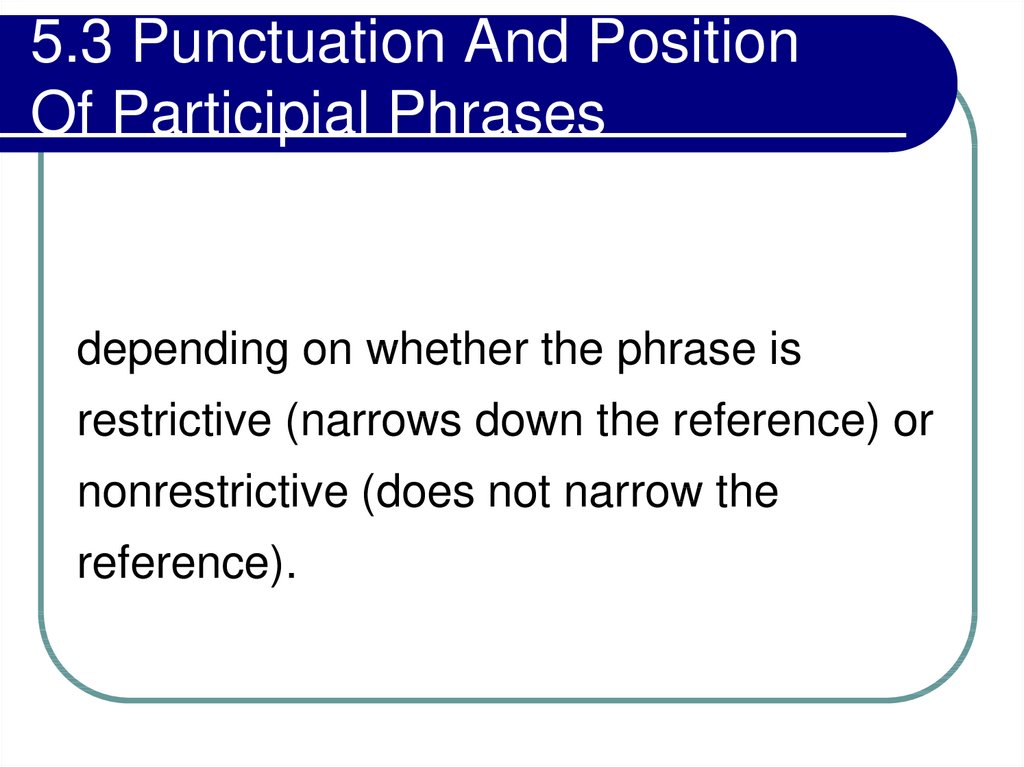
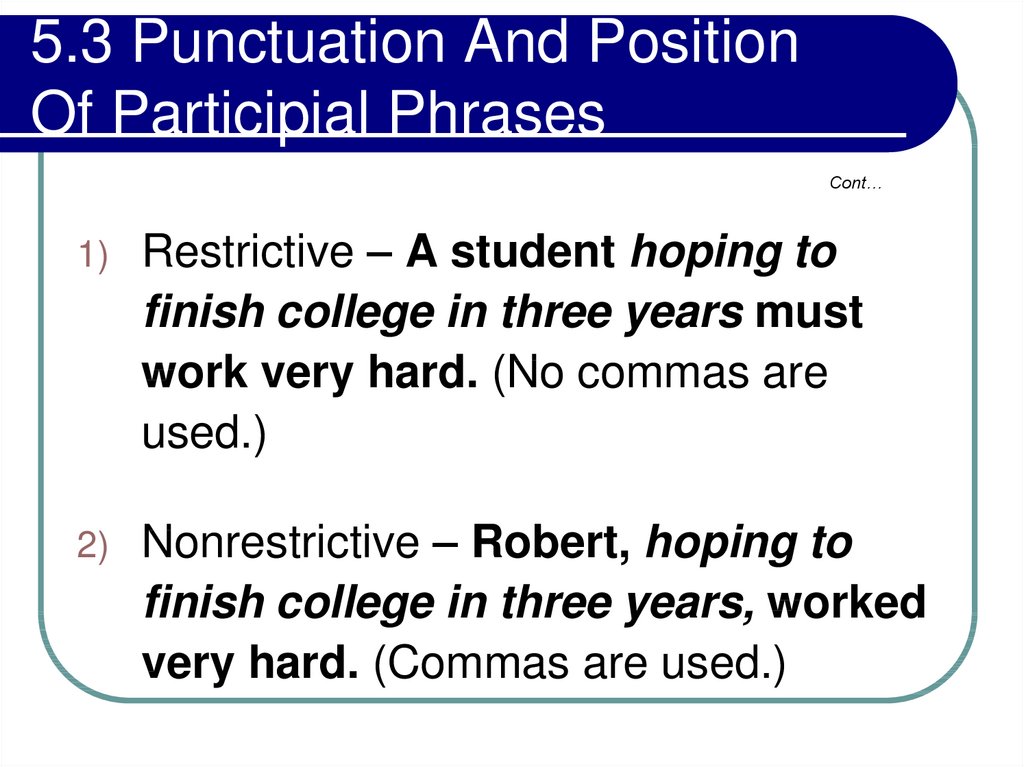
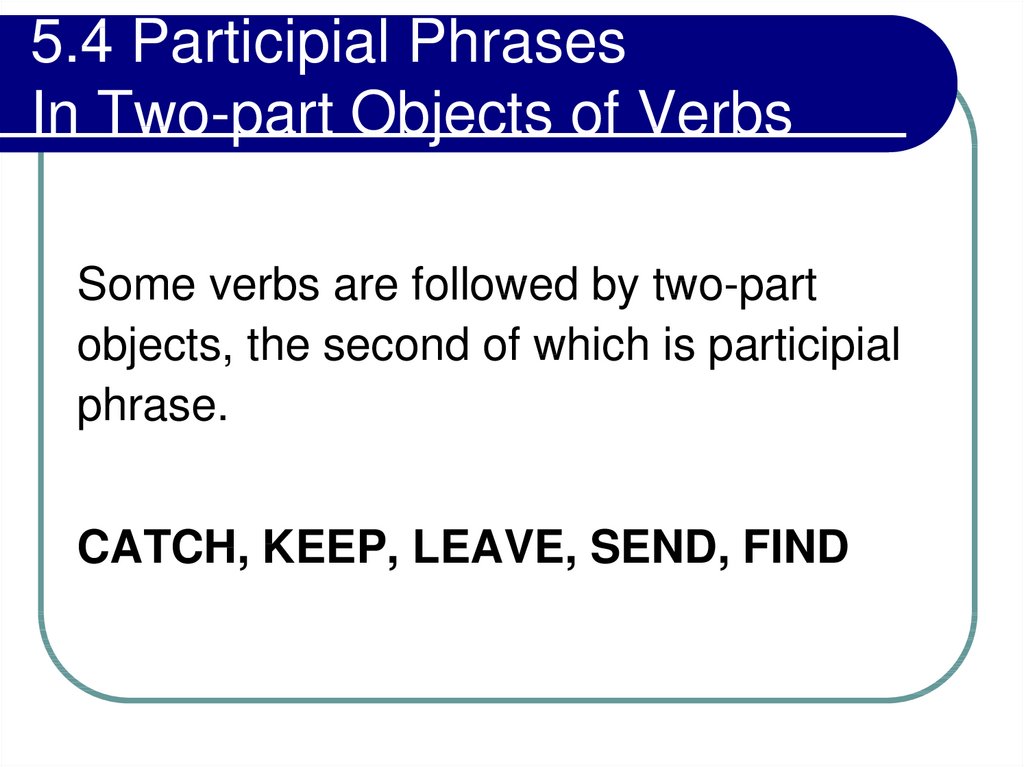
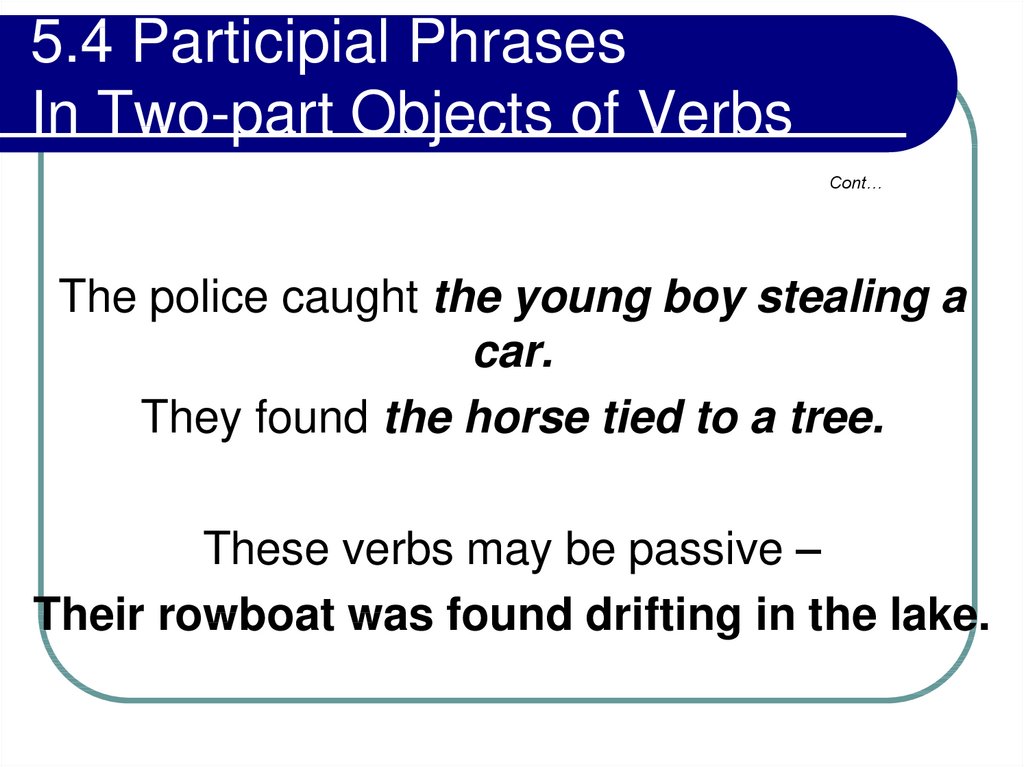
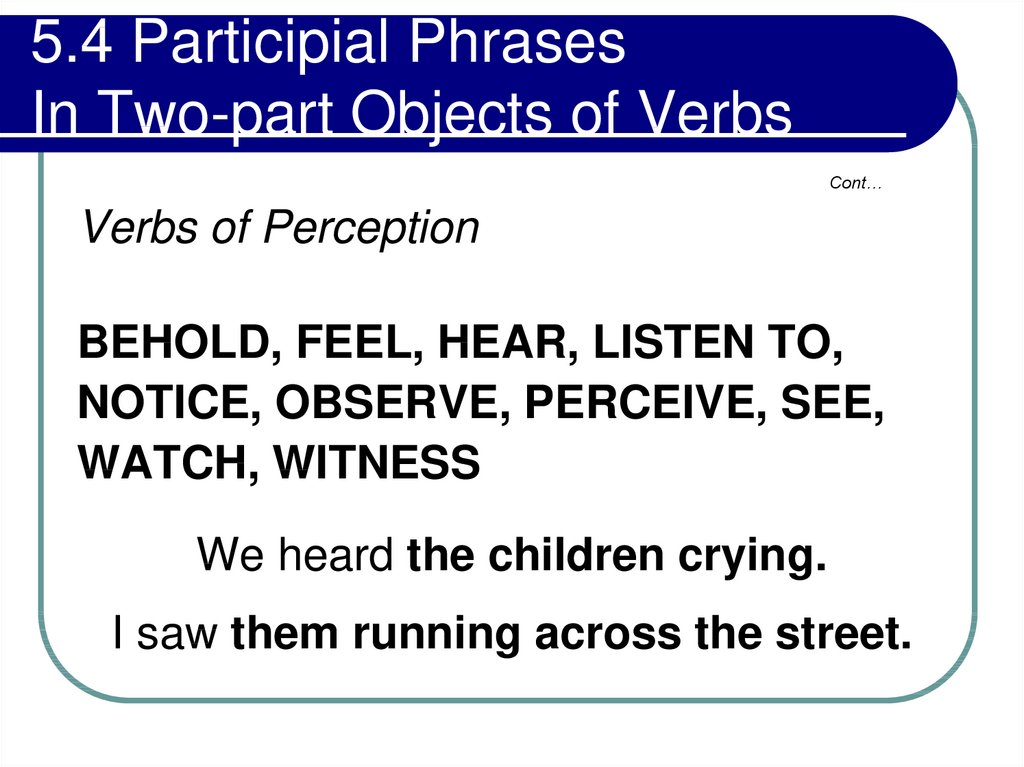
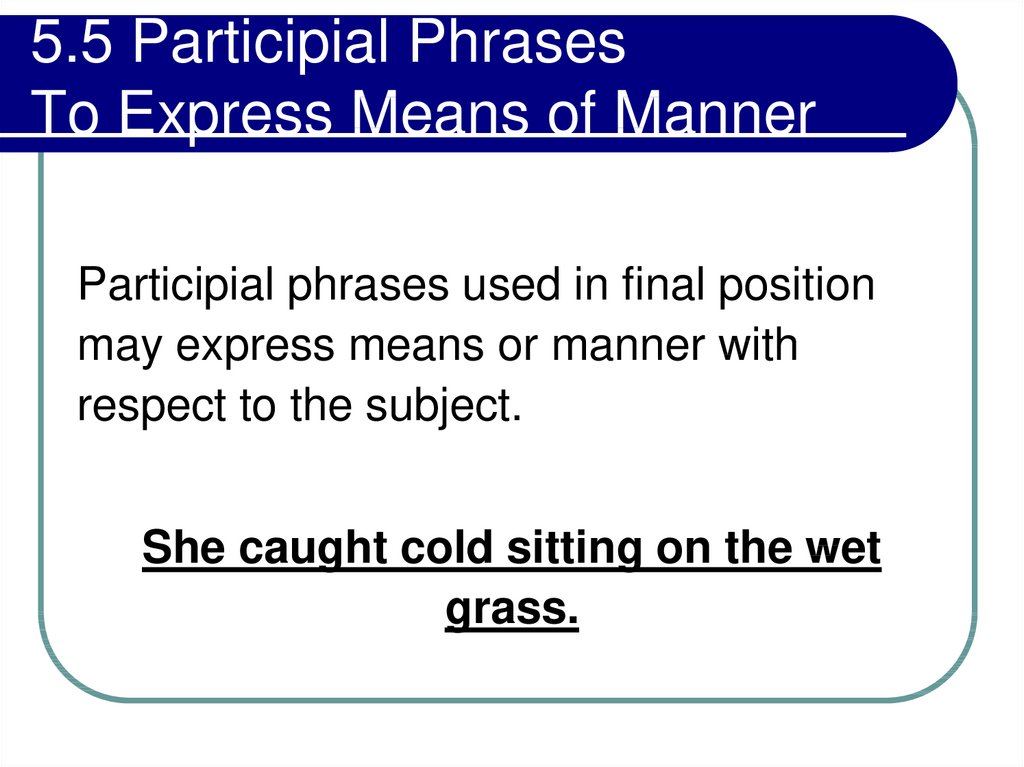
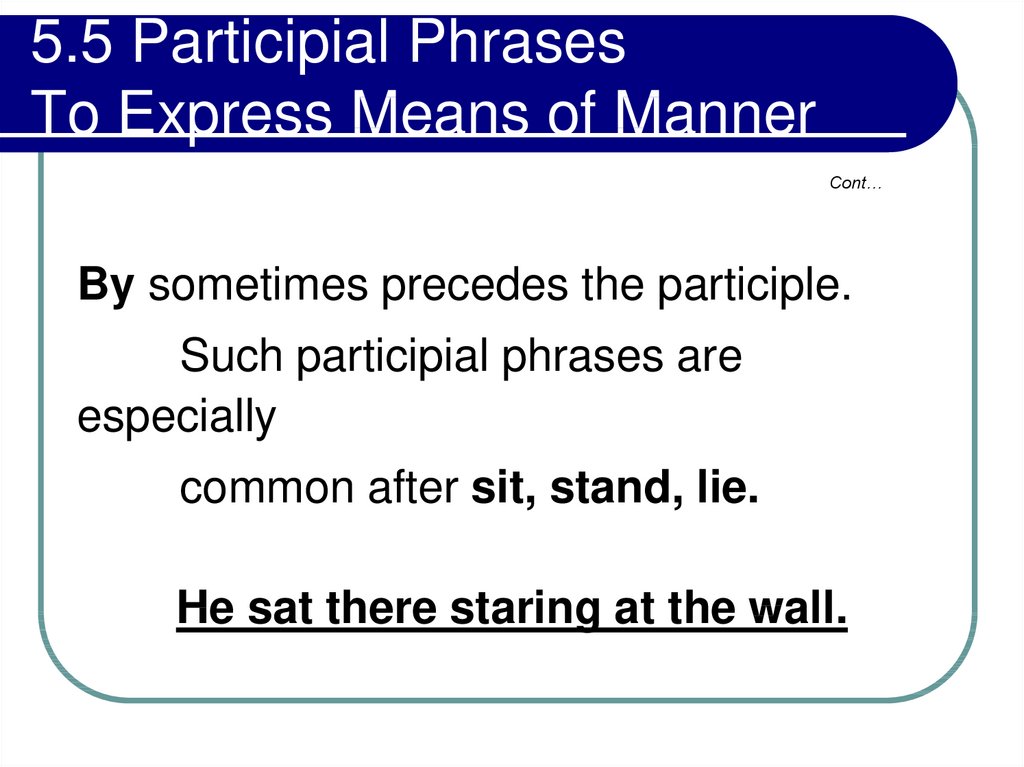
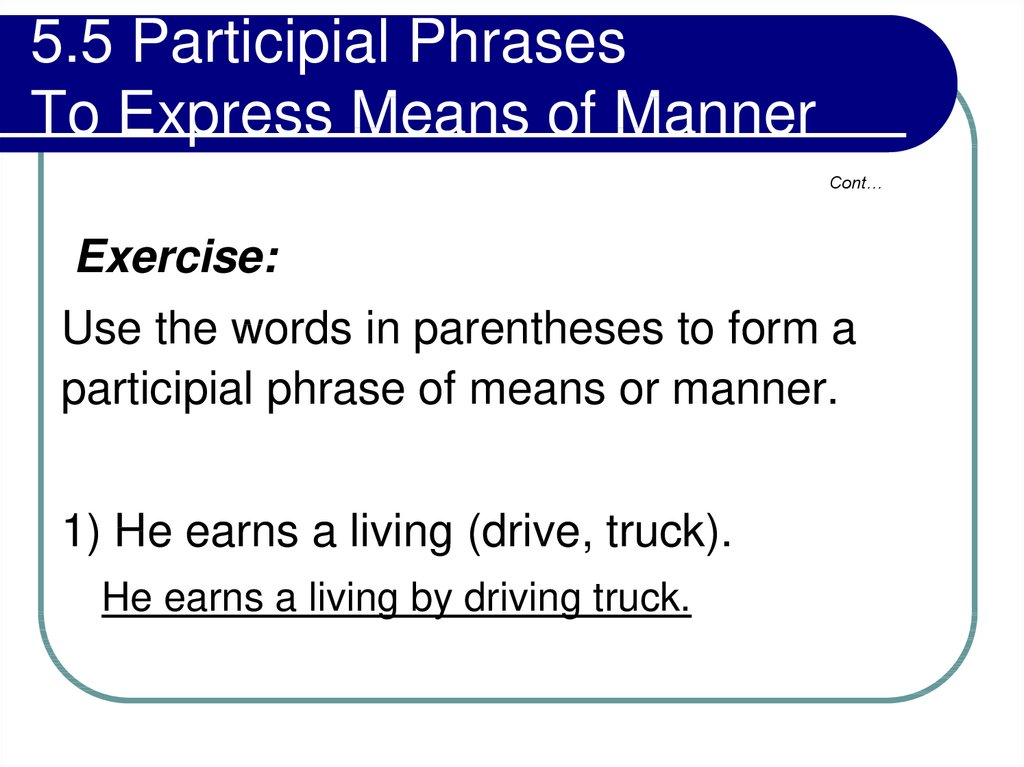
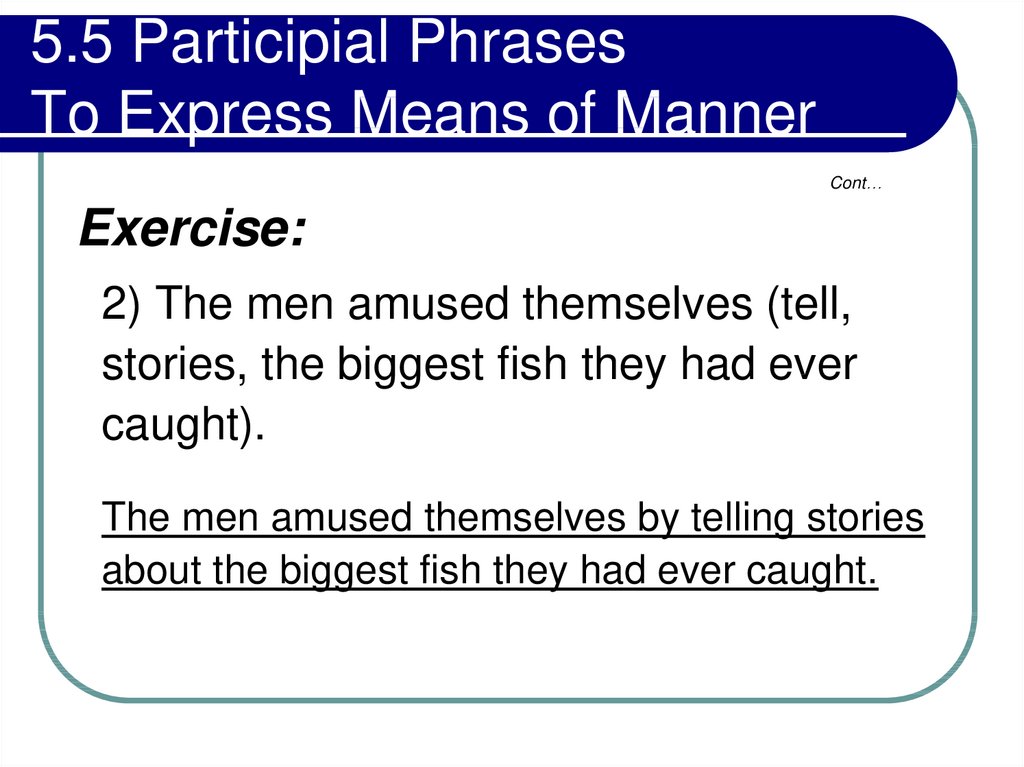
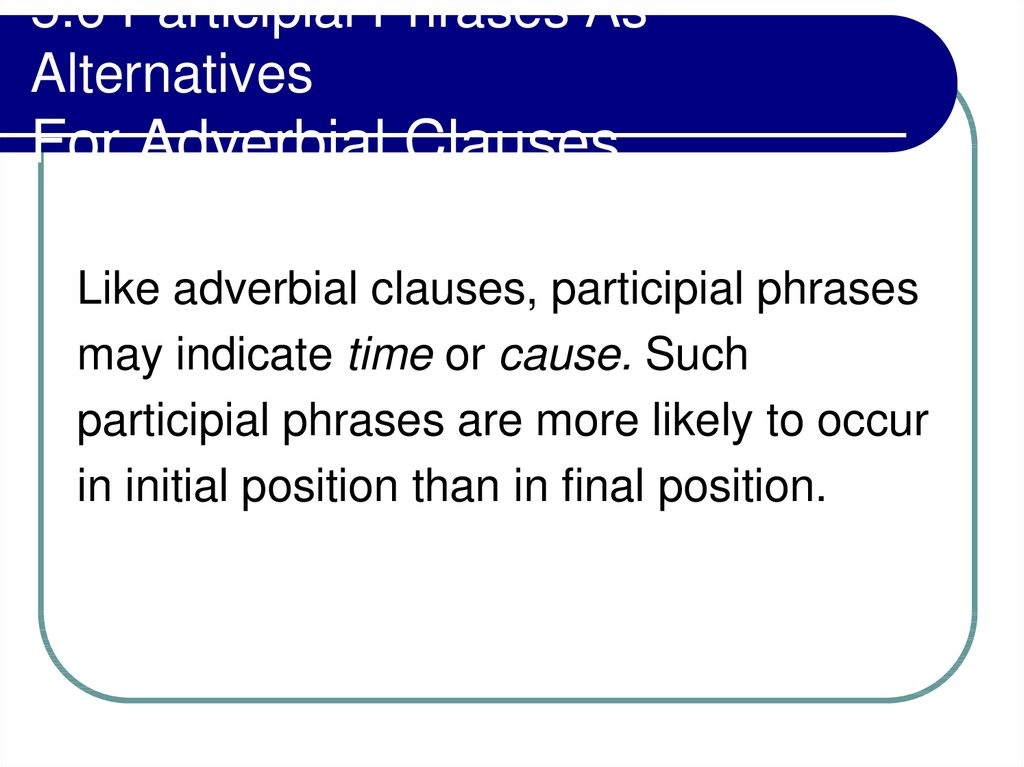
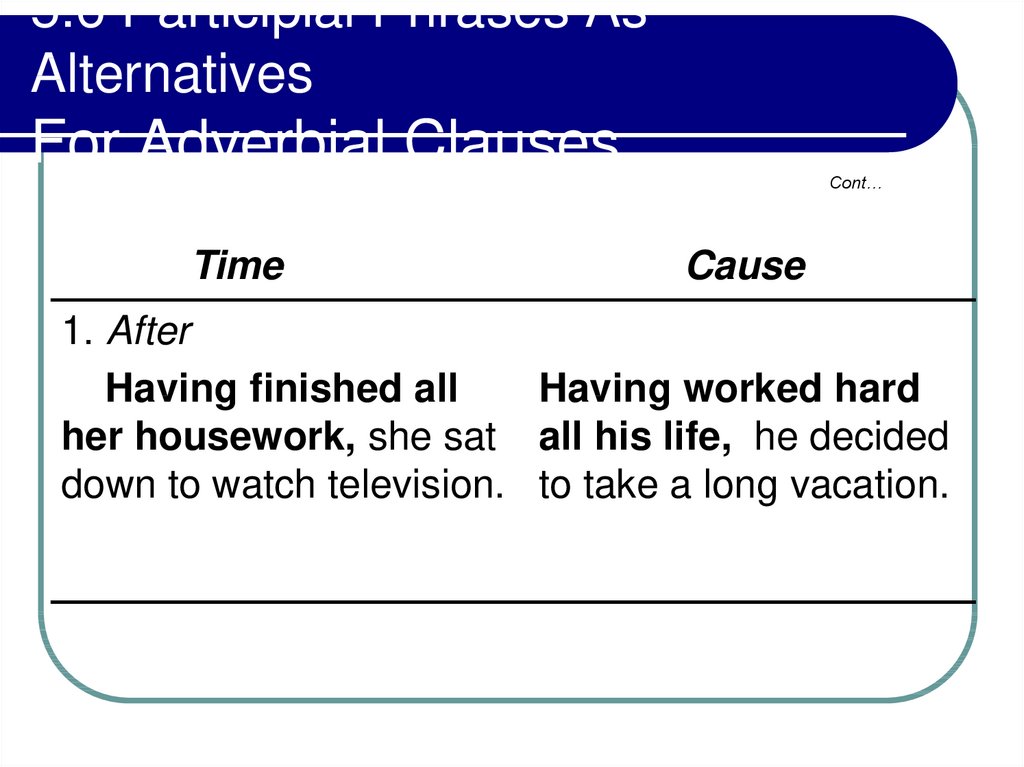
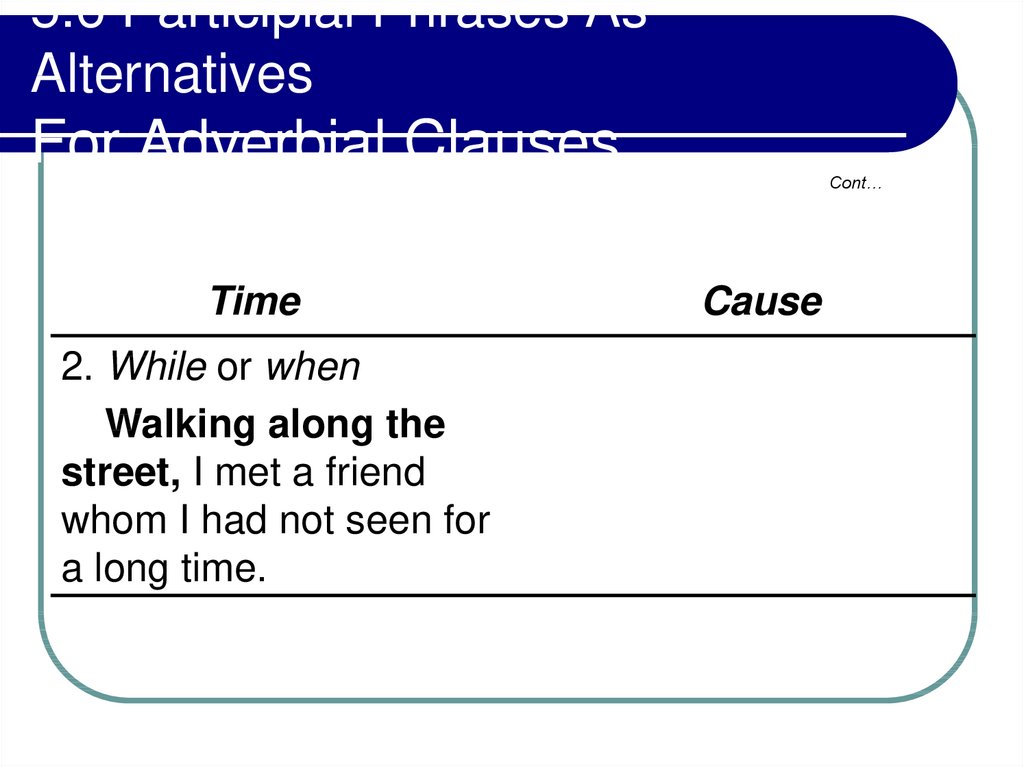

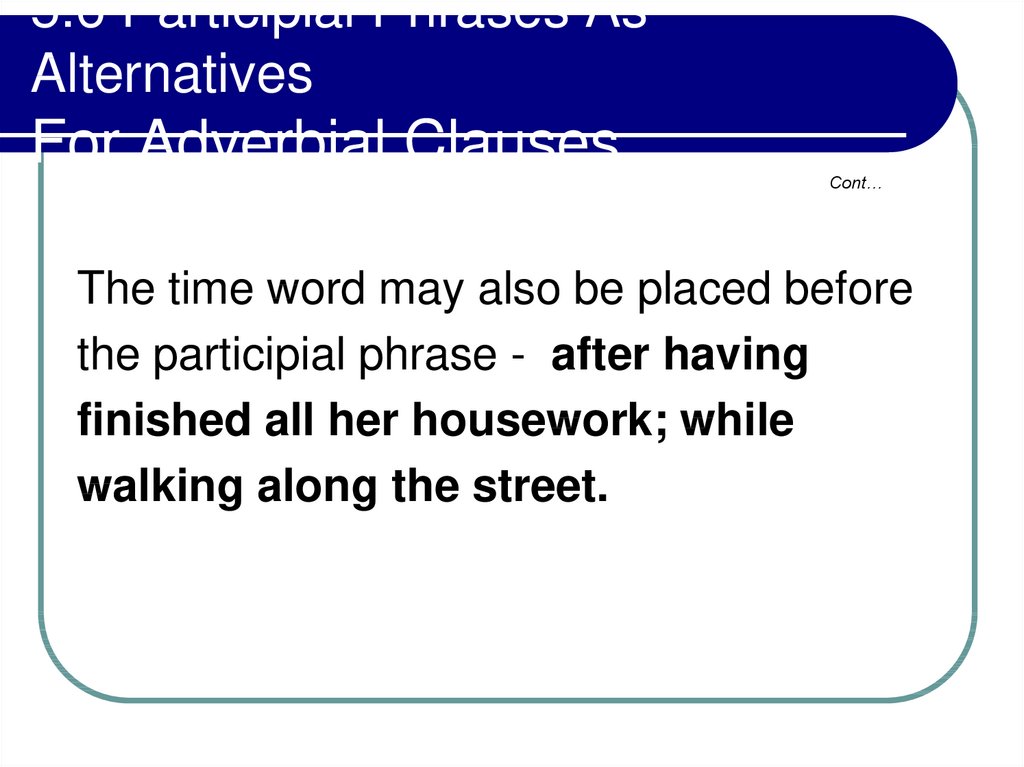

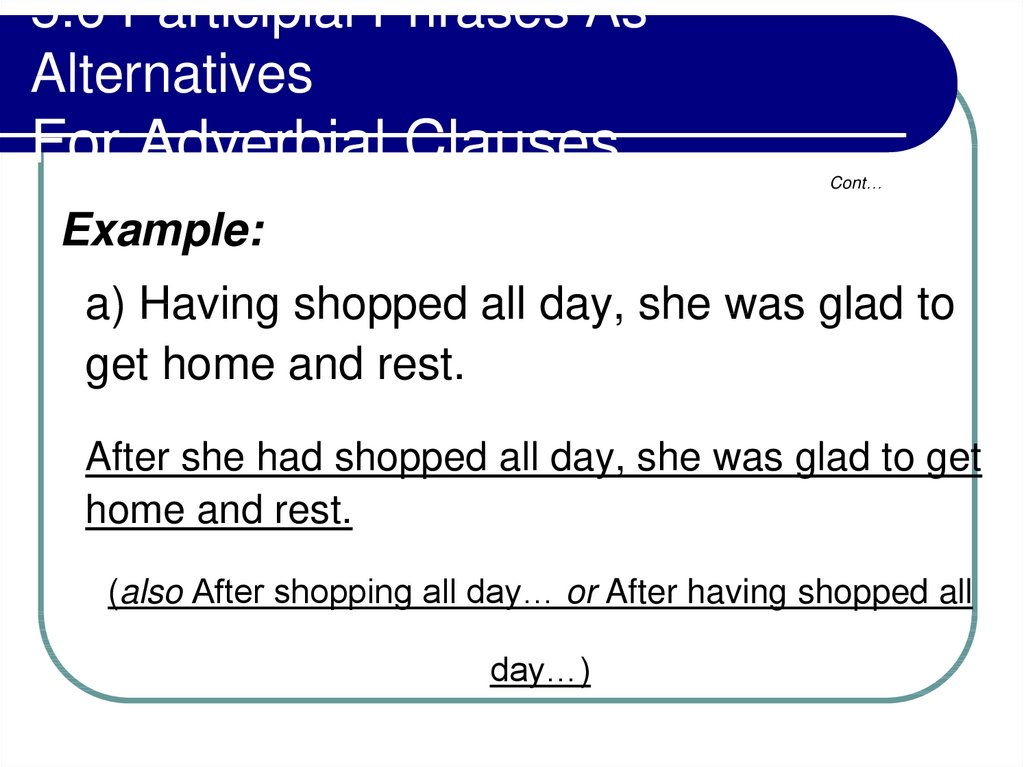


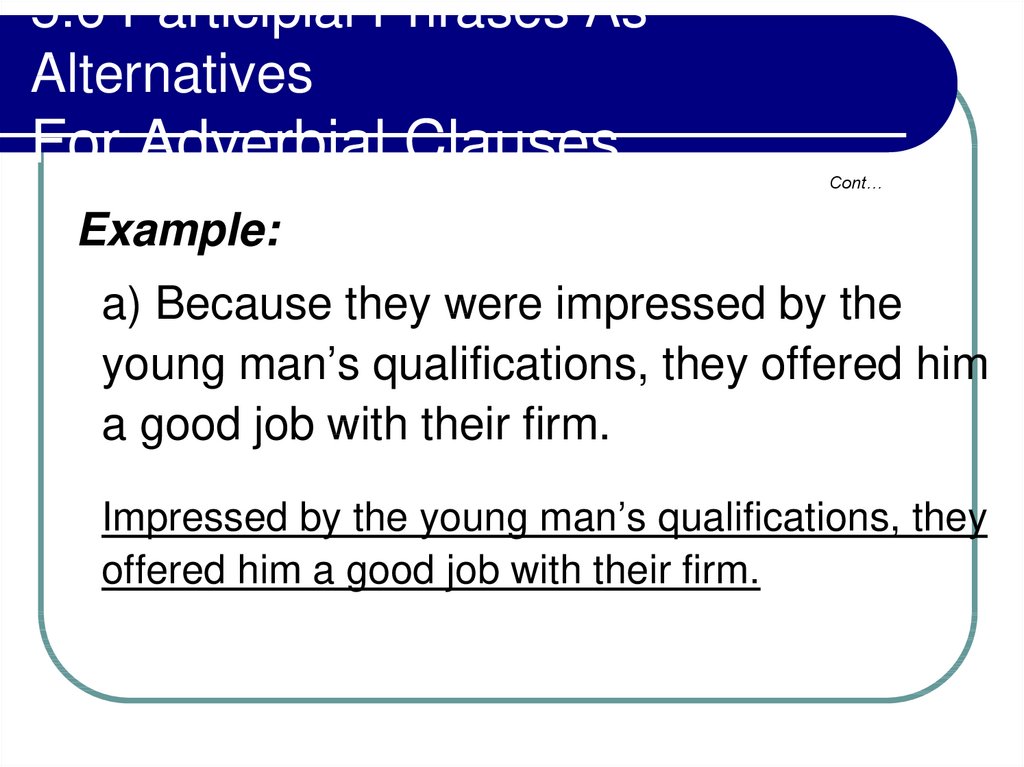
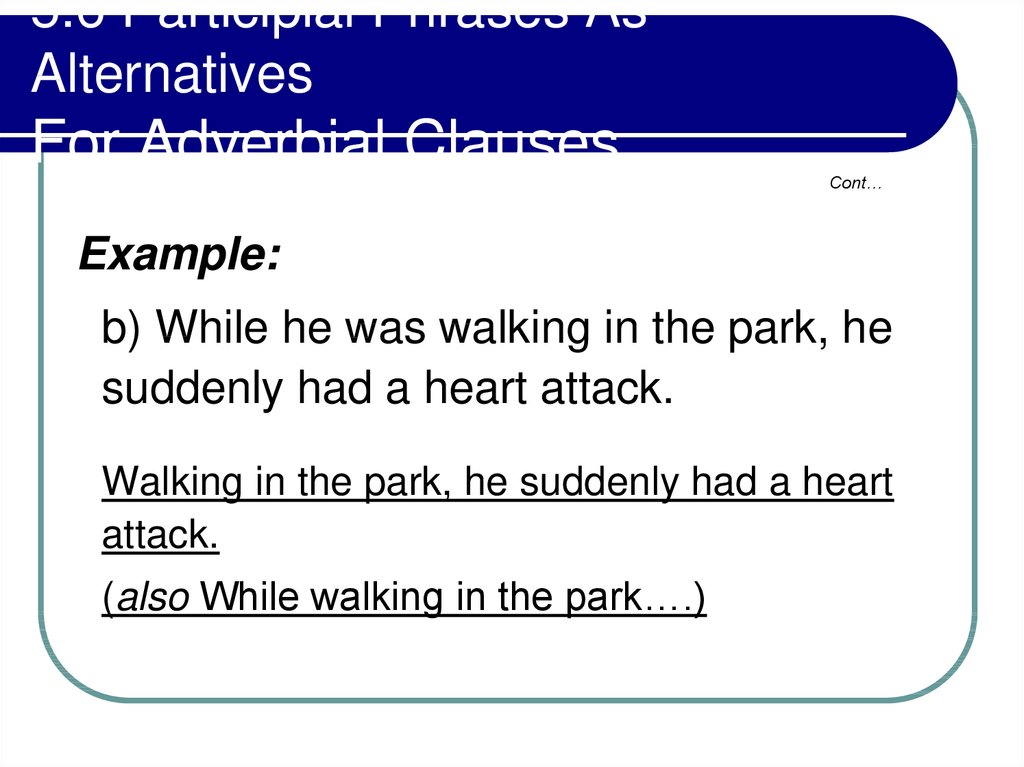

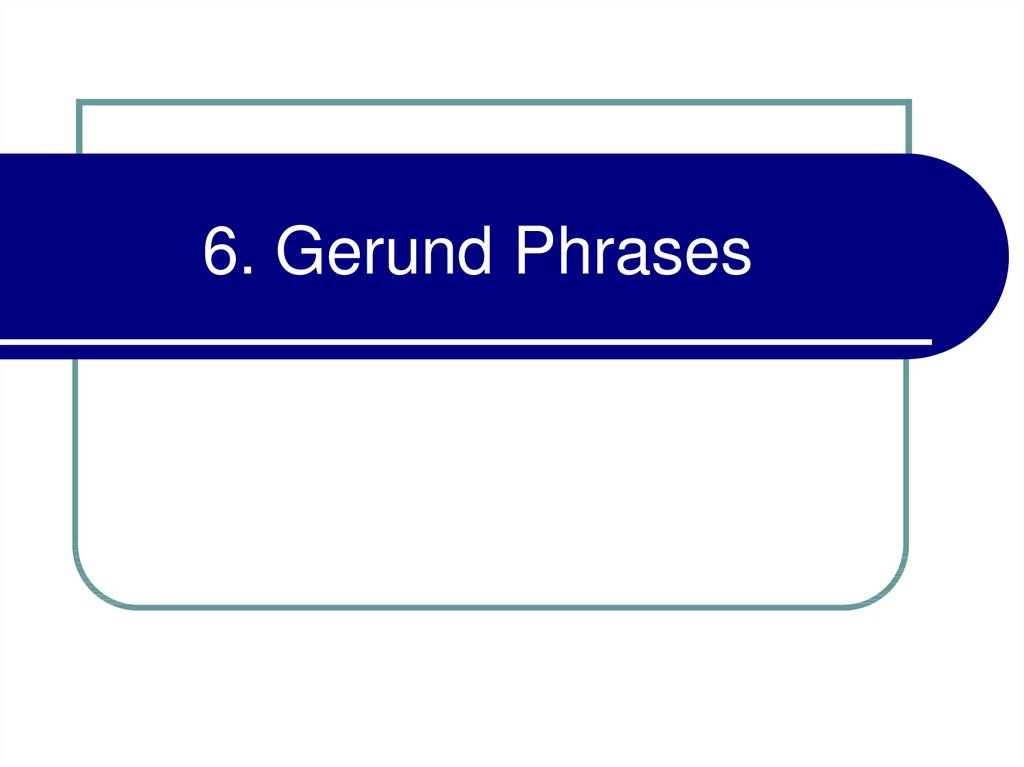
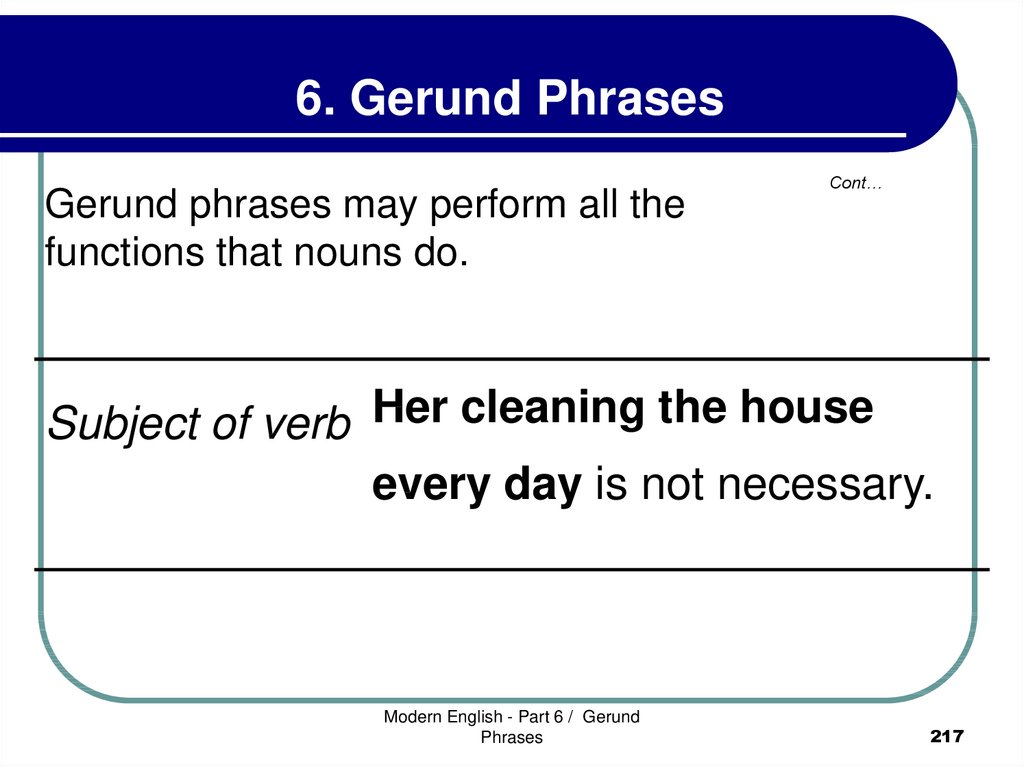
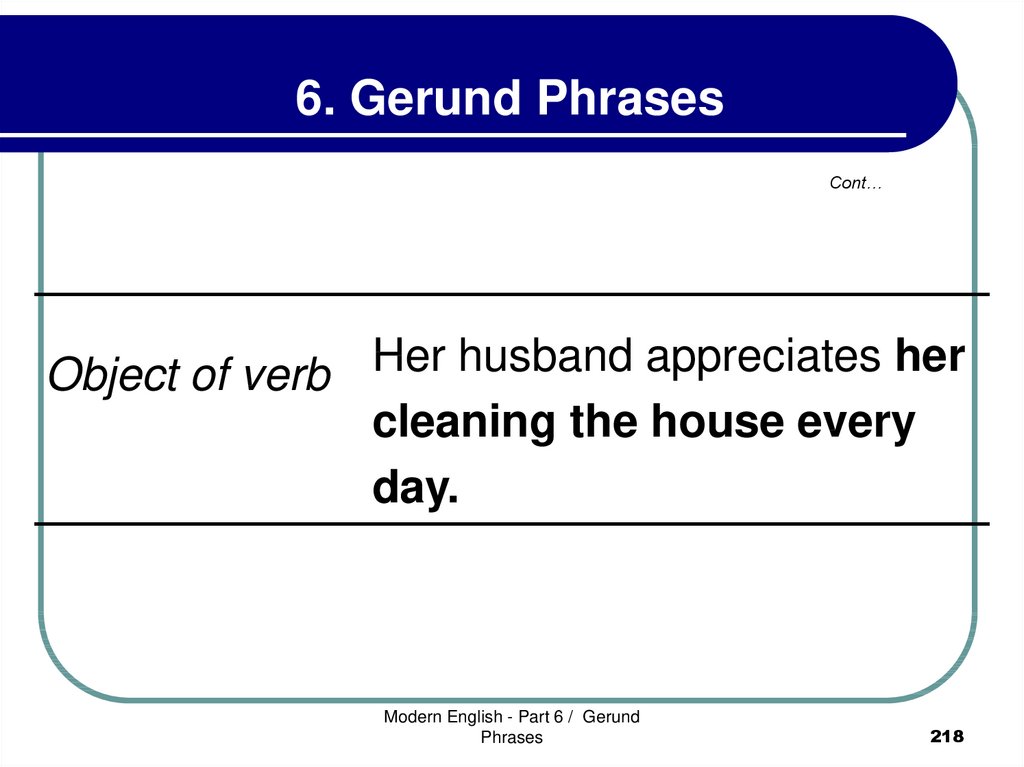
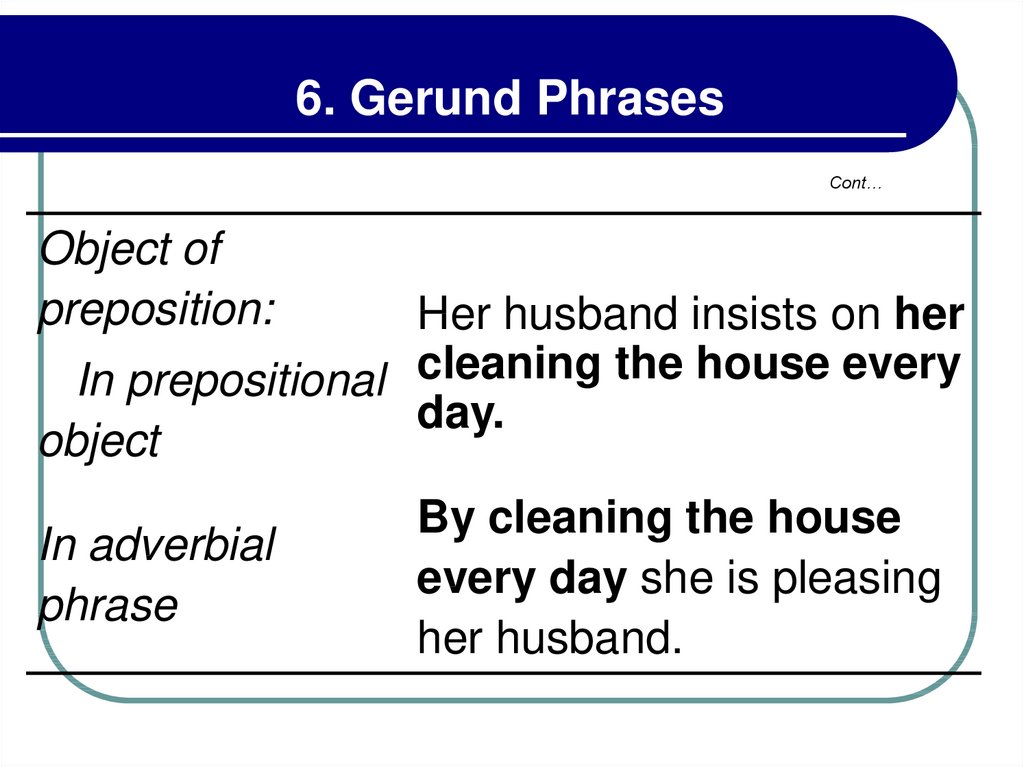
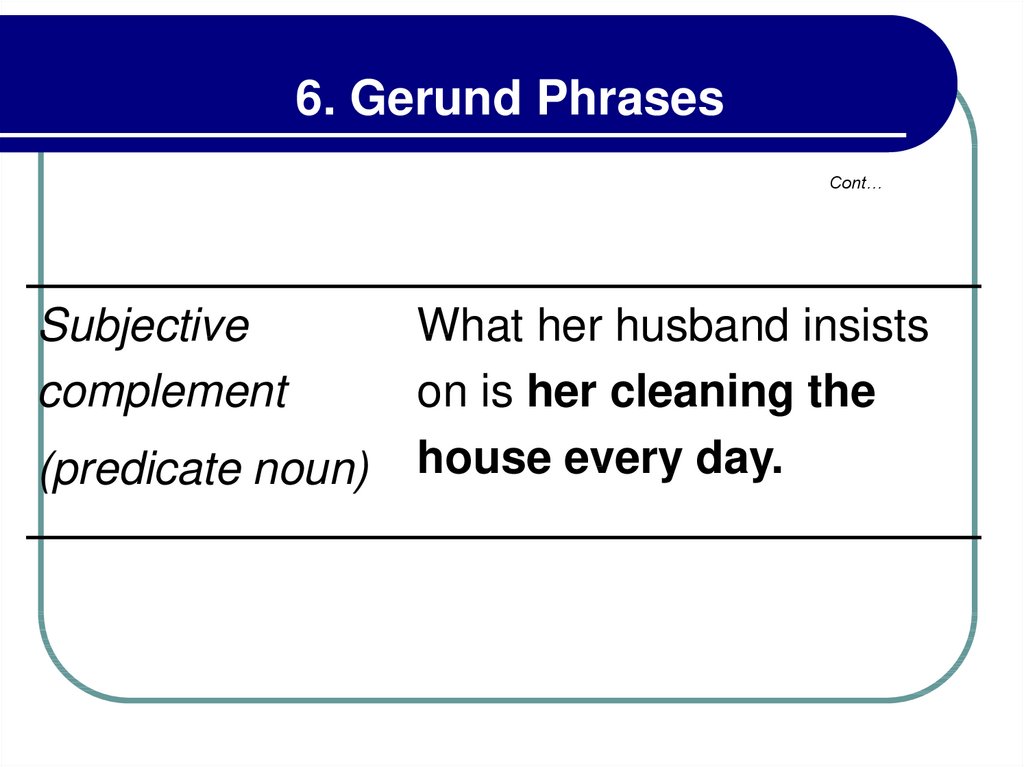
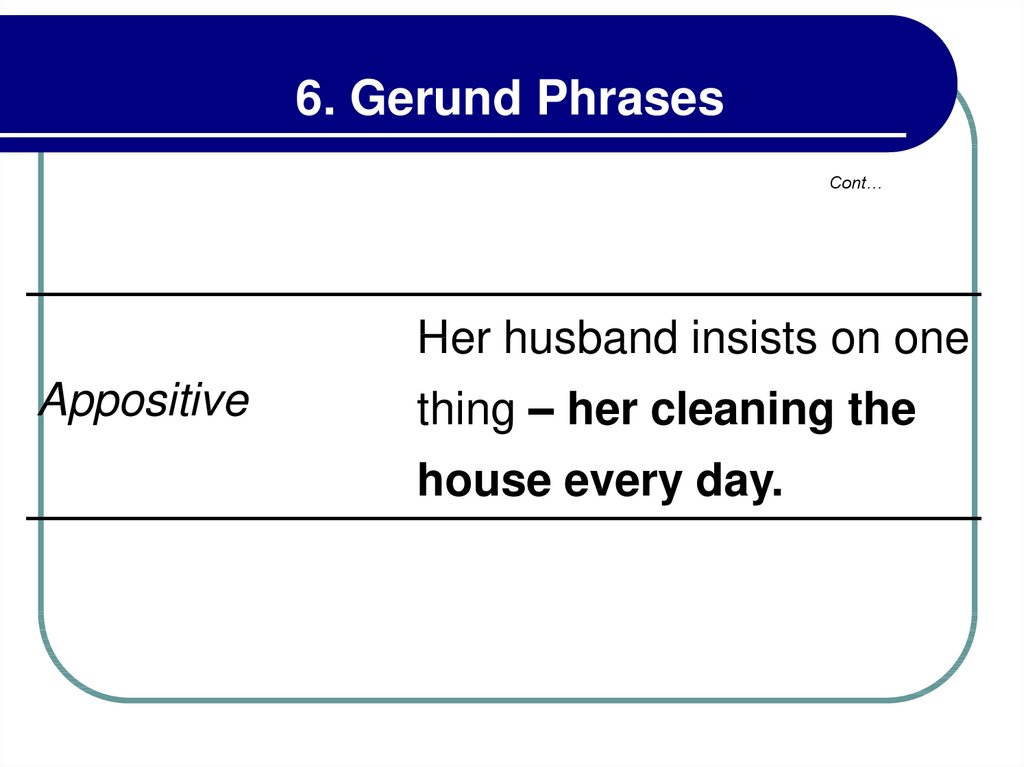
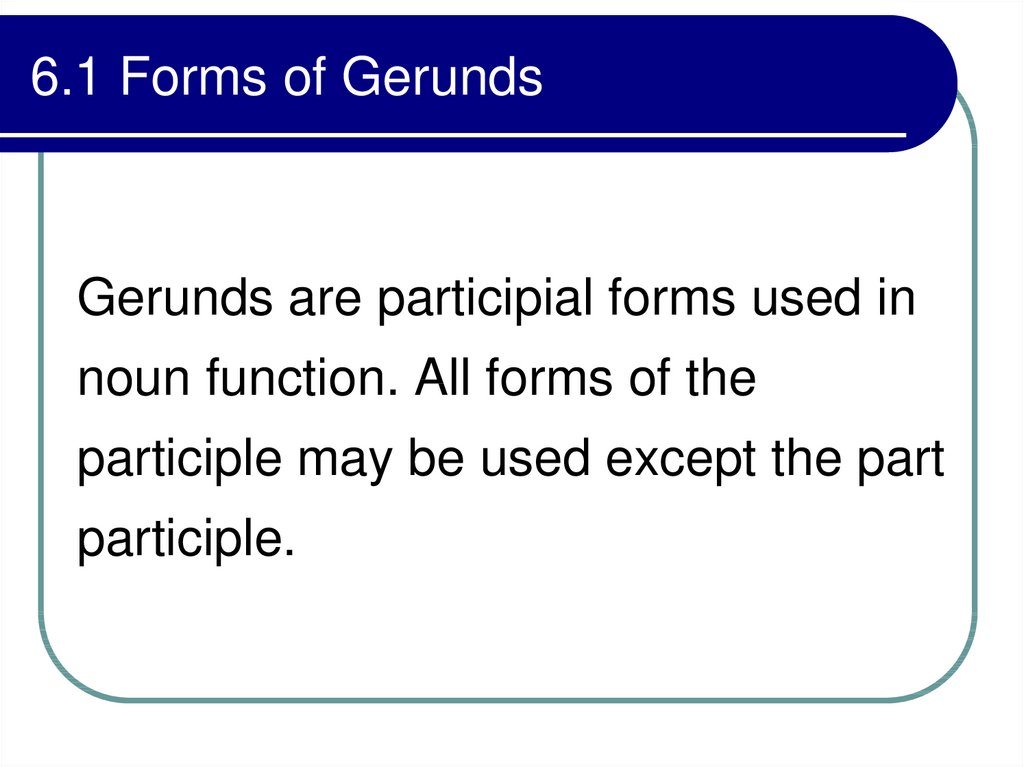
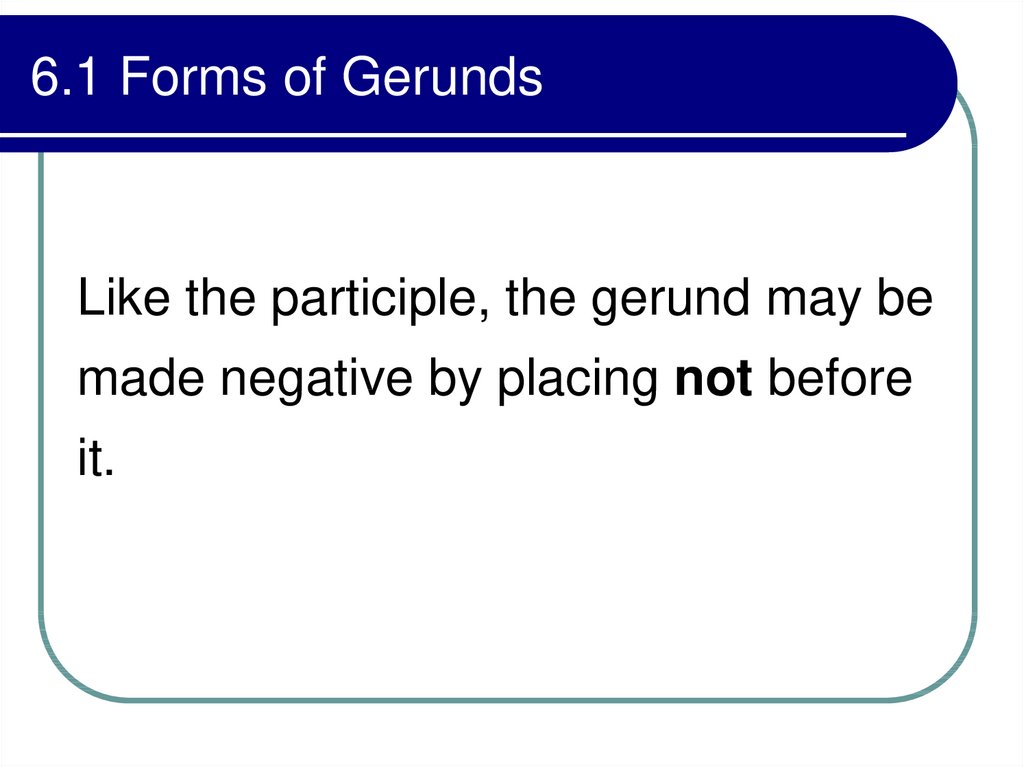
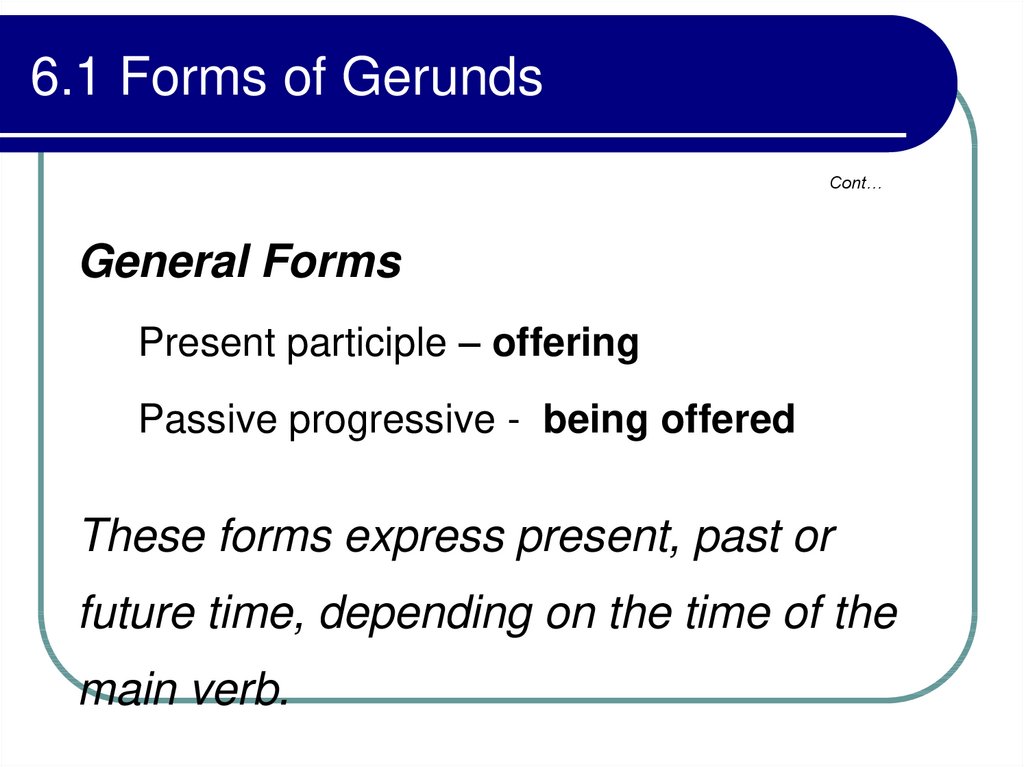
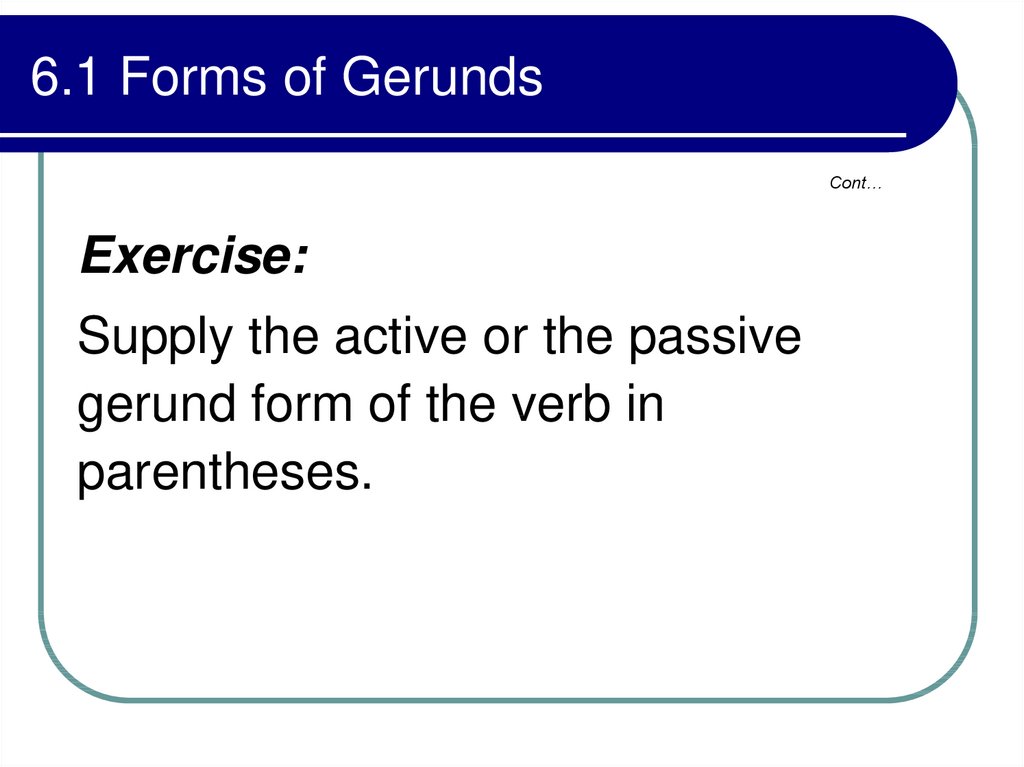
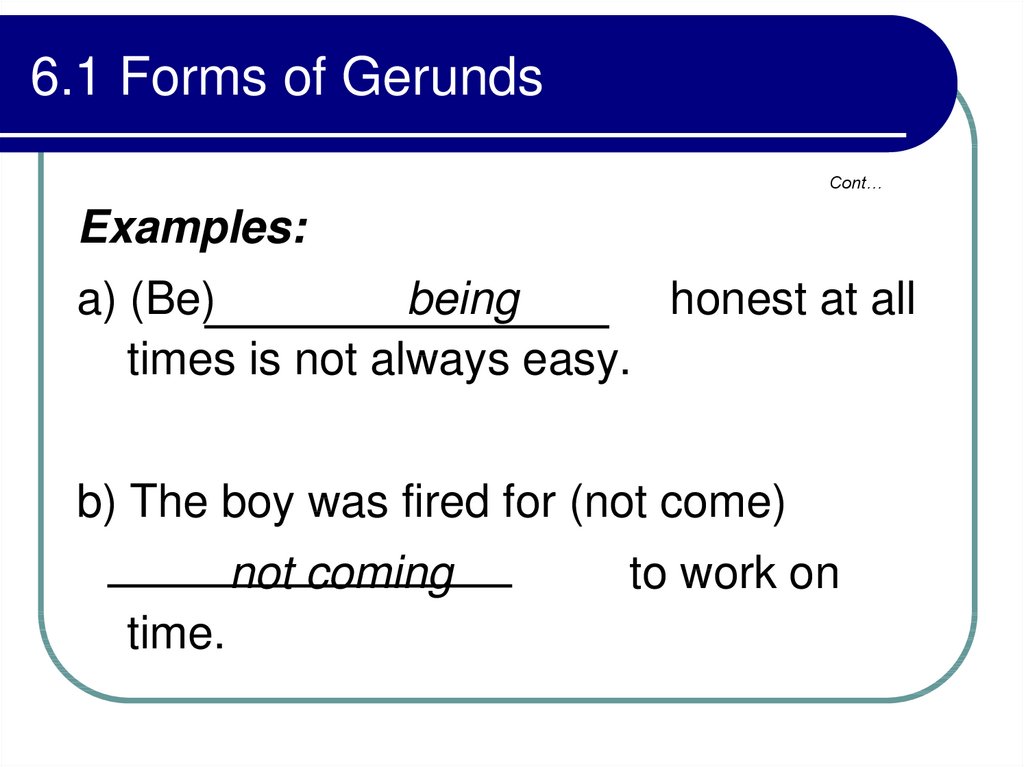
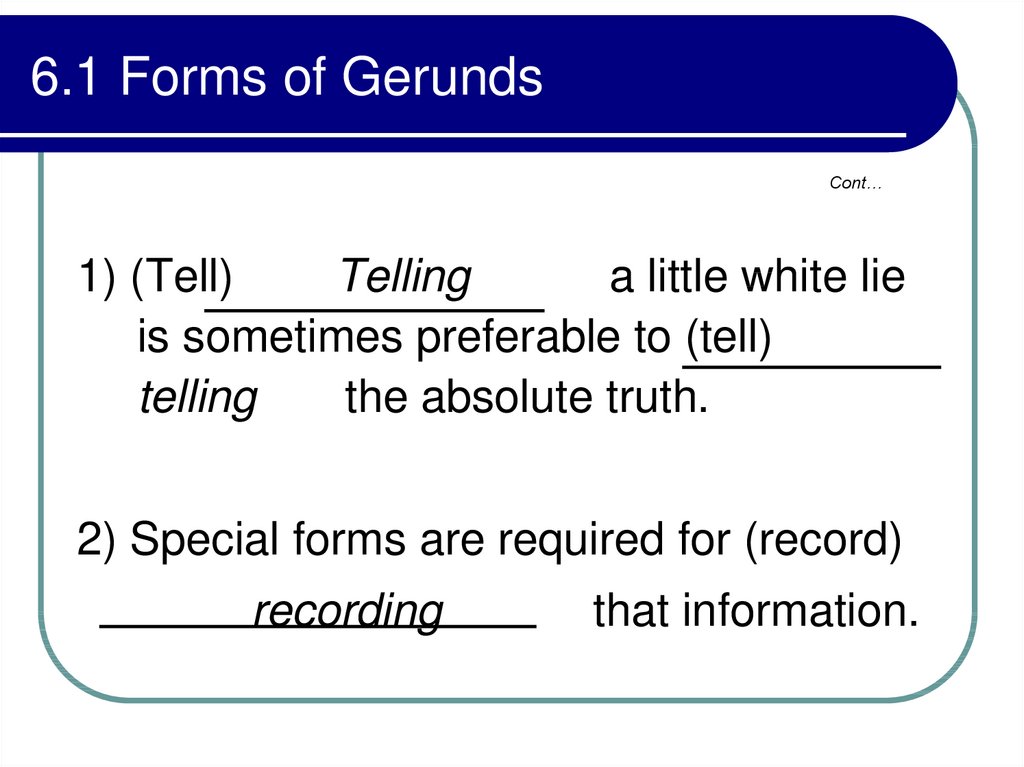
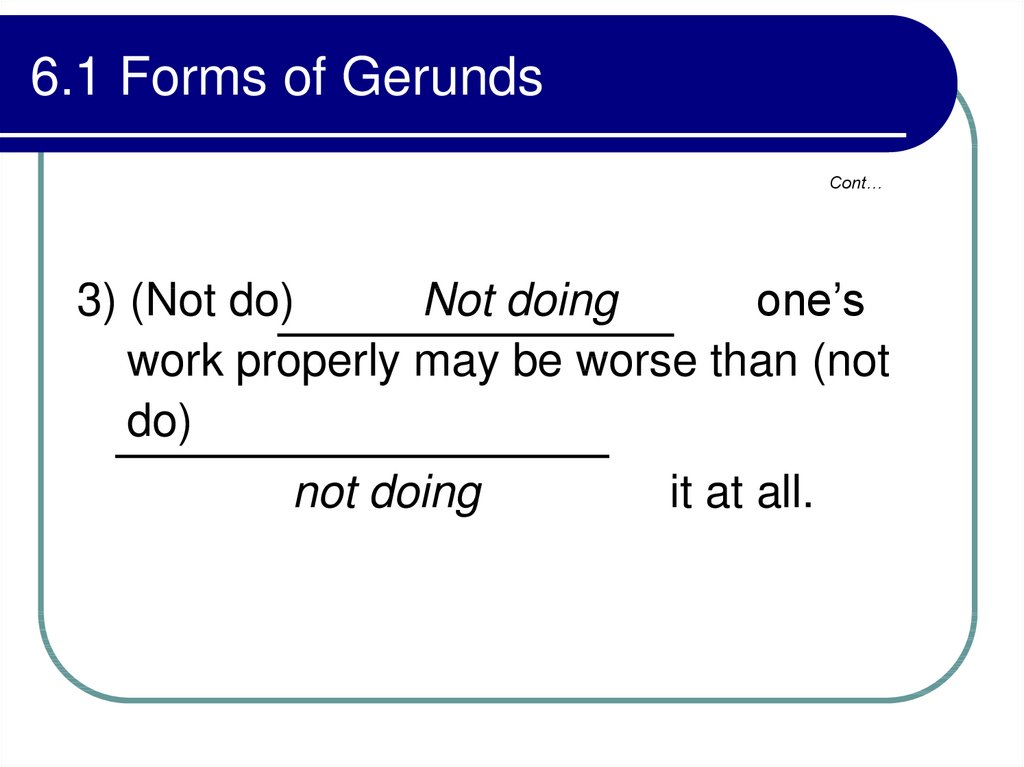

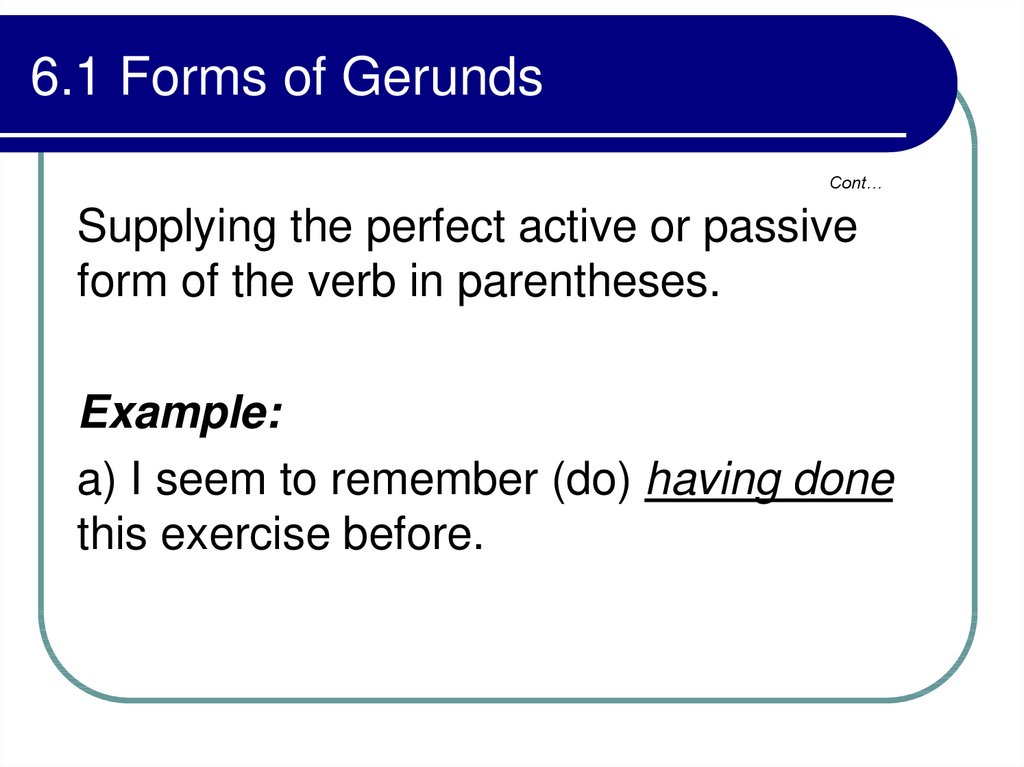
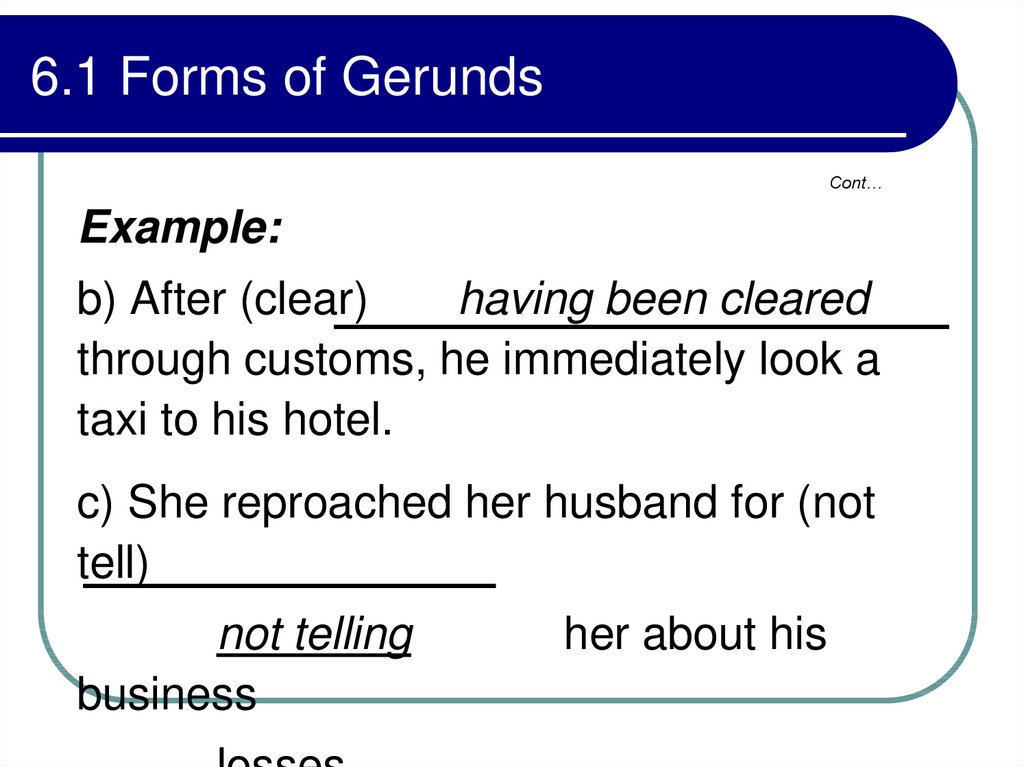
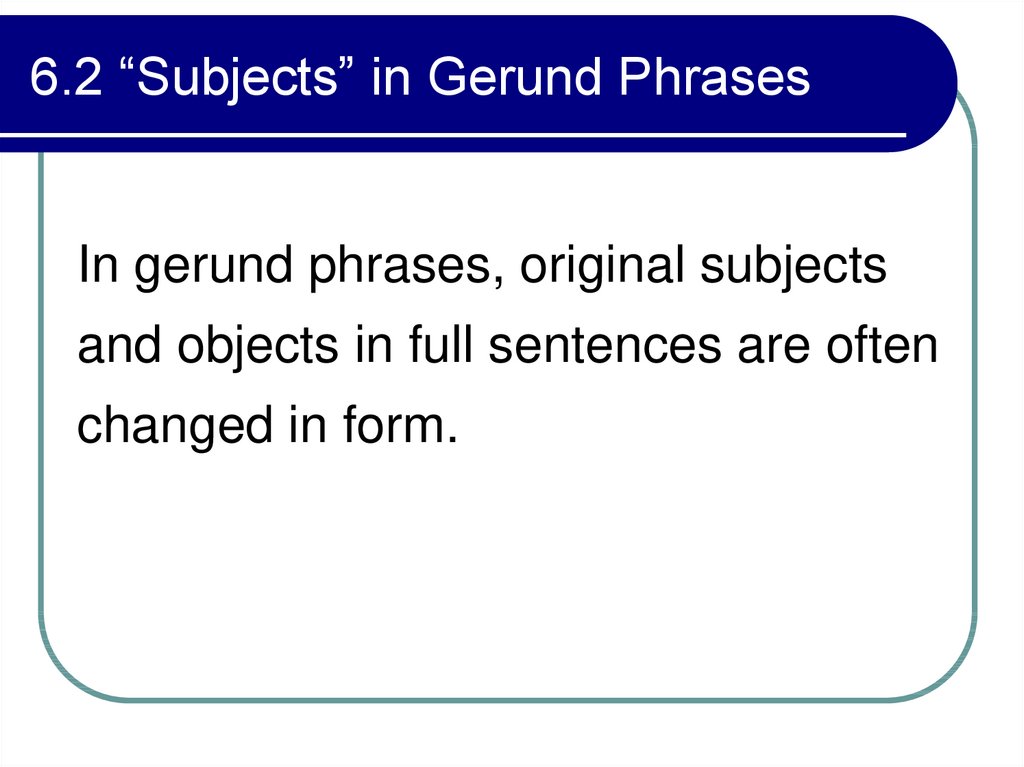
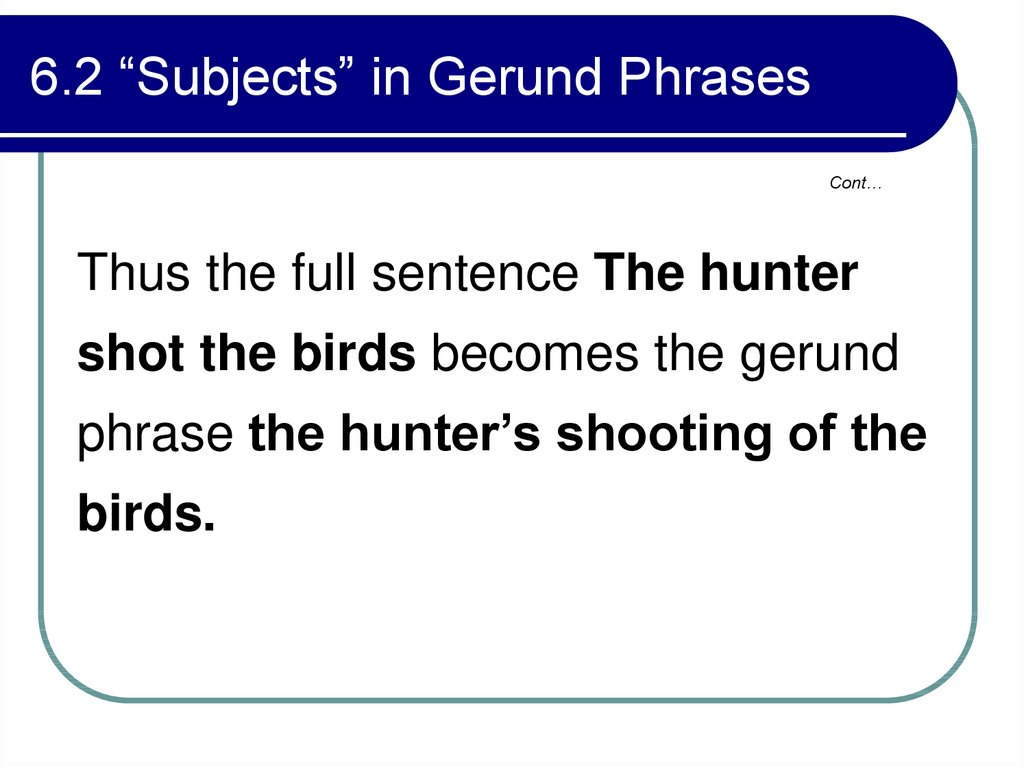
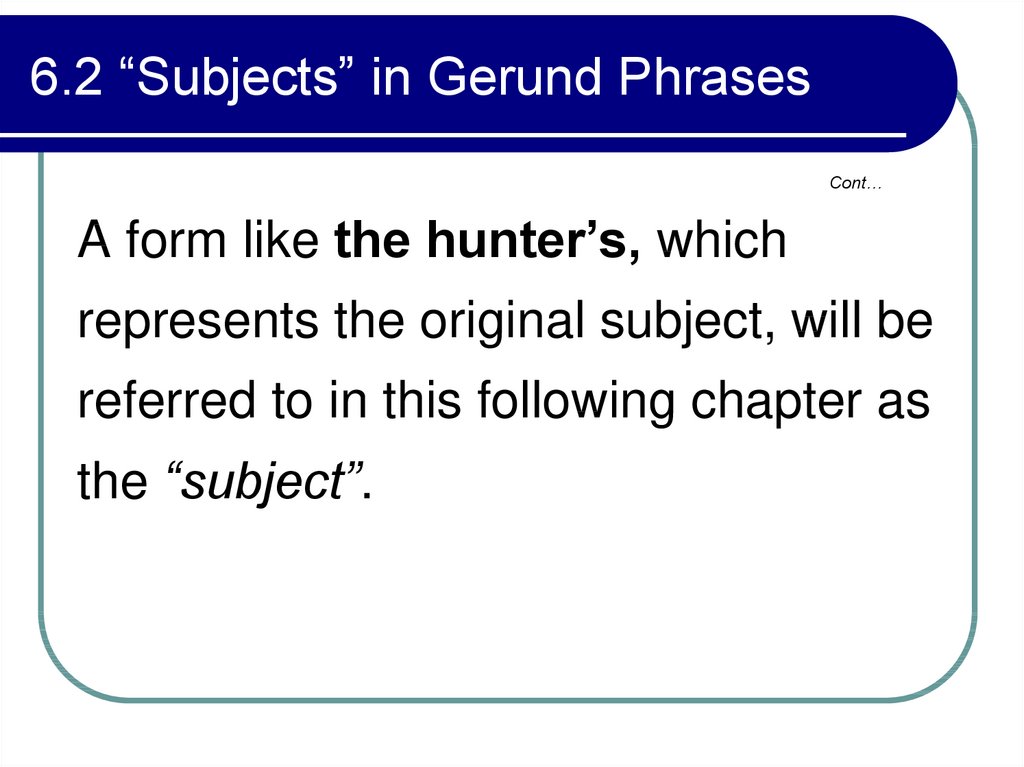
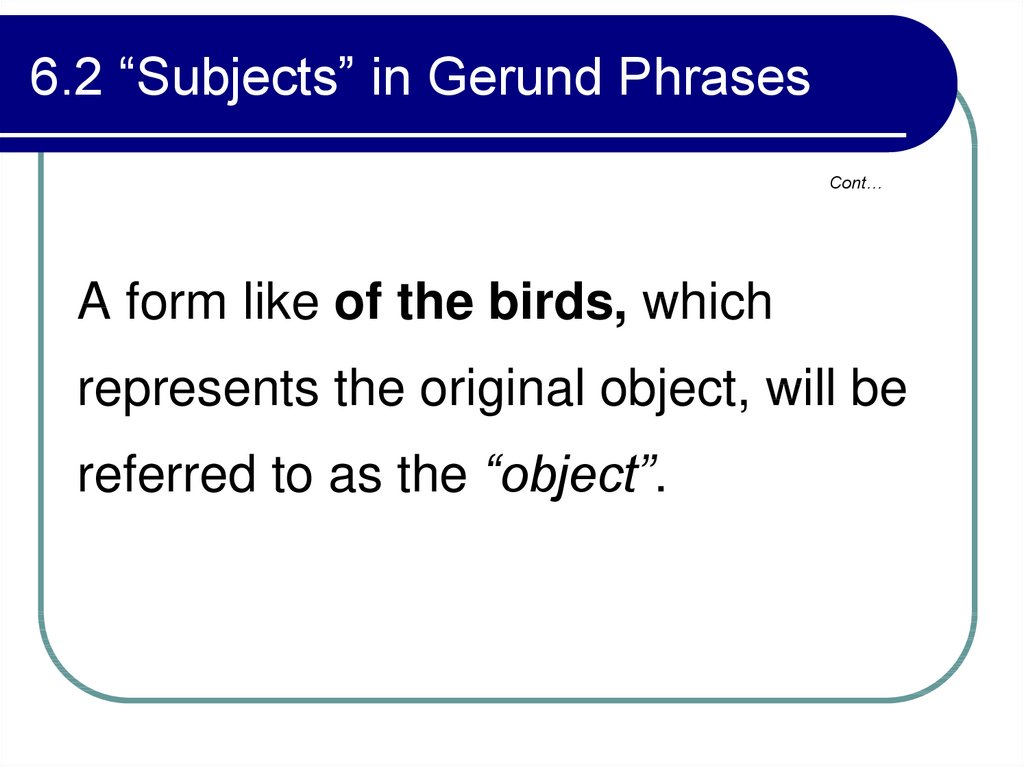
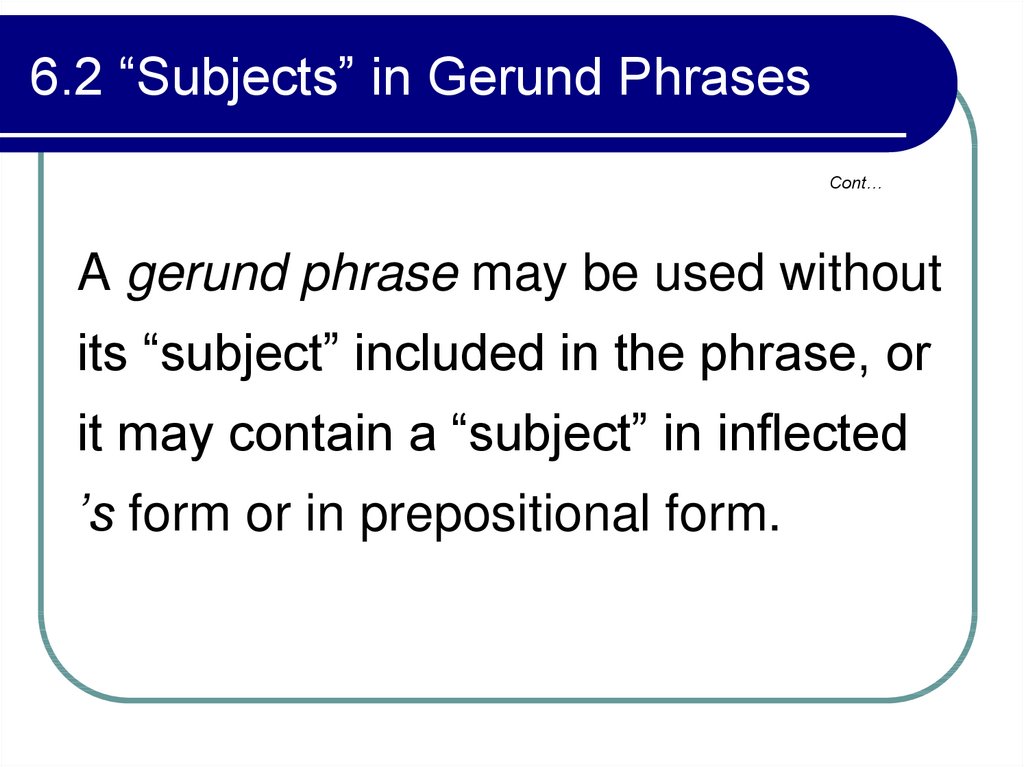
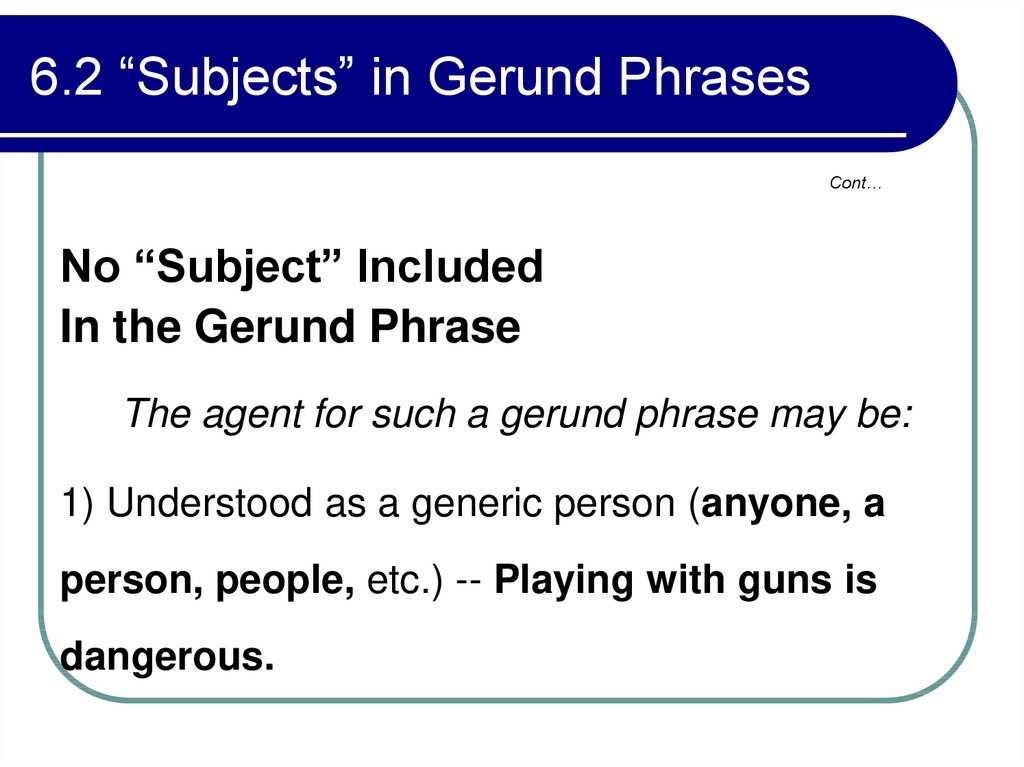

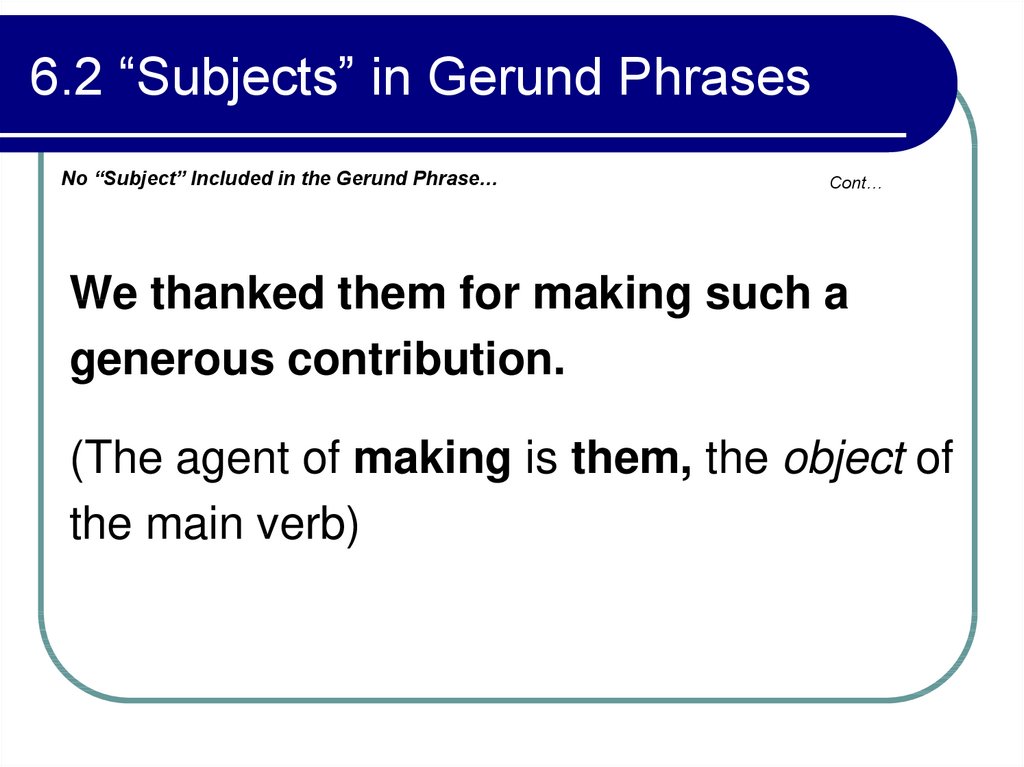
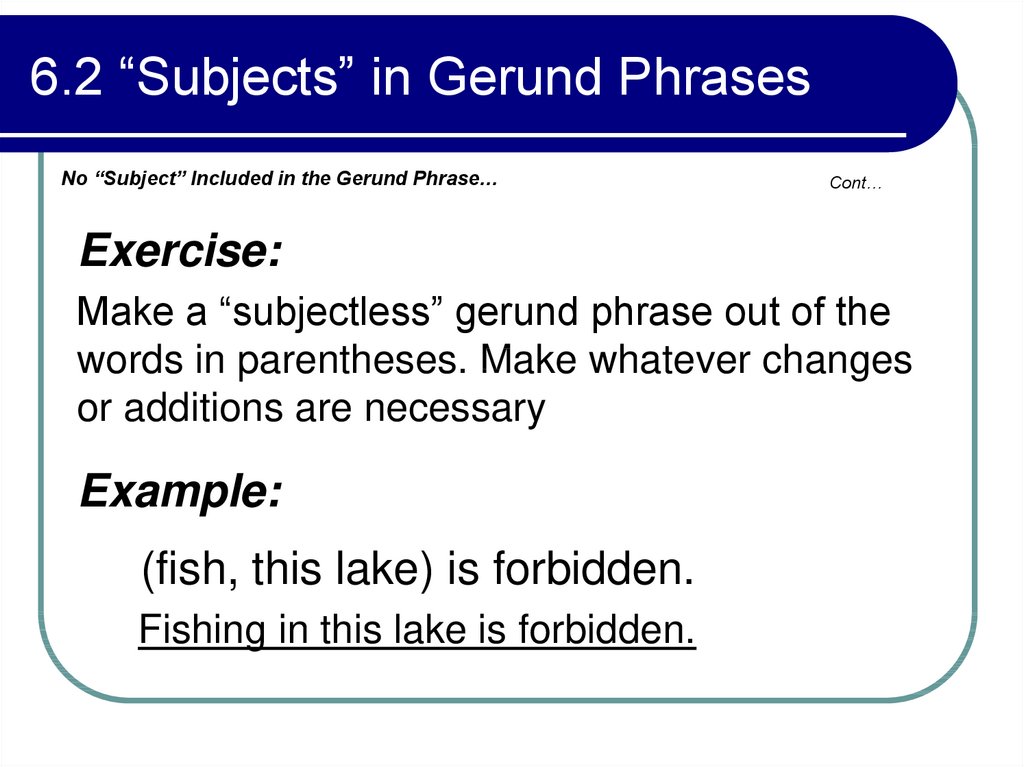
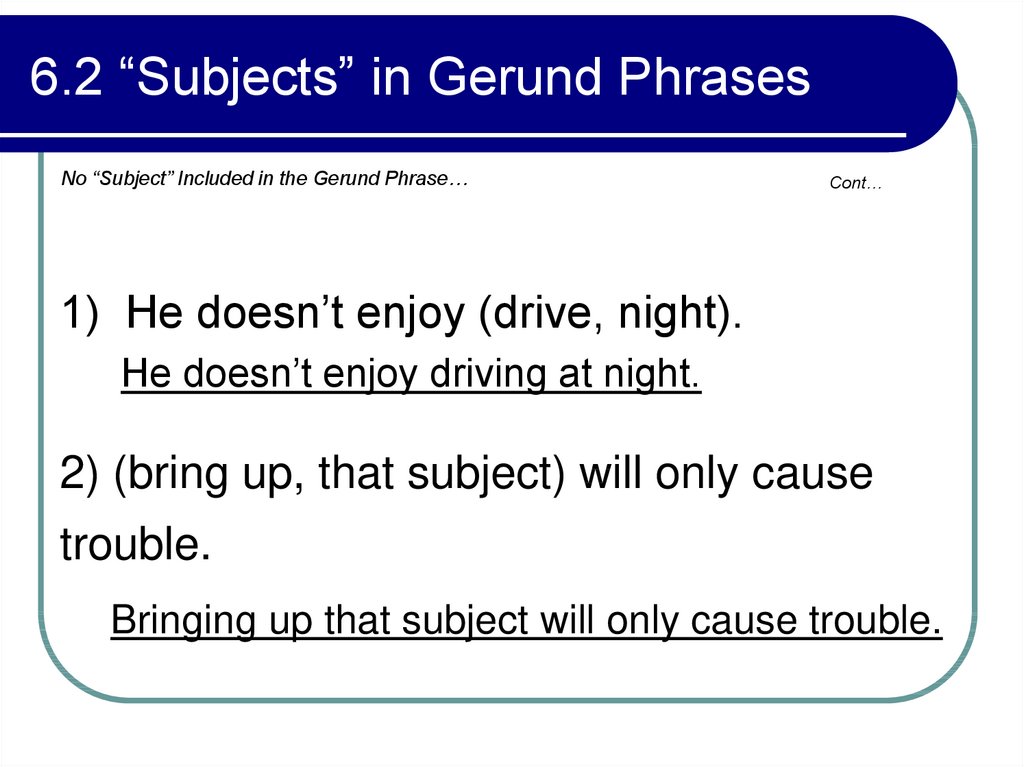
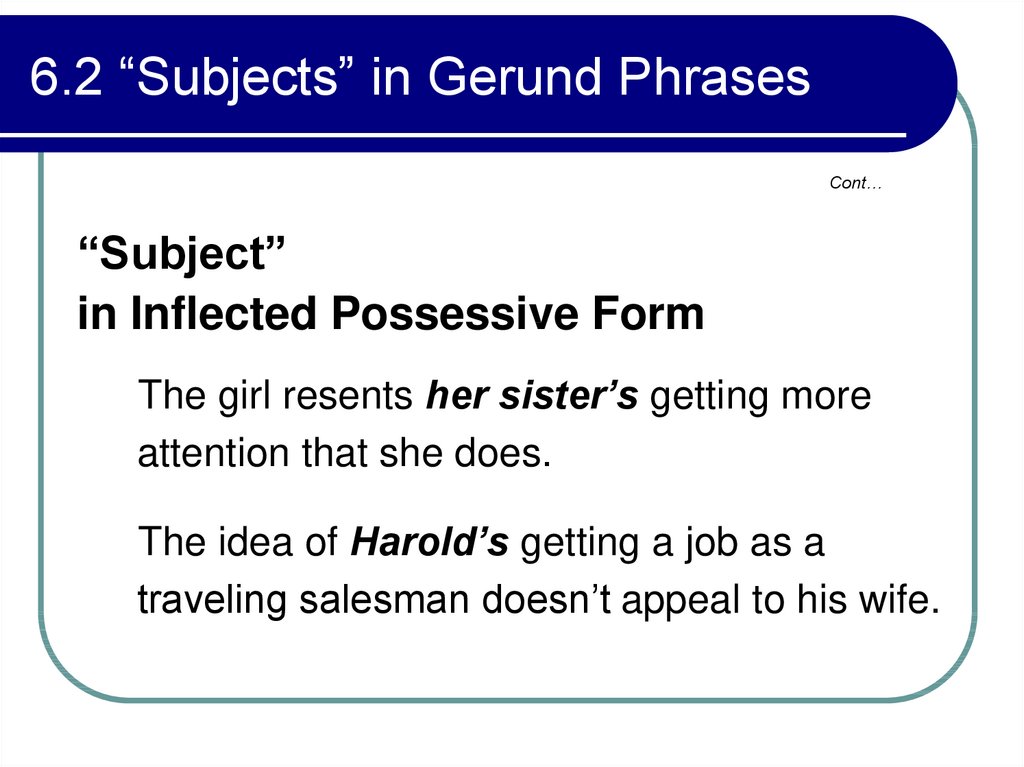
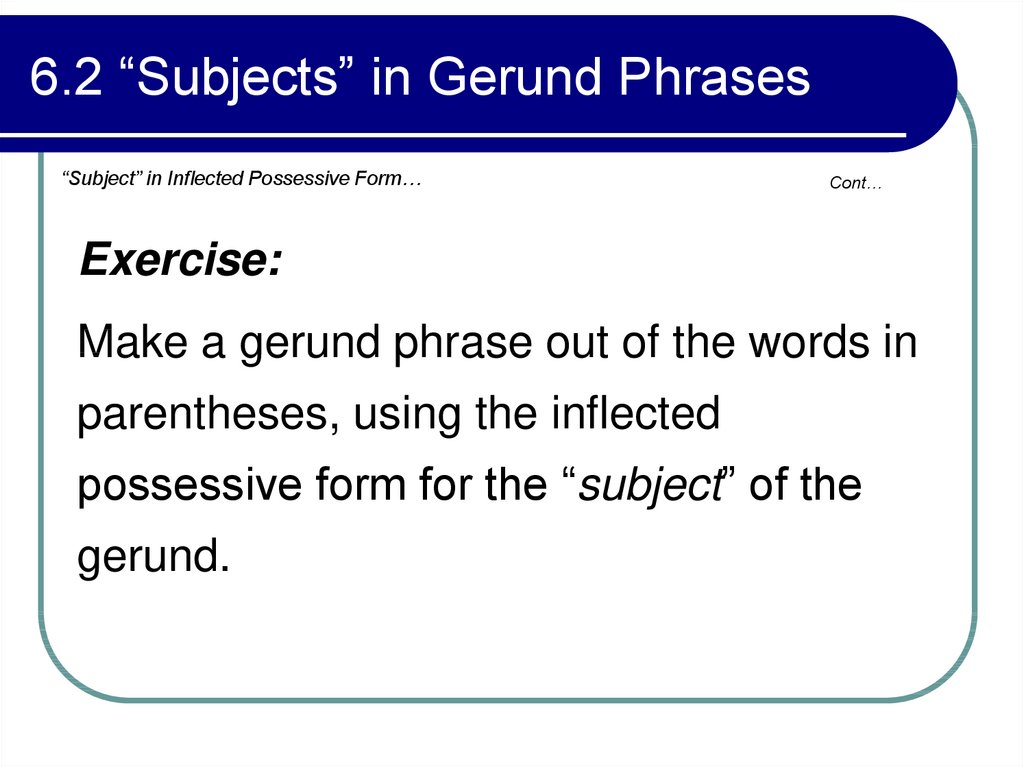
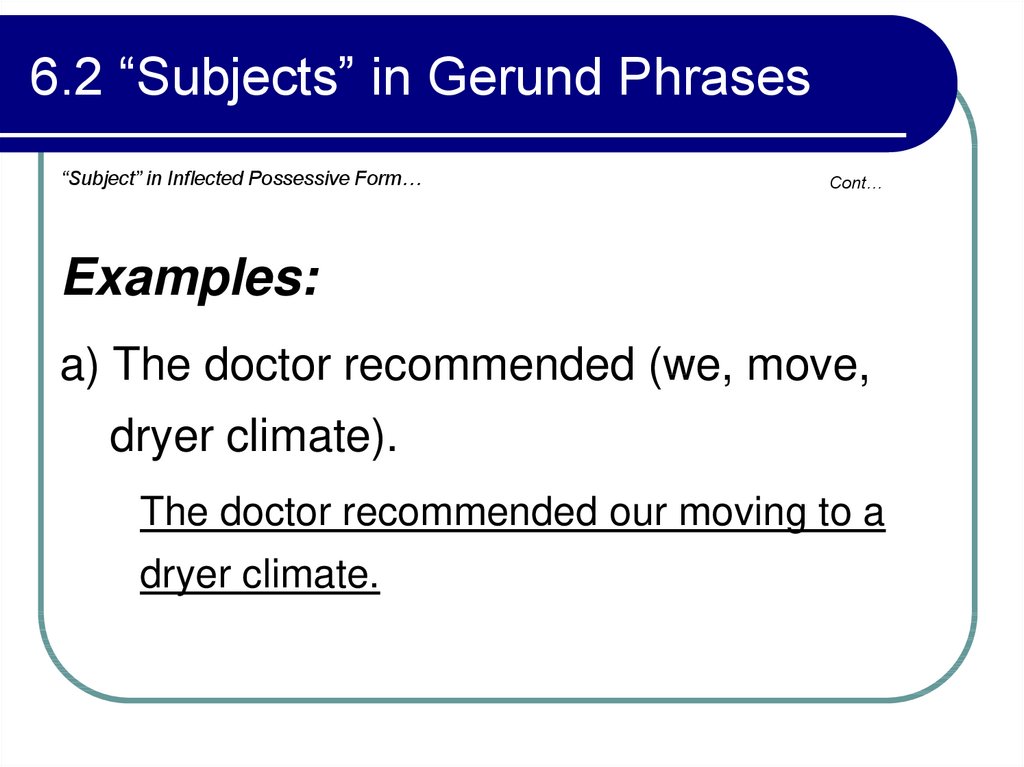
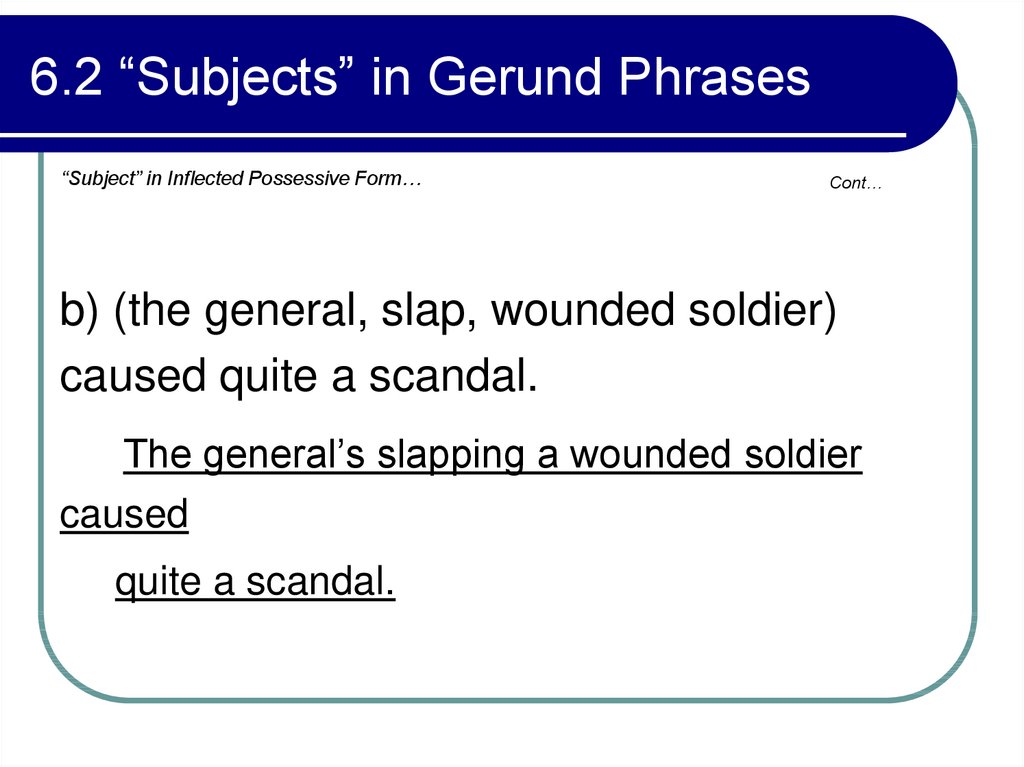
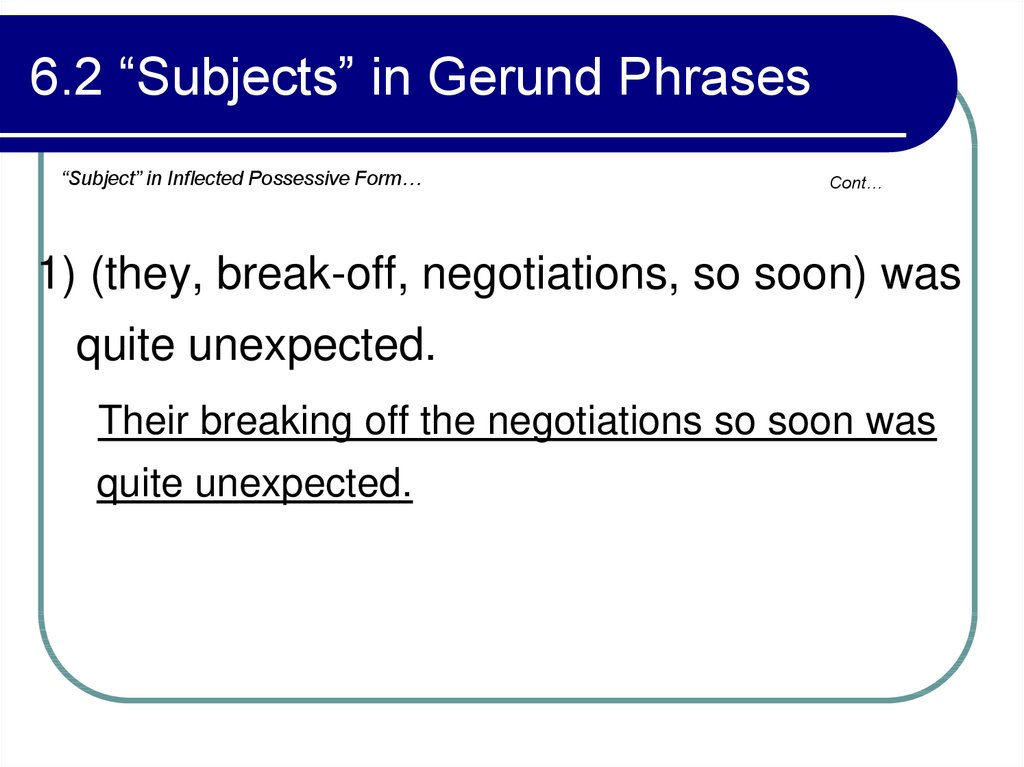
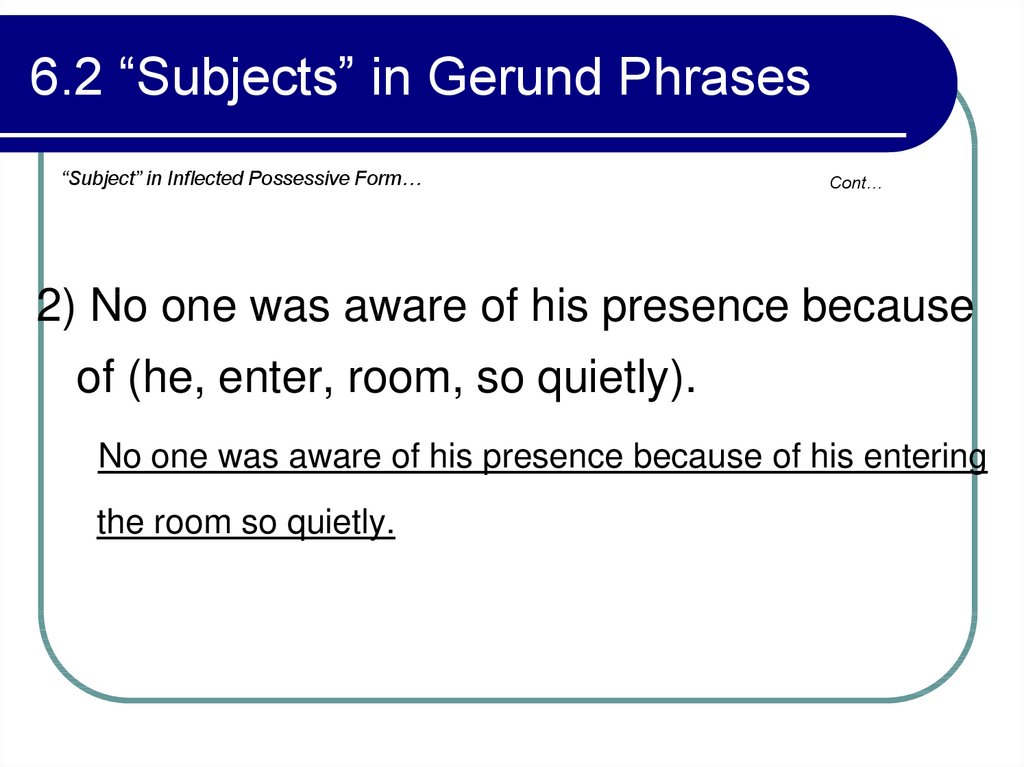
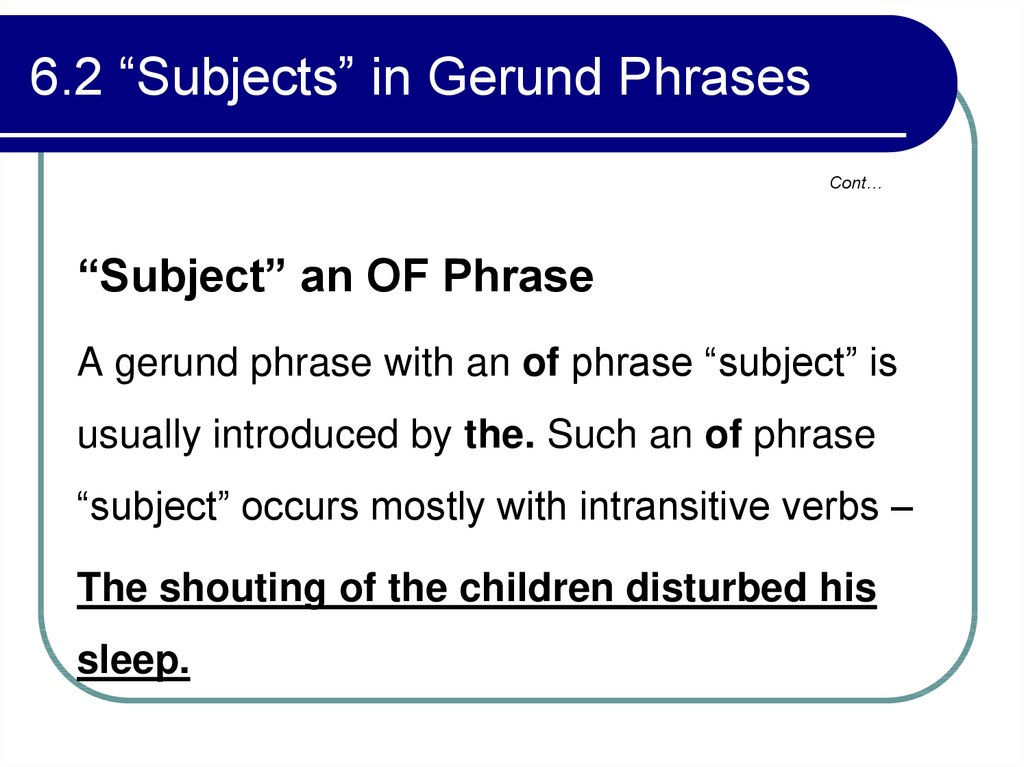
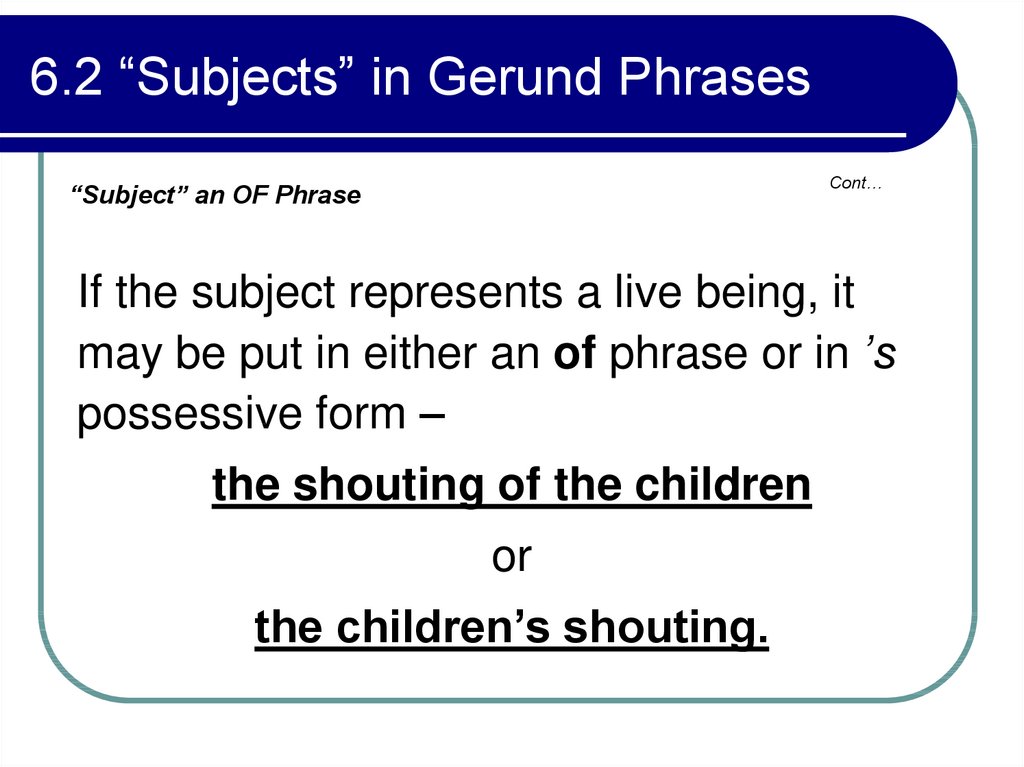

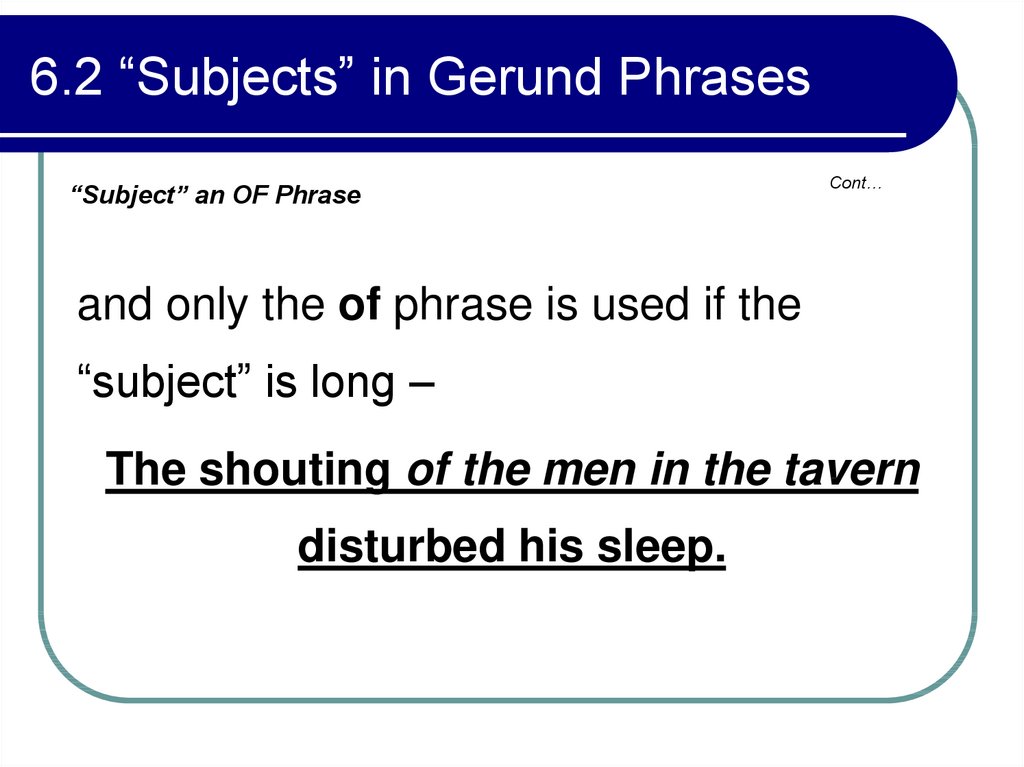
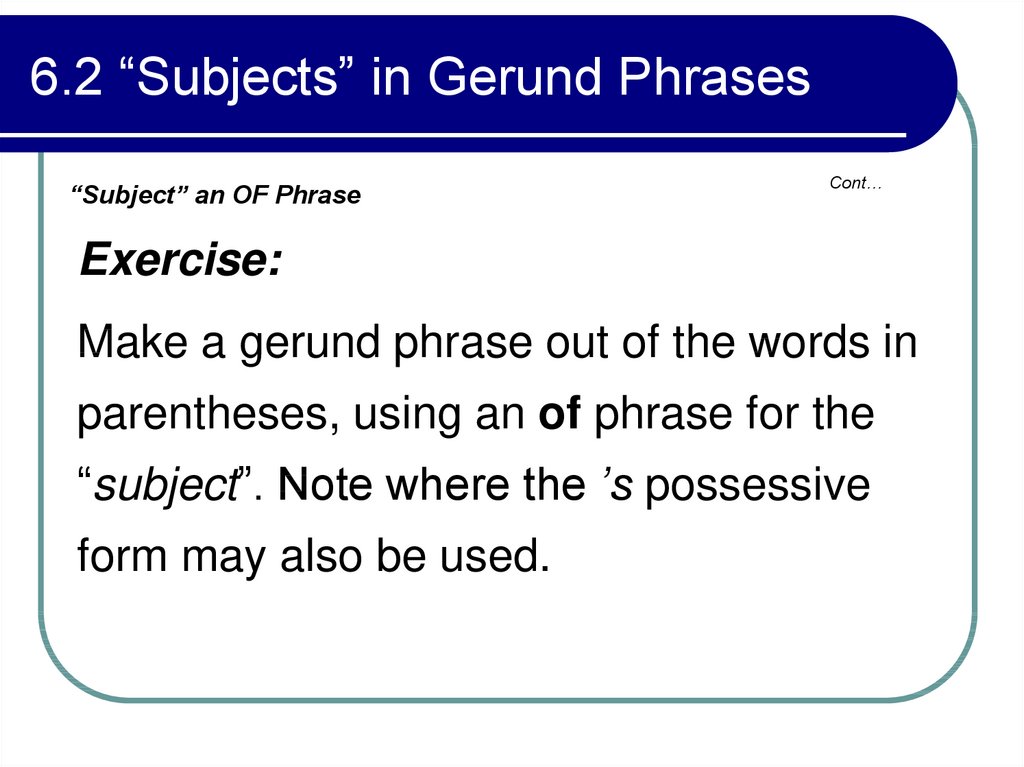
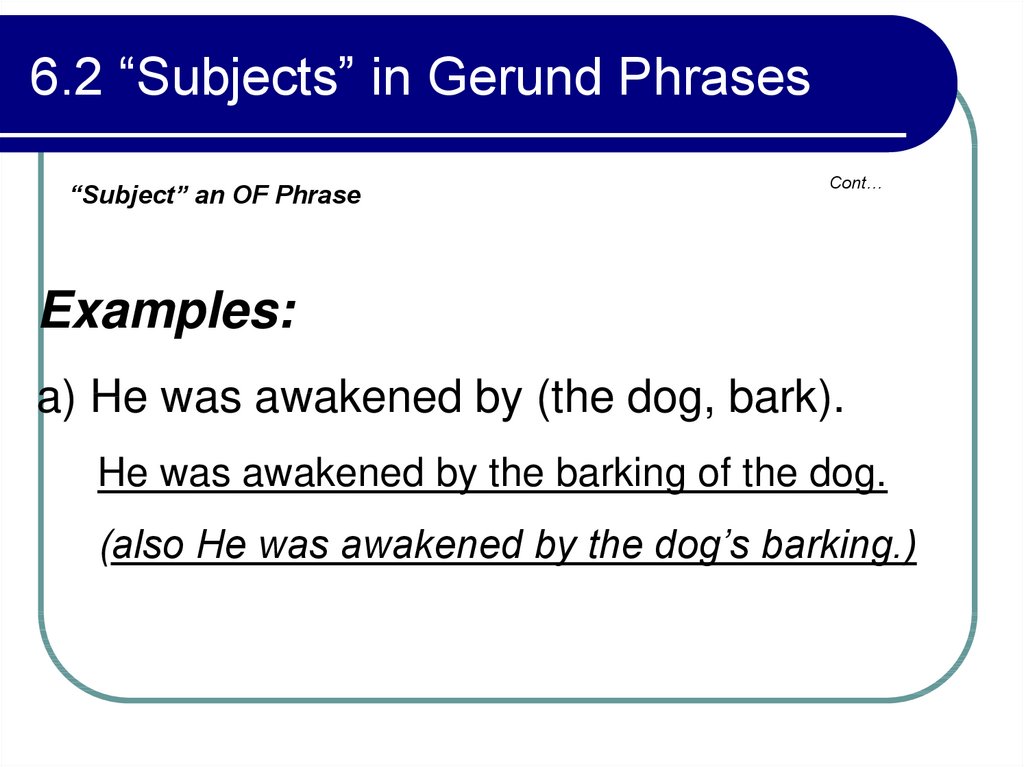
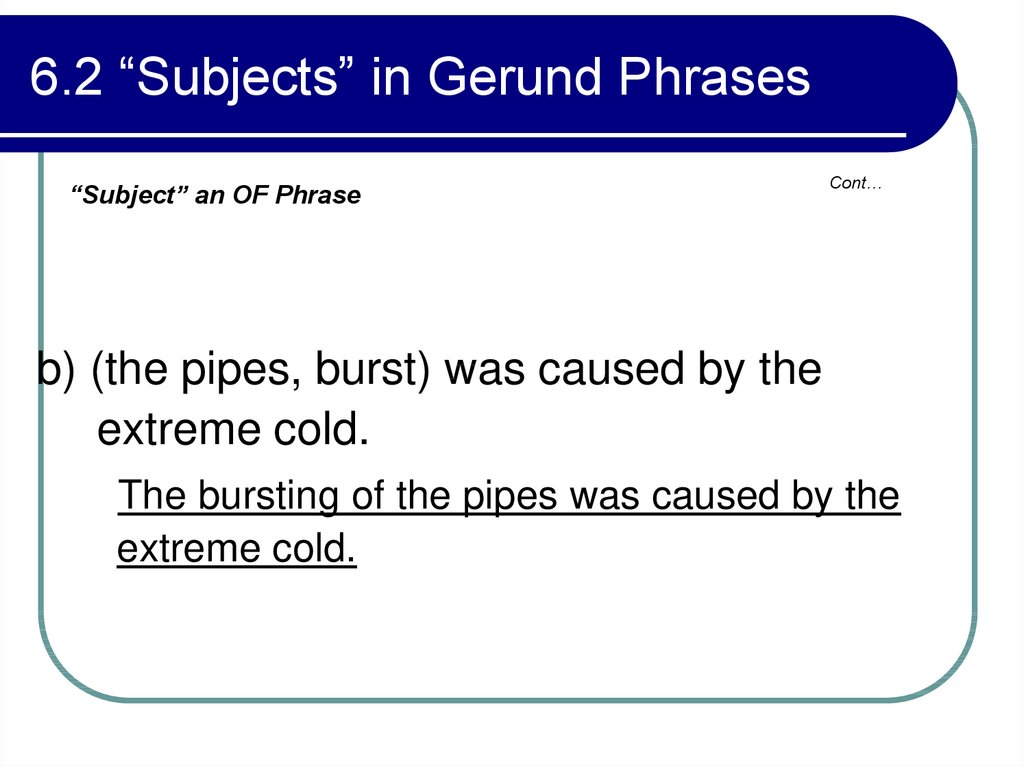
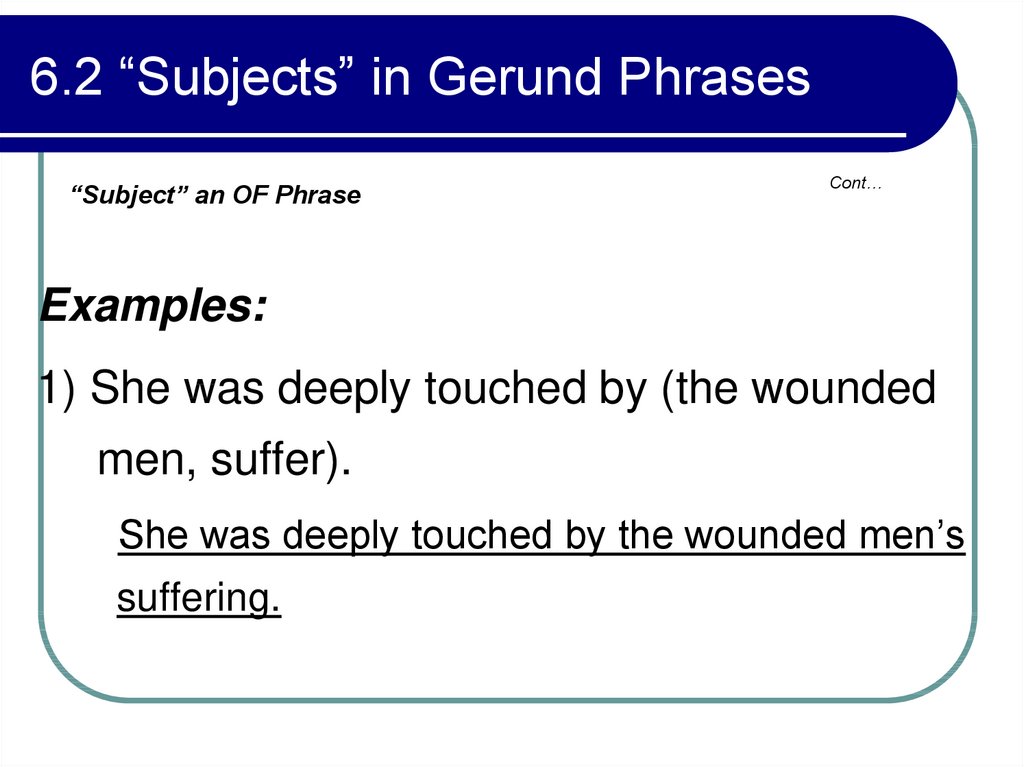
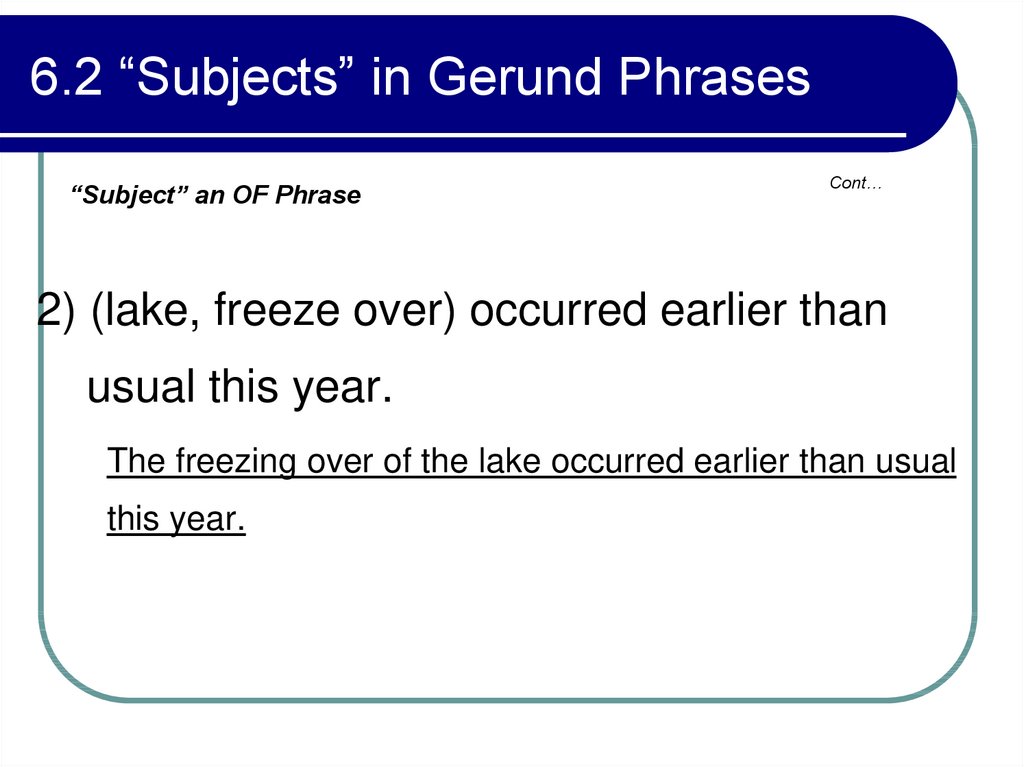
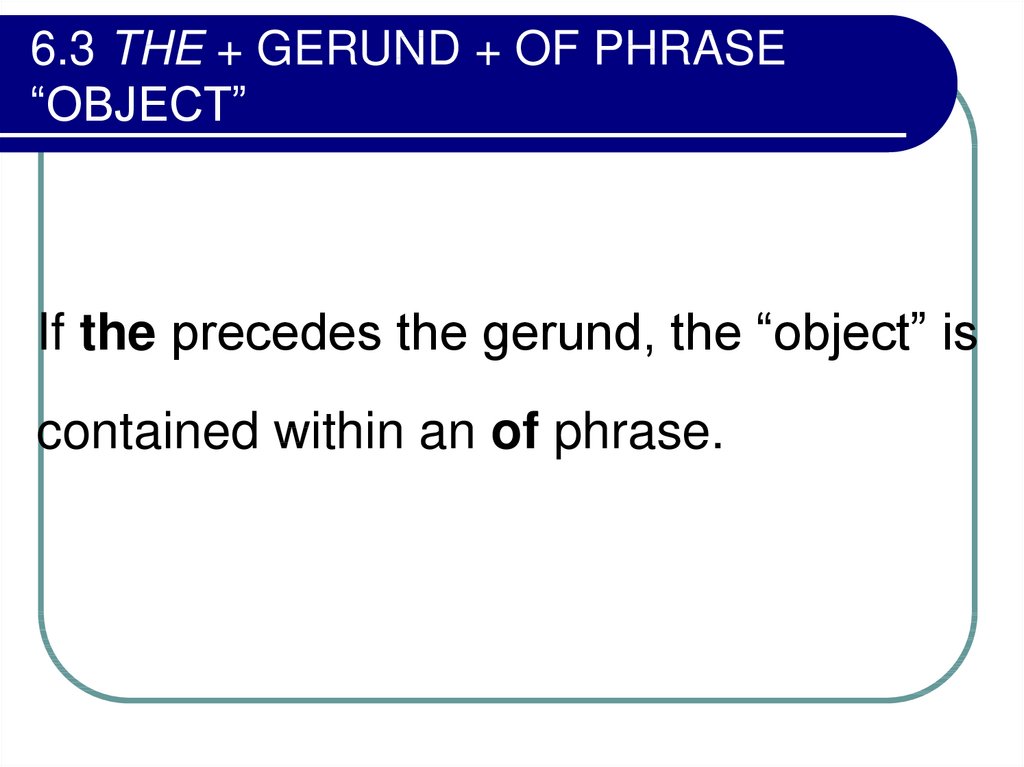
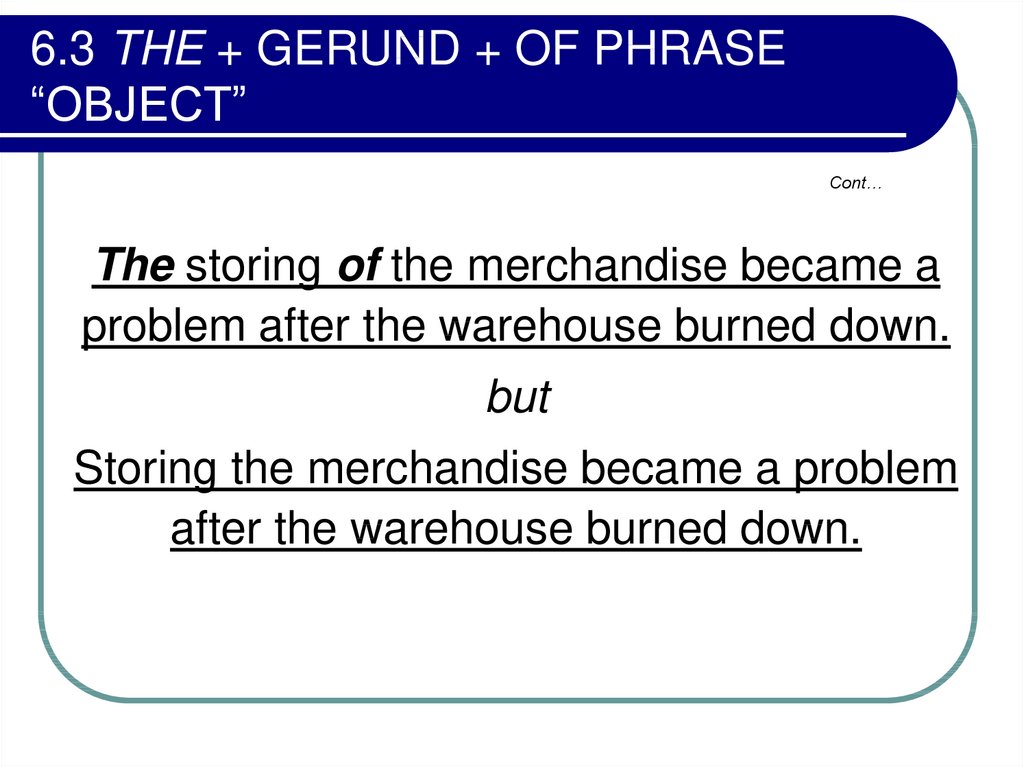
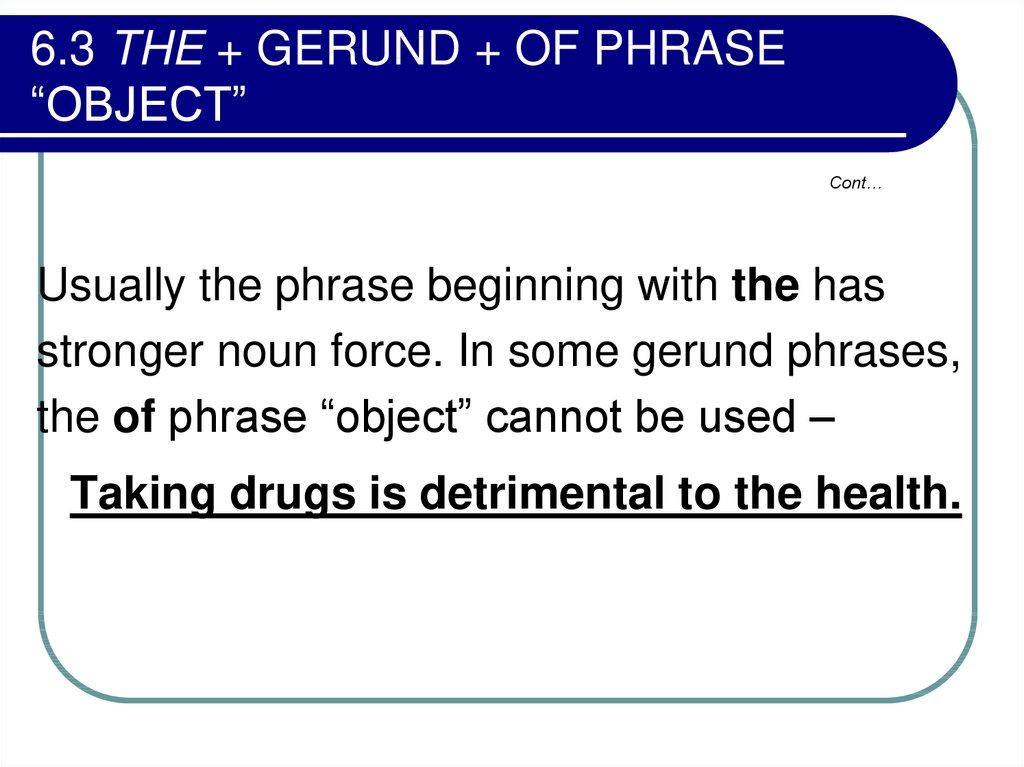
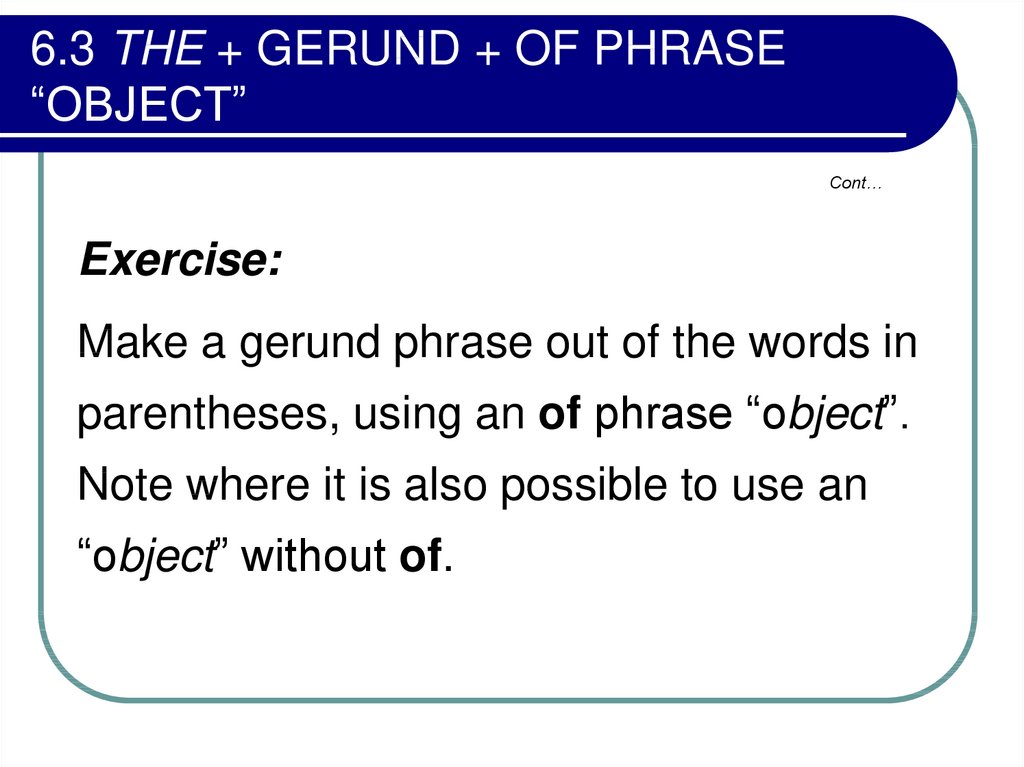
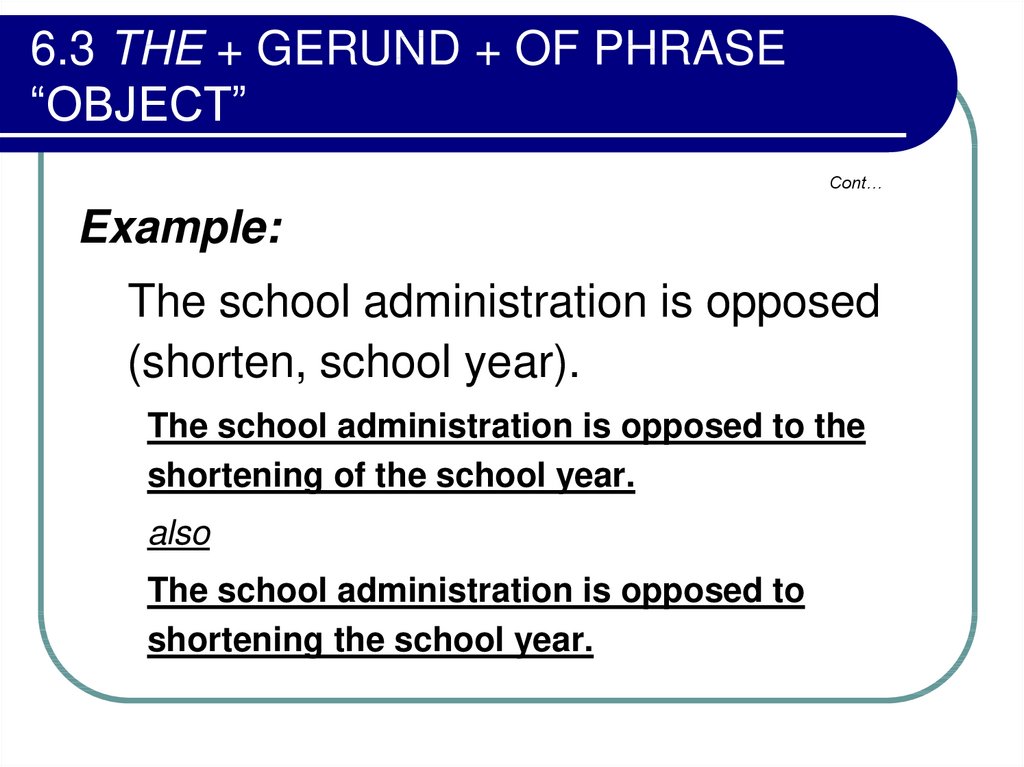
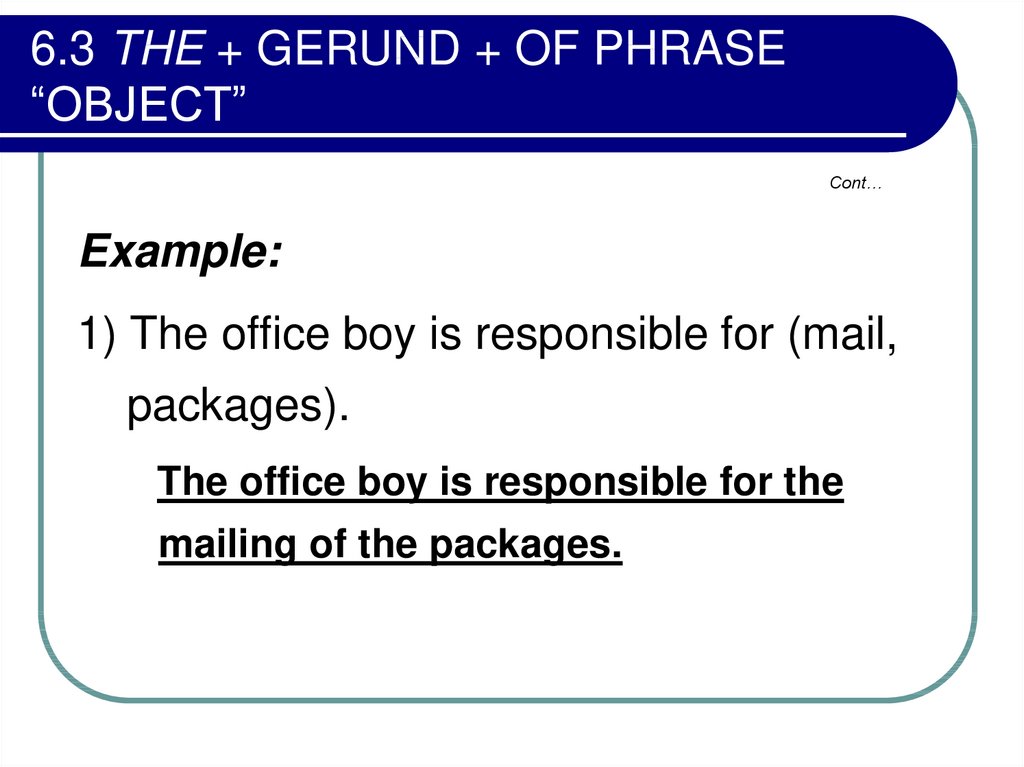
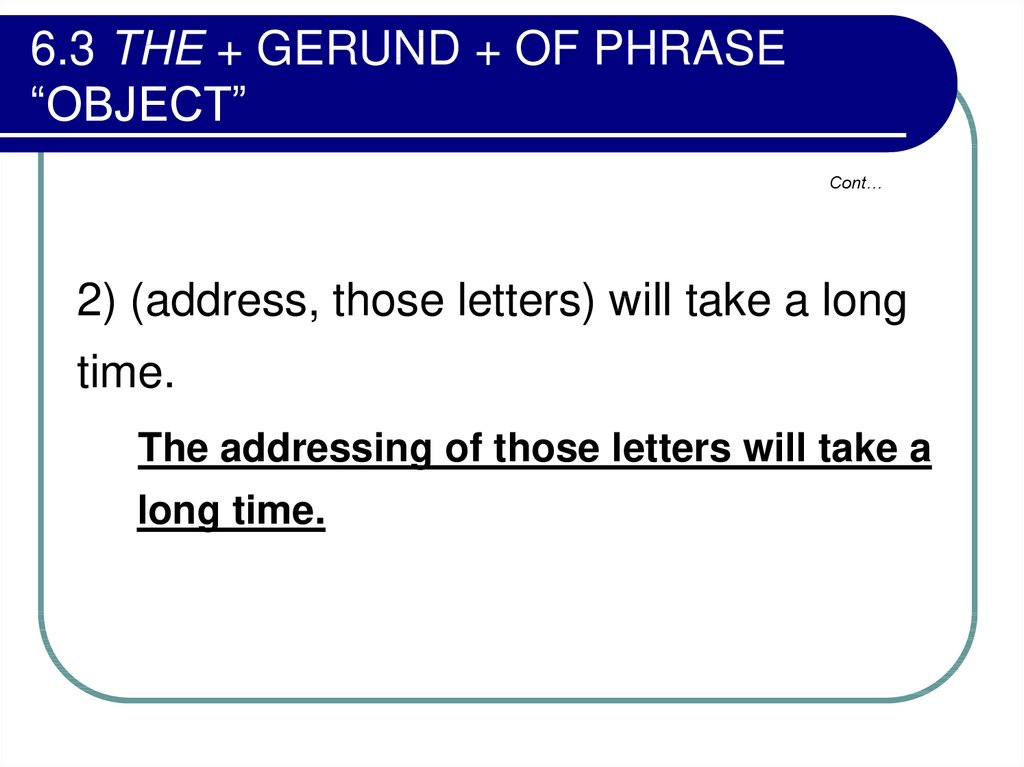
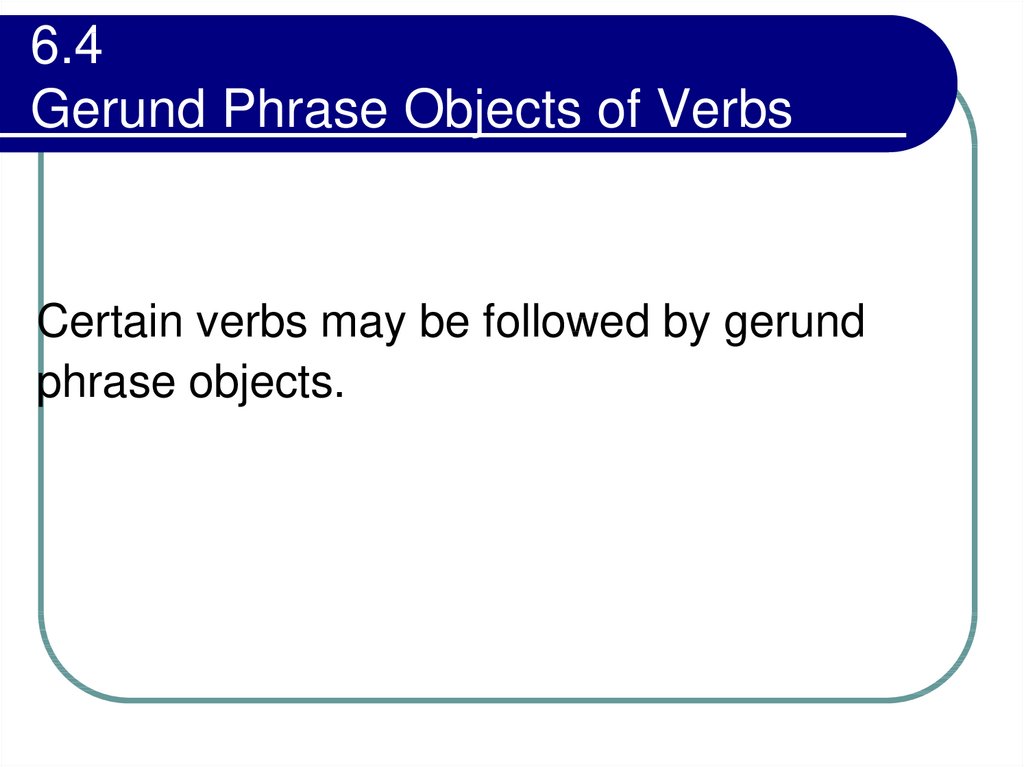
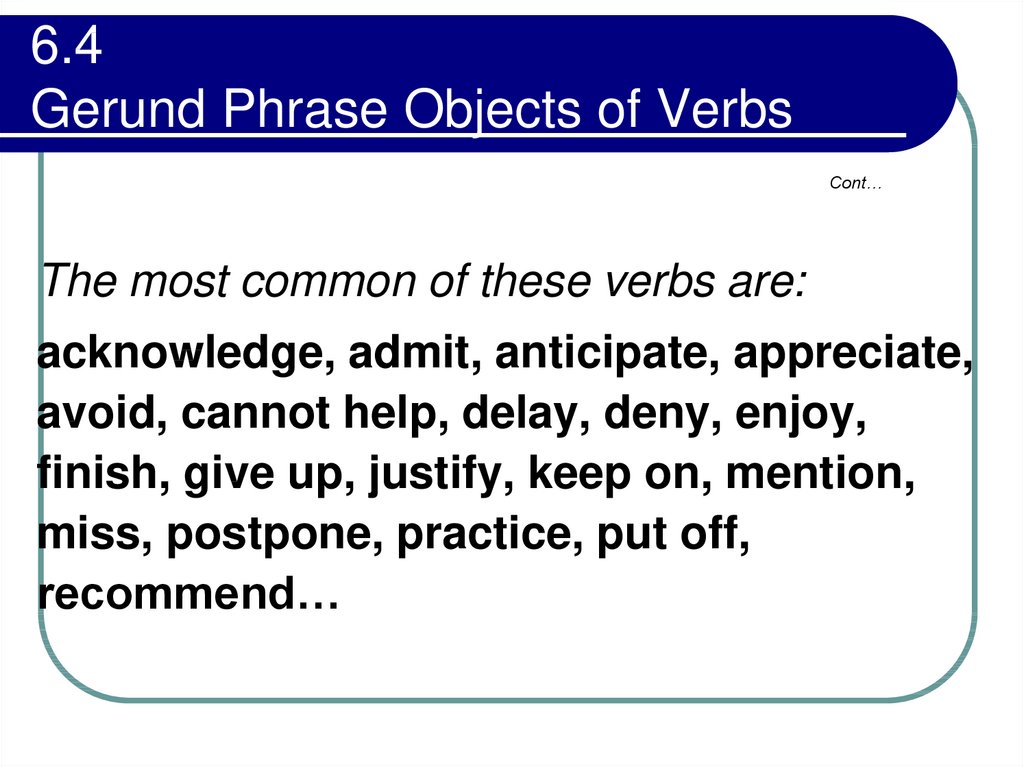
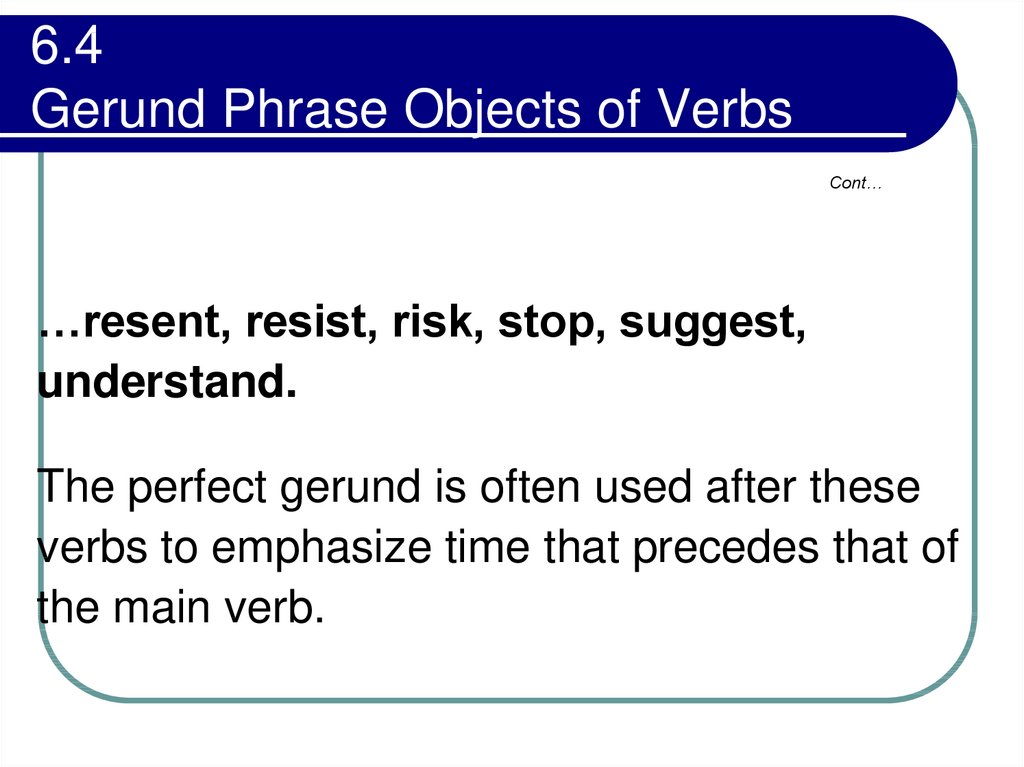
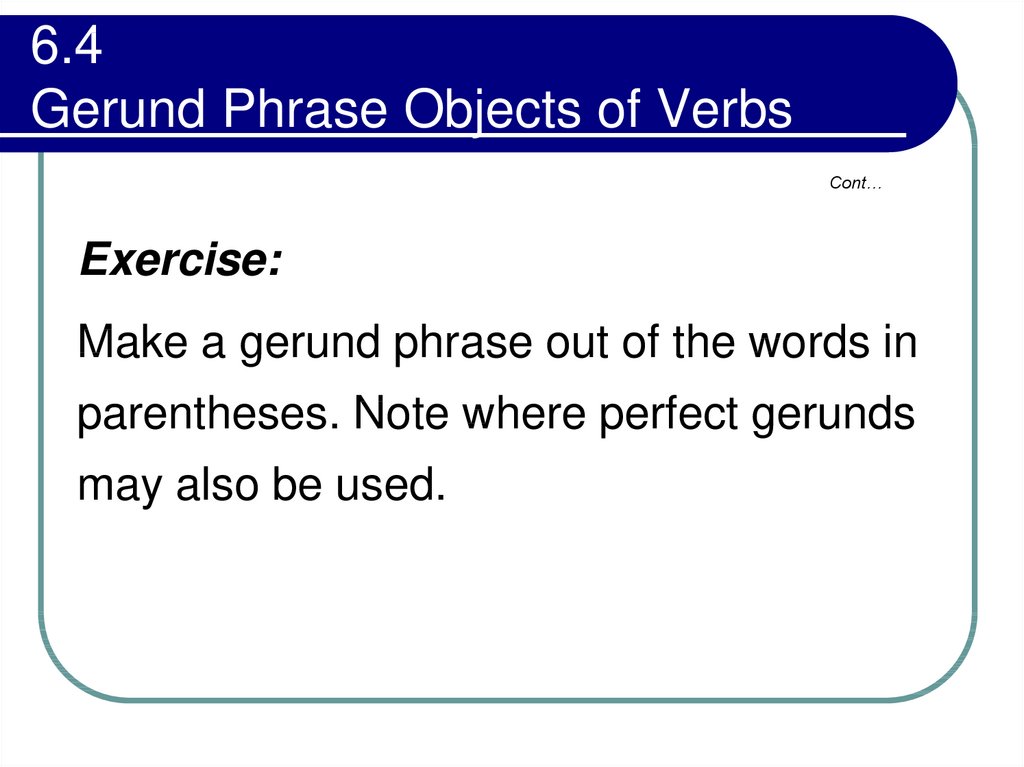
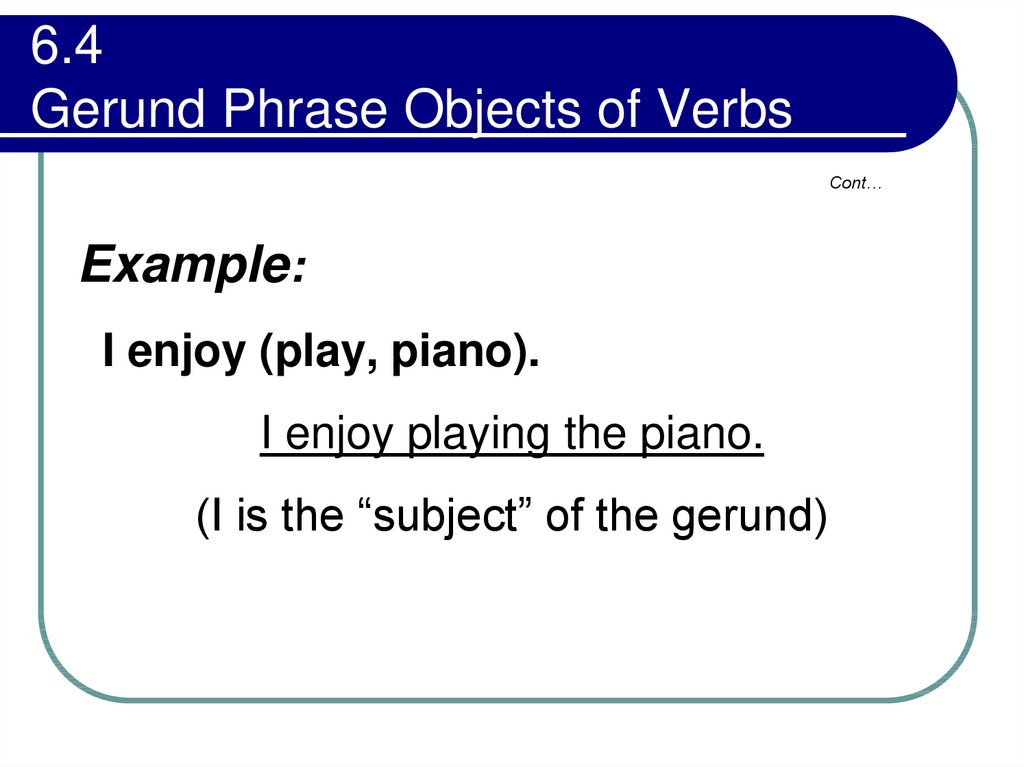
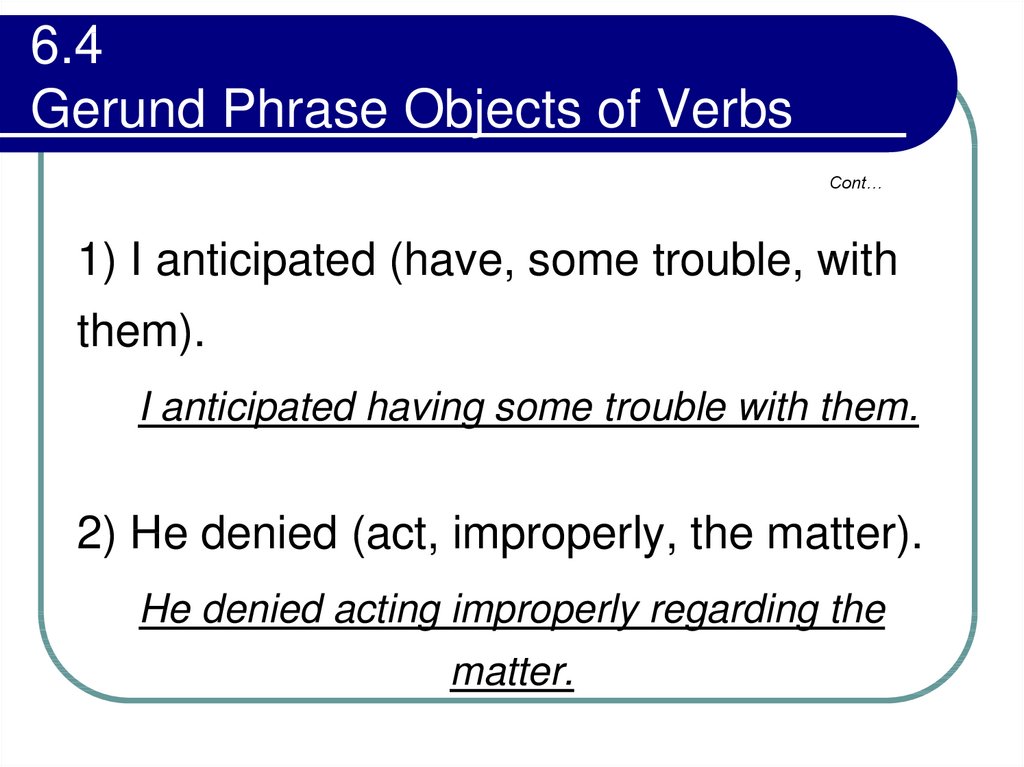
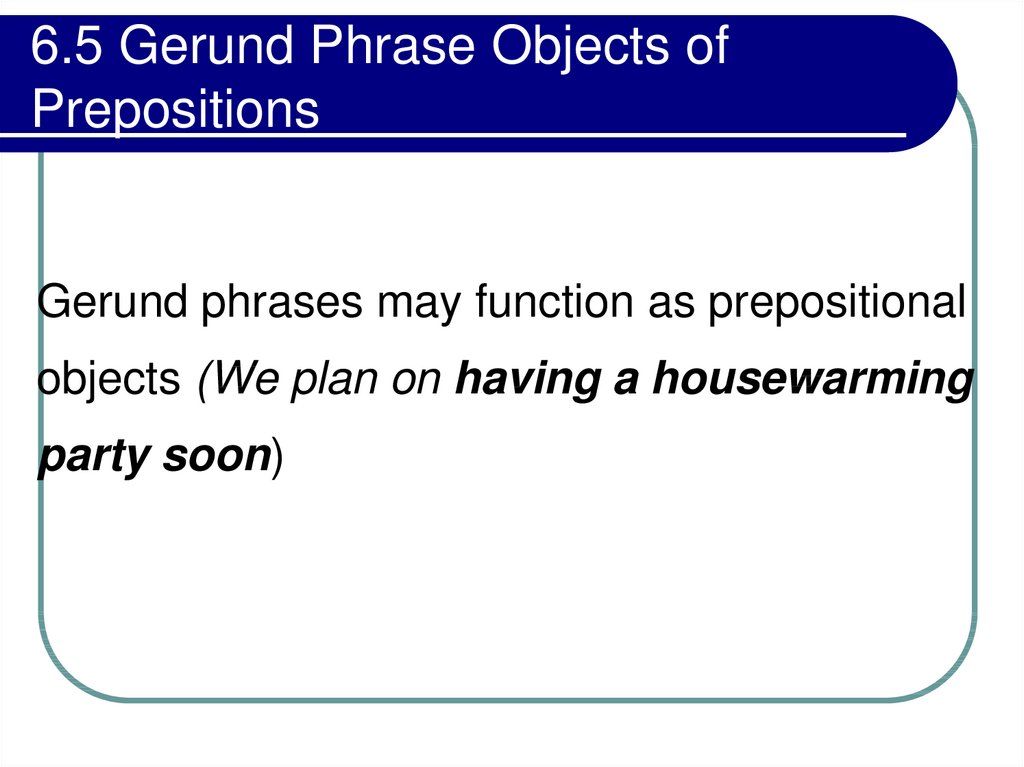
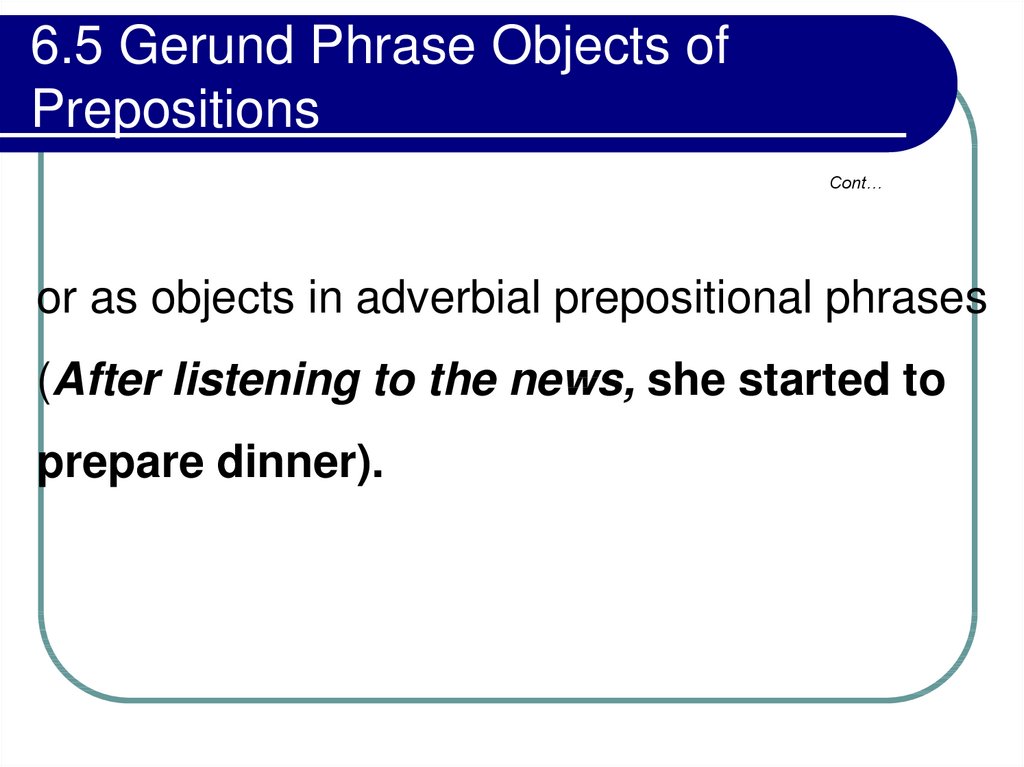
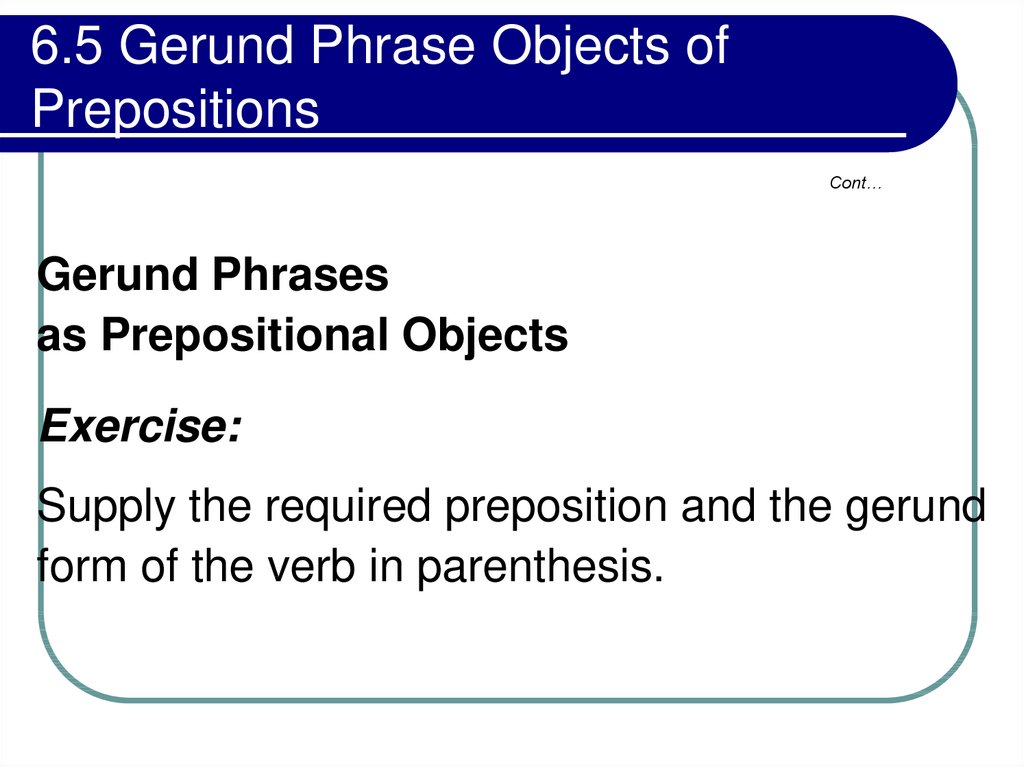

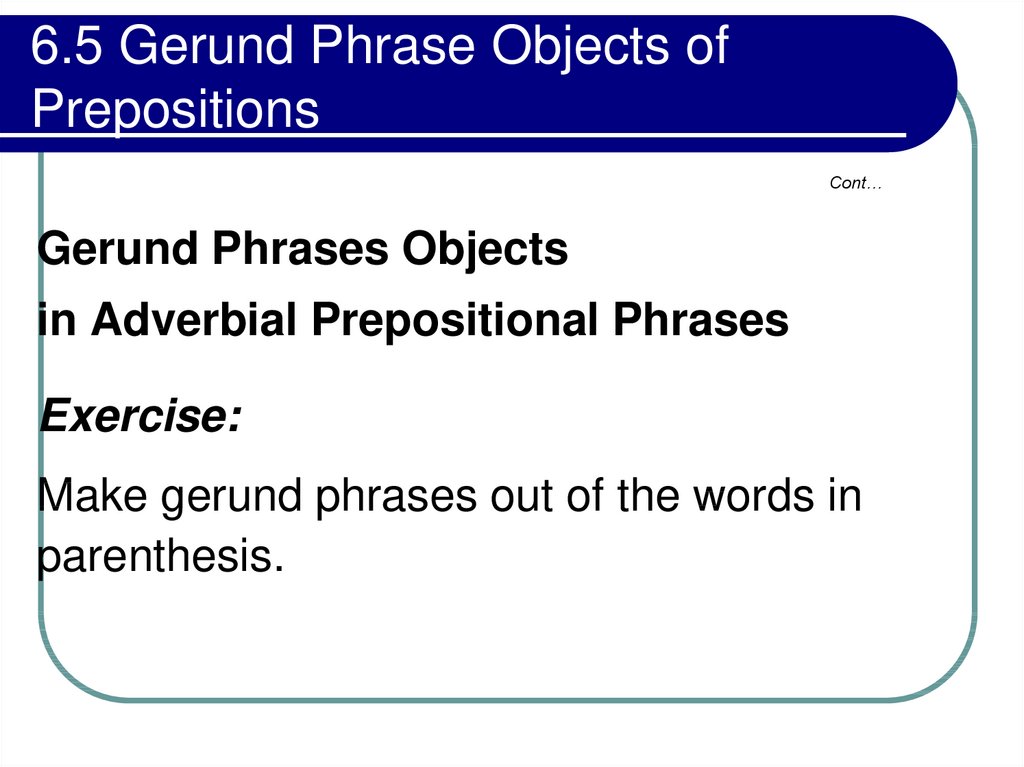

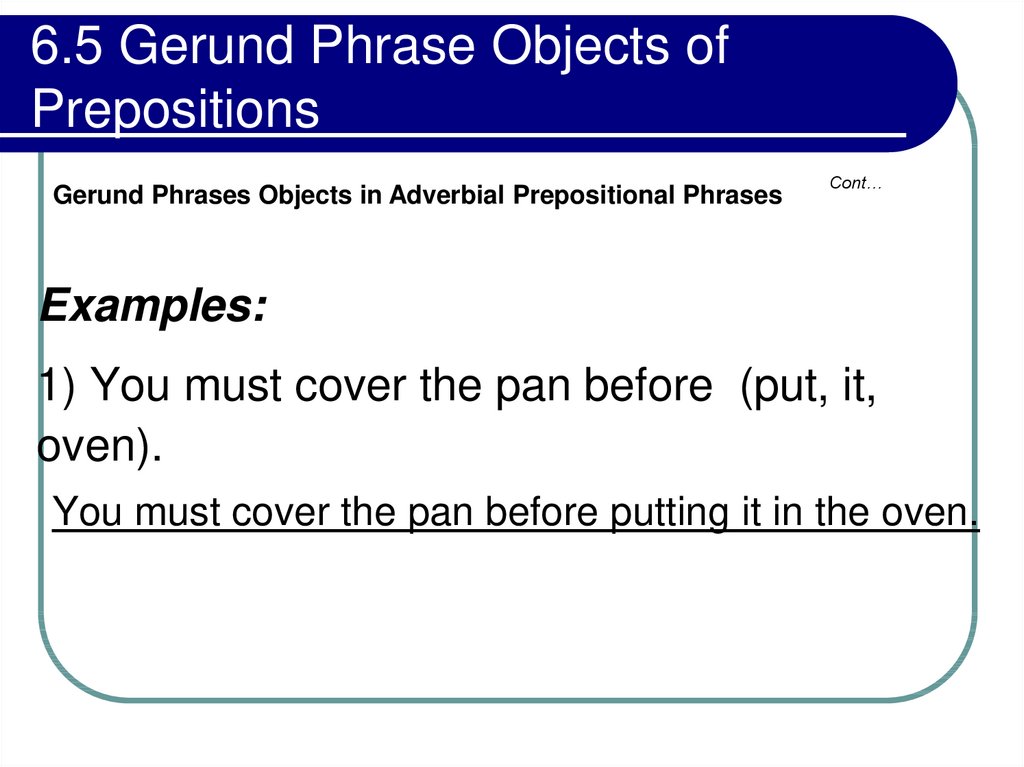
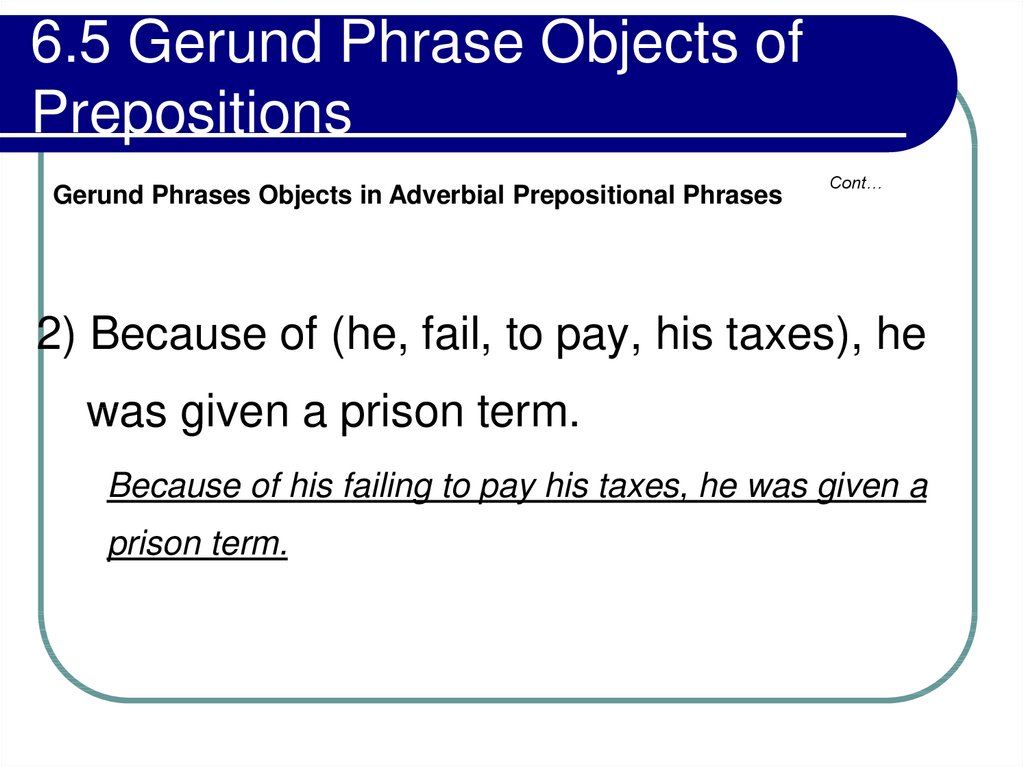
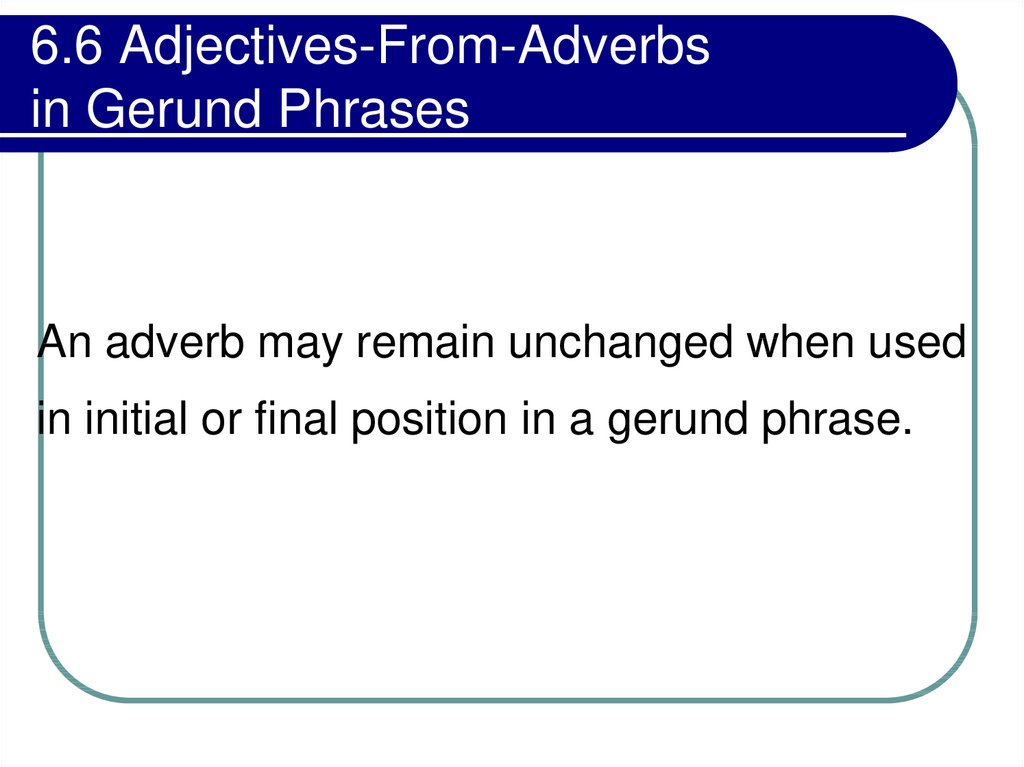
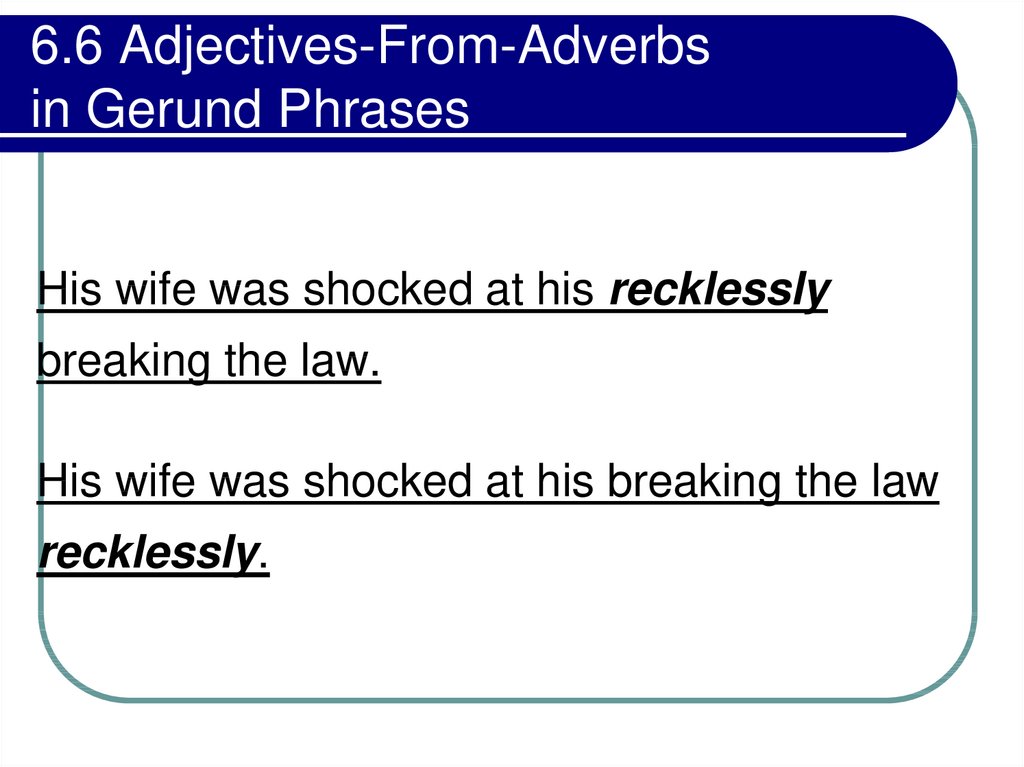
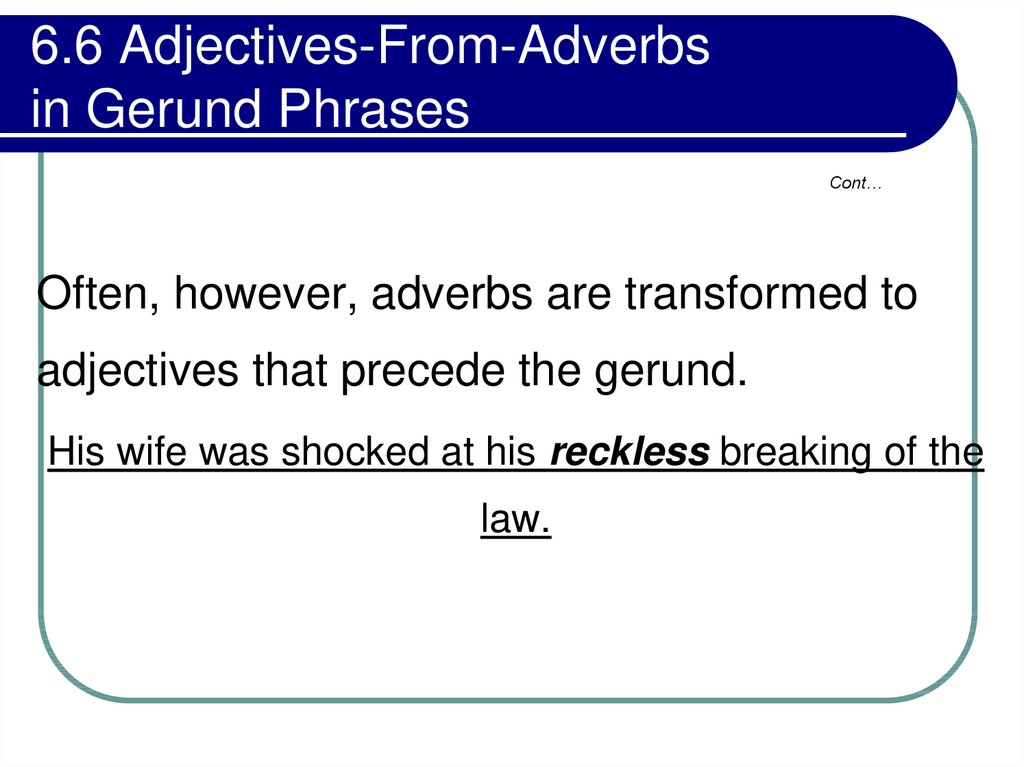
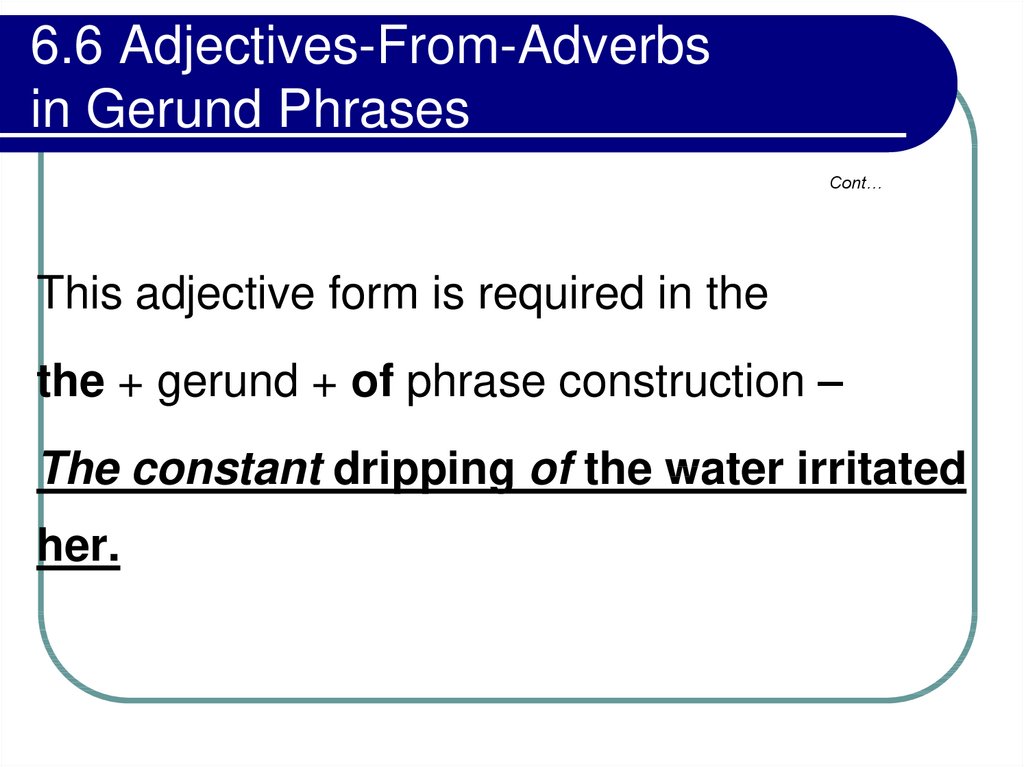

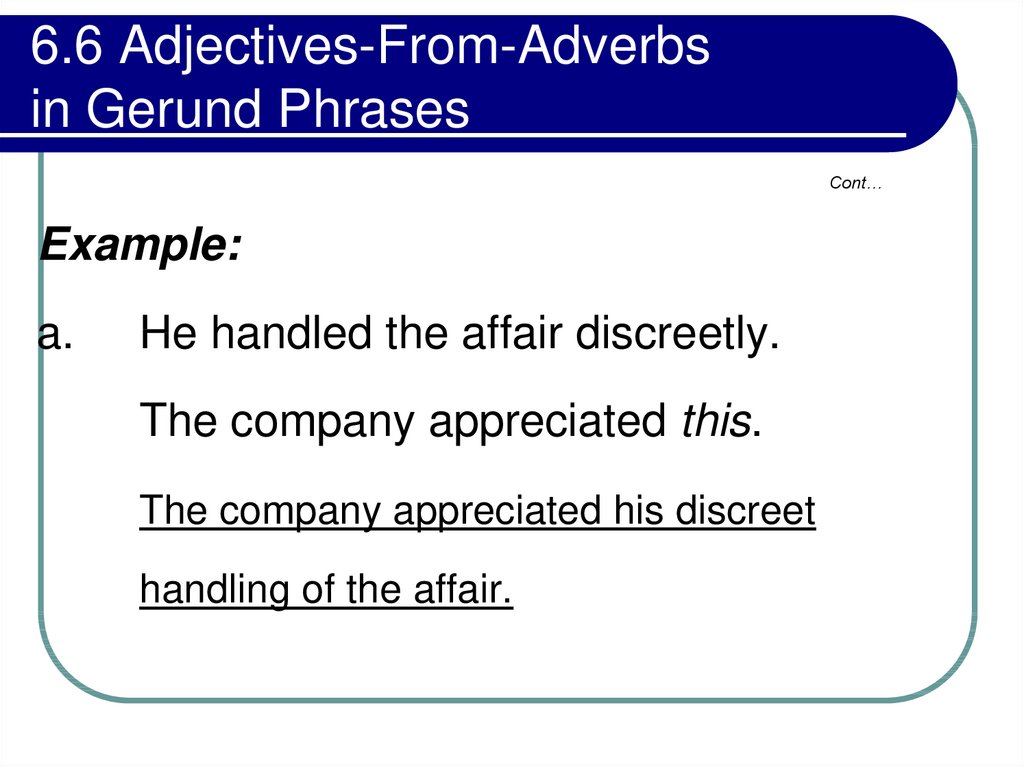
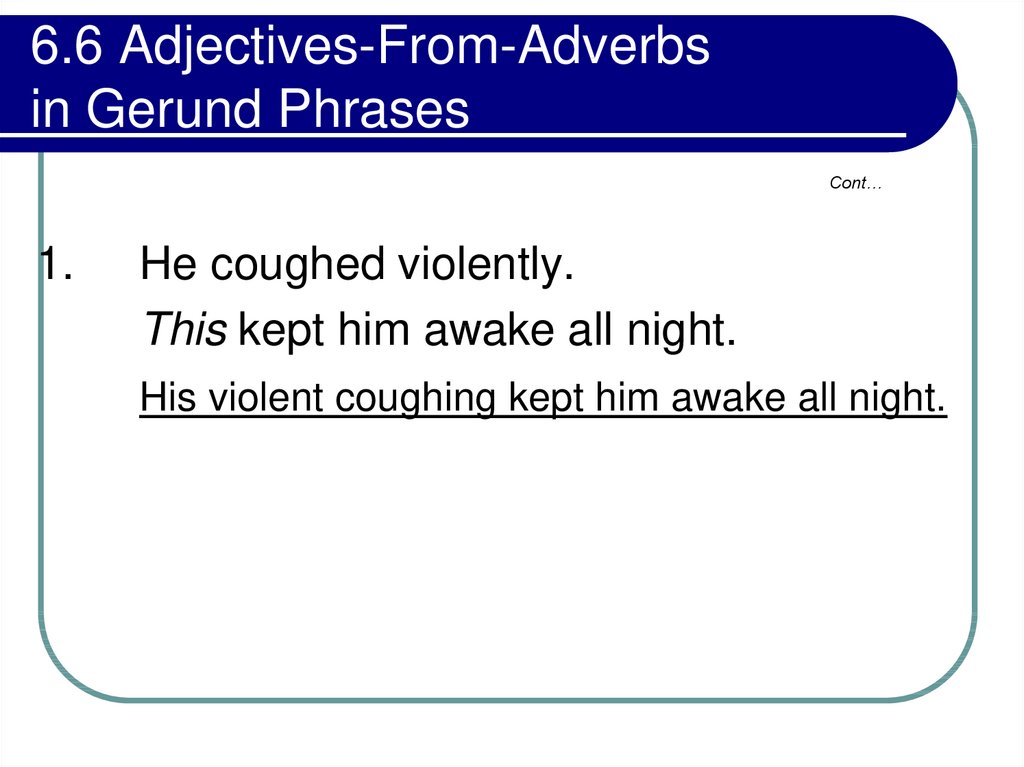
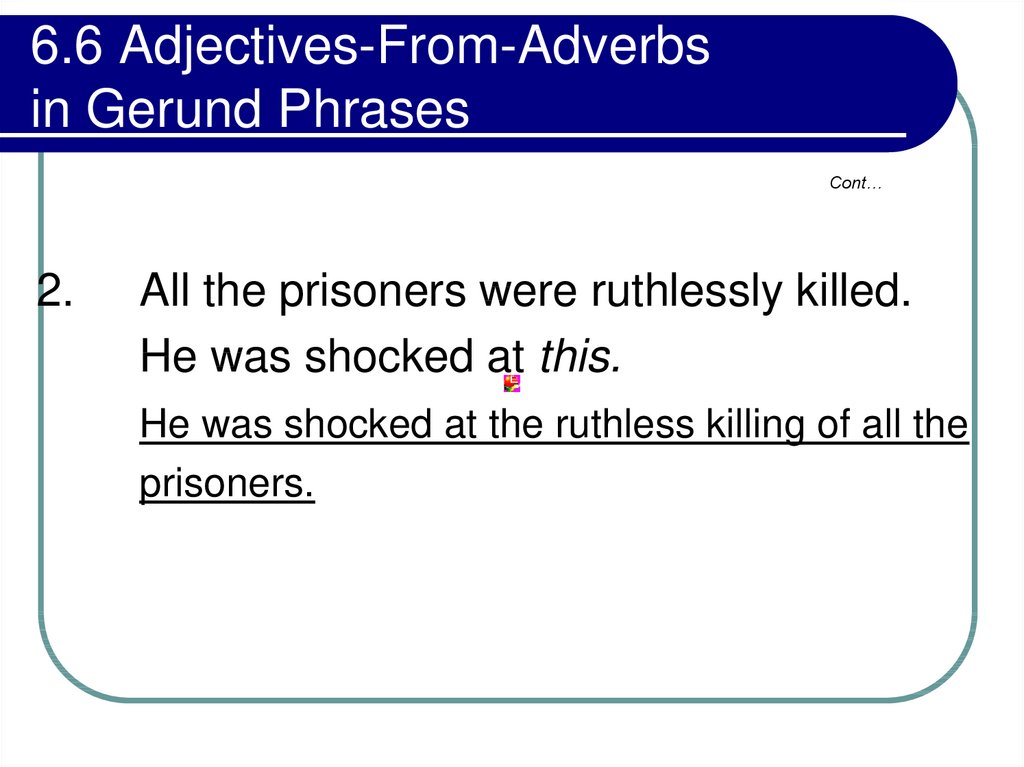
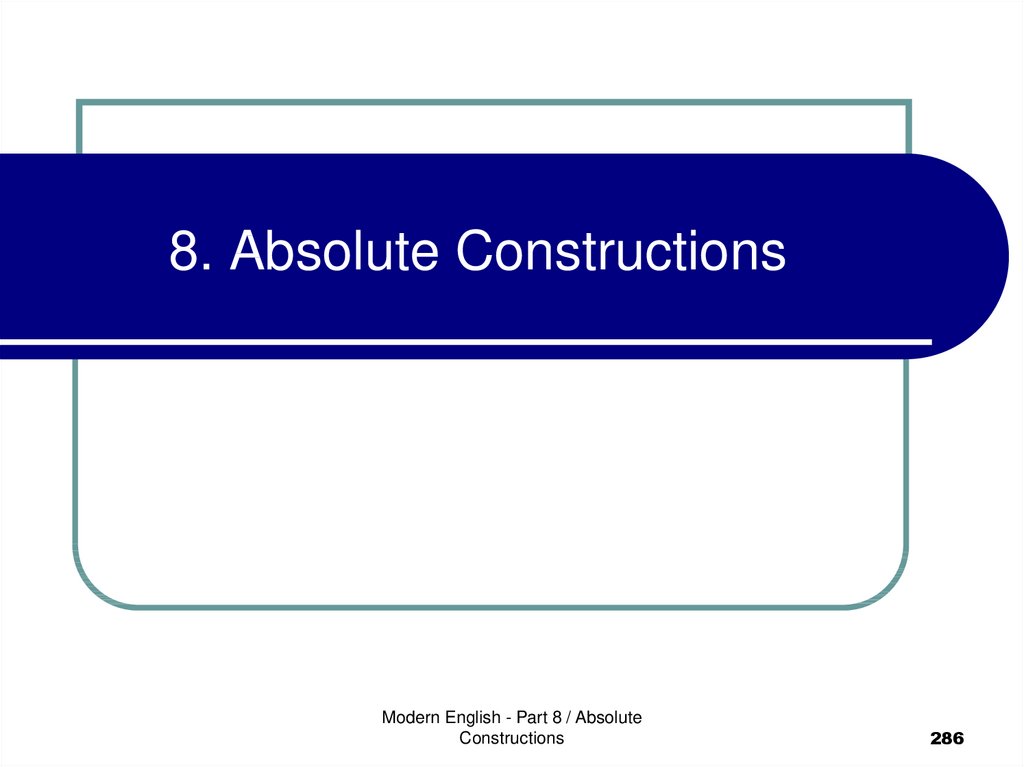
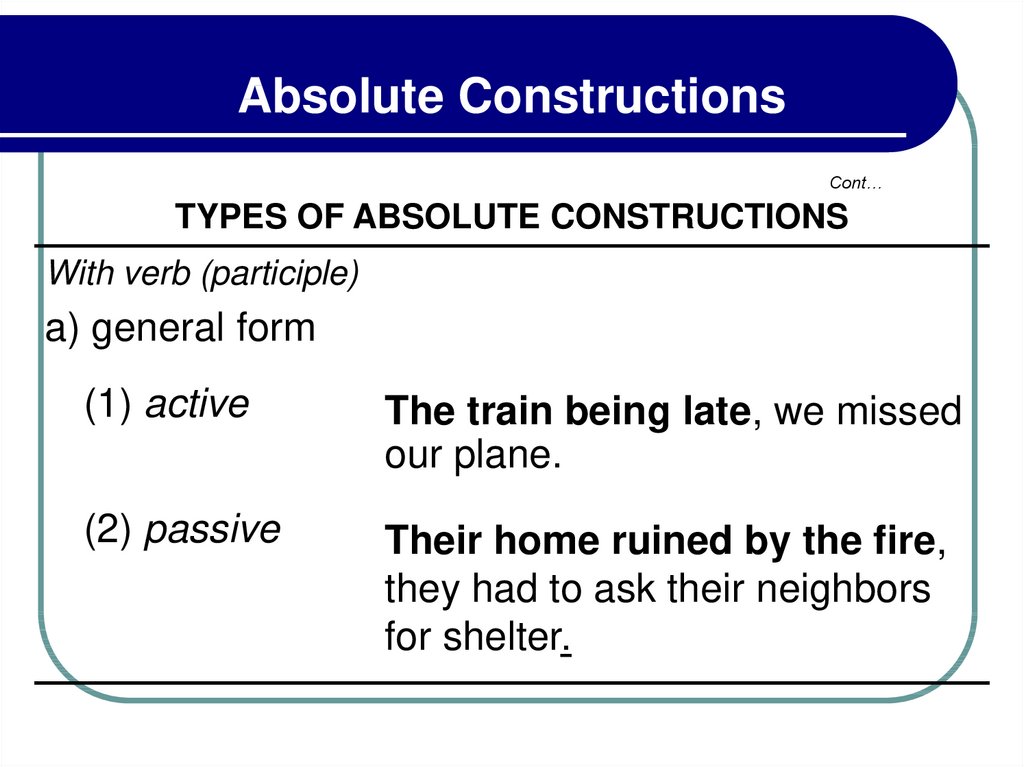
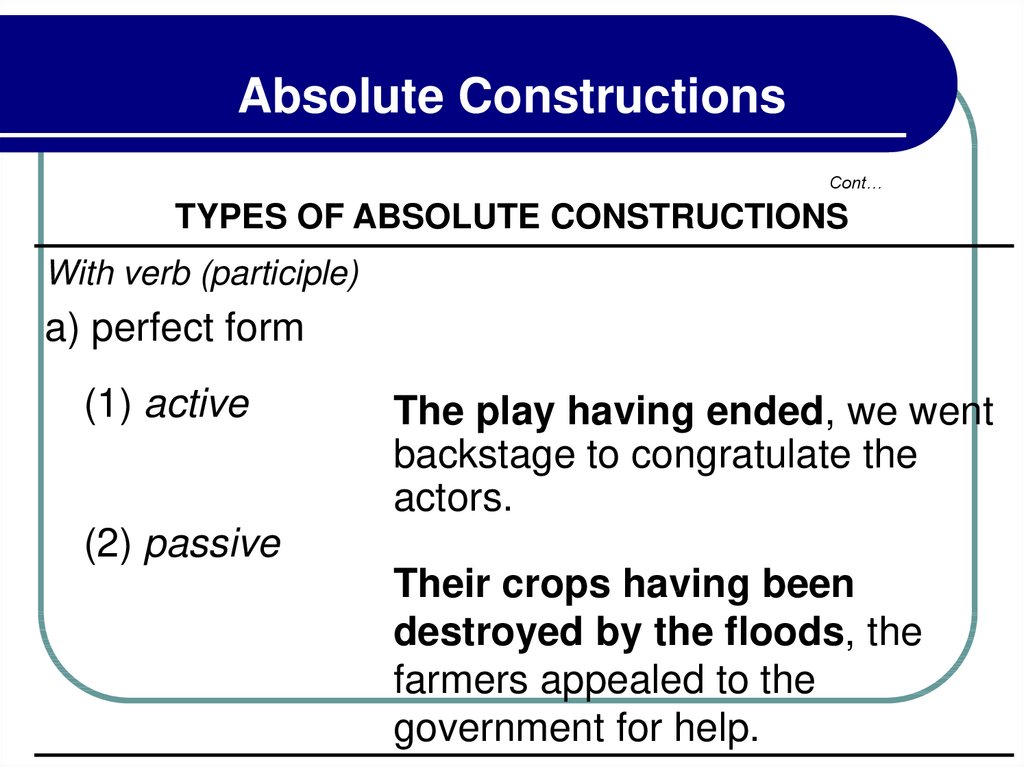
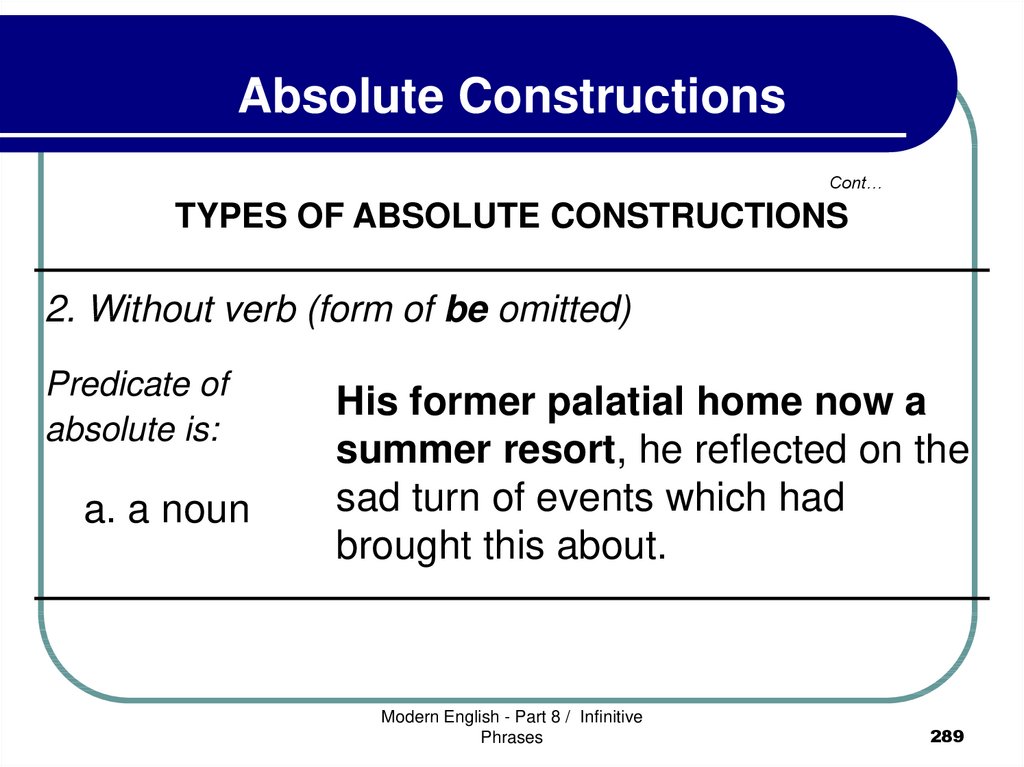
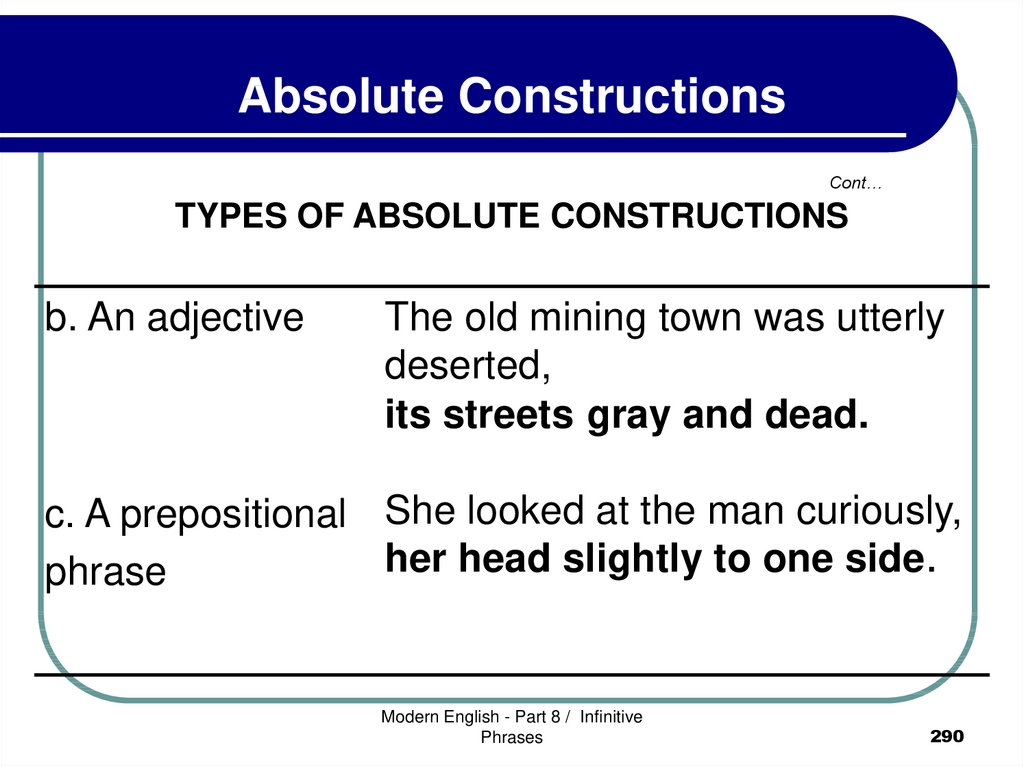

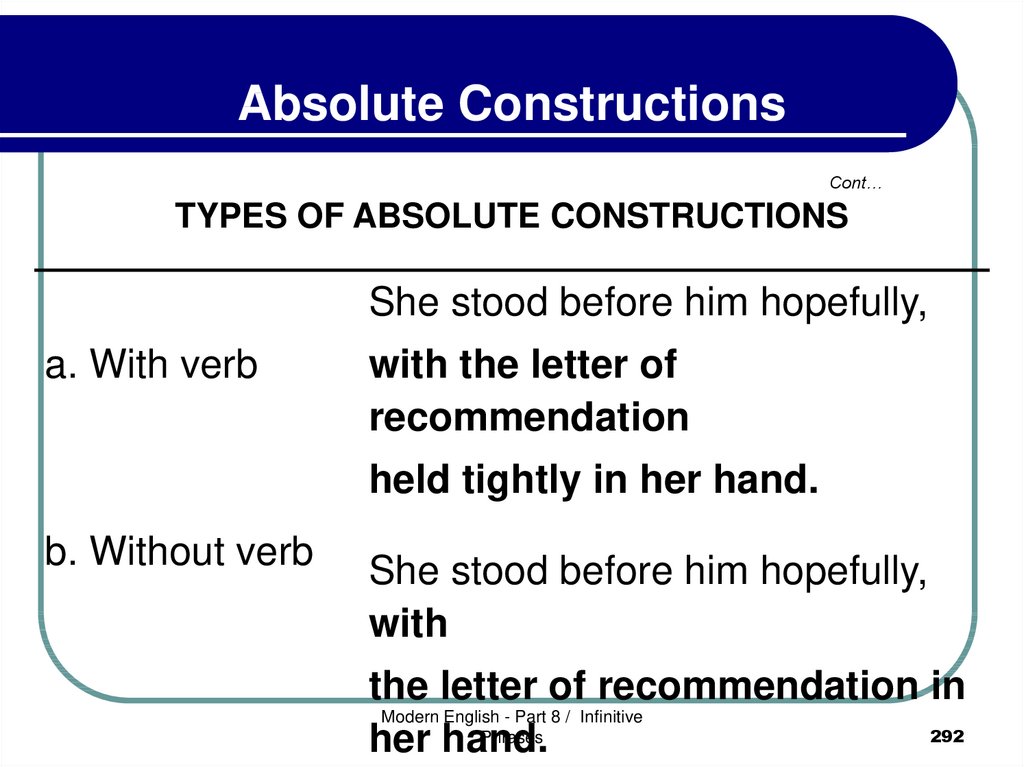




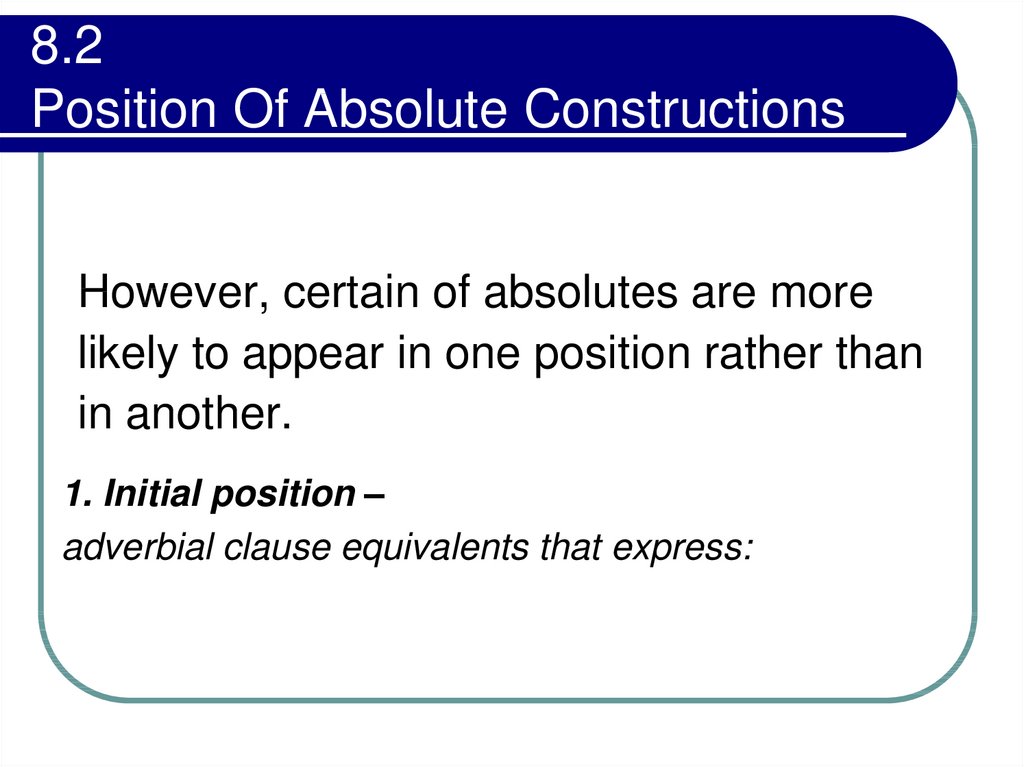
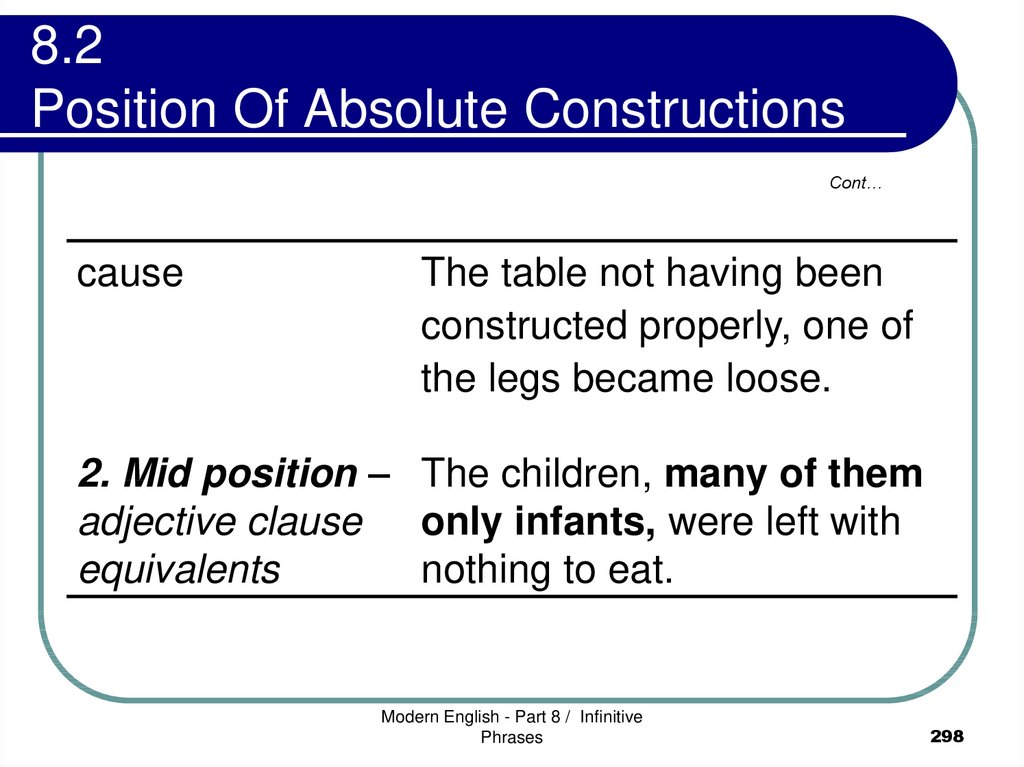
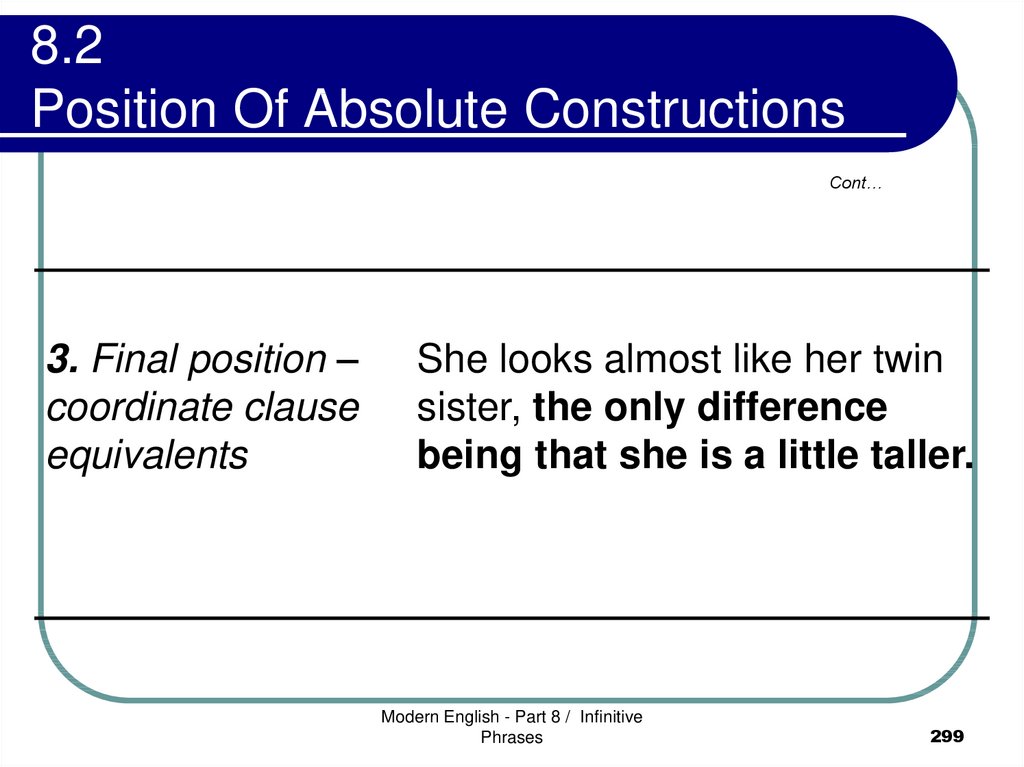




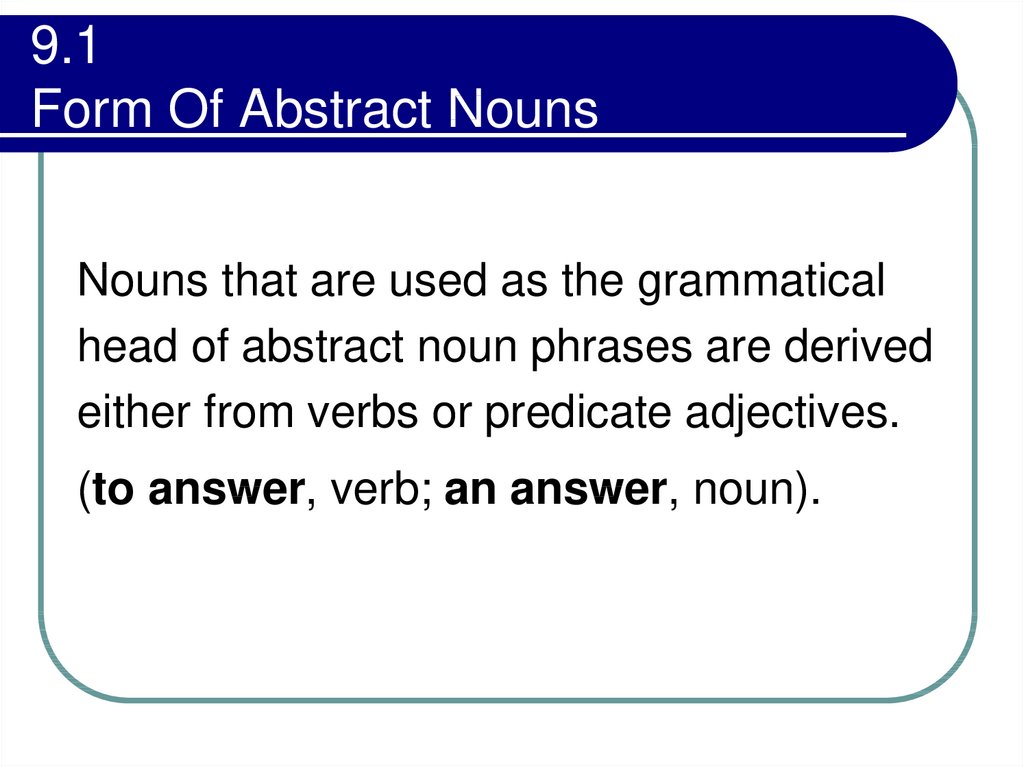
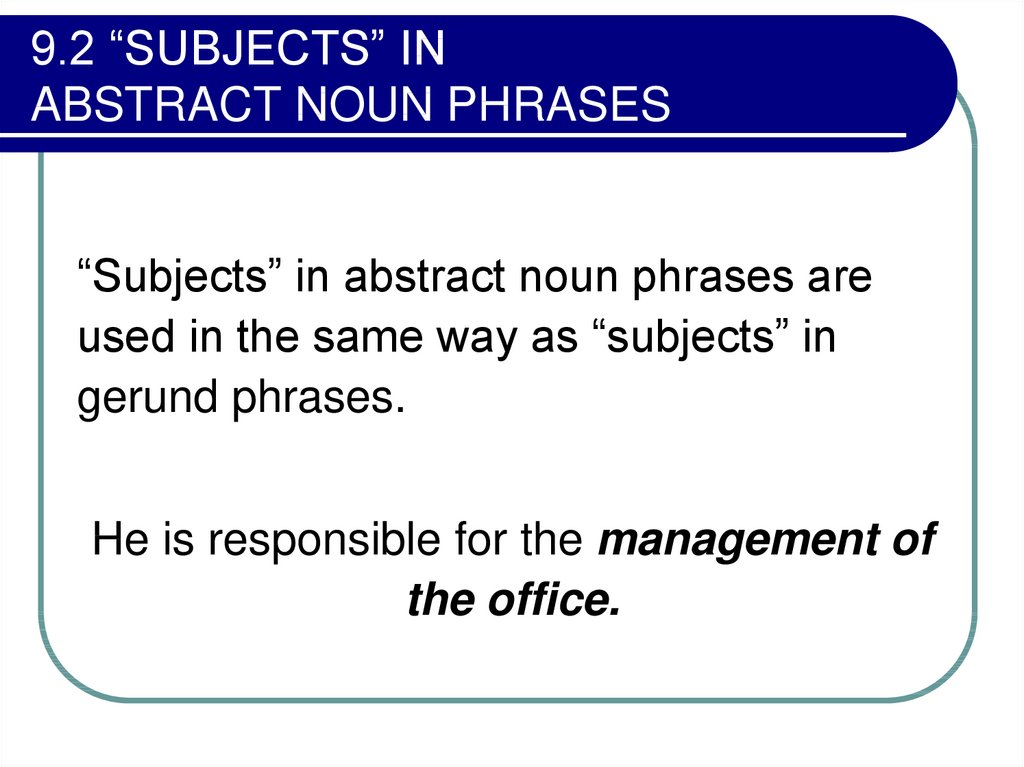
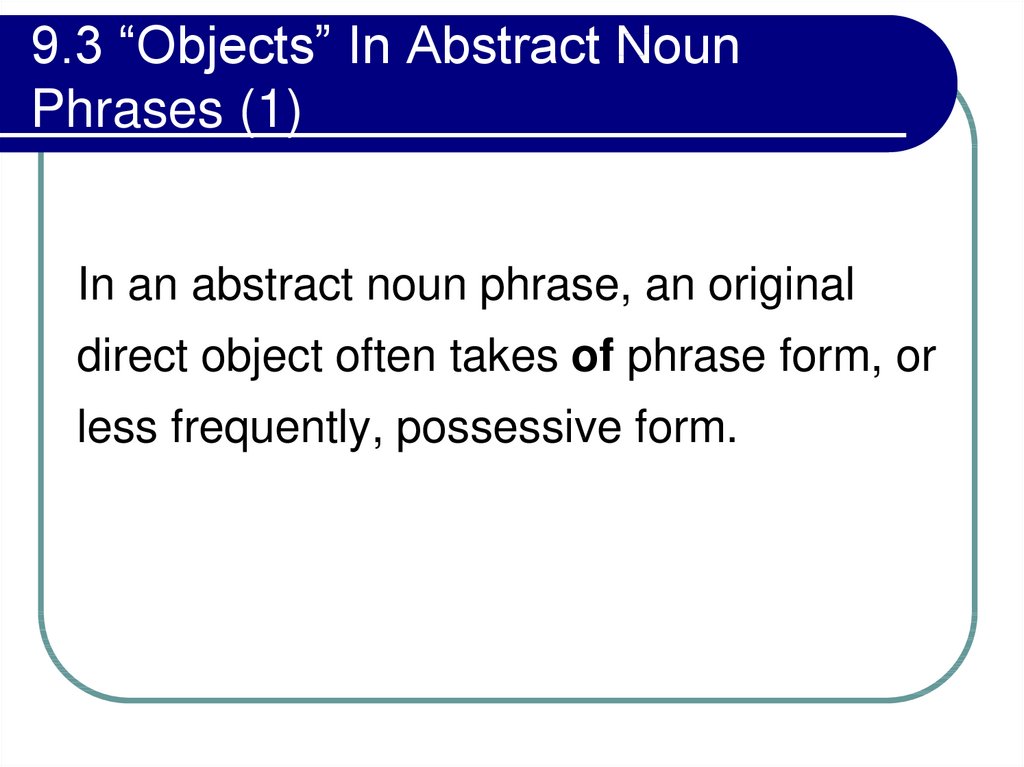
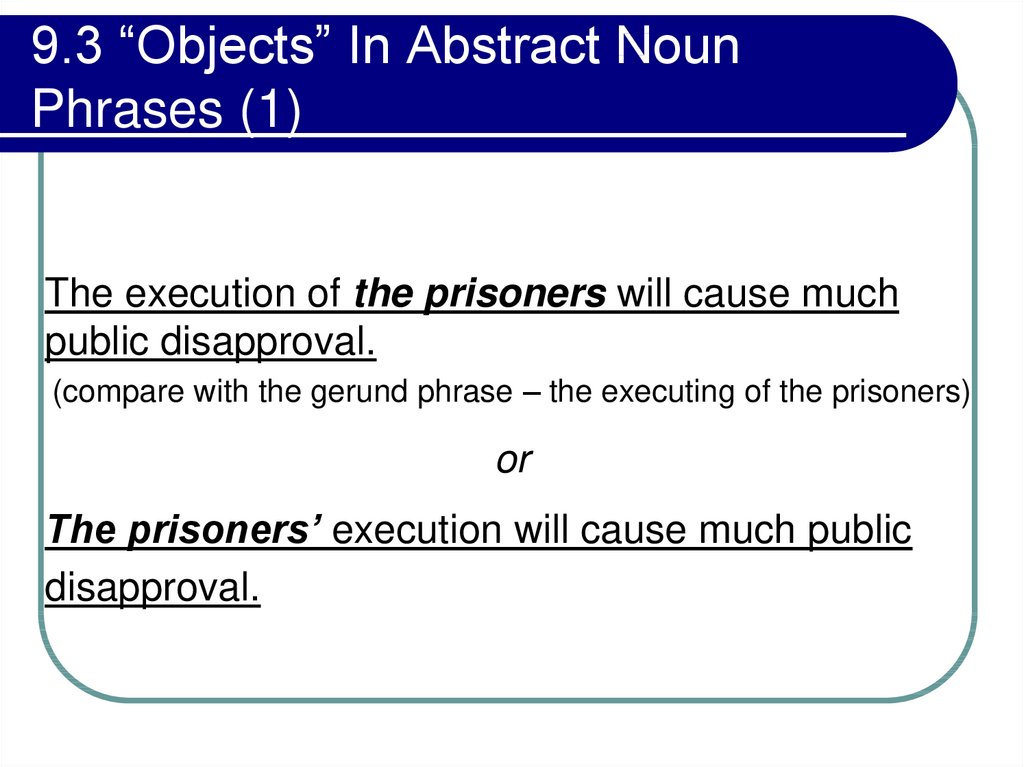


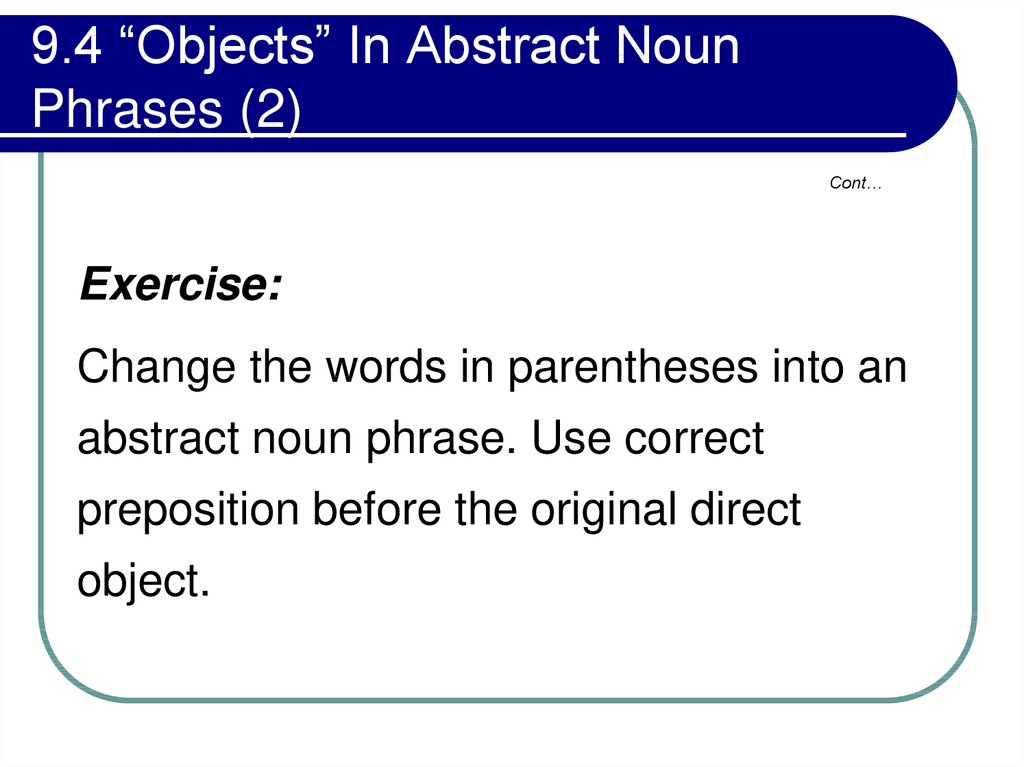
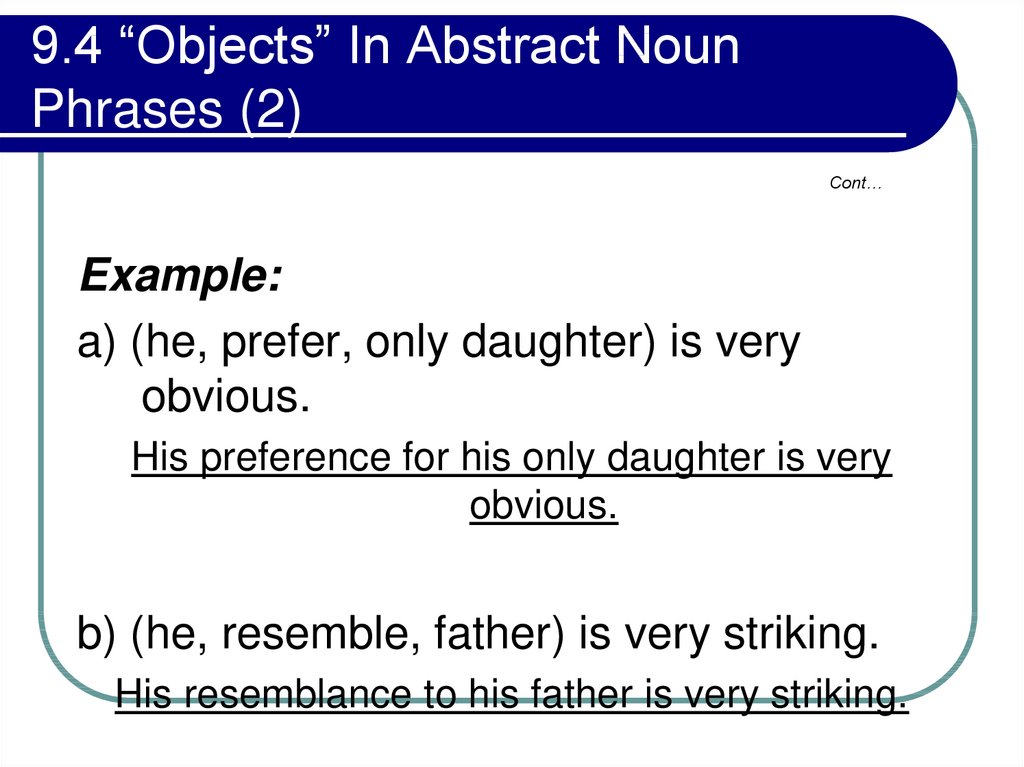

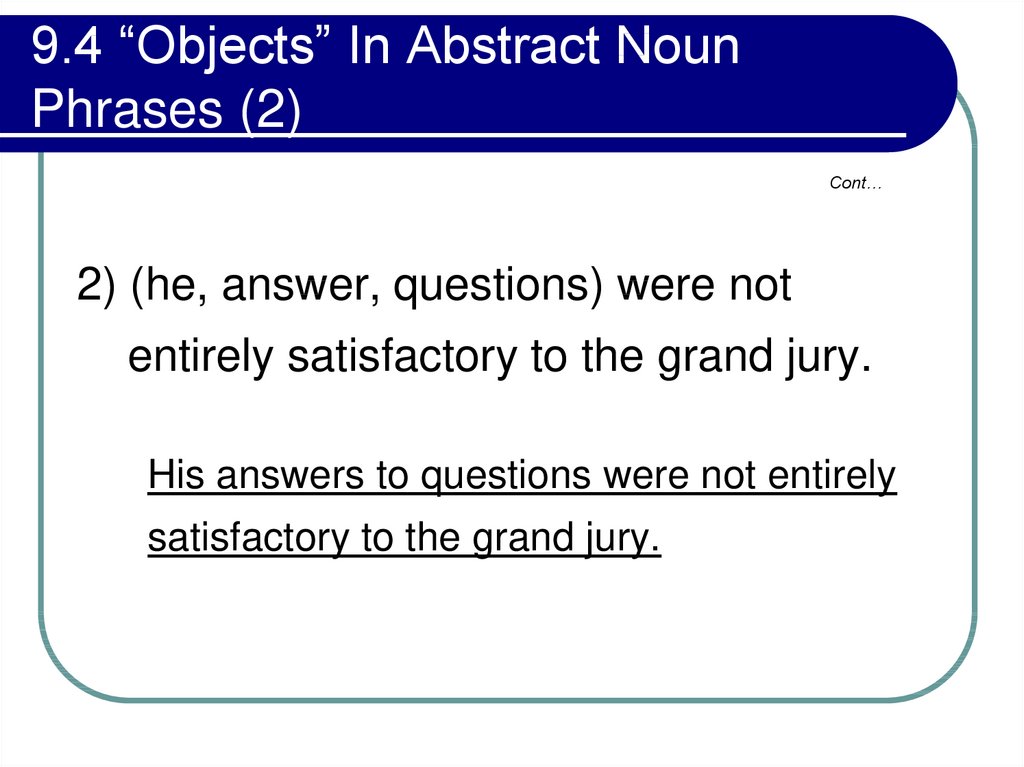
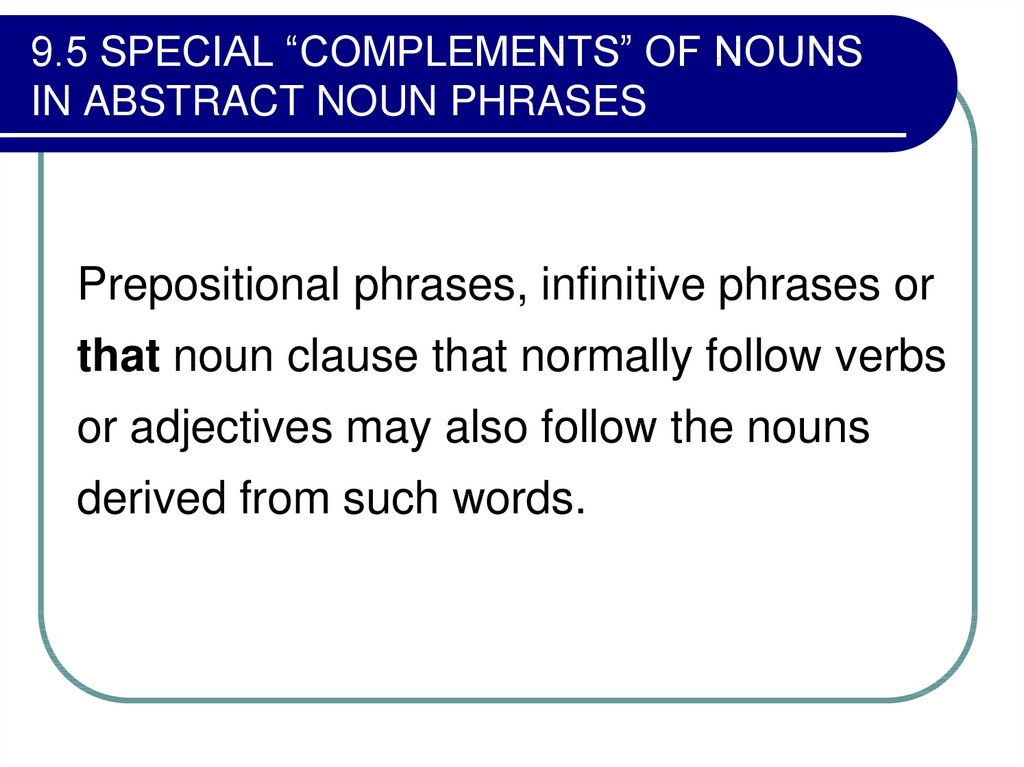
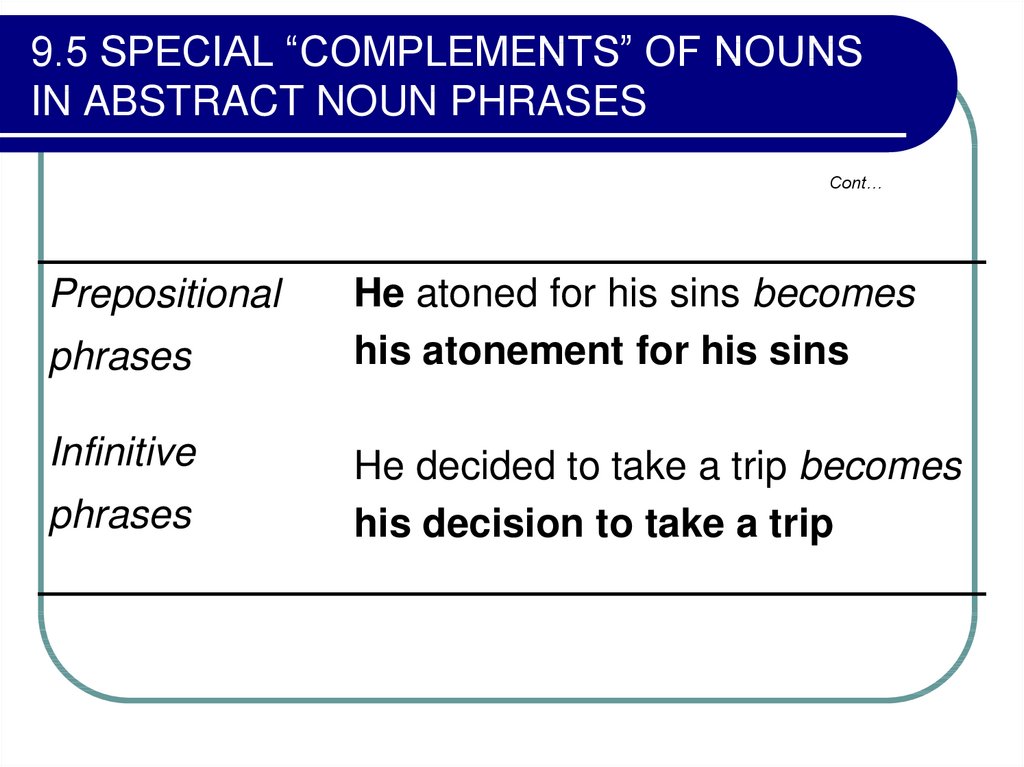
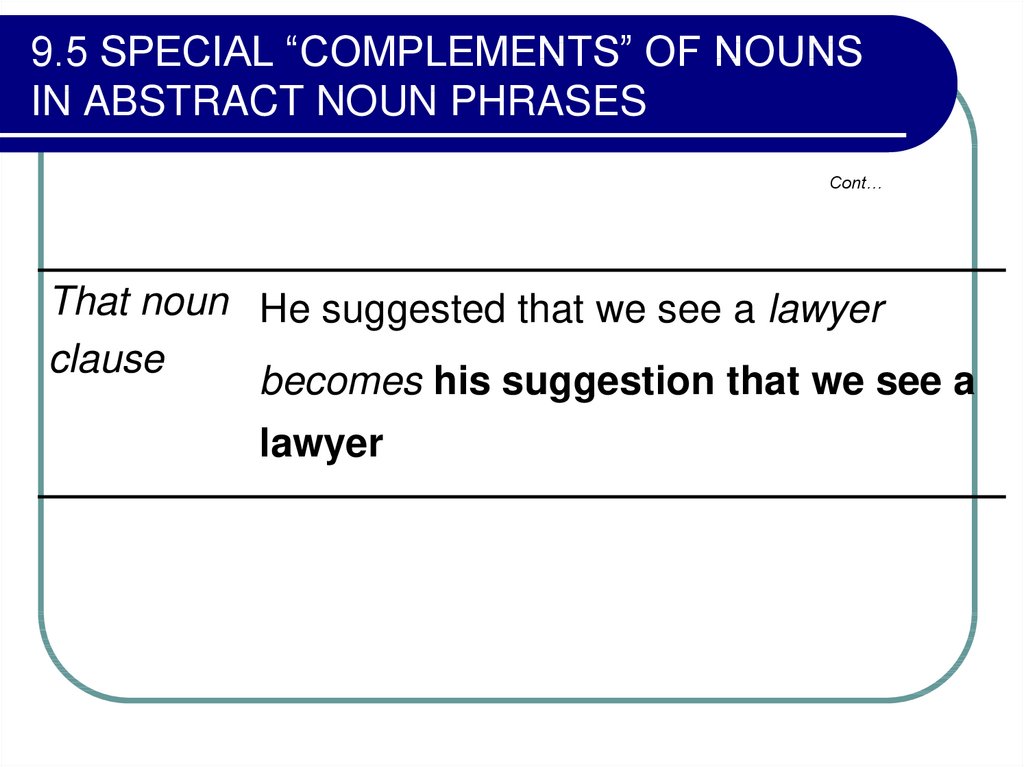
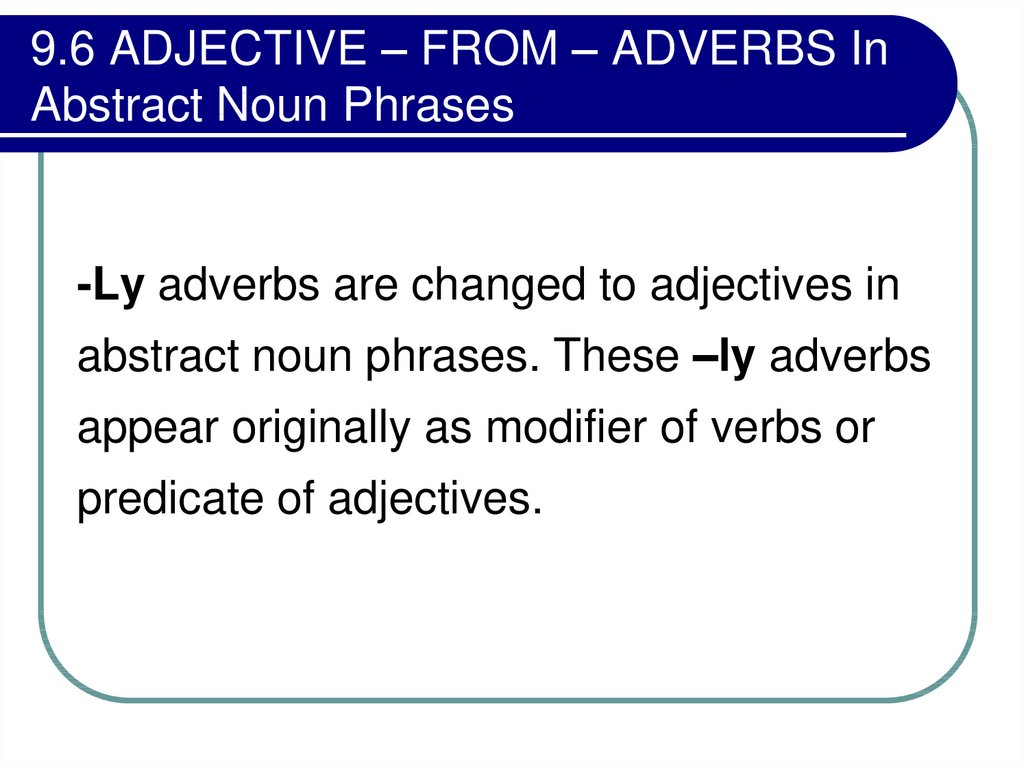
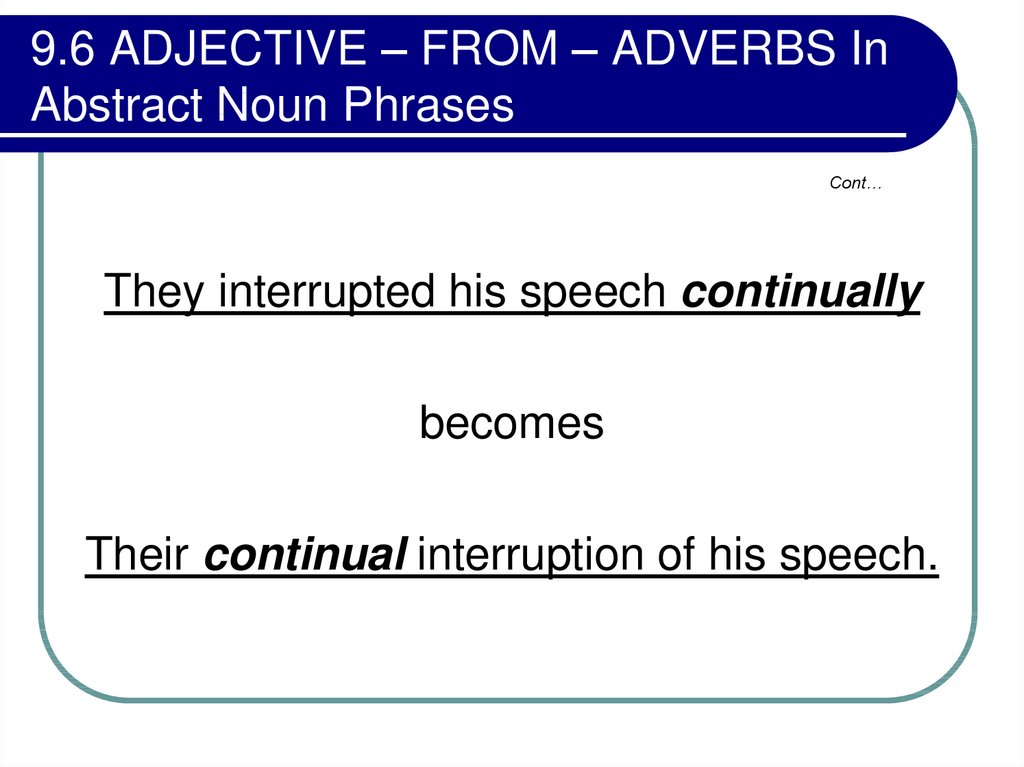
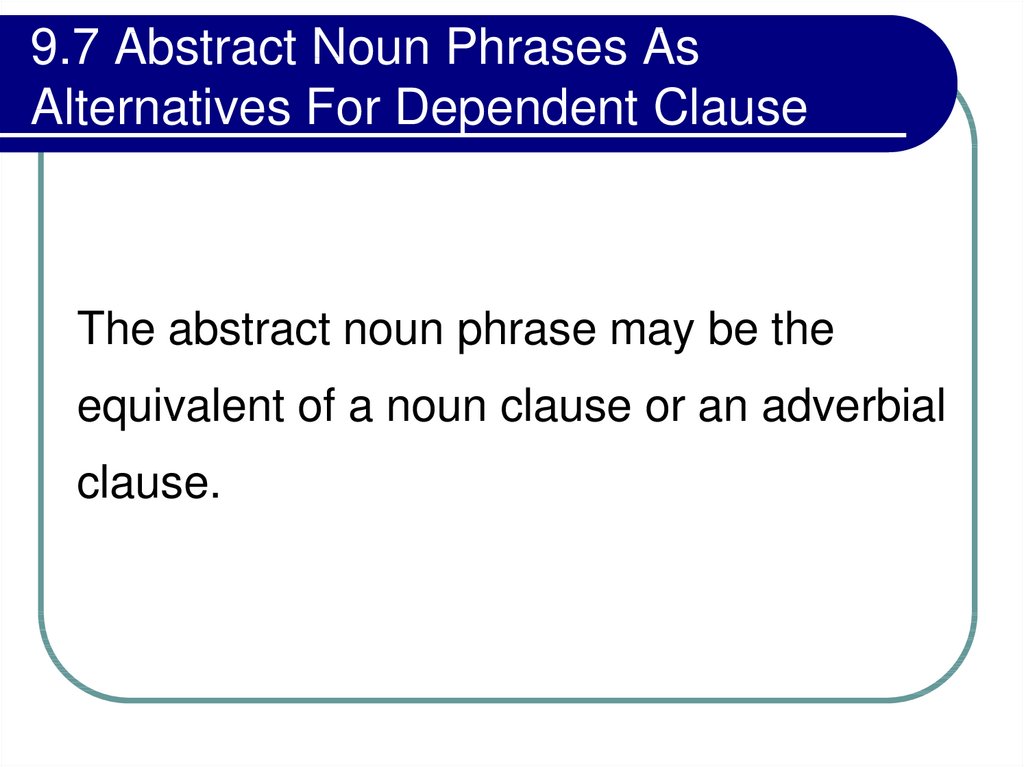
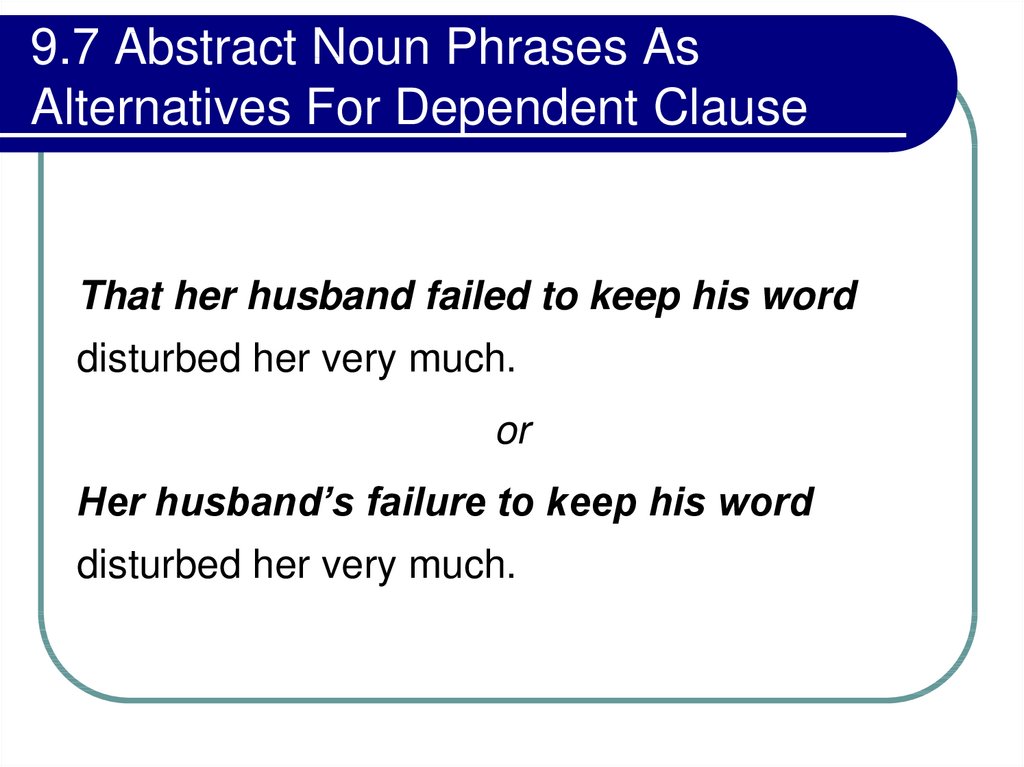
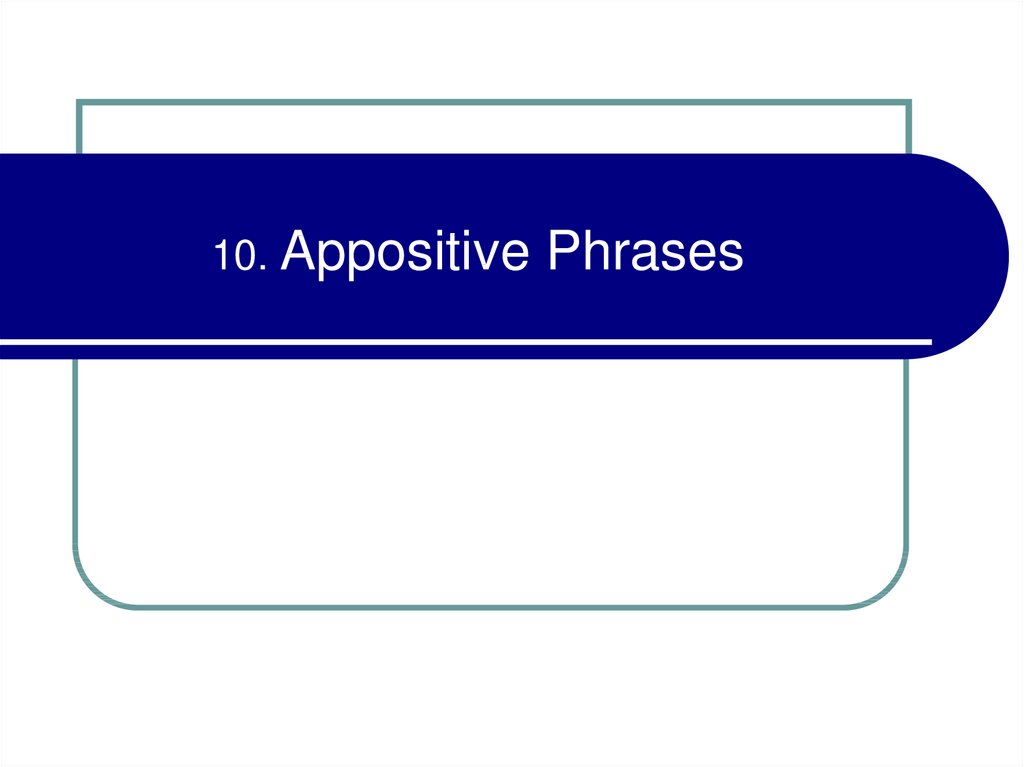
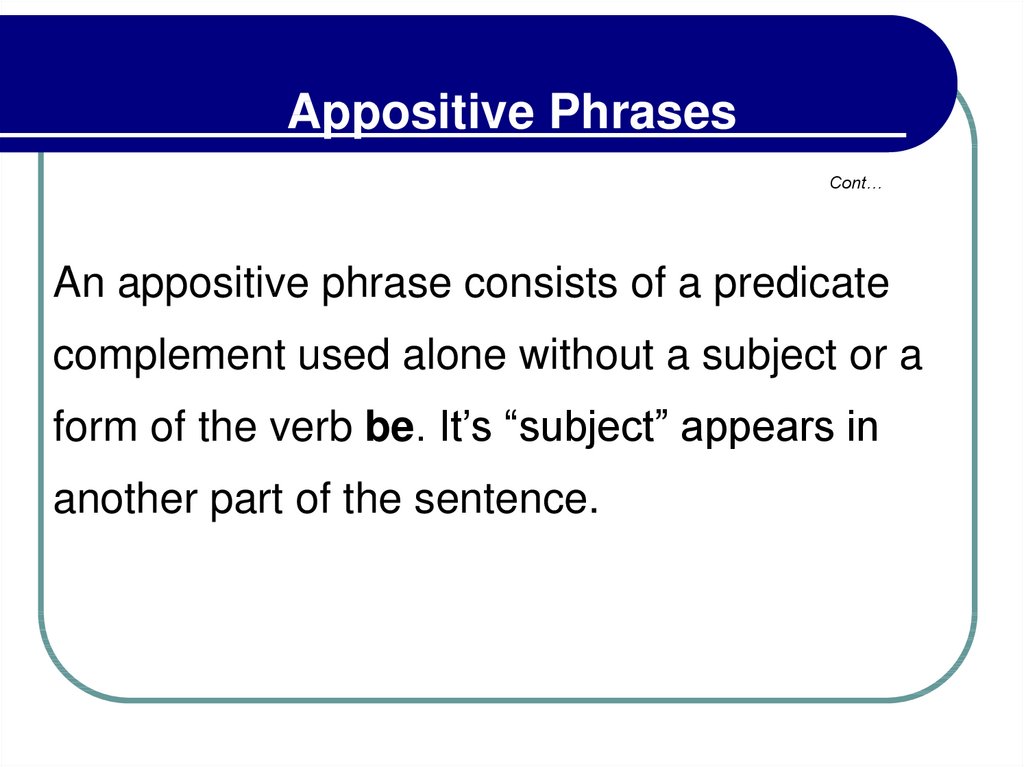
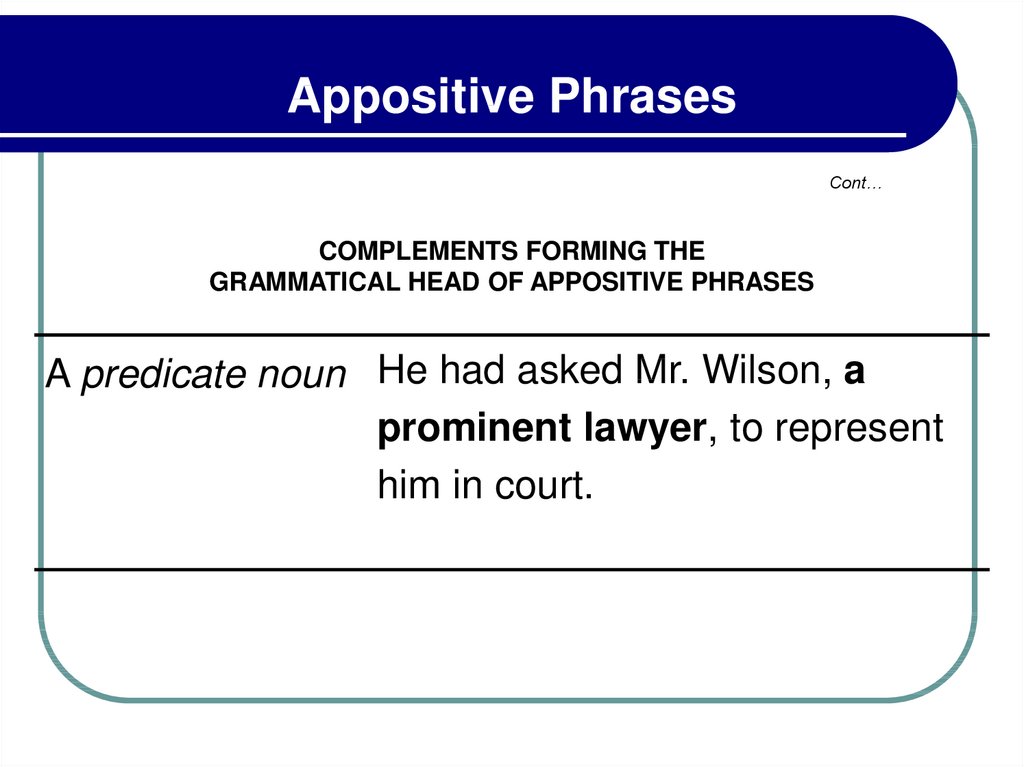
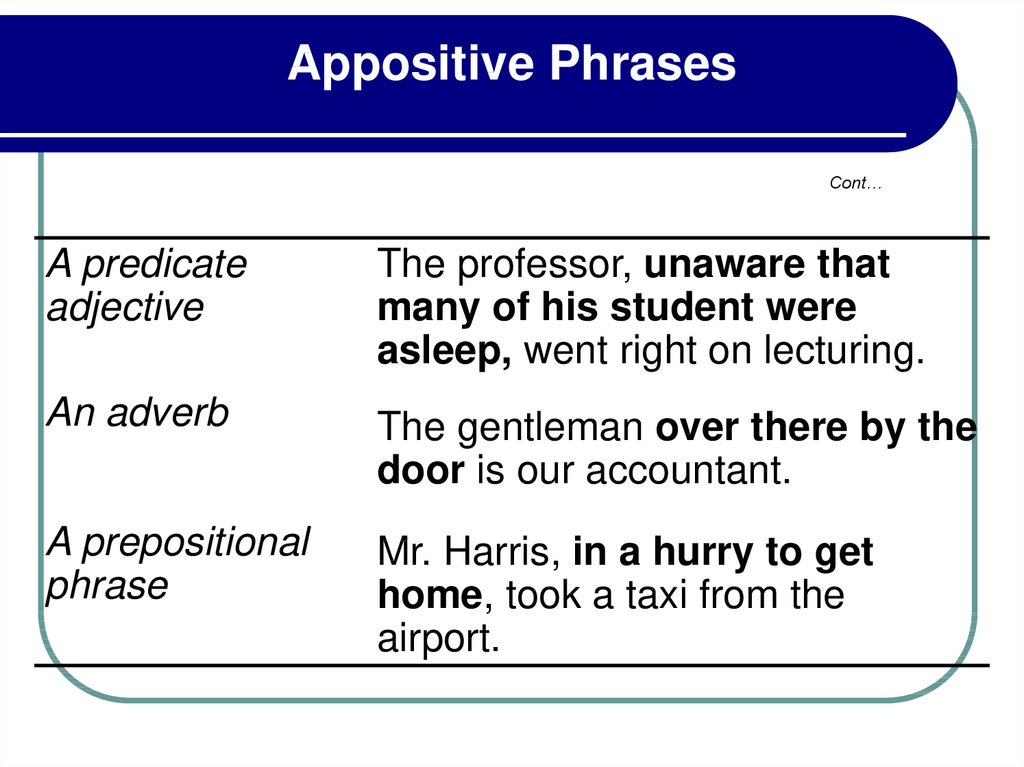
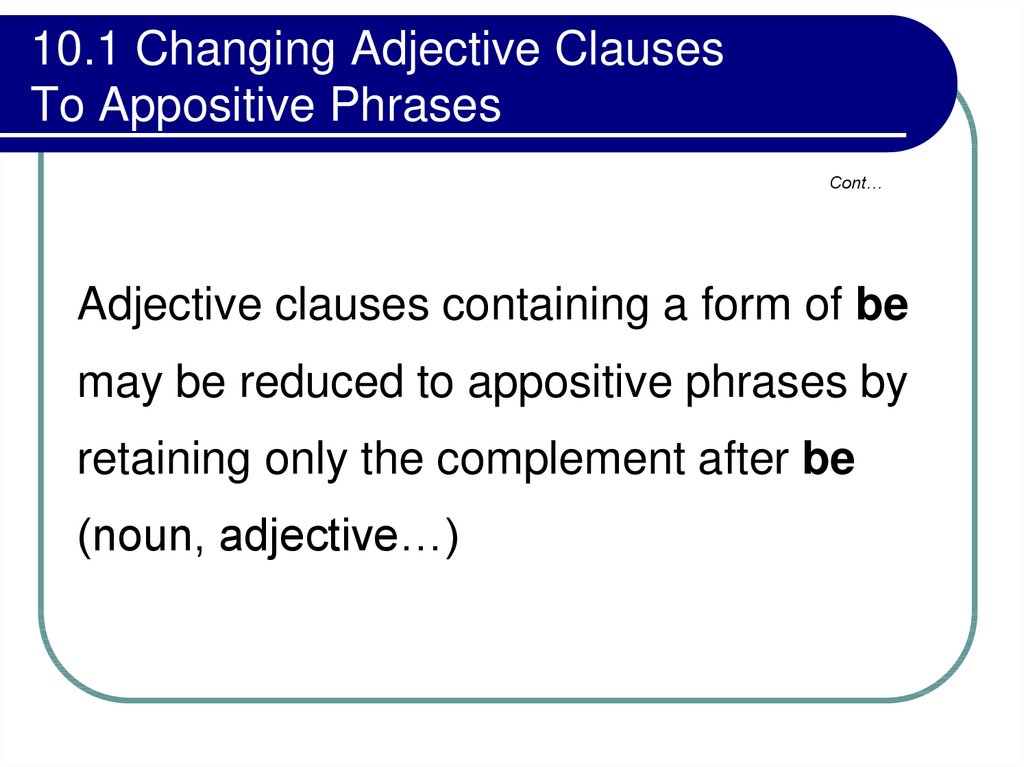
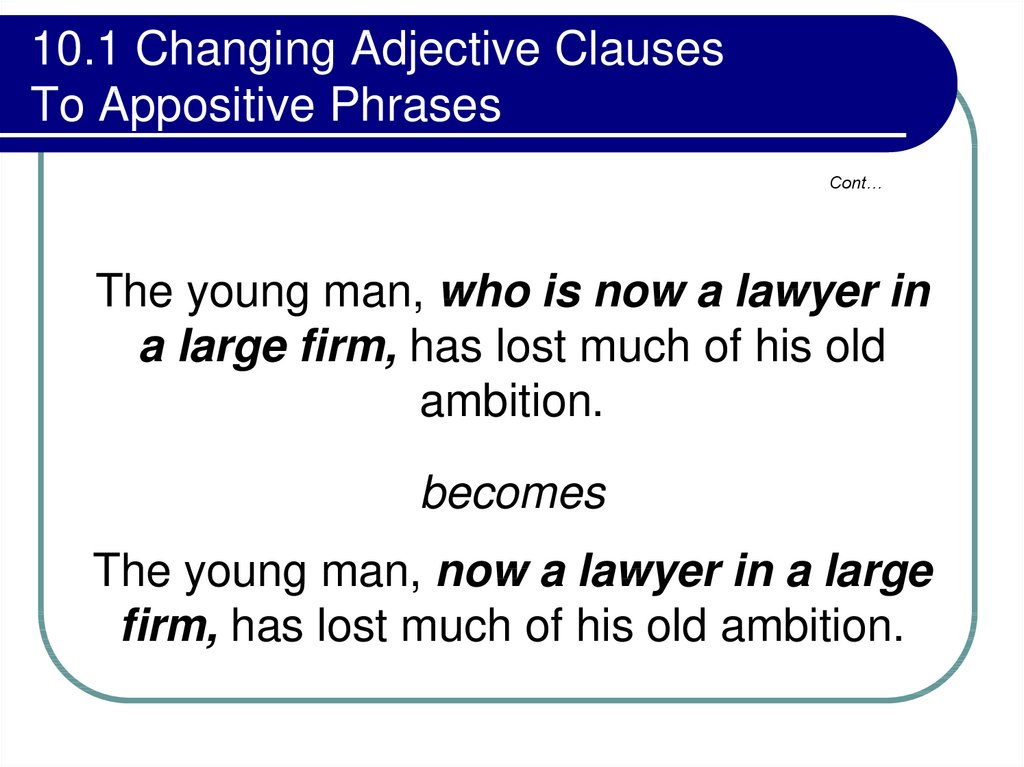
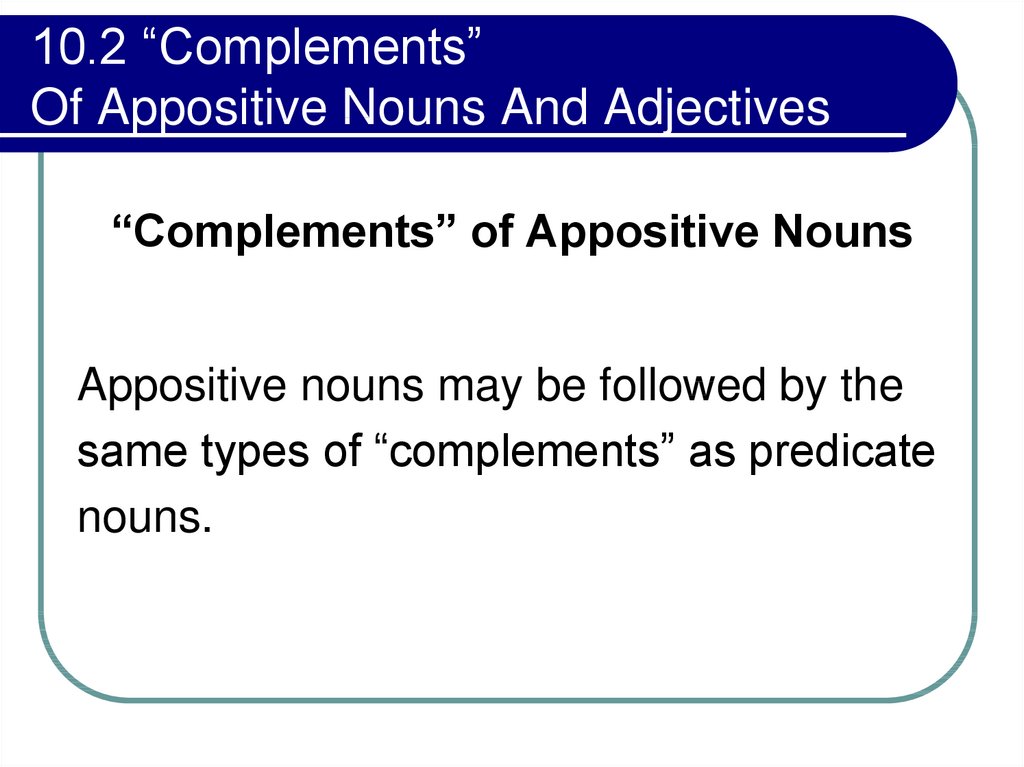
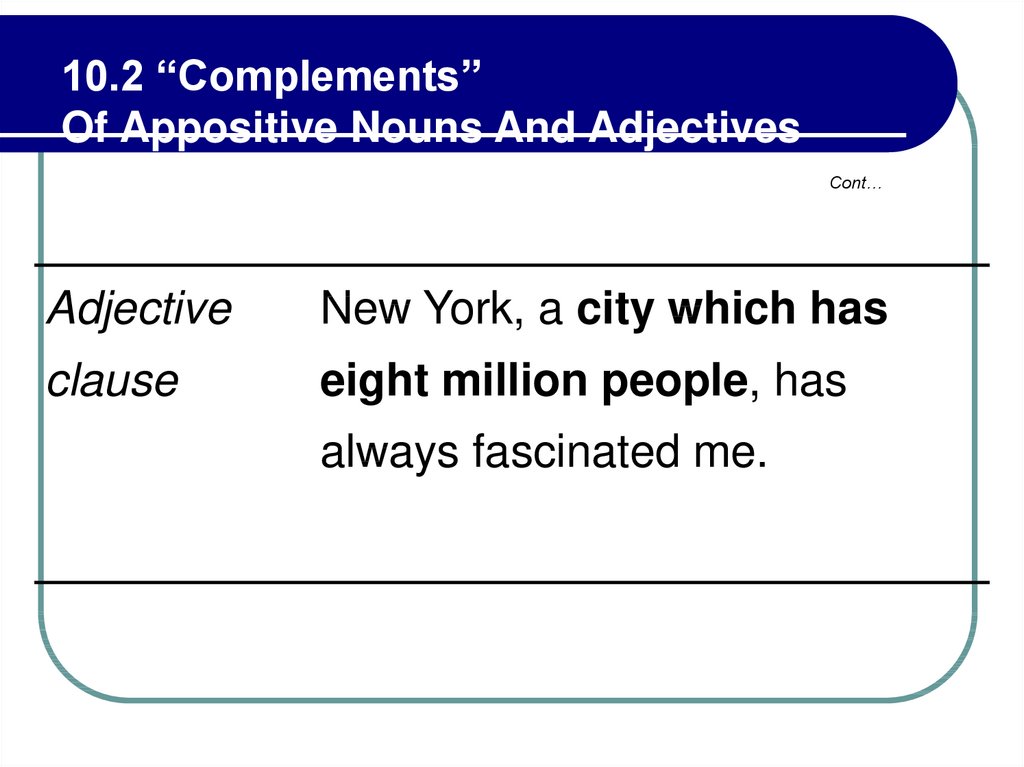
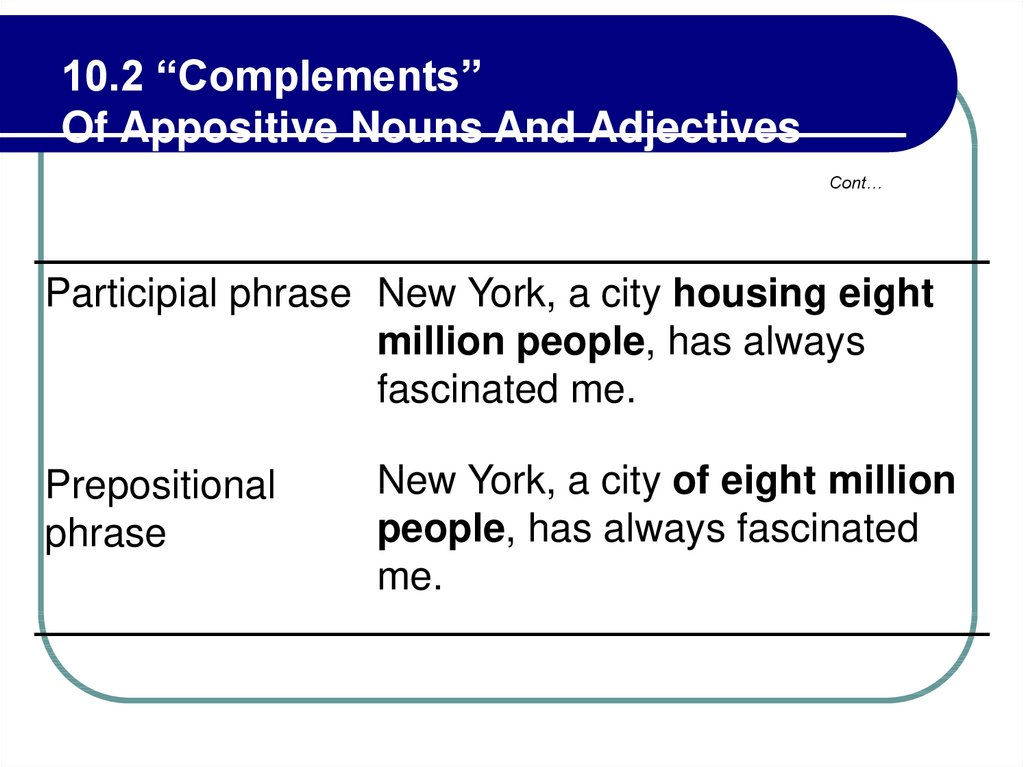
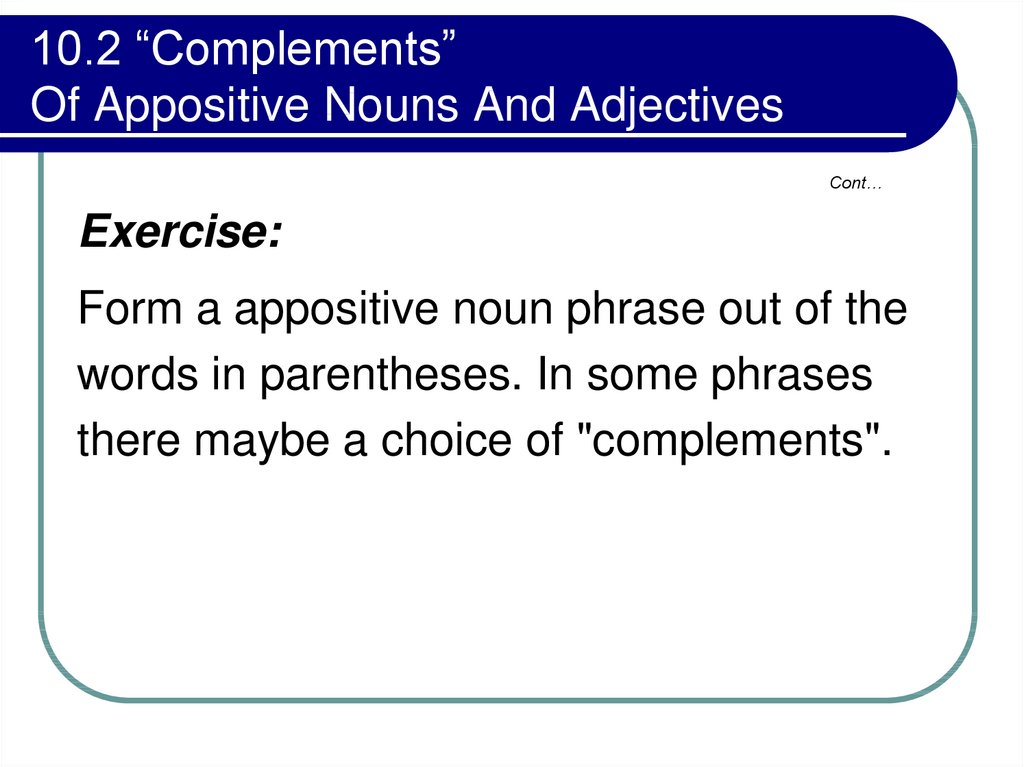
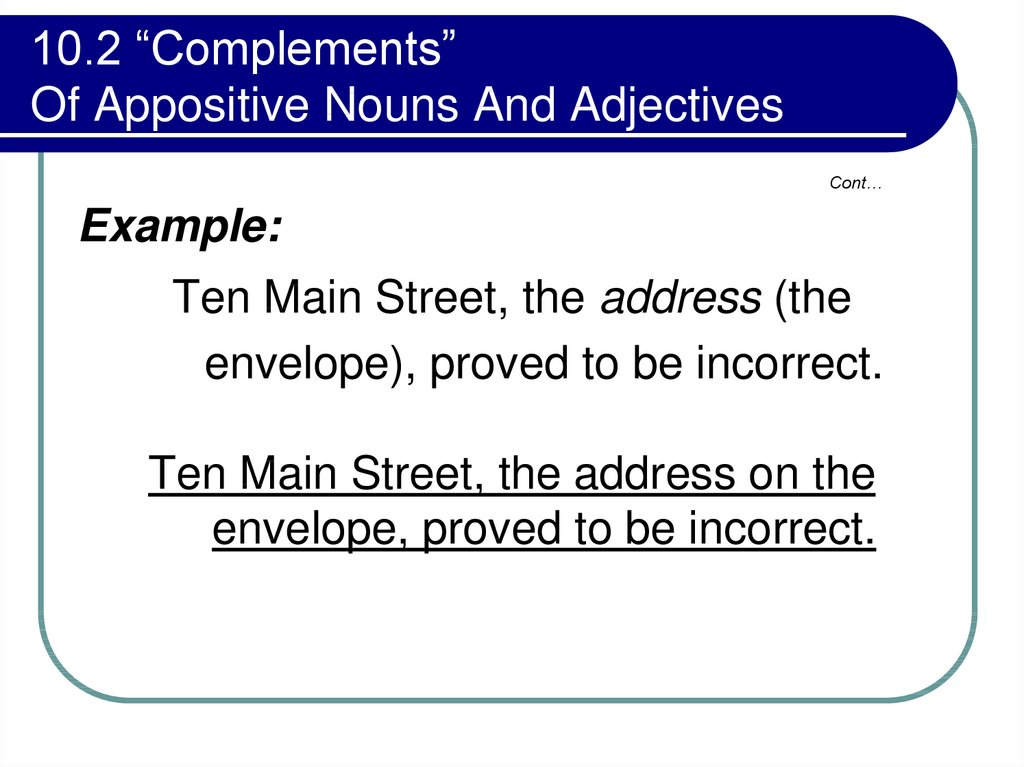

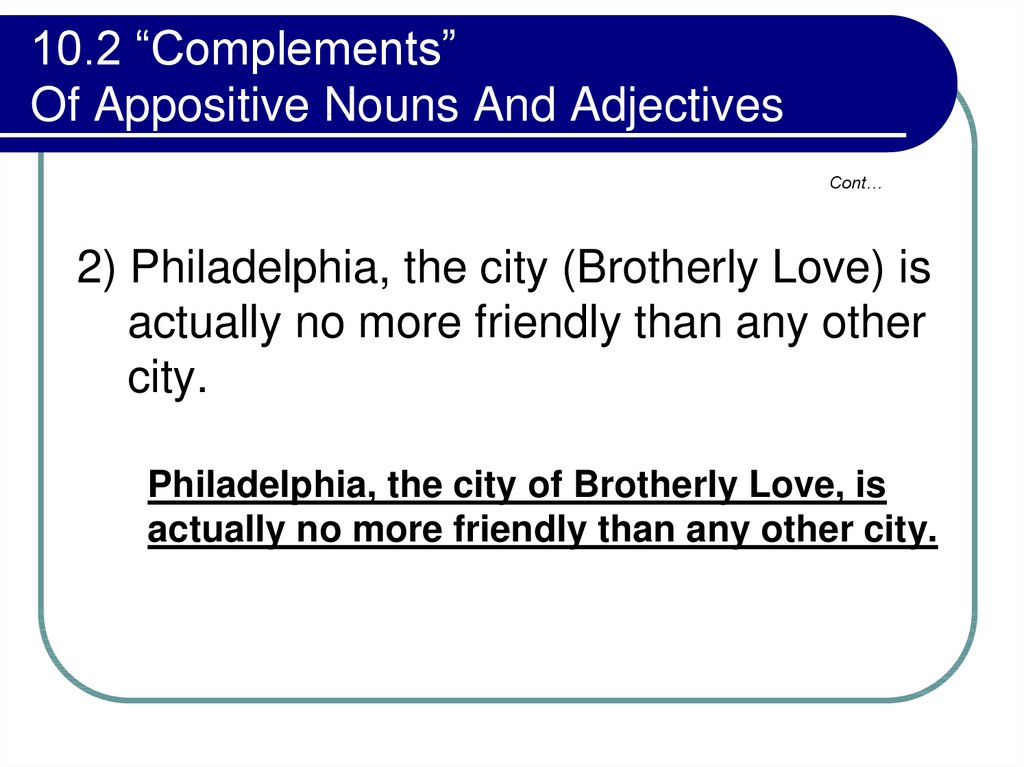
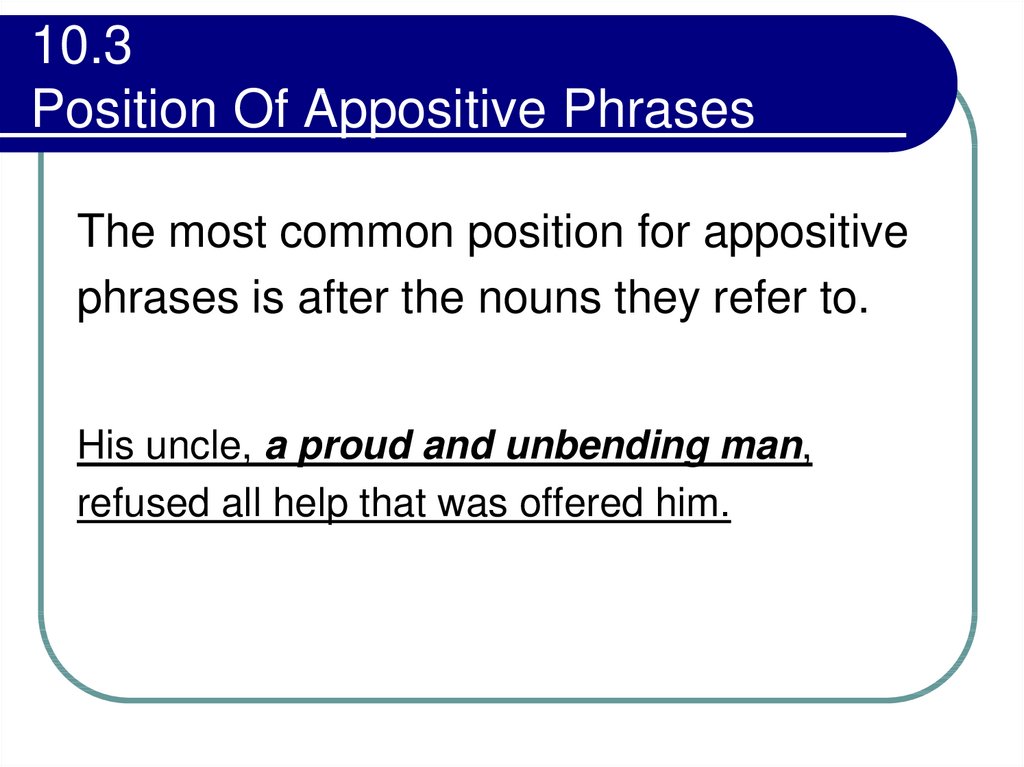
 Английский язык
Английский язык








